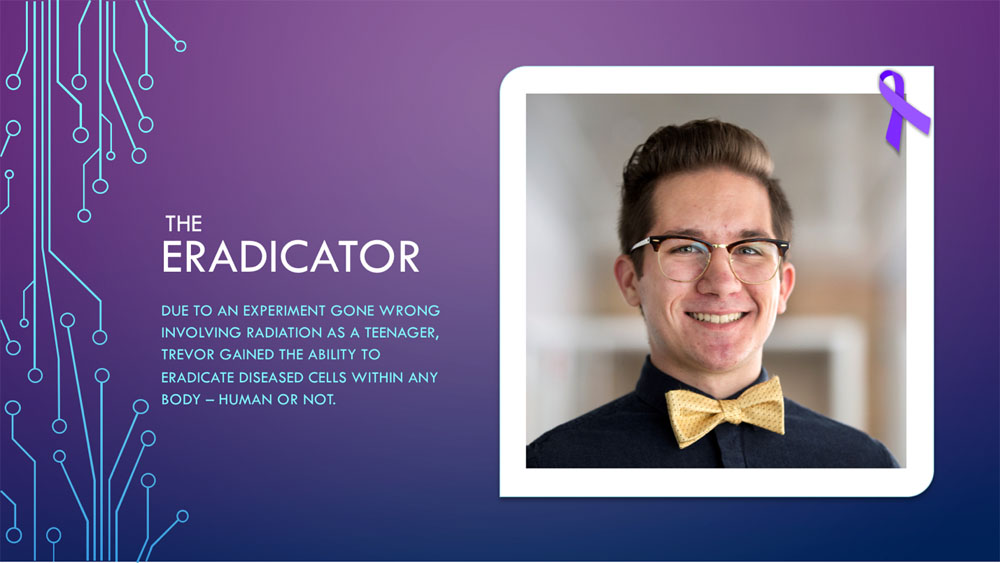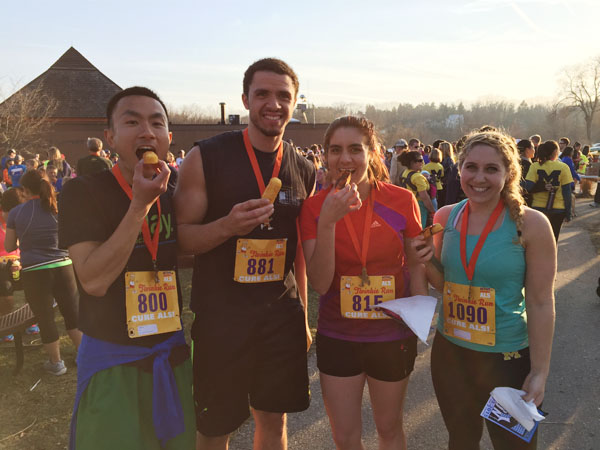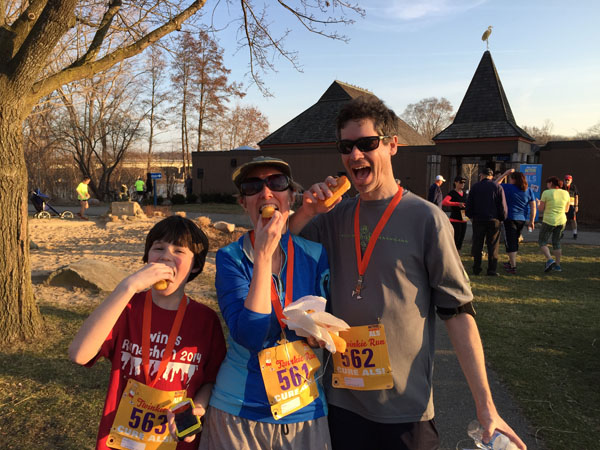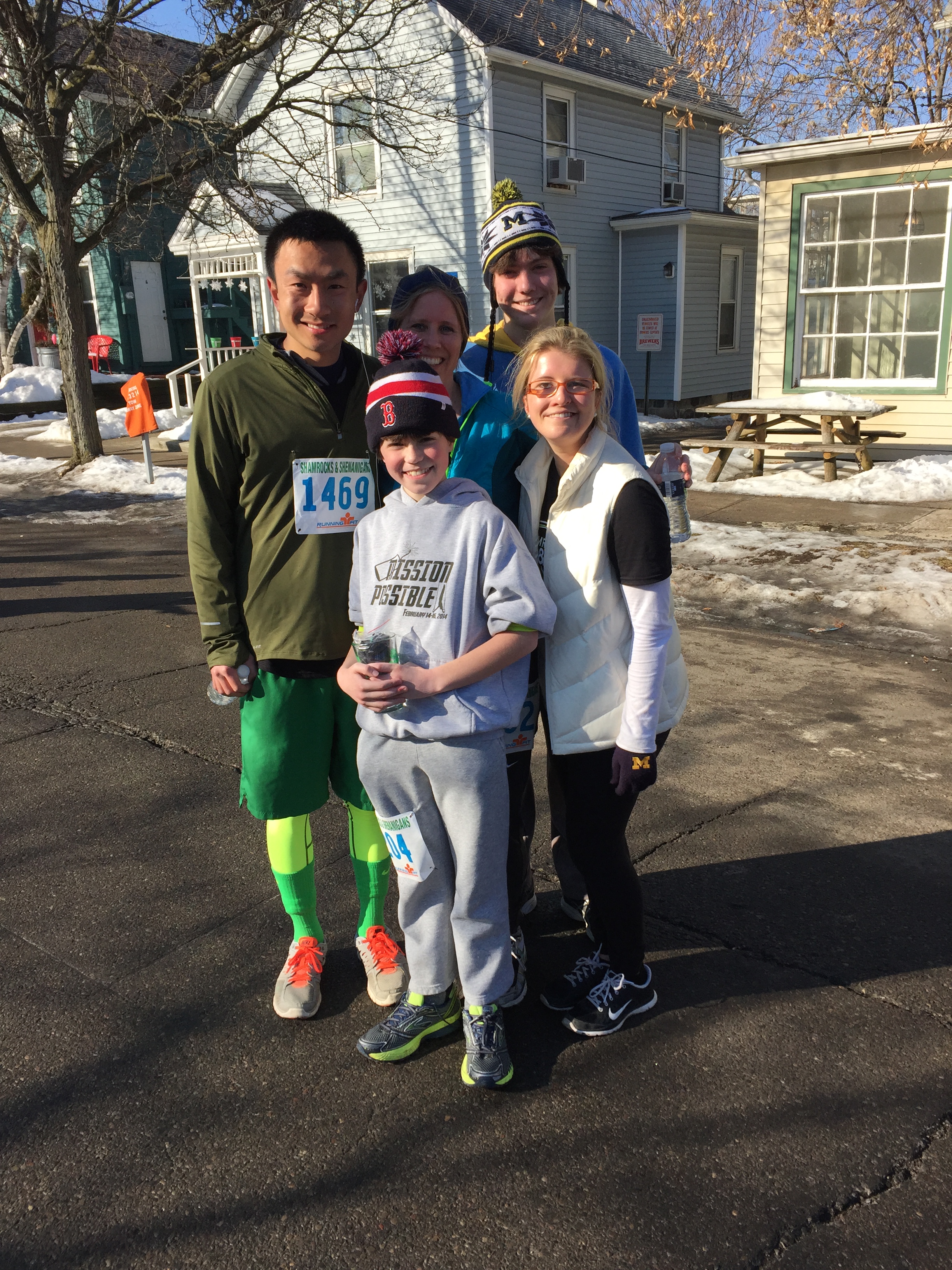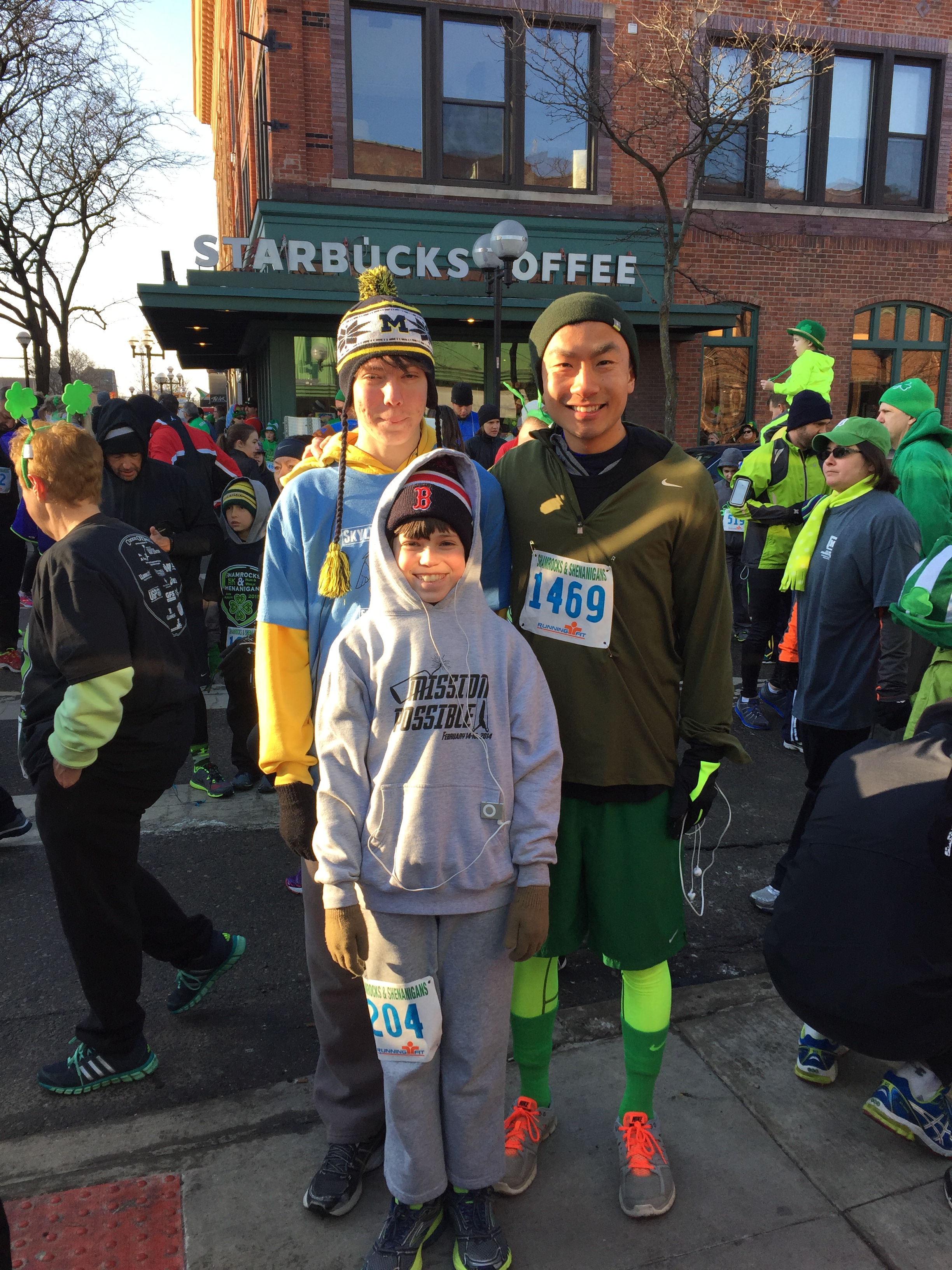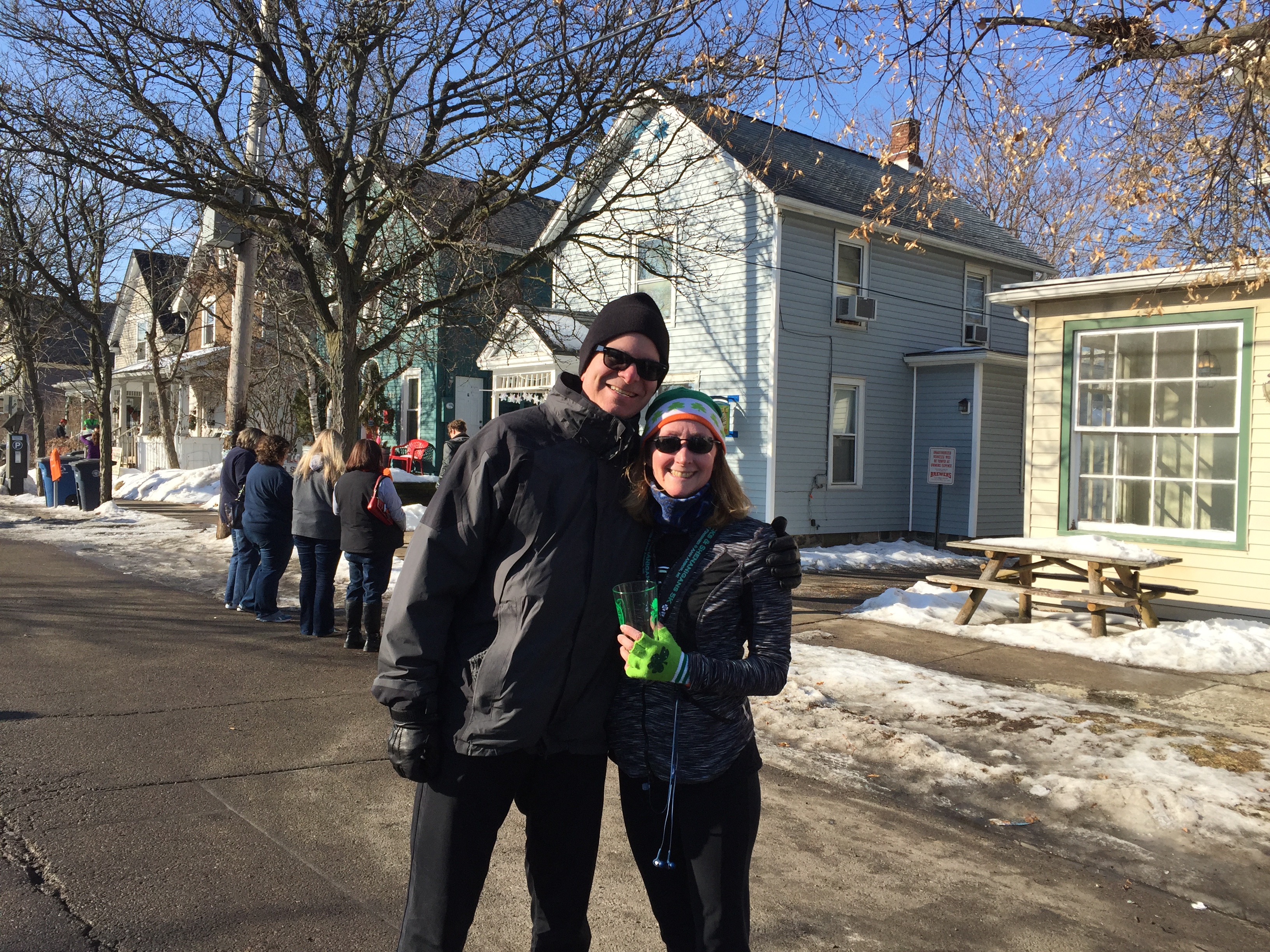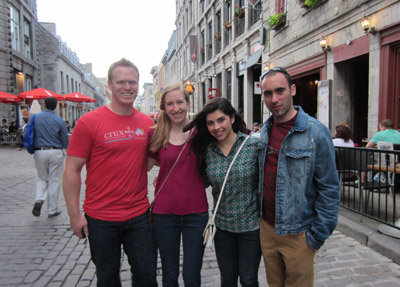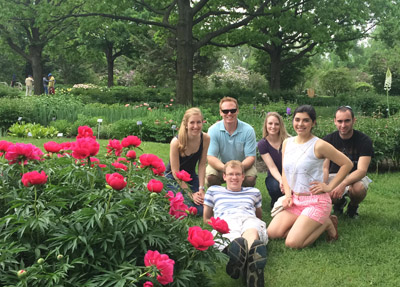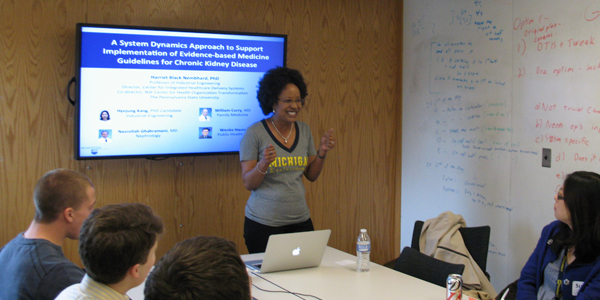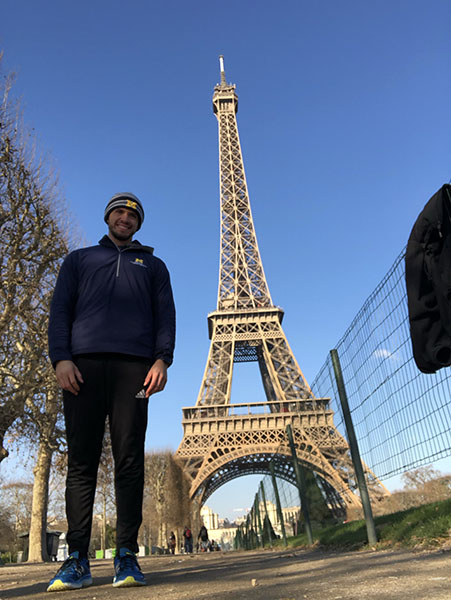 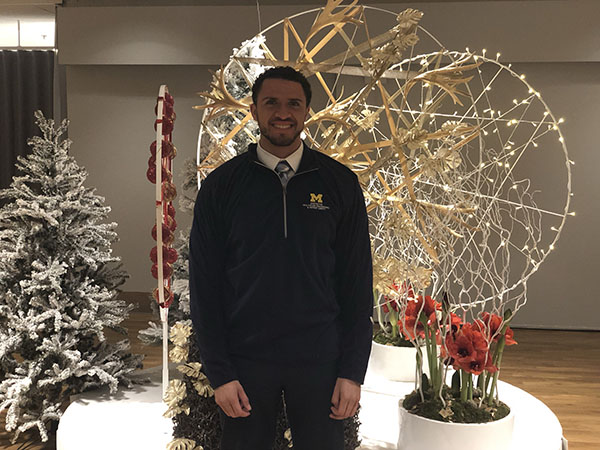 |
December 12, 2018:CHEPS and IOE PhD student Donald Richardson presented a poster and delivered a talk at the INFORMS Winter Simulation Conference which took place from December 9-12, 2018 in Gothenburg, Sweden. “I felt a much stronger international presence than any other conference I’ve been to which is cool because you can see how operations research is done outside of the U.S. It’s surprisingly different sometimes,” said Donald.
Donald’s poster titled “Improving Make-ahead Chemotherapy Drug Policies in the Outpatient Infusion Center Pharmacy” covered his dissertation work to optimize drug preparation at the pharmacy to reduce patient delays. It covered predictive modeling, optimizing what chemotherapy drugs are pre-mixed, and the simulation to see how well different policies worked. His talk titled “Improving Chemotherapy Make-ahead Policies through Discrete-event Simulation” went into more depth specifically on the simulation piece of the project. “I presented some rule of thumb policies we used and then emphasized that is a tool we can use to evaluate our model but you can evaluate anyone’s model for a more general outpatient infusion center as long as you have their data,” he explained. Donald said one interesting aspect of the conference was speaking to people from a variety of countries about his research. “In different countries, some factors may have more weight or value,” he said. “Is it the cost to the patient? The cost to the provider? Patient time? That was an interesting conversation starter.” He also enjoyed attending the PhD Colloquium Keynote by Stewart Robinson, Dean and Professor of Management Science at Loughborough. The Keynote focused on using models, particularly whether wrong models can still be useful. He found some time to experience Sweden as well. “Across from the hotel was Liseberg, essentially it’s a huge amusement park, but in the winter months they still have most of the rides open but they turn it into a Christmas market, he said. “They have a whole bunch of vendors there from people who made Viking gear to trinkets and food items, stockings, anything you can think of. And, since it’s a Christmas market, they light up everything.” Donald even came back to the US through Paris and had enough time to go see the Eiffel Tower. |
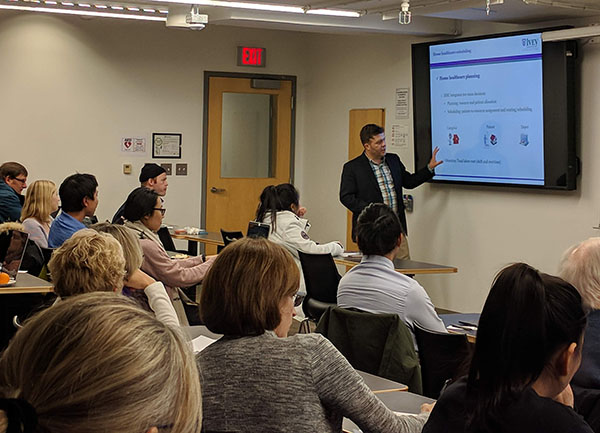 |
December 10, 2018:Our final talk of the 2018 Providing Better Healthcare through Systems Engineering Seminar Series was Dr. Mehmet A. Begen from the Western University in Canada discussing “Home Healthcare Scheduling: Applications and Challenges.”
Dr. Mehmet A. Begen is an associate professor of management science in the Ivey Business School at the Western University, Canada. He has research interests in management science/analytics applications, data-driven approaches and in particular scheduling and operations management in healthcare. He serves as the president of the Canadian Operational Research Society (CORS) and is visiting the U of M Ross School of Business for his sabbatical. In his presentation, Dr. Begen spoke about how home healthcare has become a new trend in care delivery and has attracted substantial attention from researchers and practitioners. “Our population is aging and we need to deliver care to the aged at their doorstep,” said Dr. Begen. He added that his grandfather, a medical doctor in Turkey, used to carry his medical briefcase with him all the time visiting and treating patients at their homes. Dr. Begen explained that in Canada, over 2.2 million patients received some level of home healthcare services in 2012. The new services have become very attractive as they promote quality of care and reduce cost. In such a setting, a patient receives one-to-one attention from their caregiver, whereas in a typical healthcare facility, the same caregiver is usually responsible for many patients. Further, the cost to care for terminally-ill patients in an acute-care hospital is estimated to be 40% more expensive than the cost of the same care in a hospital-based palliative-care unit and over 10 times more expensive than home healthcare. Dr. Begen, then, spoke about his current research in which he uses mathematical modeling to optimally schedule homecare providers (e.g. physicians, nurses, physical therapists, etc.) to patients for a single visit or multiple consequent visits in a cost-efficient way. He concluded his talk by saying that patient-to-resource assignment/routing/scheduling in home healthcare setting introduces new thinking on caregiver’s work shifts, reimbursement, and performance measurement. A video of Dr. Begen’s seminar is available to view. Now, as we end this semester, we wish you and your dear ones a very happy and a warm holiday. We will be looking forward to seeing you again in our next season of the Providing Better Healthcare through Systems Engineering seminar series in 2019. Happy Holidays! |
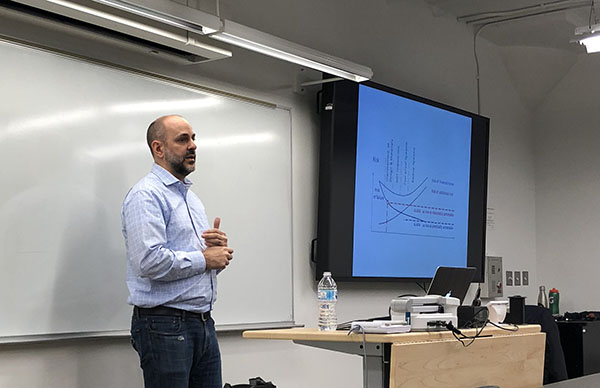 |
December 3, 2018:Dr. Brian George presented his talk “Does Surgical Training Need to be Re-engineered?” on Monday, December 3rd. This seminar was part of our ongoing Providing Better Healthcare through Systems Engineering Seminar Series. His focus was on the current assessment process of resident surgeons and how it fails to consider how well they actually perform in surgery. He and his team are researching methods to improve the assessment of residents in practice, as well as understand how current assessments correlate to early career performance and patient outcomes. One method he suggested for reviewing residents is the application SIMPL, which can be used on cell phones and could be done quickly, immediately after surgery.
Dr. George is driven by complications from surgeries that he believes are avoidable. He emphasized that it is usually not lack of ability or bad intentions, but lack of proper training. He believes that if the residents are regularly evaluated and given feedback for their performance they will improve. There is not much data available on the topic, but Dr. George and his lab are hoping to gather information to prove the inaccuracy of the evaluation system. He hopes that his work will improve patient outcomes by getting residents the training they need before they are in the field on their own. Please join us on Monday, December 10th at 4:30 pm in 1123 LBME for our final seminar of 2018. Mehmet Begen will present “Home Healthcare Scheduling: Applications and Challenges.” |
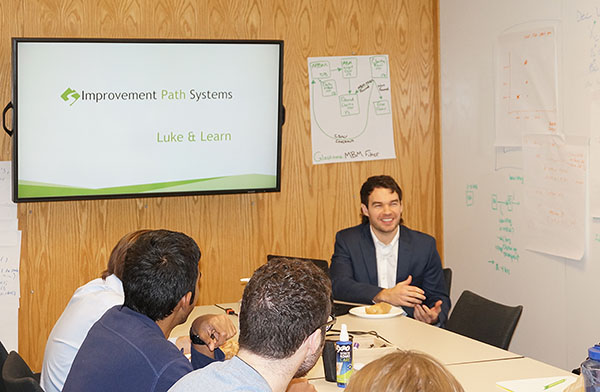 |
November 30, 2018:CHEPS alumnus Luke Stumpos returned to CHEPS on Friday, November 30th to share his experiences with current students. His Lunch and Learn, or Luke and Learn as we like to call it, focused on his job as a consultant at Improvement Path Systems (IPS).
“I didn’t know much about consulting or the travel lifestyle [when I was a student], so that’s what I decided to focus my talk on,” said Luke. He offered an overview of IPS and his experiences there and left plenty of time for questions from and discussion with attendees. He was able to share many valuable insights as well as some fun travel stories. Bassel Salka, an IOE undergraduate and CHEPS student, asked about Luke’s experience with supply chain and Luke was able to offer examples from his experience working with supply chain in a large pediatric hospital. “There’s a very large human component to the supply chain,” he said. “It’s not just numbers.” He went on to speak about learning from clinicians why some of the needs for having supplies on hand might have differed from what he expected going in. Many of the students who attended the talk are considering a career in consulting after graduation and were able to better understand some of the opportunities available to them through discussion with Luke. Additionally, his talk highlighted the importance one of our main focuses here at CHEPS, collaboration and open communication between engineers and medical practitioners. |
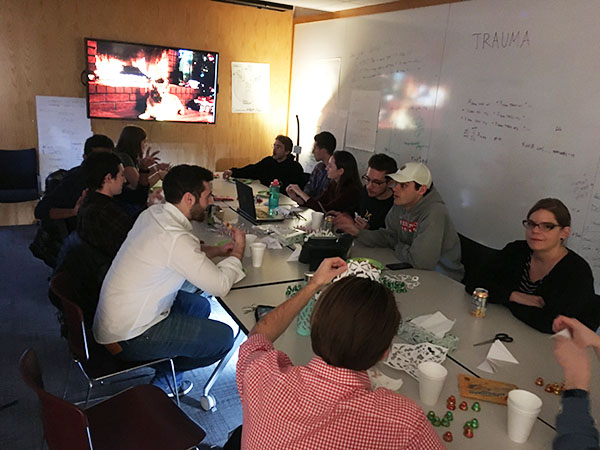 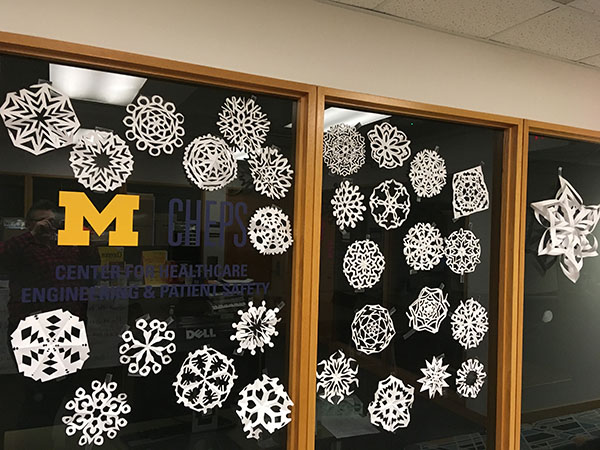 |
November 29, 2018:A week after Thanksgiving, the CHEPS family got together to celebrate CHEPSgiving. The celebration began in the CHEPS offices. Attendees brought non-perishable food items to donate to Food Gatherers, a charity that works to alleviate hunger in the community. Then we all settled in in front of the crackling fire (courtesy of a YouTube video played on the conference room projector) to make paper snowflakes together to decorate the CHEPS offices. While some were more successful at snowflake making than others, all enjoyed sharing some fun and relaxing moments with the CHEPS family as a break in the busy holiday season and the end of the semester. Afterward, many of the students headed off to Good Time Charley’s to enjoy the Thursday burger special together. — Written by Liz Fisher, CHEPS Staff |
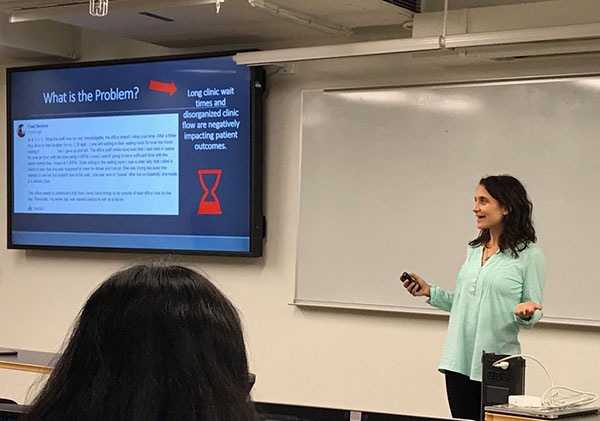 |
November 26, 2018:On Monday, November 26th, Dr. Paula Anne Newman-Casey offered insights to her seminar audience regarding her recent work to modernize the Michigan glaucoma clinic and improve patient wait times. Throughout the talk, titled “The Intelligent Glaucoma Clinic: A passive RFID Time Study System to Optimize Patient Wait Times,” she explored the path she and her clinic took to first diagnose the origins of lengthy wait times, and then find a cost-effective, sustainable solution using portable RFID chips.
Dr. Newman-Casey, an assistant professor of ophthalmology and visual sciences at the University of Michigan Kellogg Eye Center, started with a brief background on glaucoma, then jumped straight into the problem at hand: “We’re trying to get people to come back for an asymptomatic disease (at least, to them), we’re giving them medications that cause side effects and cost money, and we’re asking them to wait in the clinic for hours to see us, to get those prescriptions, and get our advice.” Walking the audience through her experiment, Dr. Newman-Casey explained the process for choosing reusable RFID chips implanted in clinician ID tags (the most cost-effective option, which would save thousands of dollars per year) and HITS’ work on Glimpse, a dashboard interface allowing for visualization of data indicating time spent in and out of each room by clinicians and patients. Using this data, their team is now able to make experimental changes to clinic procedures within a simulated version of the clinic, and determine with approximately 80% accuracy the impacts it will have on patient wait times in the actual clinic. During the following Q&A, attendees offered feedback on different strategies to potentially improve the efficiency and accuracy of Dr. Newman-Casey’s data collection framework, as well as additional applications of the technology. “One of the issues that has come up in the operations meetings is asking, ‘if we added a technician, what would happen?’ So I think that is definitely something we would like to explore in the simulation model.” This seminar was part of the ongoing Providing Better Healthcare through Systems Engineering Seminar Series, presented by CHEPS. A video of Dr. Newman-Casey’s seminar is available to view. |
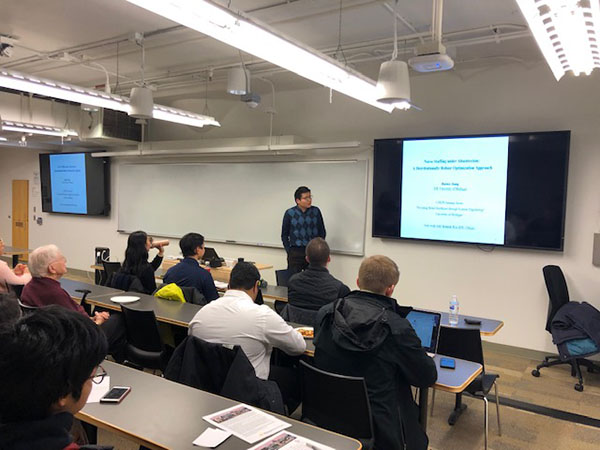 |
November 19, 2018:On Monday, November 19th, Dr. Ruiwei Jiang presented at the CHEPS seminar series “Providing Better Healthcare through Systems Engineering”. Dr. Jiang is an Assistant Professor of Industrial & Operations Engineering at the University of Michigan. His research focuses on the theory of stochastic and robust optimization, integer programming, and their applications on power systems and healthcare operations.
During the seminar, Dr. Jiang discussed his nurse staffing optimization work. Nurse staffing is a crucial component of any organization due to the costs associated with nurse staffing and the staffing levels required for patient safety. Additionally, the ability to appropriately staff nurses is difficult because of the uncertainties in nurse demand and nurse absenteeism. Dr. Jiang spoke about a few current solutions some systems use to address nurse staffing challenges, included float pools and cross-training programs. He also provided a brief review of the literature and the limitations some of the existing models have. He then spoke about a few proposals his team has developed such as a distributionally robust nurse staffing model and the optimal nursing pool design. Dr. Jiang’s presentation was a great example of how systems engineering models can be applied to common operational challenges all healthcare institutions face. Slides and video from Dr. Jiang’s talk are available to view. |
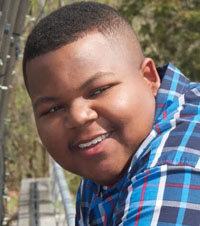 |
November 15, 2018:“My involvement with IISE started off as a way for me to get involved in an organization that was related to my major, so Industrial and Operations Engineering (IOE), and to get more involved with the IOE Department as a whole,” said Justin Rogers, CHEPS student and IOE undergraduate. “IISE does a lot for its members and a lot for IOE as well so it’s a way for me to give back to the IOE Department.”
Justin, former President and current External Vice President of the University of Michigan IISE chapter, was recently awarded the 2018 IISE Irv Otis Scholarship. The Institute of Industrial & Systems Engineers (IISE) Detroit Chapter grants the scholarship to a student from one of their member schools each year who shows that “he/she is dedicated to the Industrial Engineering profession and IISE.” The award is named in honor of Irv Otis who, according to IISE, is “a very well respected past President of IISE GDC and the founder of the Industrial Engineering Institute of Research and Technology.” “It came at a really good time and a really needed time,” Justin said. “I was thankful and excited. It was an opportune time because my tablet had just broken and I need it to do my school work. And this scholarship can pay for the tablet so everything’s worked out.” Congrats, Justin, on a much-deserved award! |
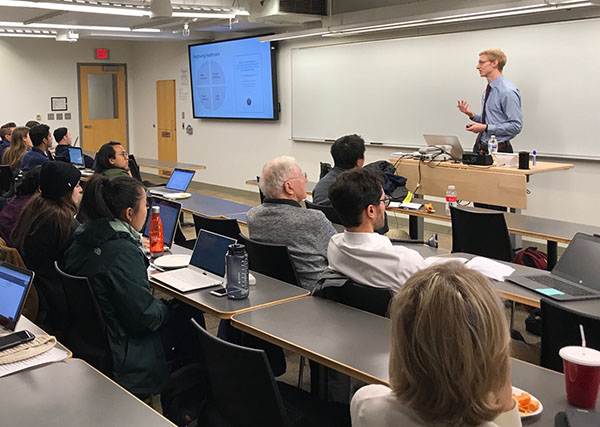 |
November 12, 2018:On Monday, November 12, 2018, attendees at the Providing Better Healthcare through Systems Engineering Seminar Series had the pleasure of listening to Dr. Corey Lester. Dr. Lester is a research assistant professor of clinical pharmacy at the University of Michigan College of Pharmacy whose research focuses on identifying and solving the challenges associated with medication use.
In his presentation, titled “Human Factors and Cognitive Engineering: A Pharmacist’s Perspective of Medication Safety,” Dr. Lester discussed the quality and safety of medication use as a function of health care provider and patient interactions focused on achieving optimal drug therapy outcomes. “Pharmacists use a patient-centered approach in collaboration with other providers on the health-care team to optimize patient health and medication outcomes,” Dr. Lester said. The presentation provided a broad understanding of the current landscape of pharmacies and medication in the US, as well as introducing future research focused on improving pharmacist work and medication safety through different cognitive models. Dr. Lester described how 2022 healthcare spending could reach up to $5.1 trillion, with World Health Organization estimates putting medication safety at $42 billion in annual costs. Dr. Lester’s exploration of the foundations of human factors and cognitive engineering models is helping pave the way for medication use research and improving pharmacist workflows. A video of Dr. Lester’s seminar is available to view. Join us next week on Monday, November 19 at 4:30 pm in 1123 LBME when Ruiwei Jiang presents “A Data-Driven Distributionally Robust Optimization Approach for Appointment Scheduling.” |
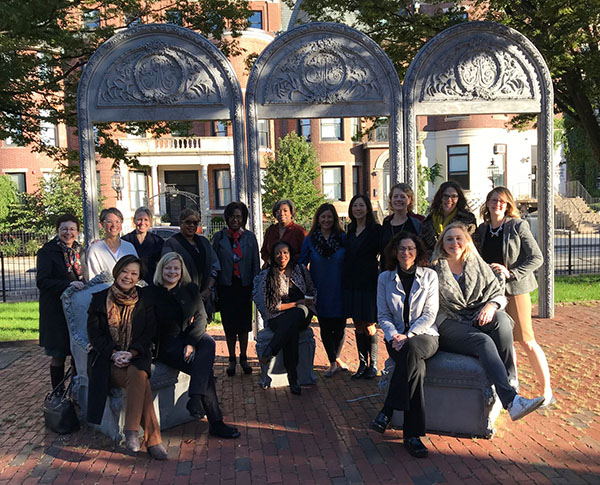 The Ansbacher Scholars in Boston. 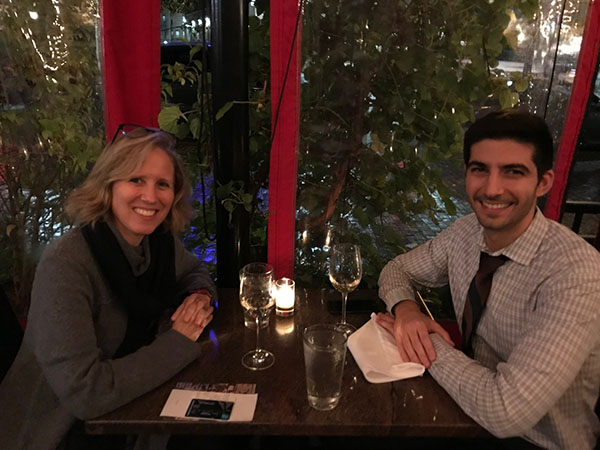 Amy Cohn with CHEPS alum Spyros Potiris. |
November 9, 2018:CHEPS Associate Director Amy Cohn recently spent several days in Boston as part of the Rudi Ansbacher Women in Academic Medicine Leadership Scholars Program. She was nominated for the program by Dr. Jim Bagian, CHEPS Director.
According to the University of Michigan Medical School, “This intensive 18-month leadership development program was initially designed to accelerate the development of women for senior positions in academic medicine and healthcare.” It is named after Dr. Rudi Ansbacher who was a Professor Emeritus of Obstetrics and Gynecology at the University of Michigan Medical School and showed a lifelong commitment to supporting and mentoring women in leadership roles. Professor Cohn says the program has been provided valuable opportunities for her to learn from the women in her cohort as well as share her experiences from her work at CHEPS and collaborating across the healthcare system. A variety of interesting speakers presented new ideas, many of which she hopes to incorporate into the work CHEPS does in the future. While in Boston, Professor Cohn also had the opportunity to meet with collaborators at MIT and Northeastern as well as have dinner with CHEPS alumnus Spyros Potiris. She was also excited to hear the last inning of a Red Sox game from outside Fenway Park. “The week truly embodied the spirit of Dr. Ansbacher and his vision to support women in their professional development,” said Professor Cohn. |
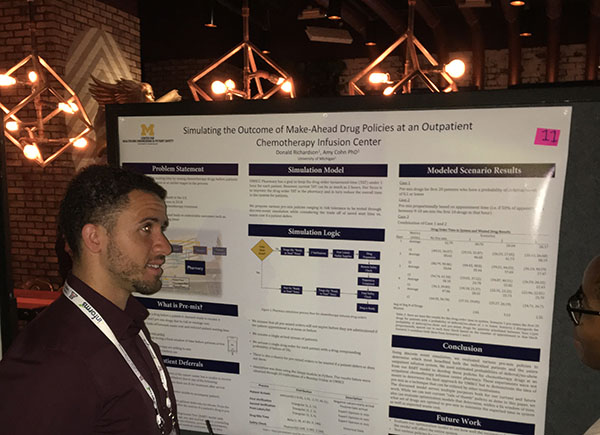 Donald with his poster at the MIF poster competition. |
November 7, 2018:CHEPS and Industrial and Operations Engineering student Donald Richardson took first place at the Minority Issues Forum (MIF) poster competition during the 2018 INFORMS Annual Conference. He tied with Destenie Nock, a PhD Candidate in Industrial Engineering and Operations Research at UMass Amherst.
Donald’s poster was titled Simulating the Outcome of Make-Ahead Drug Policies at an Outpatient Chemotherapy Infusion Center. According to Donald, “We have developed a discrete-event simulation tool to evaluate a variety of policies for selecting which drugs to pre-mix for outpatient chemotherapy patients. By making patient-specific drugs ahead of appointment time, patient waiting time can be reduced. However, this comes at the risk of incurring waste cost if the patient defers treatment after arriving for their appointment and their drug must be discarded. We utilize data from the University of Michigan Rogel Cancer Center to validate our methods.” Donald was honored to receive first place. He said, “I have been working closely with this project since I started here and I am extremely grateful and honored others find this work so impactful. I also am thankful for all of the past and current CHEPSters and medical professionals that have supported this work. MIF creates such a great community for minority scholars and others to come and support each other as we all navigate through graduate school and beyond.” |
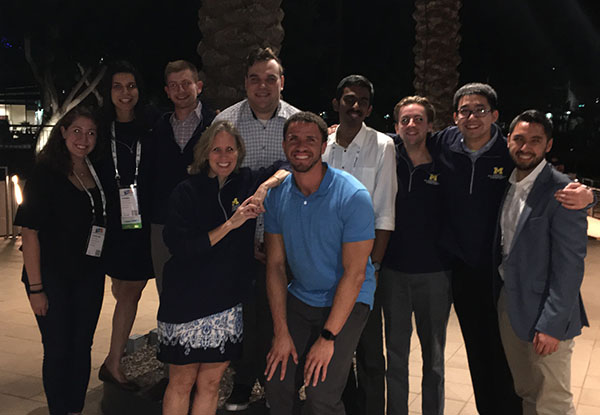 The CHEPS crew at INFORMS 2018. |
November 7, 2018:CHEPS took over Phoenix, Arizona, at the annual meeting of the Institute for Operations Research and Management Sciences (INFORMS), which took place November 3-7, 2018. The conference brings together researchers and practitioners in operations research, industrial engineering, and analytics to share cutting-edge work with colleagues.
Presentations by CHEPS included:
Masters student John Cima said of his INFORMS experience, “The wide variety of sessions allowed me to explore other aspects of research and try to make connections to the work we do at CHEPS.” Highlights of the conference included the Minority Issues Forum, which included posters by CHEPS PhD candidates Karmel Shehadeh and Donald Richardson. Donald’s poster won first place at the poster competition! Many CHEPSters also took a trip to the Arizona Science Center to gain some knowledge outside of conference sessions. [View photos from INFORMS 2018.] — Written by Adam VanDeusen, Industrial and Operations Engineering PhD Student |
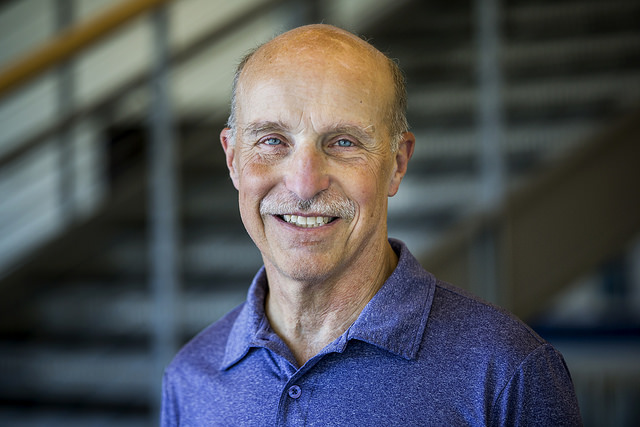 |
November 1, 2018, 2018:CHEPS Director Jim Bagian recently traveled to Washington D.C. to chair a panel at the “Seminar on the Next Generation of Patient-Focused Care: Healthcare System Integration for Coordinated Care.” The seminar was convened by the Board on Human-Systems Integration (BOHSI) of the National Academies, of which Dr. Bagian is a board member.
BOHSI is a standing committee under the National Academies of Sciences, Engineering, and Medicine. The National Academies has as one of its goals “to spur progress by connecting understandings of science, engineering, and medicine to advise national policies and practice.” The panel Dr. Bagian moderated at the November 1, 2018 seminar was titled “Challenges and Gaps for Optimizing Patient-focused Coordinated Care.” Dr. Bagian’s panel included representatives from the National Cancer Institute, the Centers for Medicare & Medicaid Services, the MedStar Health Research Institute, and the Agency for Healthcare Research and Quality. “We looked at care coordination and what are the factors that get in the way of optimal care coordination to benefit the patient and how to best use our resources for medical care for not just the individual patient but also the population writ large,” said Dr. Bagian. “This goal is often referred to as the ‘Triple Aim’. We’re looking particularly at care coordination because it’s the breakdown in communication among people, specifically the ones that both provide the care as well as those who receive care that is a major contributor to both waste of resources and more importantly to medically related patient harm.” The panel discussed the areas that need more exploration to make a difference in patient-focused coordinated care. Additionally, they looked for opportunities where human-systems integration and human factors approaches could address challenges and gaps in coordinated care. They explored specific questions such as “What are the main design, implementation, research and policy challenges that need to be addressed in order to significantly improve patient-focused coordinated care?” and “How do we engage various stakeholders in identifying challenges and gaps and developing solutions to support care coordination at the interface?” |
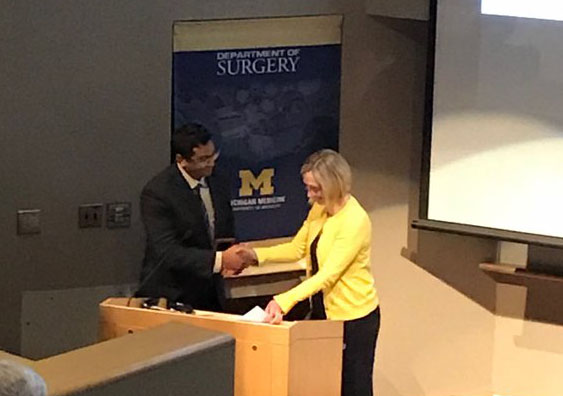 |
October 30, 2018:Congratulations to Rishindra M. Reddy, M.D., a long-time collaborator with us at CHEPS, who was recognized on October 30, 2018, as the José José Alvarez Research Professor of Thoracic Surgery.
The Alvarez family was affected by cancer in 2003 when José José Alvarez was diagnosed with stage four esophageal cancer. Mr. Alvarez came to Michigan Medicine to be treated by Mark Orringer, M.D., now the Cameron Haight Distinguished University Professor Emeritus of Thoracic Surgery. Throughout Mr. Alvarez’s treatment, the Alvarez family came to see Dr. Orringer as a member of their extended family. Though Mr. Alvarez died in 2005, the care that he received at Michigan Medicine meant a great deal to him and his family. His wife, Mrs. Magda Alvarez, said, “The whole team on the floor was great. We had classes on care, access to a dietician, psychologist … we felt safe. U-M has the expertise on all aspects of the disease and supports the whole family.” The family hopes that, through the establishment of the José José Alvarez Research Professorship in Thoracic Surgery, eventually no one will have to go through what Mr. Alvarez went through. Dr. Reddy is an Associate Professor at the University of Michigan Medical School and, according to Michigan Medicine, his “academic interests include improving outcomes for patients with thoracic cancers, molecular targeting for thoracic cancers, and resident and medical student education.” About his new appointment, he said, “There is a lot of history to this program. My goal is to live up to the legacy created by Dr. Orringer, my partners, and the faculty who led the way for us in surgery and thoracic surgery at the University of Michigan.” |
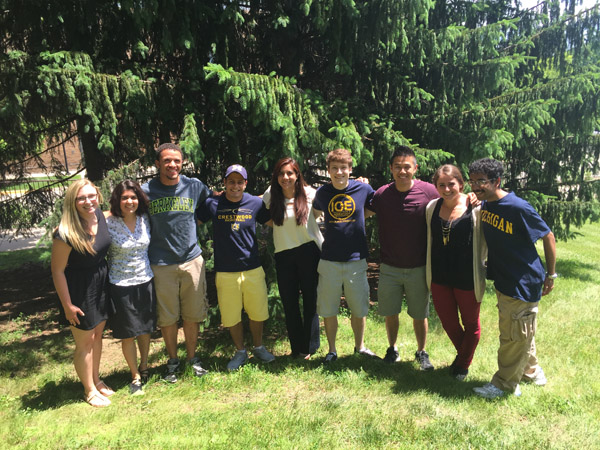 |
October 30, 2018:The Rogel Cancer Center recently unveiled their renovated blood draw station. The station features more private areas for patients and the new design has resulted in significant decreases in wait times. Jennifer Slater, Onsite Phlebotomy Services Manager, said, “[CHEPS and other collaborators] played a vital role in this project and helped make it a reality! With 12 chairs functioning, we’ve seen a dramatic drop in wait times and are receiving positive feedback from patients. Although we are still working out the workflows, staff find the space more conducive to their needs.”
The Center for Healthcare Engineering and Patient Safety (CHEPS) has been collaborating with the Cancer Center for many years and students and alumni who have contributed to the project were excited to hear they’d made a positive impact for the Cancer Center and its patients. CHEPS Associate Director Amy Cohn recently presented at the Rogel Cancer Center National Advisory Board meeting discussing many ways the two Centers could collaborate in the future. |
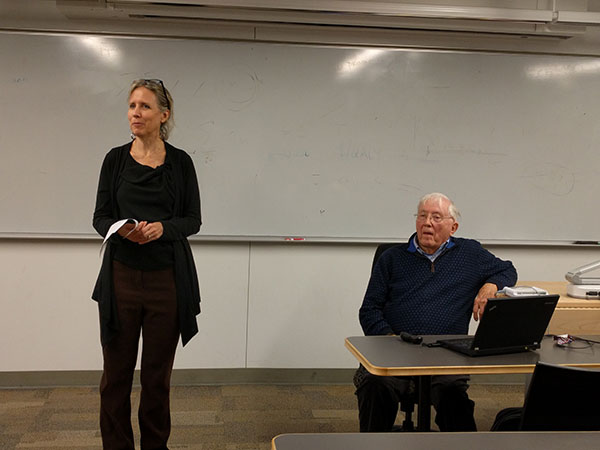 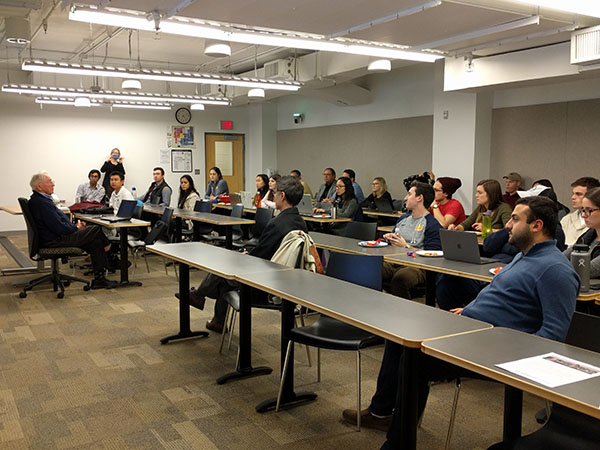 |
October 29, 2018:On Monday, October 29th, Dr. Walton Hancock spoke as part of the Providing Better Healthcare Through Systems Engineering Seminar Series. Dr. Hancock, a Professor Emeritus at the Department of Industrial and Operations Engineering and the School of Public Health Department of Health Services Management and Policy, spoke about quality and cost impacts of integrating hospital systems.
In his presentation, Dr. Hancock explained how hospitals in the US still need to optimize their operations especially in areas related to inpatient admissions, operating room scheduling, nurse daily staffing, ancillary staffing, outpatient and transport scheduling and hospital sizing as the current operations are inefficient and cost-rising. “There are more than 5000 hospitals in the US that have not fully utilized the tools that industrial engineering could provide to improve quality and reduce cost,” he added. The talk included examples and real cases drawn from his +40 year-experience of how industrial engineers could optimize hospital systems and enhancing the quality of care. There will be no seminar on Monday, November 5th. Please join us on Monday, November 12th at 4:30 pm in 1123 LBME when Corey Lester from the University of Michigan College of Pharmacy presents “Human Factors and Cognitive Engineering: A Pharmacist’s Perspective of Medication Safety.” |
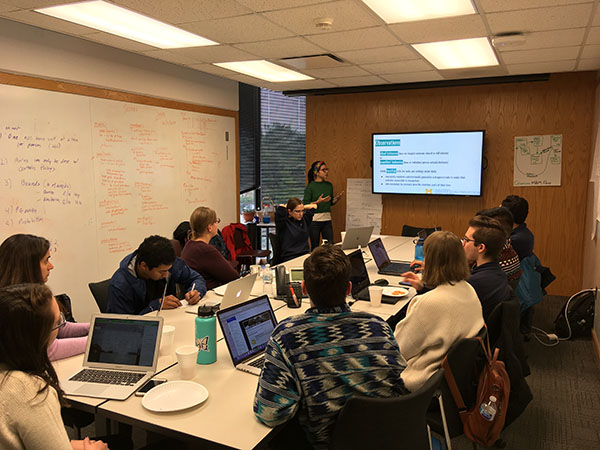 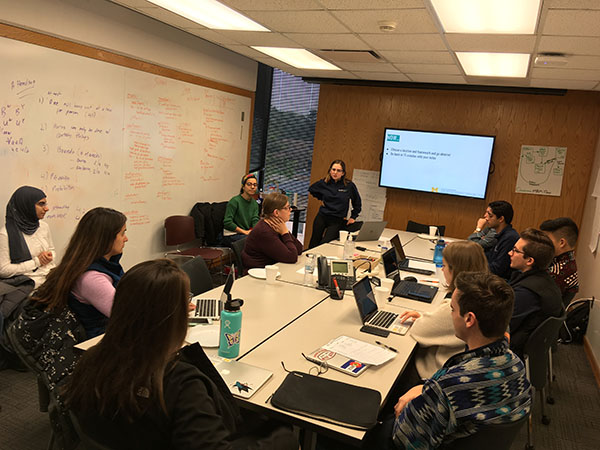 |
October 26, 2018:Maggie Steele and Ilka Rodriguez-Calero with the Center for Socially Engaged Design (C-SED) visited CHEPS on Friday, October 26th, to present a workshop titled “Performing Active Design Observations.” CHEPS students frequently perform observations in healthcare settings. Both new and returning CHEPS students benefited from the best practices and tools shared in the presentation.
Maggie, a masters student in the Design Science program and an Industrial and Operations Engineering (IOE) alum, and Ilka, a PhD student in Design Science, started the workshop by describing the roles observers can take and how those might affect the environment the observer is studying. They also emphasized the importance of differentiating between observations and interpretations. “Humans are so good at coming up with patterns. We need to be aware of those things we are inferring and look for more evidence,” said Ilka. She explained that interpretations can still be recorded during observations, but they should be clearly marked and not taken for fact. To illustrate some of these concepts, the presenters showed a video of a busy market with a train coming through the center and asked the workshop attendees to note what they observed. Participants then discussed their observation through the lens of what was fact, what was interpretation, and what might require further study. Ilka and Maggie went on to discuss some best practices for observation note taking and then introduced several observation frameworks which could be used as-is or adapted depending on the project. “I didn’t know the frameworks before today,” said Jordan Goodman, IOE undergraduate. “I think having that will be really helpful, because I’ll know what to look for.” Finally, the presenters asked the students to walk outside and observe at a North Campus bus stop or location of their choosing and to report back. This exercise helped students put the concepts they had just learned to use. Many used an observation framework to take their notes. Discussion of these observations led into advice on how to synthesize observation data and translate it into useful information for your project. The afternoon concluded with a question and answer session in which Ilka and Maggie offered tailored advice on note taking and other subjects. Many thanks to C-SED, Ilka, and Maggie for the enlightening presentation! |
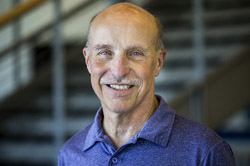 |
October 25, 2018:CHEPS Director Jim Bagian will be moderating a panel at the upcoming The National Academies of Sciences, Engineering, and Medicine “Seminar on the Next Generation of Patient-Focused Care: Healthcare System Integration for Coordinated Care.” The seminar is hosted by the Board on Human-Systems Integration (BOHSI), of which Dr. Bagian is a board member.
The seminar takes place on November 1, 2018. Dr. Bagian will host a panel titled “Challenges and Gaps for Optimizing Patient-focused Coordinated Care.” According to BOHSI, “The panel will discuss the main areas that need to be further explored in order to make a difference for patient-focused coordinated care. The panel will also review opportunities for human-systems integration and human factors approaches to address the challenges and gaps.” The seminar will be held at the Keck Center in Washington, D.C. and there will also be an opportunity to view the seminar remotely. For more information about the seminar and to register or view remotely, visit http://sites.nationalacademies.org/DBASSE/BOHSI/DBASSE_189053. |
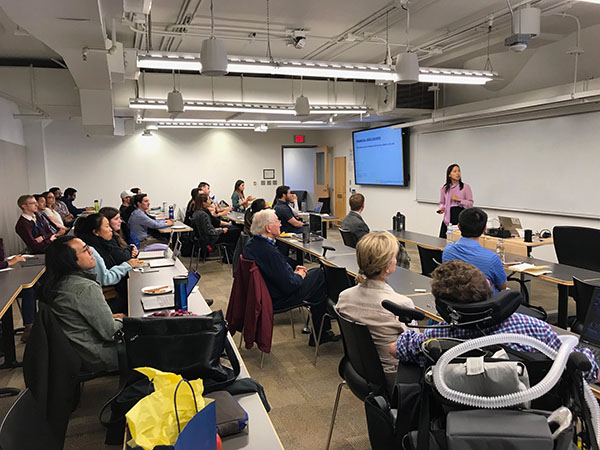 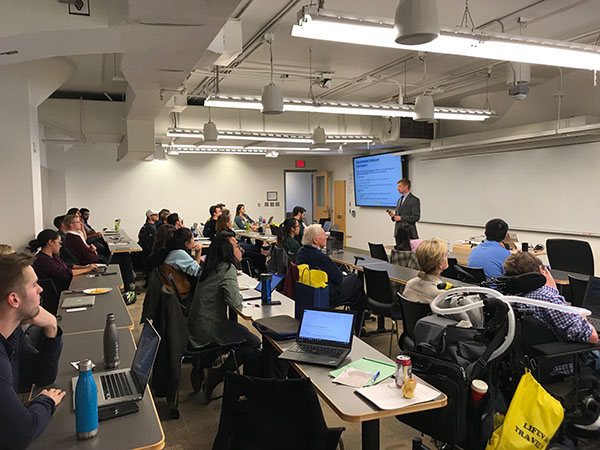 |
October 22, 2018:On Monday, October 22nd, attendees at our Providing Better Healthcare through Systems Engineering Seminar Series had the pleasure of hearing Dr. April Maa, Associate Professor at Emory University School of Medicine in the Department of Ophthalmology, and Adam VanDeusen, PhD student in Industrial and Operations Engineering at the University of Michigan, share their work on improving eye care for the VA in Georgia.
According to the presenters, “Many patients, including United States veterans, face barriers to appropriate, affordable healthcare.” Dr. Maa and VanDeusen’s talk provided an interesting look at the optimization of telemedicine to provide better screenings for severe eye diseases such as glaucoma and diabetic retinopathy. They presented their work to optimize resources such as clinical space to make eye-care more convenient for veterans in Georgia. They discussed the VA’s Technology-based Eye Care Services (TECS) program, in which trained technicians perform visual disease screenings typically conducted by ophthalmologists. Slides and a video of the presentation are available for viewing. Join us on Monday, October 29th when Walt Hancock presents “Integrating Hospital Systems: Quality and Cost Impacts.” |
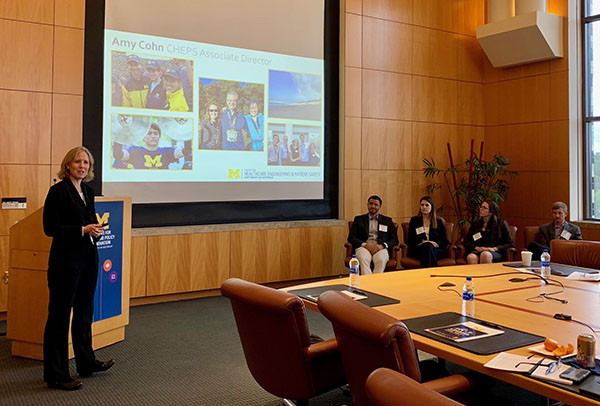 |
October 12, 2018:Donald Richardson, Andrea McAuliffe, Sheridan Tobin, and Adam VanDeusen along with CHEPS Associate Director Amy Cohn spoke at the October 12th meeting of the Institute for Healthcare Policy & Innovation (IHPI) National Advisory Board Meeting. The group introduced themselves and CHEPS to the board and spoke about utilizing engineering tools and skills to address system complexity in healthcare.
“One of the University of Michigan’s greatest strengths is its commitment to interdisciplinary collaboration,” said Adam VanDeusen, one of the student presenters. “This collaboration is exemplified in groups like IHPI, which not only brings together diverse faculty members from across the institution but also encourages meaningful student engagement in pursuit of important health services research.” Amy Cohn began the CHEPS presentation by introducing herself and the Center. Donald Richardson, a PhD student in Industrial and Operations Engineering (IOE), discussed working to optimize processes at the Rogel Cancer Center and ICU process-flow improvement. Andrea McAuliffe, a Master’s student who is pursuing a dual-degree from the School of Public Health (SPH) and IOE with a concentration in Healthcare Engineering and Patient Safety, spoke about work with the Rogel Cancer Center, the School of Dentistry, and the Office of Patient Experience. Sheridan Tobin, undergraduate SPH student, spoke about working with Precision Health to improve recruitment for diverse patients in genetic research. Finally, Adam VanDeusen, IOE PhD student, spoke about improving access to healthcare as well as his work with the Depression Center on workplace mental health. Thank you to our collaborators at IHPI for giving us the opportunity to share the work CHEPS is doing with their National Advisory Board! |
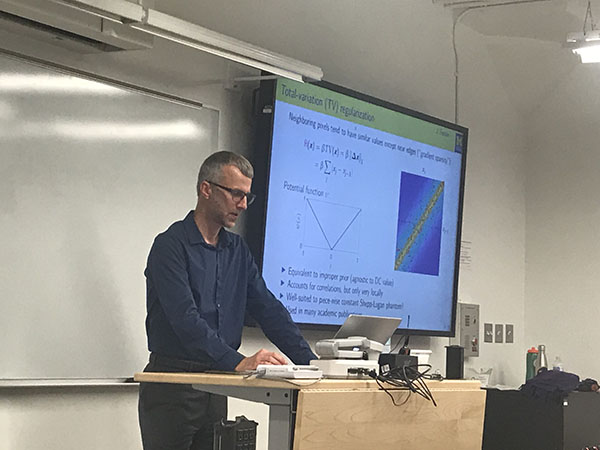 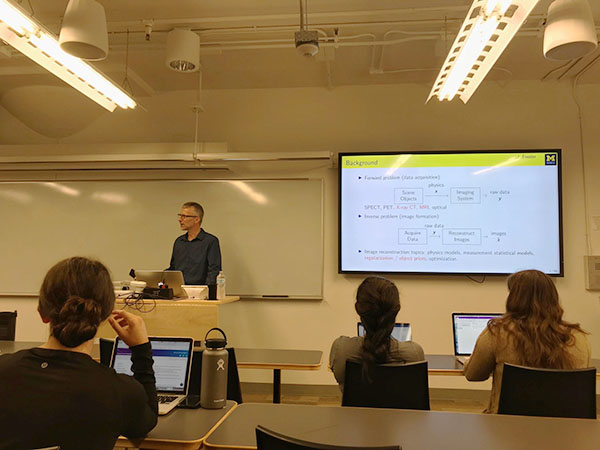 |
October 8, 2018:This week attendees at our Providing Better Healthcare through Systems Engineering Seminar Series had the pleasure of hearing Dr. Jeff Fessler present his research on “Medical Imaging Inverse Problems Using Optimization and Machine Learning.” Dr. Fessler is the William L. Root Professor of EECS at the University of Michigan. His research interests are in statistical aspects of imaging problems, and he has supervised doctoral research in PET, SPECT, X-ray CT, MRI, and optical imaging problems.
Medical imaging systems like X-ray CT and MRI scanners produce raw data that must be processed by inverse problem solvers to yield interpretable images. The design of the image reconstruction algorithm can greatly affect image quality, and hence diagnostic accuracy, affecting patient health and safety. The research presented mainly focused on reducing the doses given to patients when they receive X-ray CT or MRI scans. This is great since reducing radiation received is definitely preferred, and there is less of a chance the patient will move around since the scan will not take as long. However, since the dosage is being reduced, the images are of much lesser quality. The methods Dr. Fessler and his research team have designed bring the images to an equal quality of those with the original doses of radiation, but the time the algorithms take on the hardware provided have proved to be much too slow. Whereas before the images could be obtained in mere seconds or minutes, their algorithms take upwards of a half hour to an hour. When these images are needed as soon as possible, this simply will not suffice, especially considering the backup it can cause in the hospital. By exploring different optimization algorithms and machine learning methods, Dr. Fessler’s research team is finding quicker ways to obtain better images while reducing scan time. Dr. Fessler’s slides are available to view. There will be no seminar on Monday, October 15th due to Fall Break. Join us on Monday, October 22nd when April Maa and Adam Van Deusen present “Systems Engineering and Ophthalmologic Telemedicine: Preventing Blindness.” |
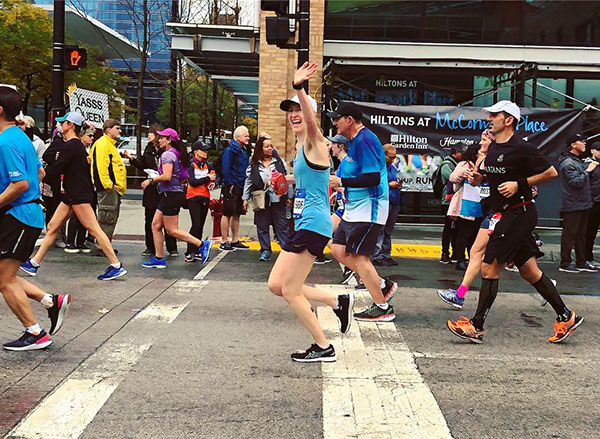 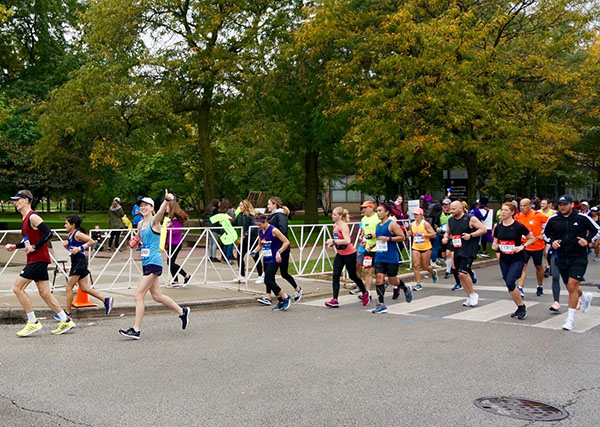 |
October 7, 2018:CHEPS alum Sarah Bach ran the Chicago Marathon on October 7, 2018. She said that, despite a rainy day, the race was still a ton of fun! She did her longest training run of 20 miles over CHEPS Symposium weekend in Ann Arbor. Sarah mentioned that current CHEPS PhD student, Adam VanDeusen, deserves a shout out for running part of the 20-mile training run with her that weekend. And she thanks all of her CHEPS friends that wished her luck on race day!
Sarah was at CHEPS from September 2013 to December 2014 and is currently working as an Analytics Engineer at University of Chicago Medicine. Congrats on completing your marathon, Sarah! |
 |
October 3, 2018:“Creating resident shift schedules under multiple objectives by generating and evaluating the Pareto frontier” by CHEPS alum Young-Chae Hong along with Amy Cohn, Marina A. Epelman, and Aviva Alpert has been published in Operations Research for Health Care and is now available online. As described by the authors, “In this paper, we consider the problem of building monthly schedules for medical residents who provide shift coverage in a pediatric emergency department. In particular, given the multi-criteria nature of the problem, we focus on generating Pareto-dominant schedules from which the scheduler (typically, a Chief Resident) can choose.”
Young-Chae graduated from The University of Michigan with PhD in Industrial and Operations Engineering in 2017 and is now working at Ford Motor Company as a Data Scientist on their Supply Chain Analytics team. Congrats on the paper publication, Young-Chae! |
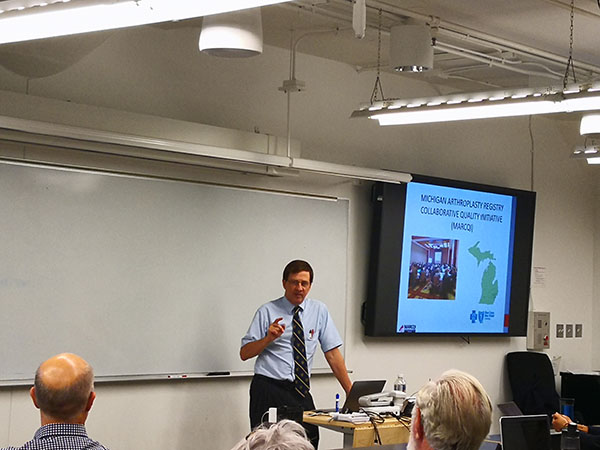 |
October 1, 2018:Dr. Richard Hughes presented “‘Consumer Reports’ for Hip and Knee Replacement Implants Based on a Statewide Registry” for the third lecture of the Providing Better Healthcare through Systems Engineering Seminar Series on Monday, Oct. 1st. Dr. Hughes is a professor of Orthopaedic Surgery at the University of Michigan and the co-chair of Michigan Arthroplasty Registry Collaborative Quality Initiative (MARCQI). He also holds appointments in Industrial and Operations Engineering and Biomedical Engineering.
Dr. Hughes discussed the potential risks associated with hip replacement surgery and why it is important to apply quality improvement techniques, which are widely used in industry, to the healthcare system. MARCQI has built a statewide registry of hip and knee replacement procedures to provide data and analysis for hospitals, ambulatory surgery centers, and surgeons. This has created an opportunity to improve the quality of care provided to hip and knee replacement patients through collaboration and sharing of best practices. By answering questions regarding clinical indications, surgical techniques, perioperative management, and the appropriateness of total joint replacement and revision procedures, MARCQI is able to reduce the risk and improve the effectiveness of hip replacement surgery. Dr. Hughes presented MARCQI’s first annual report that provides survivorship data on hip and knee replacement implants, serving as a “consumer reports” guide for surgeons and patients to use in selecting devices. Dr. Hughes is an engaging and enthusiastic speaker; his lively presentation helped students, staff, and faculty from across the University who attended the presentation gain a better understanding of this topic. Join us next week when Jeff Fessler presents “Reducing Dose in X-ray CT by Fast Optimization Algorithms and Machine Learning” on October 8th at 4:30 pm in 1123 LBME. |
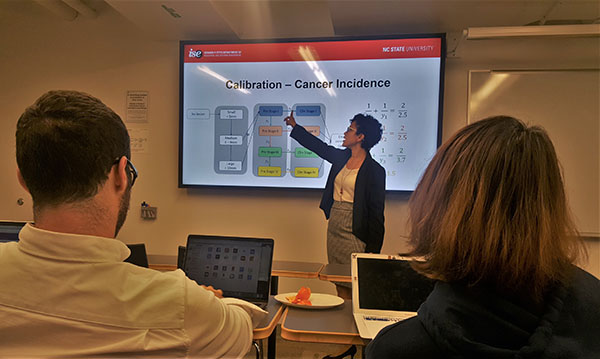 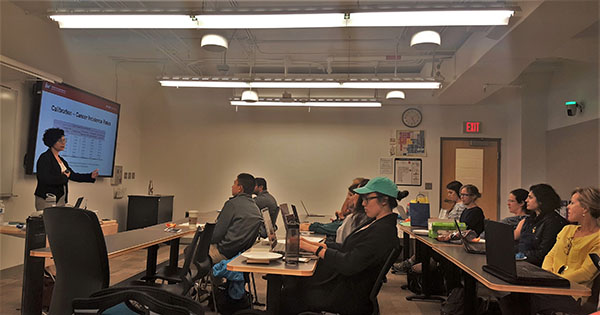 |
September 24, 2018:Monday, September 24th marked the second lecture in the 2018 Providing Better Healthcare through System Engineering Seminar Series as Dr. Maria E. Mayorga presented “Using Systems Engineering to Inform Public Health Policies: A Simulation Model to Assess the Impact of Insurance Expansion on Colorectal Cancer Screening.”
Dr. Mayorga visited from North Carolina State University where she is a Professor of Personalized Medicine in the Edward P. Fitts Department of Industrial and Systems Engineering. She is acclaimed for her work to incorporate patient choice into predictive models of health outcomes. In her presentation, Dr. Mayorga discussed her method for creating an individual-based simulation to test the effects of public policies on colorectal cancer screening rates. Her simulations were specifically used to analyze the possible effects of the Affordable Care Act on the colorectal cancer screening rates for North Carolina residents. Dr. Mayorga entertained questions from students, staff, and faculty from across the University who attended the presentation. Dr. Mayorga’s slides as well as a video of her seminar are available to view. Join us next week when Richard Hughes presents “‘Consumer Reports’ for Hip and Knee Replacement Implants Based on a State-wide Registry” on October 1 at 4:30 pm in 1123 LBME. |
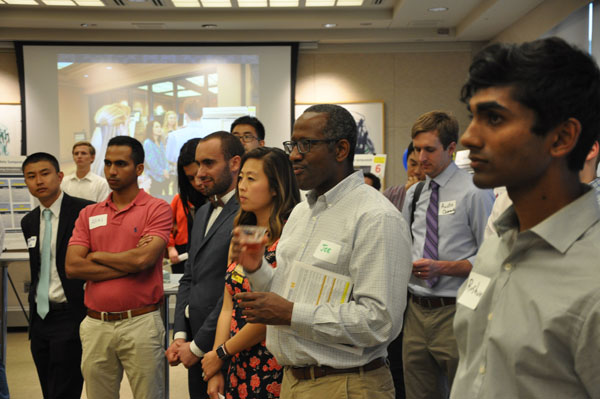 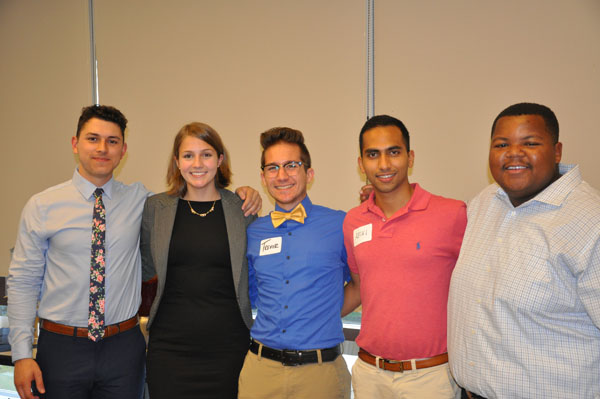 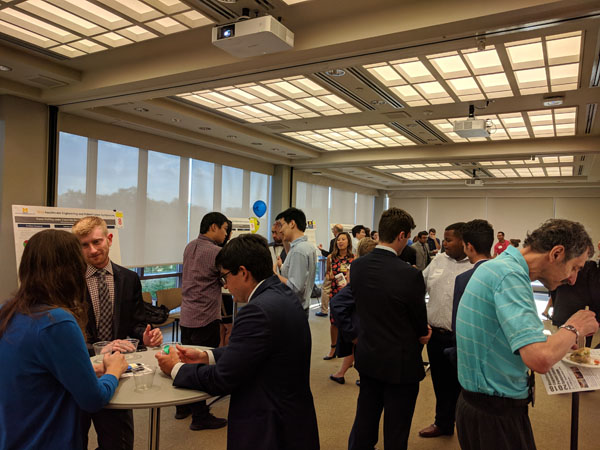 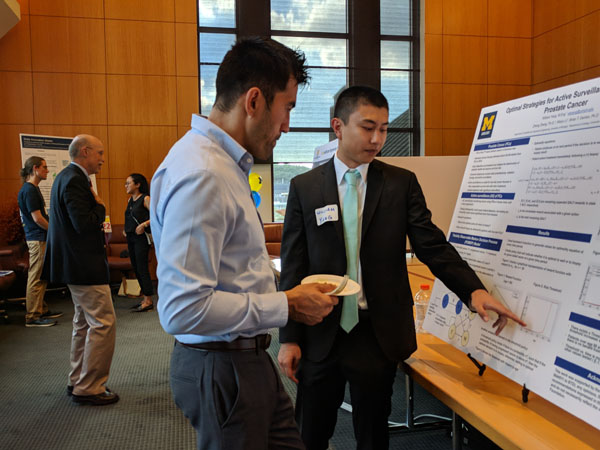 |
September 17, 2018:The annual Healthcare Engineering and Patient Safety Symposium took place on Monday, September 17, 2018, in the Lurie Engineering Center. The symposium attracted approximately 200 guests from the College of Engineering, School of Public Health, School of Nursing, Michigan Medicine, the VA Health System, the Institute for Healthcare Policy and Innovation, and many others.
Presenters, many undergraduate and graduate students, shared twenty-four research posters and six informational posters. Many familiar faces were in attendance as well. CHEPS alumni mingled in the poster rooms. They were excited to reconnect with old friends, and to see how their work has evolved over the years. Jim Bagian and Amy Cohn, CHEPS director and associate director respectively, gave brief remarks welcoming guests and alumni and praising the hard work of the students. They both made special thanks to the Seth Bonder Foundation for the continuous support of CHEPS and its students. Merrill Bonder, Executive Director of the Foundation, was there to witness how the Foundation support has resulted in fruitful research and health innovation. Further, this year Peter Cohn announced the audience choice best-poster award winners in a creative way. Standing on top of a table, he announced “A Dynamic Approach to Improve Chemotherapy Pre-mix Policies” by Matthew See, Donald Richardson, Hwon Tak, and Amy Cohn as the first place audience choice winner. “Evaluating Dental School Faculty Clinical Supervision Using Simulation” by Carol Anne Murdoch-Kinch, Vidya Ramaswamy, Romesh Nalliah, Palaniappan Chellappan, Jordan Goodman, Lauren Hirth, Jakob Kiel-Locey, Riley McKeown, Adam VanDeusen, Zhipeng Xu, and Amy Cohn took second place. CHEPS alumna Elizabeth Olin won the “best tweet” prize. All of the winners were rewarded with Askanya chocolates. Askanya, the the first bean-to-bar chocolate factory in Haiti, is run by a University of Michigan IOE alumna. Year after year, the CHEPS family keeps growing, attracting more high caliber students and interdisciplinary research collaborators from within and outside the university, all enthusiastic and set to serve healthcare. Hanan Al-Awadhi, a HEPS Master’s student, describes this by saying “CHEPS brings good people together!” [View photos from the Symposium.] |
 |
September 14, 2018:As part of the annual CHEPS Symposium weekend, the CHEPS family gathered for dinner and conversation at Conor O’Neill’s. Not only was the food delicious, but there was also an impressive turnout, including current students, staff, alumni, and friends of CHEPS. Many CHEPS alumni traveled back home to Ann Arbor for the occasion and enjoyed reconnecting with previous team members and coworkers. Current students also had the opportunity to meet the alumni and learn about their careers and lives post-CHEPS. It was apparent at the event that CHEPS fosters lasting friendships as well as meaningful networks.
The students would especially like to give a special thanks to Gene and Liz for enabling the dinner at Conor O’Neill’s to happen! |
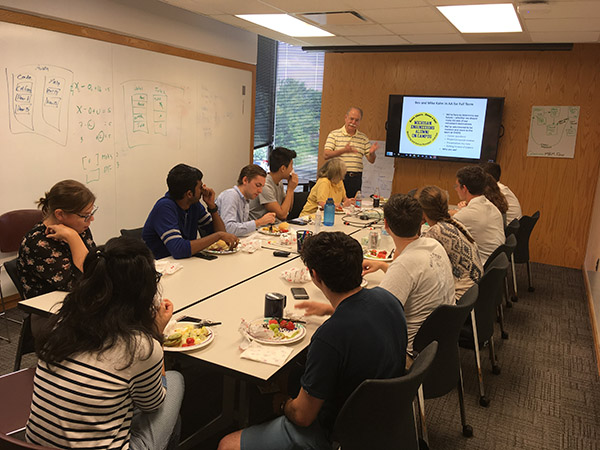 |
September 14, 2018:At this week’s Lunch and Learn, University of Michigan alumni Mike and Bev Kahn talked to us about their extensive backgrounds in IOE, Systems Engineering, Data Quality, and communication. After the presentation, they offered advice and insight on topics including making a memorable impression at the upcoming career fair. They also both graciously offered their time to provide feedback on student poster presentations prior to the CHEPS Symposium. A huge thank you to Mike and Bev for giving back to University of Michigan students! — Written by Jordan Goodman, Industrial & Operations Engineering Undergraduate |
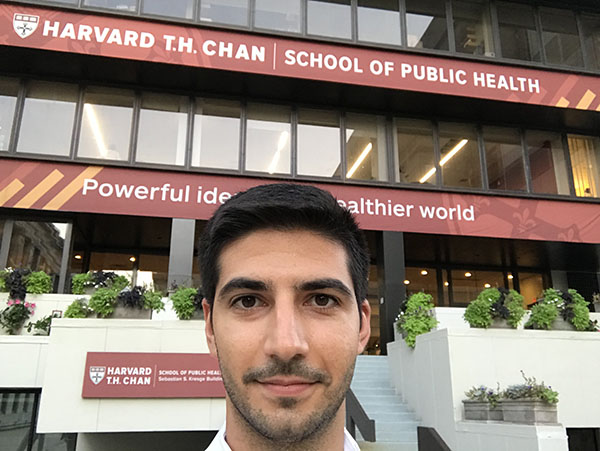 |
September 13, 2018:CHEPS alum Spyros Potiris has gone back to school! Specifically, he’s joined the MPH program in Health Management at the Harvard School of Public Health. He’s pictured on his first day in the program.
Spyros graduated from UM in December 2013 with a master’s degree in Industrial and Operations Engineering and a concentration in Healthcare Engineering and Patient Safety through CHEPS. For the past 4 years, Spyros has held various positions at the Dana-Farber Cancer Institute in Boston. Spyros told us earlier this summer that, “Industrial Engineers bring a unique approach and skill set to address major challenges in healthcare. Combining my IE background with a strategic perspective on healthcare operations and a better understanding of healthcare policy gained through the MPH program will allow me to guide institutions in delivering safe, affordable, accessible and efficient care.” Best of luck in your new program, Spyros! |
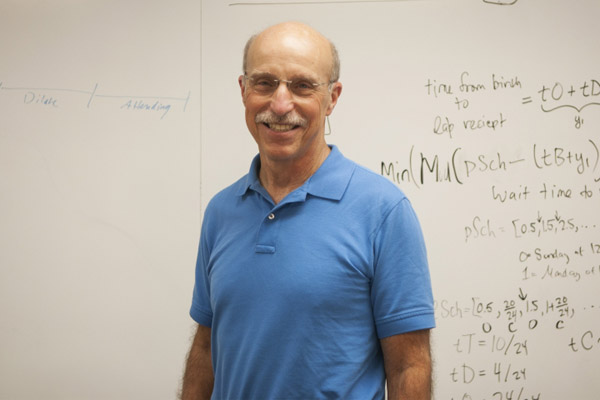 |
September 10, 2018:The Providing Better Healthcare through Systems Engineering Seminar Series kicked off on Monday, September 10, featuring a talk from James Bagian titled, “Patient Safety Challenges and Ways to Overcome them with a Systems Approach.” Dr. James P. Bagian is the Director of the Center for Healthcare Engineering and Patient Safety (CHEPS) and is a Professor in the Department of Anesthesiology in the Medical School and the College of Engineering at the University of Michigan. The seminar was attended by members from across the University community, including the College of Engineering, Medical School, and School of Public Health.
Dr. Bagian spoke about Route Cause Analysis and Action (RCA^2). This is a technique that he developed during his time at VA to increase patient safety. This is a systems approach to finding problems in healthcare delivery as well as techniques to find a solution. The talk also touched on ways to build a culture of safety within a health organization. Please join us next week on September 17th for the 2018 Symposium on Healthcare Engineering and Patient Safety starting at 5pm on the 3rd and 4th floors of the Lurie Engineering Center. |
 |
September 10, 2018:Gian-Gabriel Garcia, IOE PhD student and CHEPS collaborator, has been awarded the INFORMS Health Applications Society (HAS) Bonder Scholarship. According to INFORMS, “The purpose of the scholarship is to promote the development and application of process modeling and operations research analyses to healthcare design, delivery and operations by identifying young and promising researchers during their doctoral studies.”
“I feel honored to receive this prestigious award among the other very qualified candidates,” said Gian-Gabriel. “I am passionate about applying Operations Research to important healthcare problems and I hope that this award enables me to expand my professional network and perform this type of research for years to come. I am grateful for the guidance I’ve received from others, especially from my advisor Dr. Lavieri and collaborator Dr. Broglio, who have been critical in helping me to identify important problems and developing impactful solutions to those problems.” Gian-Gabriel provided the following description of his research. “Traumatic Brain Injuries (TBIs) present a significant public health challenge in the U.S., with over 25 million TBIs resulting in death or hospitalization annually. Recently, the focus has sharpened on concussions, the most common type of TBI. Concussions are postulated to develop into serious long-term consequences, including cognitive impairment, depression, and neurodegenerative disease. While concussion management plays a critical role in mitigating the short- and long-term effects of concussion, it is still in its formative stages which leads to an over-reliance on physician experience. Therefore, the focus of my research are to address major challenges in concussion management by (1) using large observational data sets to design guidelines for concussion diagnosis decisions and (2) determine the optimal timing for return to pay/work when the clinical data includes self-reported symptoms which may be biased by patient objectives.” Congratulations, Gian-Gabriel! |
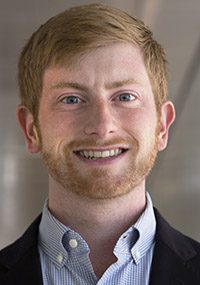 |
September 4, 2018:CHEPSter and Industrial and Operations Engineering (IOE) PhD student Adam VanDeusen is the winner of the 2018 Seth Bonder Fellowship in IOE. The fellowship was originally established by Dr. Seth Bonder and continues through the generosity of The Seth Bonder Foundation. The award supports one IOE graduate student each year who is conducting applied operations research.
“I am very grateful to the Bonder Foundation for the continued support for advancing the field of applied operations research,” said Adam. “The Bonder Fellowship will be extremely helpful in progressing my research to improve access to healthcare services. Access to care is a critical public health issue and our interdisciplinary approach can help inform policy decision-making in this area.” Congratulations, Adam! |
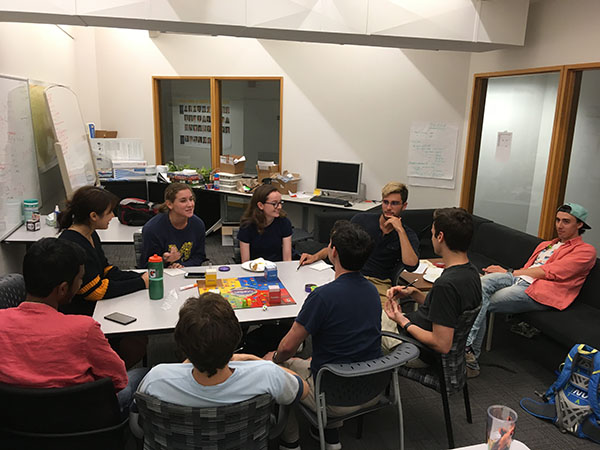 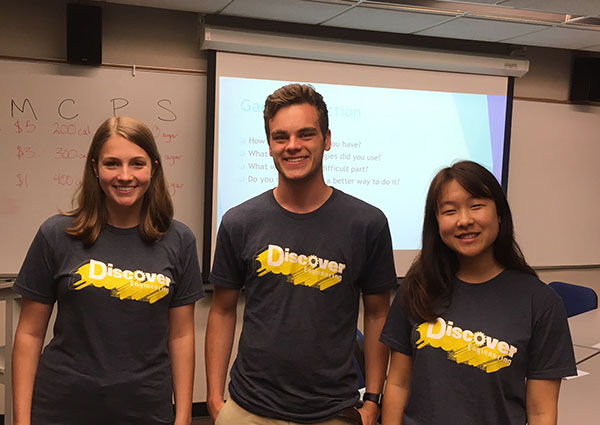 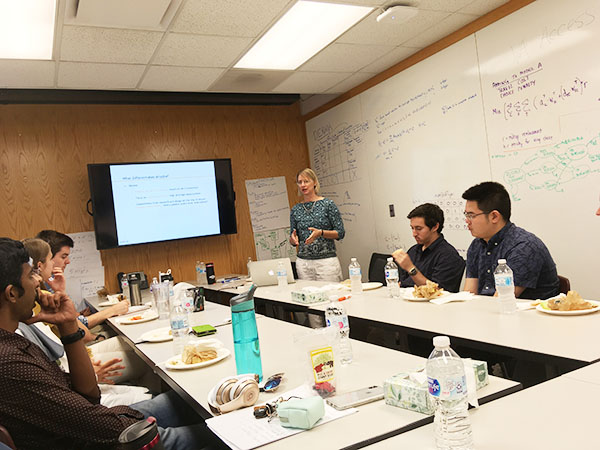  |
August 31, 2018:August sees the end of a productive and fun summer here at CHEPS. On August 1st, we enjoyed a visit from Louise Knabe, Chief Project Officer of Ariadne Labs. Her full-day visit included a Lunch & Learn, sitting in on project team meetings, and meetings with CHEPS students, faculty, and staff.
CHEPS students also enjoyed the opportunity to volunteer at Discover Engineering this month. They ran the Resident Shift Scheduling Game for students from 8th to 10th grade. Anna Learis noted that it was a similar program that sparked her interest in Industrial and Operations Engineering when she was in high school. “By introducing high school students to how IOE can make a real-world difference, I hope some of them found the same interest in the major that I have,” she said. In addition, CHEPS and the UofM INFORMS chapter held a meeting of the Healthcare Operations Research (OR) Journal Club. This month they discussed “Ambulance redeployment and dispatching under uncertainty with personnel workload limitations.” Students also had the chance to attend Researchpalooza, which was hosted by the Michigan Medical School Office of Research. The event featured offices and labs from throughout the Medical School and University. The event also included free ice cream for all attendees which was much appreciated given how hot August has been this year in Michigan! CHEPS isn’t just a place to work. In addition to all their project work, CHEPSters enjoyed spending time together outside of the office, especially on the traditional Social Thursdays. As Jakob Kiel-Locey put it, “It’s just awesome to meet so many other motivated undergrads and a ton of people within IOE and other majors. And we always have a good time together so it’s kind of like hanging out with a bunch of your friends and you’re doing cool stuff.” In early August, students enjoyed several rounds of volleyball at the North Campus volleyball court. August also saw many students heading off for summer vacations before the start of the fall semester. However, there weren’t too many goodbyes because we’ll be seeing a lot of familiar faces in September! We did enjoy a summer wrap-up party with ice cream, snacks, and a pretty competitive game of Cranium. It’s hard to believe next week is September but we’re looking forward to starting a new semester of hard work, fun, and some exciting events like our Healthcare Engineering and Patient Safety Symposium on September 17th and our Seminar Series which begins on September 10th with a talk from CHEPS Director Jim Bagian. |
 |
August 9, 2018:CHEPSters enjoyed several rounds of volleyball on a sunny summer afternoon. Taking advantage of the beautiful weather, the team made their way down to the beach volleyball court on the North Campus Grove and enjoyed a friendly competition. CHEPSters Jordan Goodman and Sheridan Tobin shared the MVP honors. HEPS alum and staffer Billy Pozehl joined the fun and made some great plays. — Written by Jakob Kiel-Locey, Industrial & Operations Engineering Undergraduate |
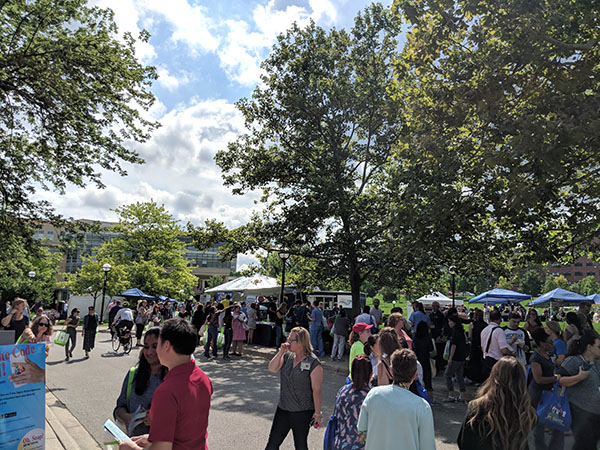 |
August 8, 2018:CHEPS students had the opportunity to attend Researchpalooza, which was hosted by the Michigan Medical School Office of Research. Representatives from 91 offices and labs had tables at the event. Attendees were able to learn about the work that takes place at the different departments within the medical school and beyond. CHEPS students visited tables of some of the departments they currently work on projects with, like the Dentistry and Pediatrics, as well as other departments like Bioinformatics and Molecular Imaging (to name a few). There was even free ice cream for everyone who participated. — Written by Theodore Endresen, Industrial & Operations Engineering Undergraduate |
 |
August 5, 2018:Roshun Sankaran joined CHEPS as an undergraduate pre-med student in 2014 and continued to work with CHEPS as he pursued a master’s in Public Health. On Sunday, August 5th, 2018, the CHEPS alum recognized the start of his first year of Medical School at The University of Michigan with a White Coat Ceremony. According to the Medical School, “This tradition, known as the White Coat Ceremony, marks an educational milestone: Entry into clinical medicine. Our incoming medical students gather in the presence of their families, mentors, guests, faculty members and leaders of the Medical School to formally receive the cloak of their future profession — the white coat.”
Roshun is pictured with his parents who attended the ceremony to help him celebrate his achievements. CHEPSters will have a chance to congratulate Roshun in person in September at our alumni reunion and Symposium on Healthcare Engineering and Patient Safety. |
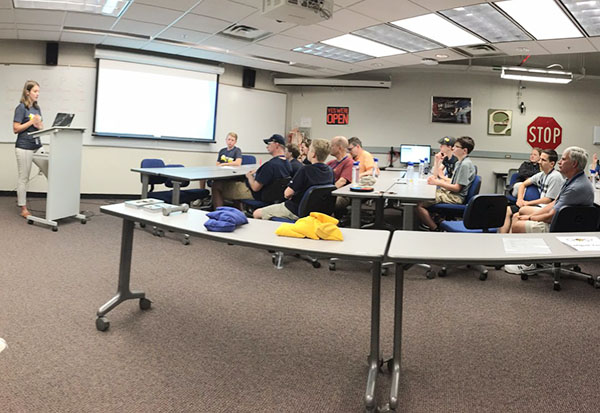  |
August 3, 2018:CHEPS students had the opportunity to volunteer this week at Discover Engineering. The program offers students from 8th to 10th grade the opportunity to explore a variety of engineering disciplines through engaging, hands-on activities. CHEPS students ran the Resident Shift Scheduling Game as part of the Industrial and Operations Engineering track. Students in the track also had the chance to learn about ergonomics and get a tour of the biomechanics lab.
“It was great to see the students developing strategies for filling out the schedule by hand,” said Riley McKeown. “We were very impressed by the progress some of the students were able to make in filling out the schedule, and the students were even more impressed when they saw how quickly the program was able to create a schedule with no errors!” Anna Learis truly appreciated the chance to share part of what she does at CHEPS with the visiting students. She said, “Volunteering with Discover Engineering is extremely personal to me because it was through a similar camp that I learned about IOE and began framing my college search around a strong IOE program. By introducing high school students to how IOE can make a real-world difference, I hope some of them found the same interest in the major that I have!” |
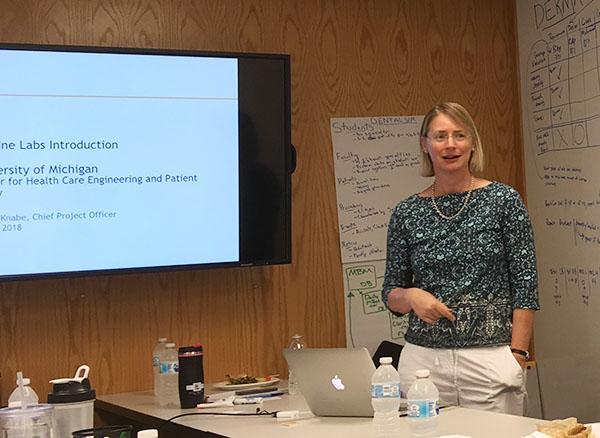  |
August 1, 2018:Ariadne Labs is named after Greek mythological figure Ariadne, who is known for helping Theseus through a labyrinth by giving him a ball of string he could use to track his path. CHEPS had the pleasure of hosting Louise Knabe, Chief Project Officer of Ariadne Labs, on Wednesday, August 1, 2018. Louise said the fictional goddess of the labyrinth is a fitting comparison because “taking an incredibly complex problem and trying to find a really simple solution” is the goal at Ariadne Labs.
According to Ariadne’s website, “Ariadne Labs focuses on the most critical moments in people’s lives: childbirth, surgery, and serious illness care. Our mission is to create scalable health care solutions that deliver better care at the most critical moments in people’s lives, everywhere.” CHEPS Associate Director Amy Cohn had the opportunity to visit Ariadne earlier this year. Louise’s visit was an excellent opportunity to continue building a relationship between Ariadne and CHEPS. Louise had a full day at CHEPS which included meetings with CHEPS students and collaborators, participating in the Glaucoma team’s weekly meeting, and delivering a lunchtime seminar. Her seminar began with an introduction to Ariadne and her role there. As Chief Project Officer, Louise does whatever needs to be done to make the organization run. She and her team work to make sure Ariadne delivers on all commitments in the most effective way possible. As an example of Ariadne’s work, Louise described the development and dissemination of their Safe Surgery Checklist. She emphasized that their process is to 1.) identify the problem, 2.) design a simple solution, 3.) test the solution, and 4.) spread the solution. Their vision is the global adoption of their solutions and to come up with solutions that can be workable and adaptable for every patient, every time, everywhere. Like CHEPS, Ariadne takes a multi-disciplinary approach, involving experts from a variety of specialties from around the world at each step in their process. After her presentation, Louise had a Q&A and conversation with CHEPS students which included a discussion about how Ariadne Labs could further incorporate engineers into their work. At the end of her visit, Louise said that she truly appreciated the collaborative spirit and focus on problem-solving she encountered at CHEPS. CHEPSters thank Louise for a day of productive and intellectually stimulating conversations. We hope CHEPS and Ariadne can continue to connect. |
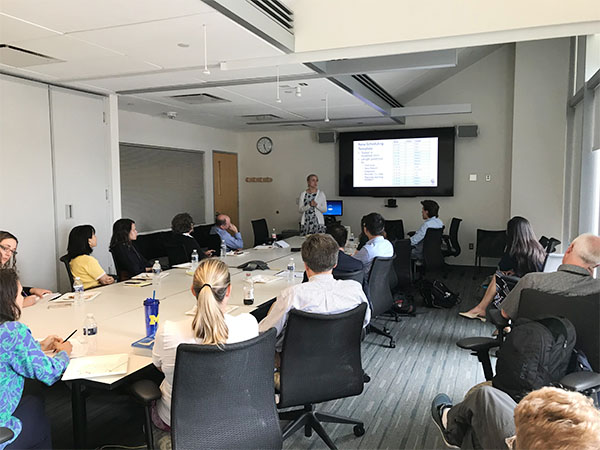 |
August 1, 2018:The CHEPS Glaucoma Team was invited to a Center for Eye Policy and Innovation (CEPI) presentation by Michelle Hribar at the Kellogg Eye Center. Michelle works at Oregon Health Science University as an Assistant Professor and has a master’s in Industrial and Operations Engineering and a PhD in Computer Science.
The presentation, “Improving Ophthalmology Workflow Using Data Analytics”, focused on her research, which uses electronic health record timestamps to assess clinic flow and reduce wait times. One of the solutions they came up with through their analysis was a scheduling template that improved workflow and decreased bottlenecks. Before the presentation, Michelle Hribar sat in on meeting with the Glaucoma Team to give insight into our project in the Glaucoma Clinic, using RFID readers to map patient flow and reduce wait times. It was great to learn about her experience in projects with similar goals and the original ideas they have come up with to improve the patient experience. |
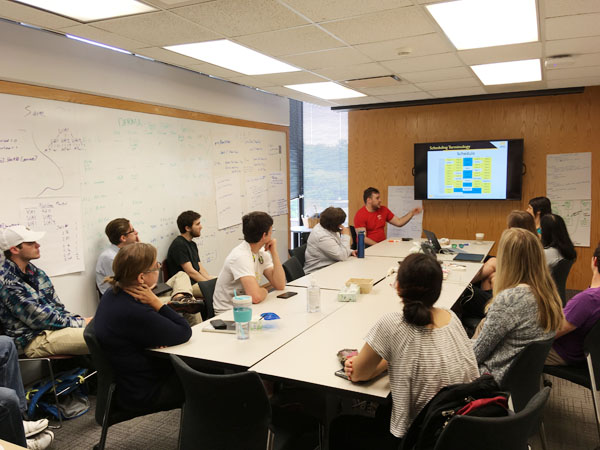 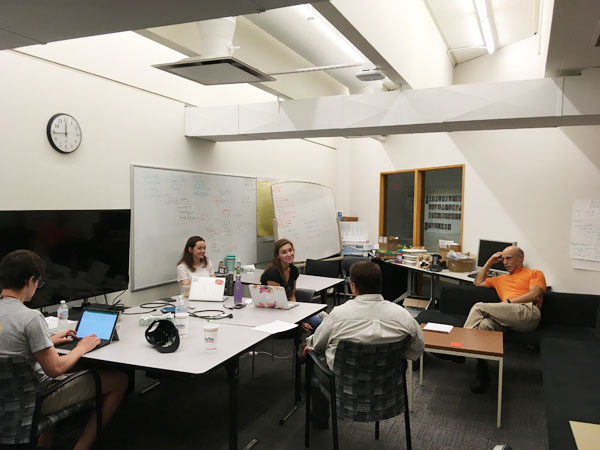 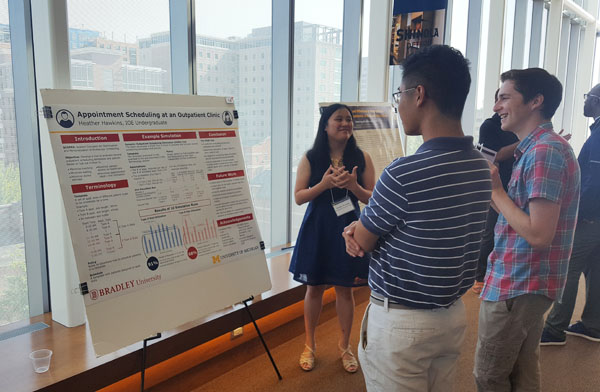 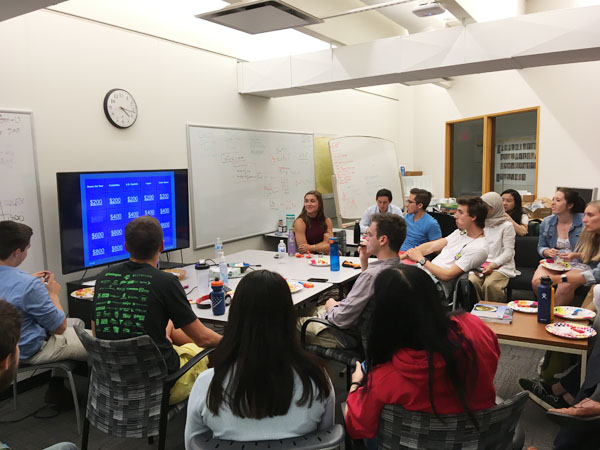 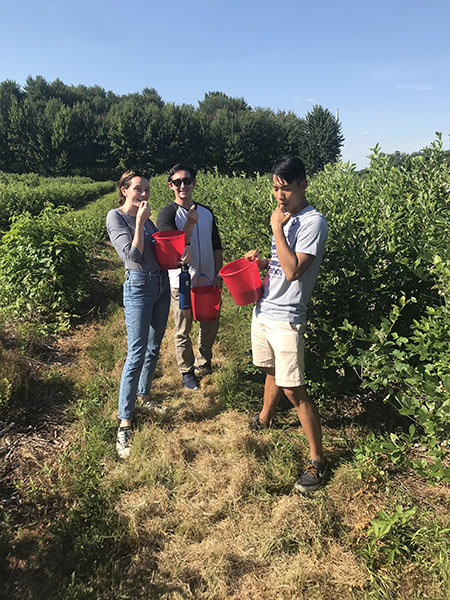 |
July 30, 2018:Time flies when you’re staying busy and having fun. We’ve been doing plenty of both this month at CHEPS! It’s hard to believe we’re headed into the last month of the summer semester.
Our Brunch and Learns have continued to be a fabulous way for students to share their expertise with one another. The wide variety of experience and backgrounds our community has is one of the things that makes CHEPS so special. Brunch & Learns offer everyone the chance to both share and learn skills. This month, Heather helped our students with the best ways to format their research posters; Billy discussed the use of metrics, and Anna delved into value stream mapping. The skills learned in Brunch and Learns as well as informally through the many collaborations at CHEPS benefit students in many ways. As CHEPSter and IOE PhD student Donald Richardson said, “This invaluable experience working with such a culturally and academically diverse team has allowed me to develop and hone strong communication/technical work translation, leadership, organizational, and general project engagement skills which can be utilized in my career across multiple domain areas.” Lunch and Learns are an opportunity for student teams to keep all of CHEPS updated on what they’ve been working on throughout the summer. This month saw presentations from RITMO and SCOPES. RITMO aims to improve the transportation systems that get people, specifically underserved communities, to and from the University of Michigan Hospital. SCOPES focuses on improving endoscopy scheduling to minimize overtime, minimize waiting, minimize doctor idleness, maximize patient access to healthcare, and maximize appointment slot utilization. We also took a week off of Lunch and Learns to see a talk by Jonathan Cohn, titled “The State of the Healthcare Debate,” hosted by the Institute for Healthcare Policy & Innovation (IHPI). The talk offered an excellent overview of how healthcare has evolved over the years in the United States, where it stands now, and where it might go in the future. In addition to all our scholarly activities, there have been some fun social events! July saw the return of CHEPardy, everyone’s favorite CHEPS trivia game, as well as a trip to the Dexter Blueberry Farm. CHEPSters picked a whopping 40 pounds of blueberries on our visit to the farm. In addition to each person taking some home, many went home with CHEPS Associate Director Amy Cohn who has promised that her son Peter will be baking some delicious blueberry pies for all of CHEPS! Peter’s baked goods are a lesser-known but extremely appreciated benefit of working at CHEPS. We always enjoy celebrating the accomplishments of our CHEPS community members. Theodore Endresen has been awarded a Clyde Johnson Memorial Scholarship from the Industrial and Operations Engineering Department! This is especially exciting and fitting for a CHEPS student because Clyde Johnson was a pioneer in healthcare engineering. And CHEPS SROP student, Heather Hawkins, shared an excellent poster at the SROP poster session. Unfortunately, August approaching also means saying goodbye to some fellow CHEPSters as some leave for the summer. The good news is, many will return to CHEPS for future semesters and those who are moving on will stay in touch. Once a CHEPSter, always a CHEPSter! As HEPS Masters student John Cima said, “CHEPS had given me friends that make working at CHEPS one of the most enjoyable things that I have ever done. The people here are so smart and kind. There is no other place I would rather spend my time.” We’re looking forward to an equally productive and exciting August! |
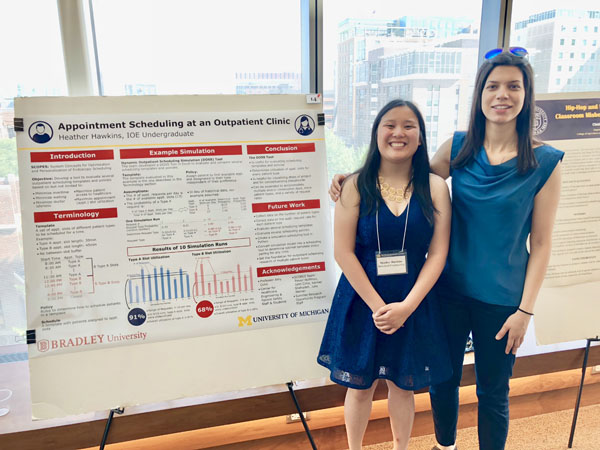 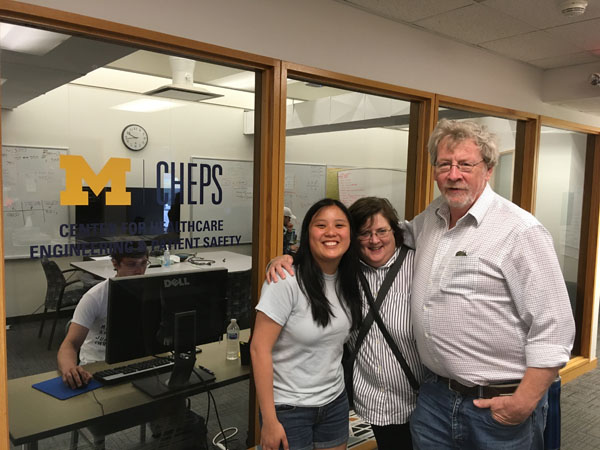 |
July 26, 2018:Heather Hawkins, worked at CHEPS this summer as part of Rackham Graduate School’s Summer Research Opportunity Program (SROP). She finished her summer at CHEPS by showing a poster at the SROP poster session and giving her visiting parents a tour of CHEPS. They had the chance to sit in on a Brunch & Learn session on SCOPES, one of the projects Heather focused on this summer.
Below is what Heather had to say about her time here at CHEPS. “CHEPS has been an adventure. As a student from Bradley University located in Peoria, IL, I was accustomed to a small campus and a small student body. When I came to Michigan, I was worried I would get lost both literally and figuratively. However, I was pleasantly surprised to find my small community within a much larger one in CHEPS. The students, faculty, and staff are warm and inviting and were more than happy to answer any and all of my questions. And I have truly enjoyed getting to know all of the CHEPSters during our weekly Lunch & Learns and CHEPS Thursdays.” “CHEPS has also served as a great gateway experience to research at UM. During my time here, I had the opportunity to work on DERMA and SCOPES, two scheduling projects focused on provider scheduling and patient scheduling respectively. The former taught me several invaluable communication skills and C++. The latter put me in touch with Karmel Shehadeh, a PhD student at UM, who has been a guide to me as I journey toward my own PhD. Both of these projects have taught me the value of terminology as well as the intricacies of teamwork. Thanks to this experience, I am excited to begin the application process to UM and to see everyone here at CHEPS again.” |
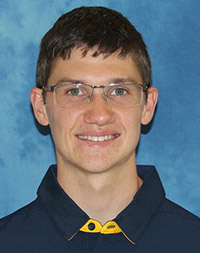 |
July 26, 2018:Theodore Endresen is a 2018 recipient of the Clyde Johnson Memorial Scholarship from the Department of Industrial and Operations Engineering (IOE). The scholarship is named in honor of Clyde Johnson who, in the early 1960s, led an effort, along with Dean Wilson, to collaborate with the University of Michigan Hospital to establish the first industrial engineering group within a hospital to improve its operations.
“I put a lot of effort into my coursework every year and was excited that my academic advisers recognized this by awarding me the Clyde Johnson Memorial Scholarship,” Theodore said. “Clyde Johnson was a pioneer in the healthcare engineering industry at Michigan and, as a student who works for the Center for Healthcare Engineering and Patient Safety (CHEPS), it is truly an honor to be associated with his name.” |
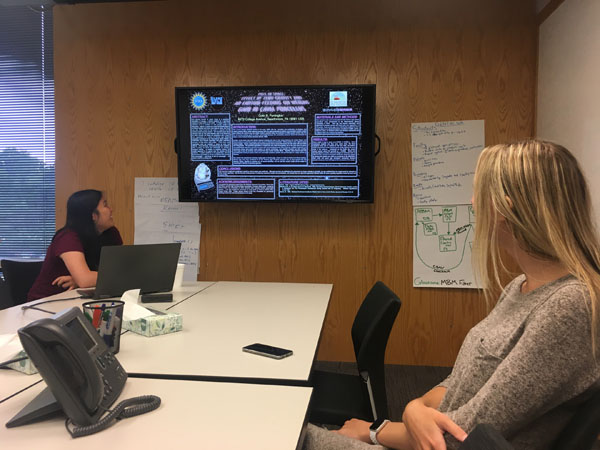 |
July 24, 2018:For the Brunch and Learn this week, CHEPS student Heather Hawkins, who is with us from Bradley University this summer as part of the Summer Research Opportunity Program (SROP), discussed the formatting of research posters.
Content and format are two of the most important elements of the research poster. A few examples of bad content are 1.) too much content, which leads to no one wanting to read it; 2.) leaving no space on the edge or using too many charts, both of which make the poster look narrow and are not pleasing to the eye. The content of a good poster includes a clear visual abstract of 200-800 words, not the entire project with a lot of technical language. A nice poster also uses fewer words in the title but makes the title appealing and attention-grabbing. Around half of the content should be the results and the other half can include the methods used, introduction, and conclusion. Formatting a poster involves many factors. For instance, using color wisely can make a big difference. It’s best to use three or less main colors. Colors like white and black are always a safe choice. Typefaces are another important factor; posters should use a consistent font style and size. The recommended font sizes are 72-120 pt. for the title, 36-72 pt. for the subtitle, and 24-48 pt. for normal content. Besides the color and typefaces, the layout of the poster is also important. A good poster usually has 3 or 4 columns and the graphics should be diagonally or horizontally symmetric to balance the poster’s visual weight. Heather offered five final takeaways: 1.) do not use your full abstract on the poster; 2.) don’t be limited to boxes, try other shapes; 3.) use handouts and samples; 4.) try the “arm test” on the font size, which means print the poster on a paper and hold it with straight arm, if you can see the text clearly then it’s good; 5.) finally, get feedback from colleagues and friends to improve your poster! |
 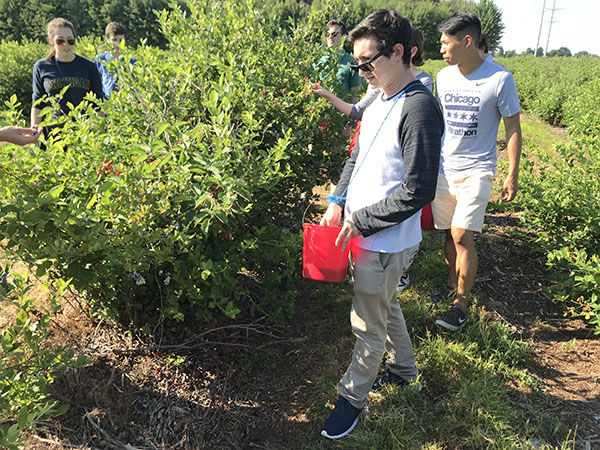 |
July 19, 2018:For this week’s social event, CHEPSters ventured out to the Dexter Blueberry Farm for some delicious, hand-picked blueberries. Everyone grabbed a bucket and marched out to the plentiful fields to find some enormous berries. A hidden blackberry bush was found amongst the blueberry bushes and everyone happily added some blackberries to their buckets. The team took a break from picking berries to engage in some blueberry tossing contests and fun conversation. Blueberries sold for $2 per pound and all the CHEPSters and Associate Director Amy Cohn picked an estimated 40lbs of blueberries! The average pie requires around 1.5lbs of blueberries so everyone is looking forward to baking some delicious pies and blending some tasty smoothies with all the fresh fruit. Another successful and rewarding CHEPS social event is in the books! |
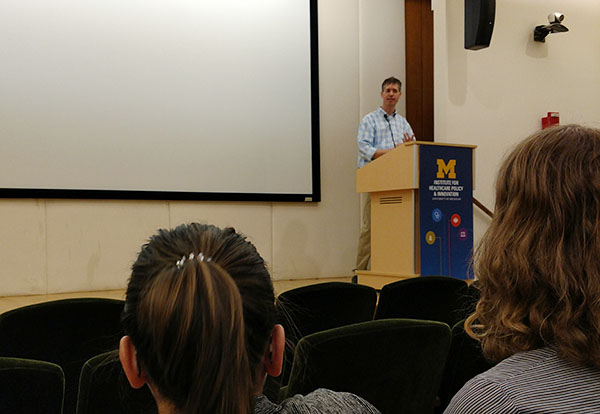 |
July 19, 2018:Instead of the normal Thursday Lunch & Learn, CHEPSters attended Jonathan Cohn’s seminar, The State of the Healthcare Debate, hosted by the Institute for Healthcare Policy & Innovation (IHPI). The Research Auditorium was packed with a variety of students, faculty, and staff.
To begin, Cohn described how healthcare evolved in the U.S. over the years: Americans first received health insurance from their employers, usually big companies. However, many employed by small companies, younger and older people, poor people, or people living with a disability were not covered by this system. Medicare, for the elderly, and Medicaid, for children and pregnant women, were created to help combat this issue, but millions were still without coverage. These individuals turned to insurance companies who quickly realized their customers had a very high risk (high cost) of healthcare, and the companies began discriminating against these high-risk customers. The Democratic party, backed by President Barrack Obama, tried to enact a universal healthcare policy, but their first attempt didn’t leave the Senate floor. However, the state of Massachusetts gave Obama and his party a new hope and a new plan. Massachusetts’ system was simple: provide Medicaid to the poor, control the cost of healthcare systems, and The Three-Legged Stool. One leg is to not discriminate against high-risk individuals and require benefits for every insurance plan. The second is to require everyone to be on this insurance system. Lastly, subsidies would be provided for those who could not pay for their own healthcare. They hoped that this bill would be more attractive to the Republicans. Conservatives had a few changes, most notably that states had majority control of implementation. Over the years, Cohn explains, those states that wanted the Affordable Care Act to work thrived under the Affordable Care Act, but those that didn’t want it to work found the Affordable Care Act to be lacking. Like any product or service, quality healthcare is expensive, and attempting to pay for it with less money, Cohn says, is impossible. Still, the Republican party recently came up with a plan that, at the end of the day, wasn’t significantly better than Obamacare, Cohn said. Cohn describes the public’s reaction: The plans weren’t that different, and people liked being on Medicaid. Looking to the future, Cohn sees two paths: completely repeal Obamacare or completely enact it. He notes that once the public receives a benefit, the government is hard pressed to take it away from them. “There’s a lot of people unhappy with where healthcare is today, but not a lot of people who want to go back,” he said. Universal healthcare is not perfect and will probably undergo several alterations; however, it is also probably here to stay. |
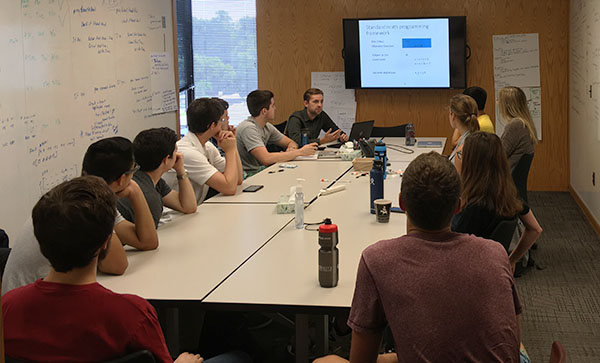 |
July 17, 2018:For the Brunch and Learn this week, Billy Pozehl, CHEPS Research Area Specialist, discussed the use of metrics within the provider scheduling template. He provided an overview of both what a metric is conceptually and realistically how CHEPS implements metrics within its projects.
Conceptually, metrics are defined as a linear system of equations that should be minimized within an optimization problem. Projects within CHEPS, such as BLOCK, use metrics to minimize requests denied for their overall objective. On the other hand, the infrastructure to practically implement the idea of metrics resides within the CHEPS provider scheduling template. Here, students can find a means of defining a metric (through MetricParams.txt) by specifying a metric name, lower bound, upper bound, weight, and variable type. Moreover, the template provides the functionality to build the metric such that the CPLEX library and corresponding decision/auxiliary variables can interpret it (implementing a metric definition function), and to understand the values that were solved by converting the CPLEX variables into C++ variables. Overall, metrics are an integral part of the provider scheduling projects here at CHEPS. |
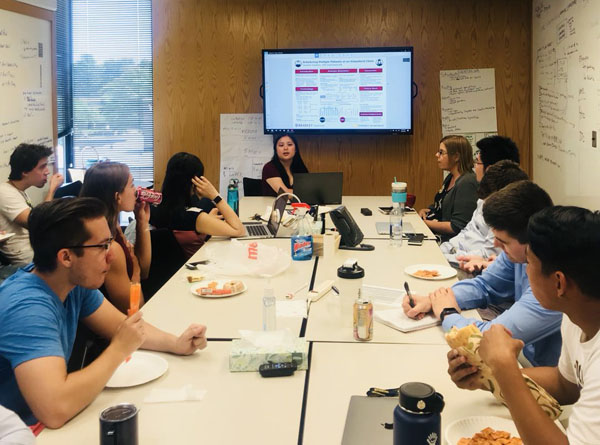 |
July 12, 2018:For this week’s Lunch and Learn, the SCOPES team discussed their project. SCOPES, which stands for System of Concepts for Optimization and Personalization of Endoscopy Scheduling, focuses on developing a tool to evaluate several outpatient scheduling templates and policies based on but not limited to: minimizing overtime, minimizing waiting, minimizing doctor idleness, maximizing patient access to healthcare, and maximizing appointment slot utilization. The team is developing a Dynamic Scheduling Simulation Tool in Excel to evaluate and compare several scheduling templates and policies. For the future, the team will collect data on the number of patient types and on the appointments request rate for each patient type. They will also create a simulation scheduling tool in Python and convert the simulation model into a scheduling tool to determine optimal template-policy pairing for any clinic. |
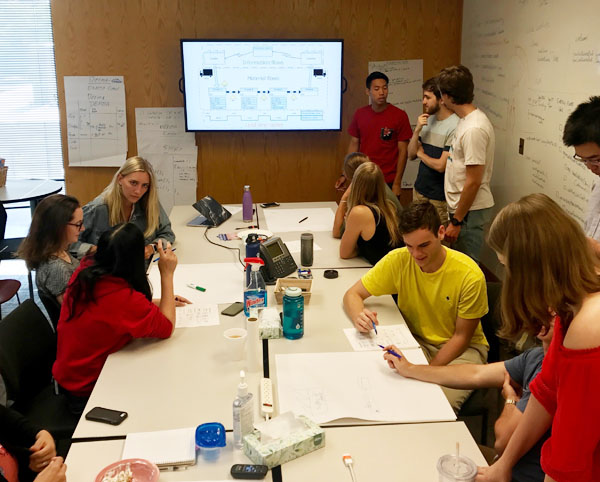 |
July 10, 2018:At this week’s Brunch and Learn, CHEPS student Anna Learis presented a crash course on value stream mapping. She explained how value stream maps can be used to visually outline a system’s process flow in order to help identify, and eventually eliminate, waste. After her presentation, students broke into teams and practiced using these skills by drawing out rough drafts of value stream maps for some current CHEPS projects. |
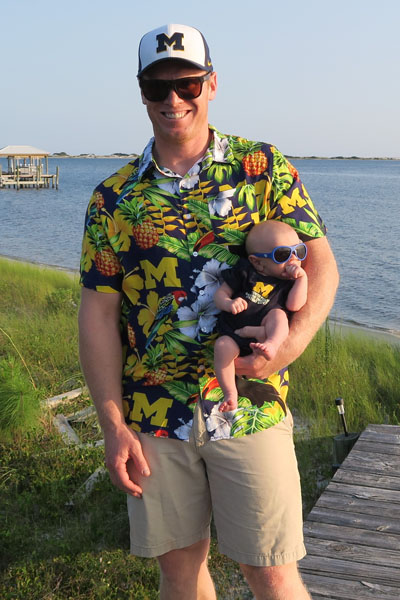 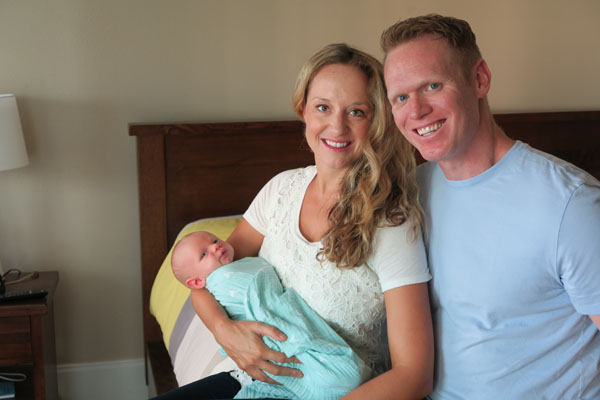 |
July 6, 2018:On July 6th, Brian and Kate Lemay welcomed Owen Atlas into the world as the newest member of the CHEPS family. Owen proudly wears his CHEPS onesie and looks forward to working with CHEPS someday in the future.
Brian and Kate met in IOE 425 “Decision Analysis.” Kate earned both her BS and MSE in IOE from Michigan. Brian completed his dissertation, “Addressing Challenges in Healthcare Provider Scheduling,” and earned his Michigan IOE PhD in 2017. His paper “New Methods for Resolving Conflicting Requests with Examples from Medical Residency Scheduling,” co-authored by Amy Cohn, Marina Epelman, and Steve Gorga, received the Murty Prize for best optimization paper by an IOE student and was published in the Production and Operations Management journal. Brian currently serves as a Major in the U.S. Air Force where he runs the Analyses, Assessments, and Lessons Learned division of Air Force Special Operations Command. Following his current assignment, Brian will return to the United States Air Force Academy (his alma mater) where he will teach Operations Research in the Department of Management. |
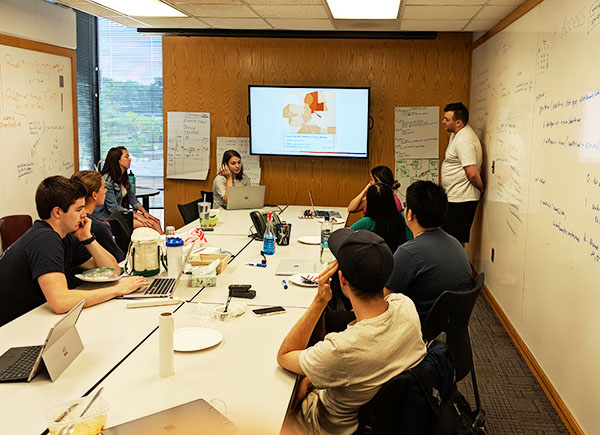 |
July 5, 2018:The RITMO team presented at this week’s Lunch and Learn. The goal of this project is to improve the transportation systems that get people, specifically underserved communities, to and from the UM Hospital. By analyzing census and patient data, the team has been able to classify different areas of the Ann Arbor community based on risk. The team has also analyzed travel time between the UM Hospital and communities in Ann Arbor for both personal vehicles and public transportation using Google’s API. With all this information, the team can pinpoint areas where transportation systems need the most improvement. |
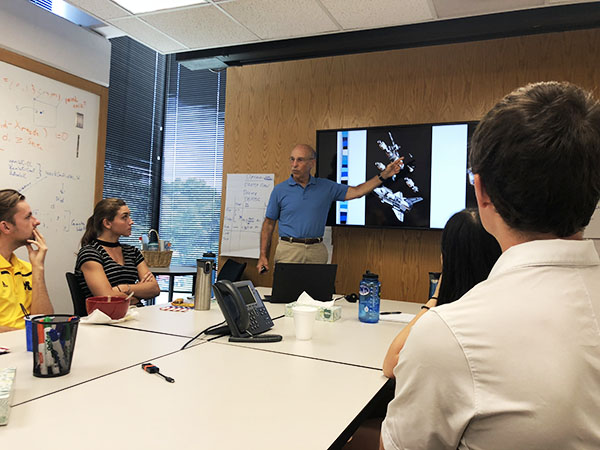 |
June 29, 2018:At this week’s Lunch and Learn CHEPS students had the privilege to hear about CHEPS Director Jim Bagian’s experiences working at NASA. He focused on his experiences understanding the Challenger and Columbia disasters.
First Dr. Bagian discussed the Challenger disaster and the aftermath of recovering fragments of the shuttle on the ocean floor afterward. He discussed how the crew most likely survived the break up of the shuttle but could not survive the impact from hitting the ocean as there was no ejection system to escape the shuttle. Because there was no emergency evacuation system, Dr. Bagian worked on designing one. He discussed the methods and process he took to design a telescoping pole that would allow one to escape the shuttle. Then Dr. Bagian discussed his involvement in assessing the aftermath of the Columbia disaster, where a piece of foam broke off and struck the side of the shuttle. He showed us footage of the crew prior to the crash and showed us how they tracked and collected the debris across Texas. He also showed us a video of them testing the ability of foam to break through a shuttle. Thank you to Dr. Bagian for a fascinating talk! |
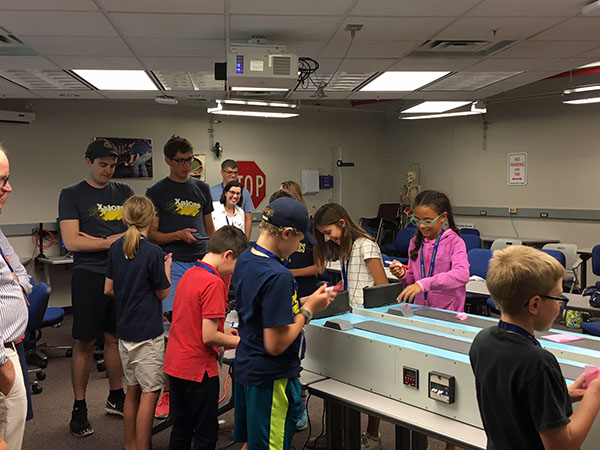 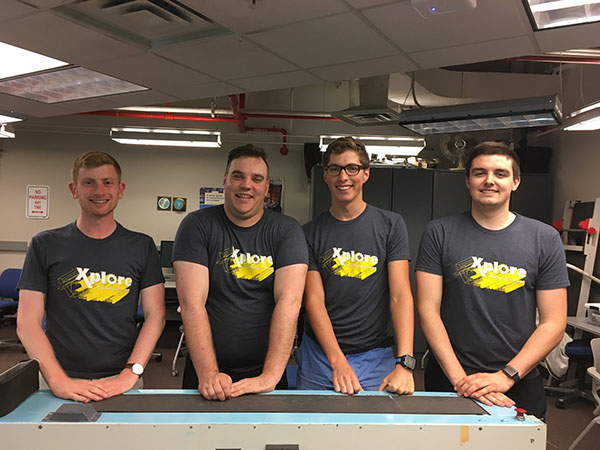 |
June 27, 2018:This week, four CHEPSters volunteered at the Industrial and Operations Engineering (IOE) workshop for Xplore Engineering, an Engineering camp providing hands-on experiences to children of a variety of ages.
The students helped the children work in a workshop simulating a candy factory assembly line, consisting of stations including assembling the products, wrapping them with paper and placing them on a conveyor belt, labeling the product, wrapping the candy with a ribbon, and undergoing quality control to make sure products were not defective. Between rounds, children had the opportunity to make changes to the process to be able to produce more candy in the same amount of time. The children instantly got engaged with the activity and started communicating with each other to try to see where bottlenecks occurred and how the process could be improved. Overall, the children were happy to be there, parents were thankful for the volunteers, and the CHEPS students had fun spreading their enjoyment of IOE with others. |
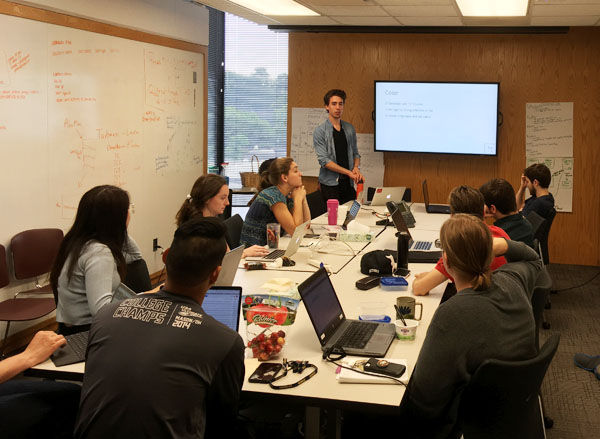 |
June 26, 2018:June has been another exciting and productive month here at CHEPS. Our twice a week summer Lunch and Learns have morphed to Tuesday Brunch and Learns and Thursday Lunch and Learns, proving that CHEPSters are ready for both learning and food at all times of the day. Topics this month have ranged from projects like MSafety and Glaucoma to practical tips on computer use and design. Every Brunch/Lunch and Learn provides a valuable opportunity for students to share expertise and collaborate.
Today, students learned some design principles from Malcolm Maturen. While the skills developed at the Brunch and Learn will be valuable for academic and professional presentations, this morning they practiced by designing slides describing their superhero alter-egos. This week’s Lunch and Learn promises more exciting content. CHEPS Director Jim Bagian will be discussing both healthcare and his experiences as an astronaut with CHEPS students. Jim along with Joe Derossier, CHEPS Program Manager, also led an RCA2 training earlier this month, giving students and other attendees a chance to learn from their expertise in the topic. In between events like those above, days consist mainly of project work and project team meetings. For insight into just a few CHEPS projects, past and present, see our in-progress project page. We’ll be updating it throughout the summer and beyond. While everyone is working hard this summer, it’s nice to have the occasional break to enjoy hanging out with each other too! When we don’t have a Lunch & Learn, lunches have proved a good time to take a short break and catch up on The World Cup together. And, we’re looking forward to the return of CHEPS Trivia (or as alum Ryan Chen suggested “CHEPardy”) for this Thursday evening’s social event! Anna Learis premiered CHEPS Trivia last month and it is back by popular demand. |
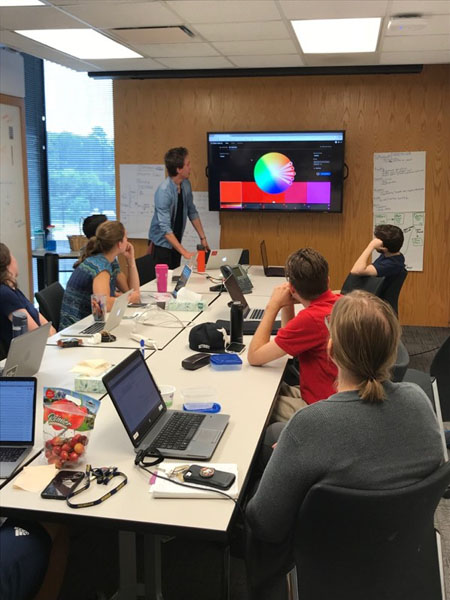 |
June 26, 2018:At this week’s Brunch and Learn, CHEPS student Malcolm Maturen presented about principles of design. During the presentation, he went over various ways to effectively use color, font, and alignment in order to convey information. He also expressed that consistency is of the utmost importance in design. After going over these topics, Malcolm had a surprise activity for all of his fellow CHEPS students – designing PowerPoint slides for their superhero alter egos. Thanks to Malcolm, everyone at CHEPS was able to learn some helpful design principles and have some fun to kick off the work day!
Below are a few sample slides from the activity. |
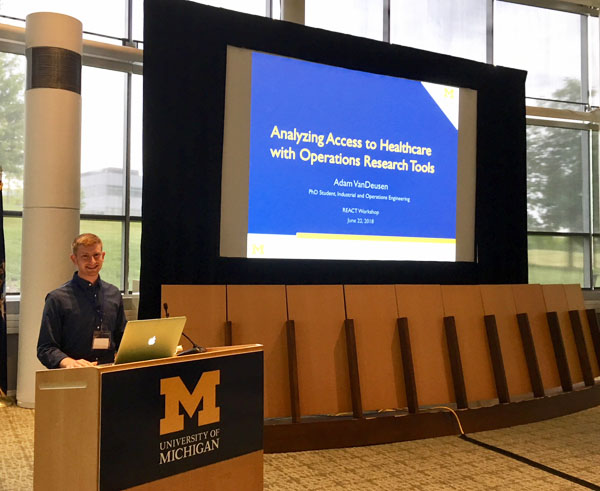 |
June 22, 2018:CHEPS student Adam VanDeusen shared his research with K-12 STEM teachers who were visiting campus on June 22 to take part in the REACT (Research Education and Activities for Classroom Teaching) Workshop. This workshop is led by students in Macromolecular Science and Engineering and shares the meaningful research being conducted at the University of Michigan with teachers who participate in lab tours, activities, and research talks. Adam gave a brief overview of operations research methods and applications and then discussed his work on access to eye care for veterans.
A video of Adam’s talk can be viewed below. |
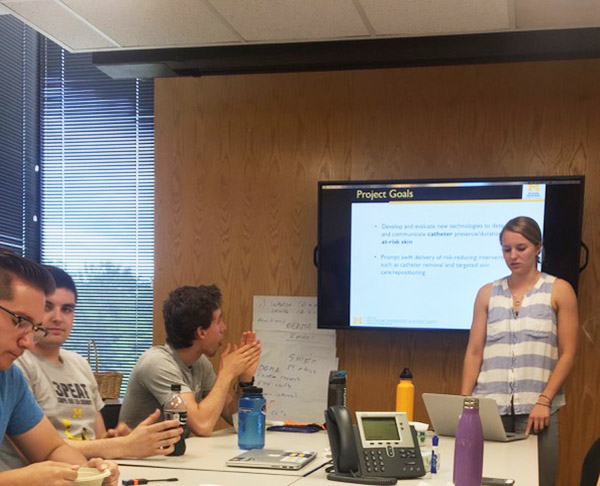 |
June 21, 2018:For this week’s Lunch and Learn, the M-Safety Project 1 team discussed their project. M-Safety Project 1 focuses on improving provider awareness of catheters. The team shared that there are few signs in patient rooms regarding the existence of catheters, so many providers are unaware that patients have a catheter in place. When catheters have been in for too long, infections can occur, so it is important that providers have information readily available about catheters. The team is working to create a display that accurately shows catheter and skin wound information near the patient’s bedside, so providers have easy access to the information. The display should convey the important information in an efficient and attractive way. The team has gone through multiple iterations of the design to ensure it meets provider criteria. |
 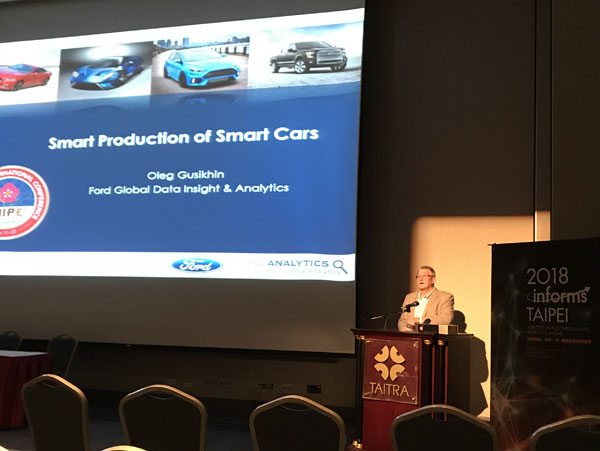  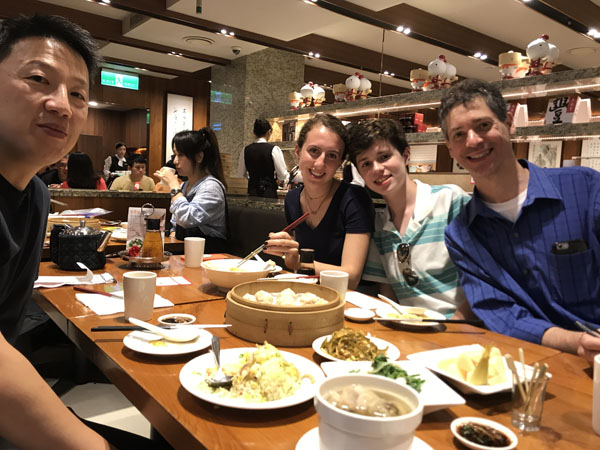 |
June 20, 2018:CHEPS Associate Director Amy Cohn attended the INFORMS International Meeting in Taipei from June 17th -20th, 2018 where she delivered a talk titled “Challenges in Residency Scheduling.” She also had the opportunity to enjoy the plenary talk by Oleg Gusikhin, Technical Leader at Ford Motor Company and Lecturer in Industrial and Operations Engineering (IOE) at The University of Michigan, on “Smart Production of Smart Vehicles.”
IOE alum Richard Chen was attending the conference as well and, as a native of Taiwan, was able to serve as tour guide for some of the Cohn family excursions that took place after the conference. Professor Cohn also enjoyed the chance to catch up with another IOE alum, Wanshan Zhu. In addition to the conference, highlights of the trip included hiking Elephant Mountain, visiting the old mining town of Jiufen, enjoying the view from the top of Taipei 101 which is the eighth tallest building in the world, and, of course, eating soup dumplings and mochi. |
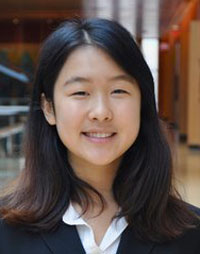 |
June 19, 2018:At this week’s Brunch and Learn, CHEPS student Kristine Wang presented a few techniques of basic error checking in C++. CHEPSters learned practical applications such as verifying the size of input files and finding variables of the wrong data type. Thanks to Kristine, students wanting to learn to code will have some skills to prevent bugs from occurring in their programs. |
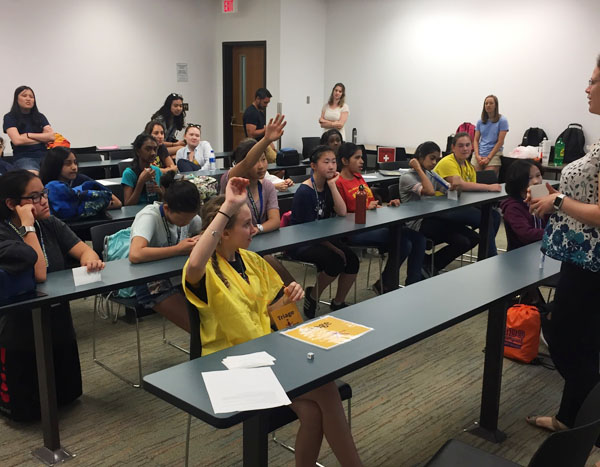 |
June 18, 2018:A few CHEPS students volunteered to help out with the Girls in Science and Engineering (GISE) summer day camp here at U of M. The GISE program is a week-long day camp for girls that have completed the 7th or 8th grades and that are interested in science and engineering. The campers were able to learn about engineering through several interactive activities, including an Emergency Department (E.D.) Simulation.
The simulation is a game that teaches important principles of Industrial and Operations Engineering. The campers were each assigned a role in the game; some were patients, triage nurses, E.D. physicians, etc. The objective of the simulation was to get as many patients through the hospital in a given time period. After each round of the simulation, the girls were able to make one change to improve the system. Right away, the campers seemed excited with their role-playing and were committed to making their E.D. run smoothly and effectively. The second round of the simulation ran much better than the first, and the third was the best. Each time, more healthy patients were discharged from the hospital and the girls were proud for beating their previous record. Not only did the campers have a blast and feel rewarded for their work in the E.D. simulation, they learned several fundamental principles of Industrial and Operations Engineering and saw how they were used in a real-world example. |
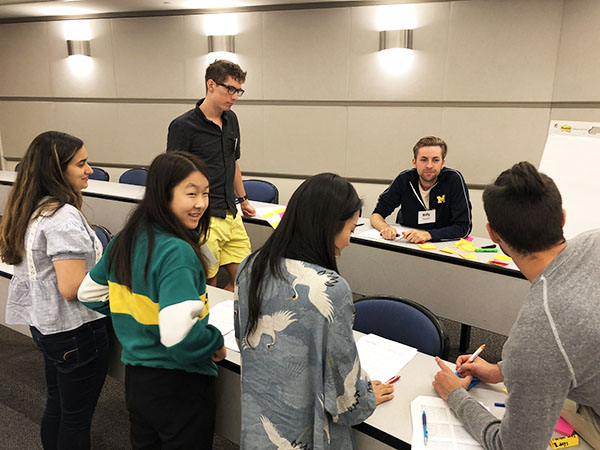 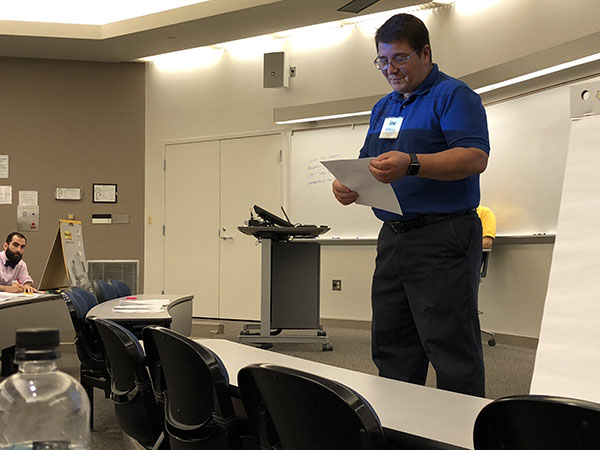 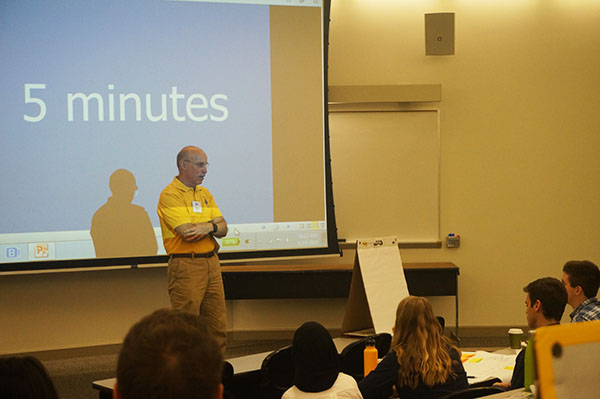 |
June 15, 2018:In an environment such as healthcare, where the stakes are constantly high, it can be easy to resort to knee-jerk resolutions that focus on proximate causes of patient adverse events and close calls. As systems grow increasingly complex, however, it is imperative that we choose to analyze the underlying contributing causes of a problem, rather than superficial actions that place blame on individuals and focus exclusively on individually focused interventions such as training.
On Friday, June 15th, CHEPSters attended a Root Cause Analysis and Action (RCA2) training given by Director Jim Bagian and Program Manager Joseph DeRosier. This program was developed by Jim and Joe and has been implemented in hospitals across the nation. Its premise may seem simple; break down an incident until the actual root causes and contributing factors are exposed, and develop a series of actions to address them. Unfortunately, often the bureaucracy and complexity of systems get in the way of this approach. RCA2 is complete with tools to address administrative barriers. RCA2 focuses on a multidisciplinary team, with a combination of unique perspectives, that meets to assess an adverse. By going past areas most investigations typically stop at, such as human error or lack of policy, RCA2 creates an environment where a systems-based assessment exposes factors that contributed to an event. Jim and Joe also detailed the importance of action following these assessments; structural design changes are stronger actions than those actions that require individuals to rely on their memory such as policy and procedure changes or training. Above all, it is important to carry forward the mentality that RCA2 is built upon. This is particularly a responsibility in an environment such as healthcare, where patient safety is a constant top priority. Problems are multidisciplinary, multifaceted, and should always result in actions that concentrate on systems-based interventions that focus on prevention or mitigation of harm over blame of individuals associated with the event in question. |
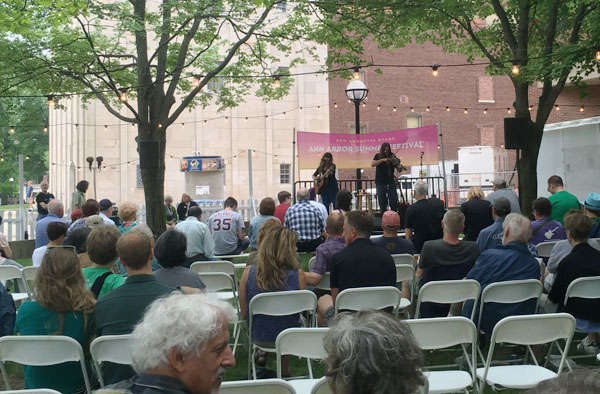 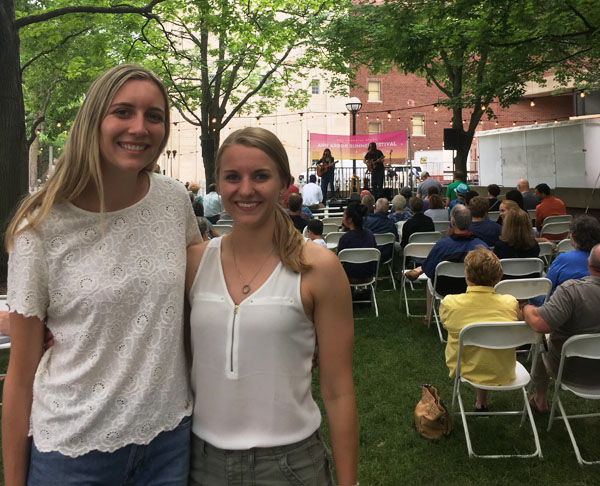 |
June 13, 2018:The social event at CHEPS this week was a visit to the Ann Arbor Summer Festival to watch Annie & Rodd Capps perform. Ann Arbor Summer Festival takes place on Ingalls Mall in front of Rackham Auditorium and runs through July 1st.
CHEPSters gathered in the grotto and on the lawn to listen to the music, eat, drink and socialize. There were food stalls from Ann Arbor restaurants and a good sized crowd hanging out. CHEPSters are looking forward to other events at AASF, such as late-night movies, classes, and more live performances! |
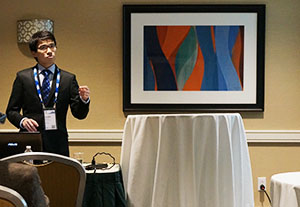 |
June 12, 2018:Timely access to outpatient healthcare, and in particular to specialty care, is a significant challenge nationally. Although insufficient numbers of providers/appointments can contribute to this, existing capacity may also be scheduled inefficiently. CHEPS collaborated with Dr. Amy Rothberg of the Metabolism, Endocrinology, and Diabetes (MEND) clinic at the University of Michigan in order to develop a methodology to more deeply understand the relationship between scheduling policies, patient cancellation behaviors, and capacity utilization.
This work resulted in a paper titled “Access and Utilization: Methods for Analyzing Appointment Scheduling in Outpatient Specialty Care Clinics,” which the authors have just submitted for peer review. You can learn more on the MEND project page. |
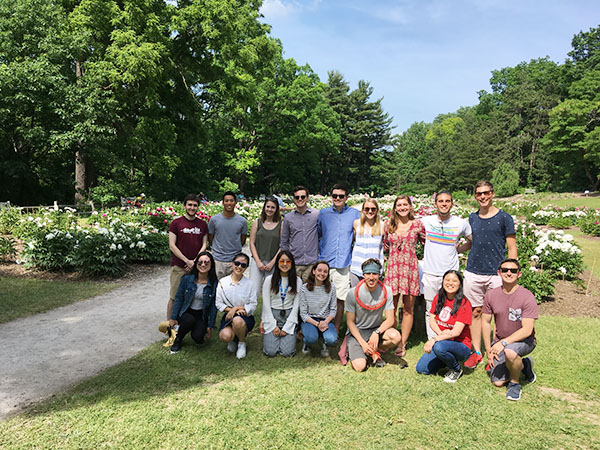 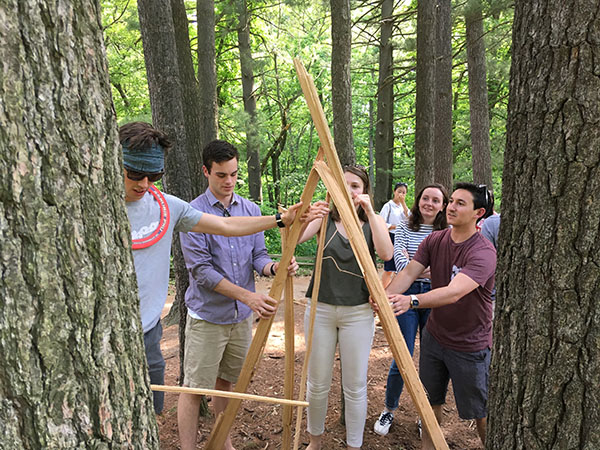 |
June 7, 2018:After a day of hard work and team meetings, CHEPSters headed to the Nichols Arboretum together to visit the peony garden. The garden is a summer highlight in Ann Arbor and late May to early June is the ideal time to see the peonies in bloom.
After enjoying the peonies, the group traveled further into Nichols Arboretum and happened across Fairy Woods and Troll Hollow, an area that invites visitors to build a home for fairies or trolls that may be visiting the area. CHEPSters constructed a dwelling fit for the most discerning fairy or troll, complete with a tree stump to sit on. The visit concluded with a brief attempt at playing Frisbee that ended in everyone putting their teamwork skills to use to successfully rescue a Frisbee from an incredibly tall tree. |
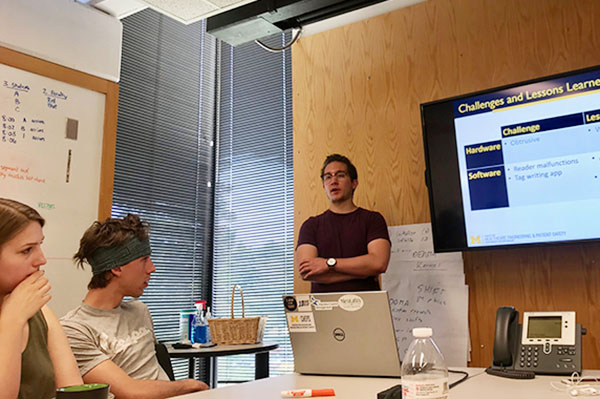 |
June 7, 2018:For this week’s Lunch and Learn, CHEPSters gathered to learn about the Glaucoma project. The Glaucoma project implements cutting edge Radio Frequency ID (RFID) technology to track patients and providers at the Glaucoma Clinic at the Kellogg Eye Center. The major goal of the project is to investigate and optimize patient wait times using a variety of methods. The past couple years of the project have focused on designing and implementing the RFID system to collect relevant user data. Moving forward, the team will work to analyze collected data and test optimization strategies. |
 |
June 7, 2018:CHEPS students Dima Chaar and Sheridan Tobin volunteered at the Precision Medicine World Conference 2018 Michigan, hosted at the University of Michigan, from June 6 to June 7, 2018. The conference coincides with the launch of the University of Michigan’s Precision Health Initiative (PHI), a multidisciplinary initiative involving U-M’s Medical, Engineering, Pharmacy, and Public Health schools.
While assisting at the conference to help it run smoothly, Dima and Sheridan had the opportunity to learn first-hand about the latest research in precision medicine and cutting-edge strategies and solutions that are contributing to the future of healthcare. The conference also gave the CHEPS students the opportunity to network with academic and industry leaders in this field. A highlight of the conference was hearing opening remarks from U-M President Mark Schlissel and a keynote address from NIH director Dr. Francis Collins. Dima and Sheridan look forward to bringing all of the valuable things they have learned back to their PHI project team! |
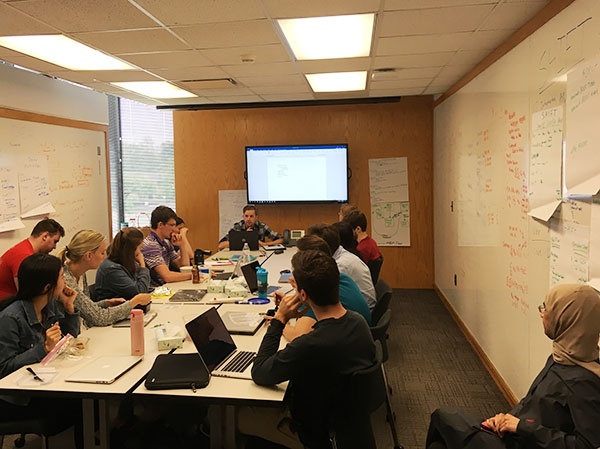 |
June 5, 2018:At today’s Lunch and Learn, led by Billy Pozehl, CHEPS students met a learned how to remote login into the center’s computers to improve data security. They also discussed ways to improve the workflow and workspace with suggestions about new computers, accessories, and office equipment. |
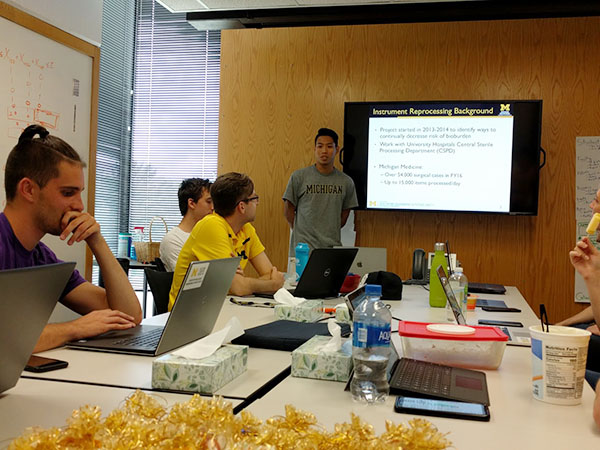 |
May 31, 2018:This summer, CHEPS is holding a Lunch and Learn series where CHEPSters share with each other both the knowledge and the expertise developed while working on different projects at CHEPS. On Thursday, Wesley Chen, a HEPS master’s student, Muhammad Ugur, an undergraduate student in CS, Malcolm Maturen, and Malcolm Huson, both undergraduates in IOE, presented on the Surgical Instruments project.
Wesley started the talk by explaining how they aim in the Surgical Instruments team to assist fellows at the Central Sterile Processing Department (CSPD) of Michigan Medicine to achieve their reprocessing goal. Excited by the initial outcomes and the quality of the CHEPSters’ work, CSPD sought additional support from the team on fire safety in the surgical room, technical consultancy for adopting new technology designed for testing insulation integrity of electrosurgical instruments, and creating a cleanability dashboard on which challenges related to surgical instruments cleaning are quantified. The session concluded with an intercultural celebration. Hanan Al-Awadhi, a HEPS master’s student, shared with the other CHEPSters a tradition that is practiced during the middle of Ramadan in Kuwait. Gargee’an is a celebration that is observed in the Gulf region on the 14th and 15th nights of Ramadan where children dress in traditional outfits and go door-to-door to receive sweets and nuts from neighbors while singing traditional songs. CHEPSters, who manage to excel in every task, managed too to sing the Gargee’an song in Arabic for Billy. Everyone at once sang “Sallim “Billy” ya Allah, Khallah li omha ya Allah” meaning “Oh God, protect “Billy” from every evil, let him have a long life for the sake of his mother.” Then came the time to enjoy the Gargee’an treats brought by Hanan! |
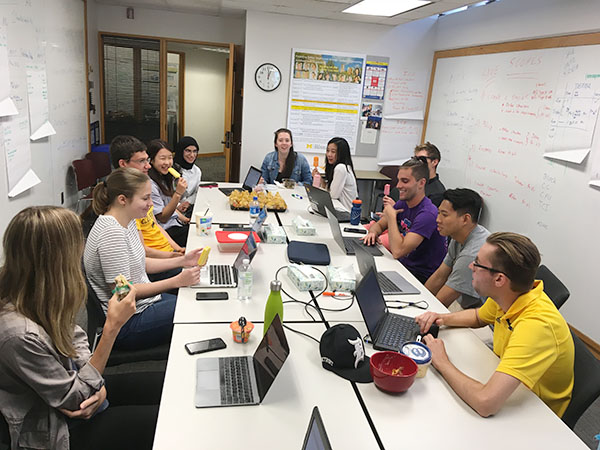 |
May 31, 2018:It’s hard to believe the end of May is upon us. Some might think things are quiet on the University of Michigan campus at this time of year but CHEPS is in full swing. With fewer classes, summer offers an opportunity for CHEPSters to focus more fully on their CHEPS projects, meaning we stay incredibly busy.
In addition to focused work on our wide variety of projects, this week we kicked off a series of summer Lunch and Learn sessions for CHEPS students. Karmel Shehadeh led an informational workshop on LaTeX and Overleaf, an interface for technical writing, on Tuesday. On Thursday, the Surgical Instruments team updated the rest of CHEPS on their progress. Lunch and Learns throughout the summer will help students learn valuable skills and share their work, ideas, and suggestions with one another. While working hard, students are still finding time to have fun. We enjoyed a lunch with a long-time friend of CHEPS, Merrill Bonder of The Bonder Foundation on Wednesday. Her visits are always a highlight! And, at the start of Thursday’s Lunch and Learn, HEPS master’s student Hanan AlAwadhi shared candy and a traditional song with her fellow CHEPSters to introduce us to Gargee’an, a celebration that is observed in the Gulf region on the 14th and 15th nights of Ramadan where children dress in traditional outfits and go door-to-door to receive sweets and nuts from neighbors, while singing traditional songs. We’re looking forward to a fun and productive June as well! |
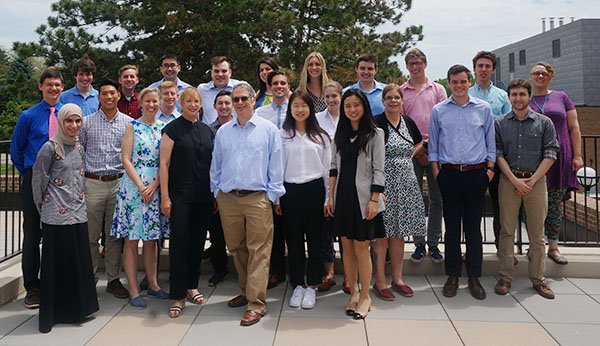 |
May 30, 2018:College students are great at a handful of things; making ramen, procrastinating, and coming up with novel solutions. Unfortunately, due to the circumstances of our environment, we often lack the means of transitioning these ideas from abstract thoughts to concrete reality. Between a lack of resources, packed schedules, and the relative absence of a professional network, students frequently find a plethora of barriers on the path of knowledge and independence.
It is often only through the altruistic acts of diligent and empathic professionals that allow many of us to move in the directions we wish to. This week, we were lucky enough to welcome Merrill Bonder; head of the Bonder Foundation and long-term CHEPS friend. After much hard work, Merrill and her late husband Seth have helped to support students across the country for years. CHEPS student and IOE undergraduate Alexander Mize said, “Meeting Merrill and listening to her husband’s legacy was surprisingly inspiring for only a 2-hour lunch. Seth Bonder’s passion for mentoring students touched on my own passion in helping younger children. Hearing how the Bonder Foundation continues to support students in Florida and at U of M is an amazing principle to carry on as I continue down my career path.” Merrill took time and care to emphasize the importance she sees in aiding students and the rippling effect that mentorship can have on the future of young minds. Simple and consistent actions can change a person’s entire desire to study and achieve more than baseline requirements. Students and staff took time to reflect on how the CHEPS network has directly benefitted from this, as we now have involved alumni spread across disciplines and states. In place of desiring deservedly-large amounts of thanks and praise, however, Mrs. Bonder made sure to reiterate the overarching mission of support that extends beyond her foundation. As direct benefactors of this passion and general pursuers of knowledge, the human responsibility is now ours as well. It is the duty of each and every one of us to continue this legacy of sharing, mentoring, and aiding those around us. |
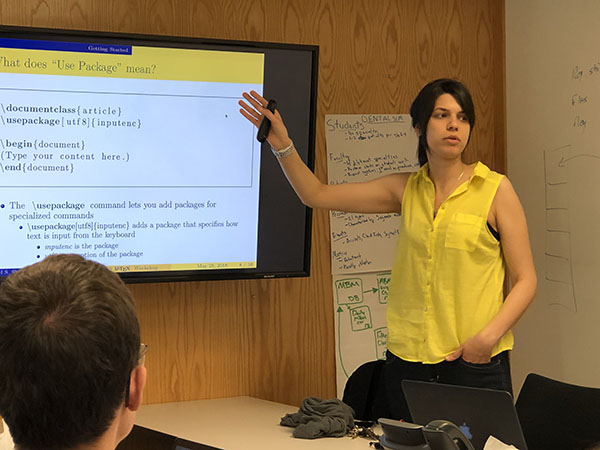 |
May 29, 2018:On Tuesday, May 29th, IOE PhD student and CHEPSter, Karmel Shehadeh, lead a workshop on LaTeX for CHEPS students. Karmel taught the use and basics behind LaTeX with her crash course session. The proficiency and functionality of LaTeX far surpass Word in terms of professional and research related necessities, so the Lunch and Learn was extremely helpful for the students. Thanks, Karmel! |
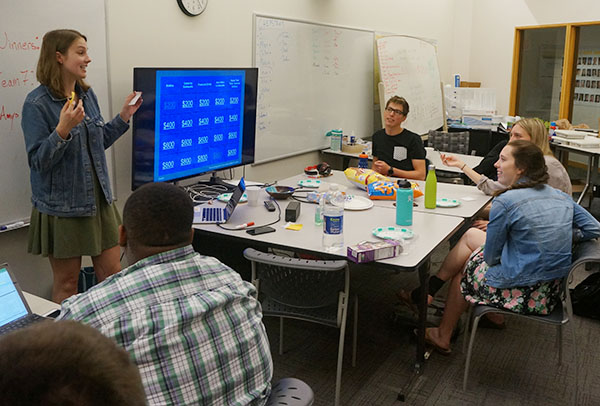 |
May 24, 2018:CHEPS students gathered for trivia and snacks on Thursday, May 24, 2018 to kick off another exciting and productive summer at CHEPS. Students had a great time playing trivia and welcoming new students while catching up with returning members of the team. The two rounds of trivia included categories such as songs of summer, Michigan sports, city skylines, and movies. After trivia, the students got dinner together for some more summer fun. |
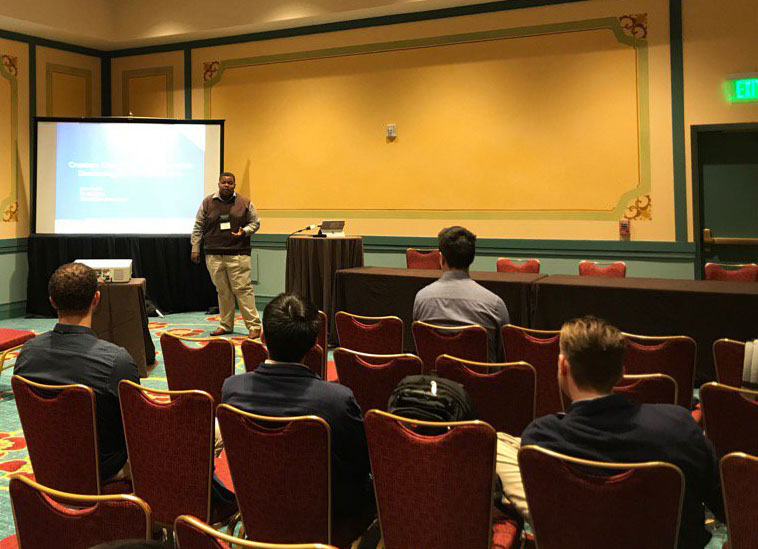 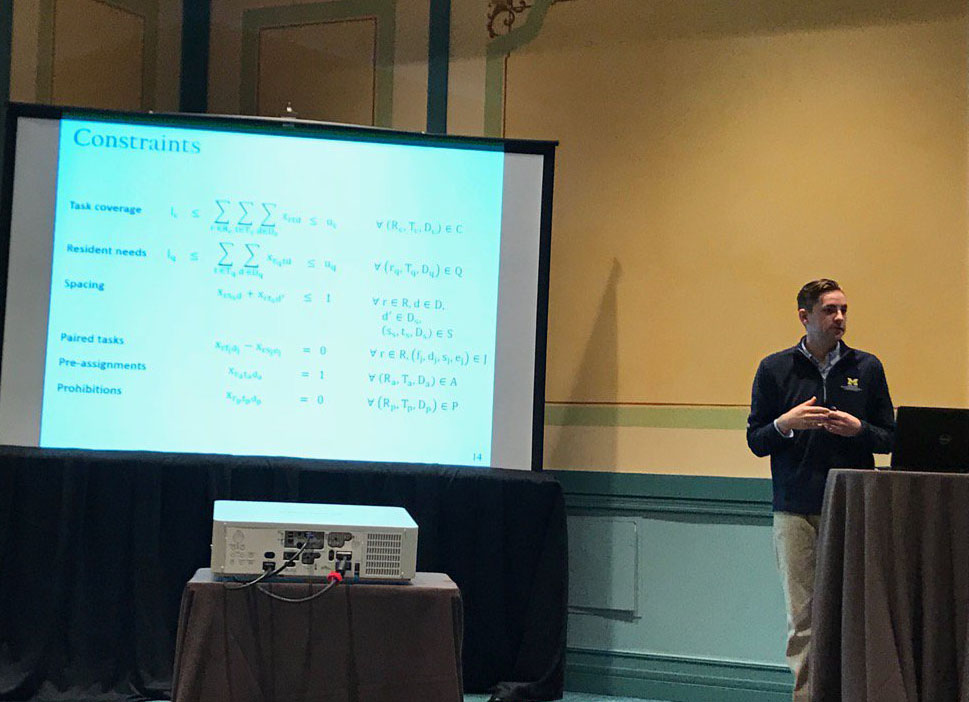 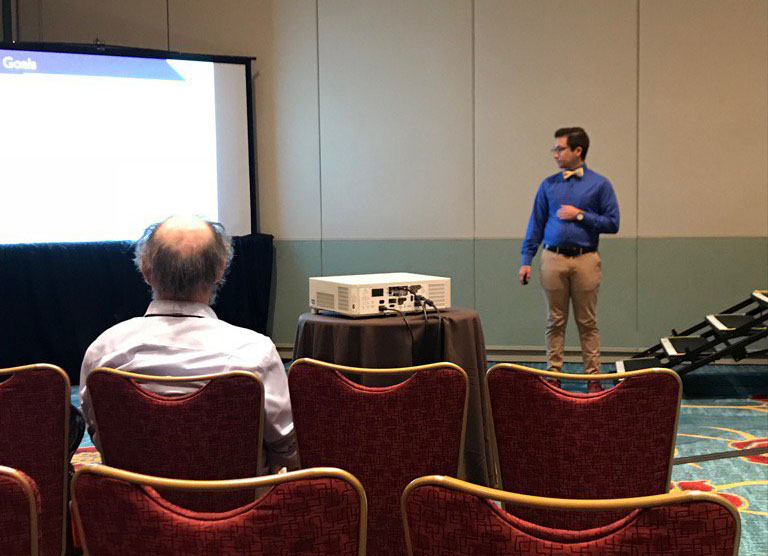 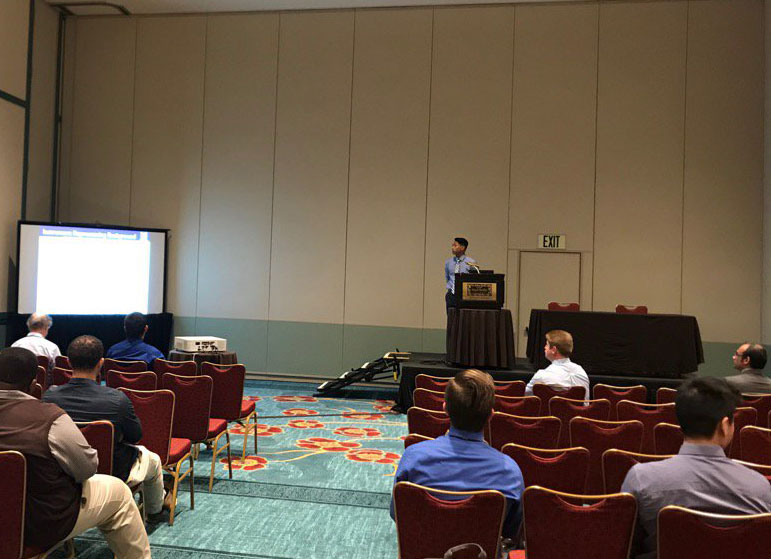 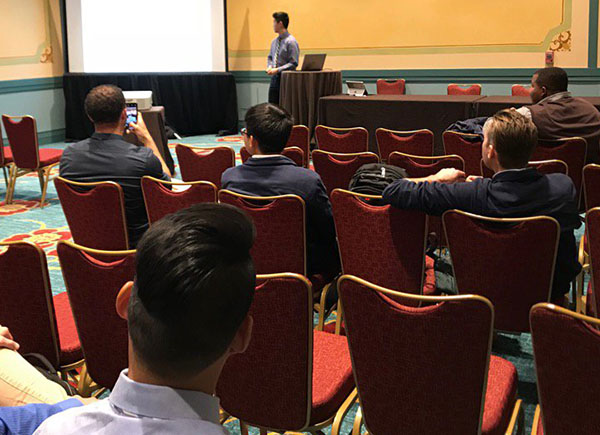 |
May 22, 2018:On May 19th to 22nd CHEPS students and staff had the opportunity to attend the Institute of Industrial Systems Engineering conference in Orlando, Florida. According to the IISE website, “IISE is the world’s largest professional society dedicated solely to the support of the profession and is an international, nonprofit association that provides leadership for the application, education, training, research, and development of industrial and systems engineering.” Students and staff had the opportunity to learn and engage with other professionals and students about their field of study and interests. While at the conference, students were able to attend presentations and posters presented by both professionals and students in industrial and systems engineering.
While at the conference, several of the students had the opportunity to give 20-minute presentations that showcased the work they are presently doing for CHEPS. Justin Rogers, an undergraduate student in Industrial Operations Engineering, presented his work titled, “Creating a Computerized Tool to Schedule Dermatology Residents Each Month”. Matt See, an undergraduate student studying chemistry, presented his work titled, “An Approach to Improve Chemotherapy Make-Ahead Policies.” Trevor Hoffman, an incoming Master’s student in Industrial Operations Engineering, presented his work titled, “Classifying and Reducing Wait Times Using Radio Frequency Identification Technology.” Wesley Chen, a Master’s Student in Industrial Operations Engineering, presented his work titled, “Introduction of a Standardized Decontamination Process in Sterile Processing Departments.” Donald Richardson, a PhD student in Industrial Operations Engineering, presented his work titled, “Improving Chemotherapy Make-ahead Policies through Discrete Event Simulation.’ Junhong Guo, a PhD student, presented his work titled, “Methods to Reduce Solving Time of a Rotation Scheduling Problem.” Lastly, William Pozehl, a CHEPS staff member, presented his work titled, “Optimizing Resident Call Assignments.” Junhong said, “The conference was fantastic. I really appreciated this opportunity to share our work with the peers and colleagues from different institutions. In addition, I also got the chance to meet with other doctoral students, especially those senior PhDs who are going to graduate very soon, which helped me learn a lot about the current trend of the academic research and job market’s interests.” Other students also had fantastic experiences at the conference. Trevor said, “I found the sessions I was able to attend very interesting, but what I appreciated most was hearing about another project dealing with using technology in a clinic setting to track patients. It also confirmed that our method for the Glaucoma project might be working a bit better than expected.” In addition to attending presentations and poster walkthroughs, IISE gave students plenty of networking opportunities. Our Michigan engineers were able to mingle with other students from schools across the nation and met some students from as far away as Mexico. CHEPS student Trevor enjoyed attending IISE because it gave him more insight on the connection between healthcare and industrial and system engineering. HEPS masters student Wesley really liked how diverse Industrial Systems Engineering can be and how it can really relate to anything. Outside of the conference, students were able to enjoy the warmth of the Florida sun while lounging near the pool. The conference was held only a boat ride away from Universal Studios so students were able to take trips down to the City Walk of Universal Studios. Overall, this trip was not only a great way to learn more about industrial systems engineering but also a great way to connect with other CHEPS students. |
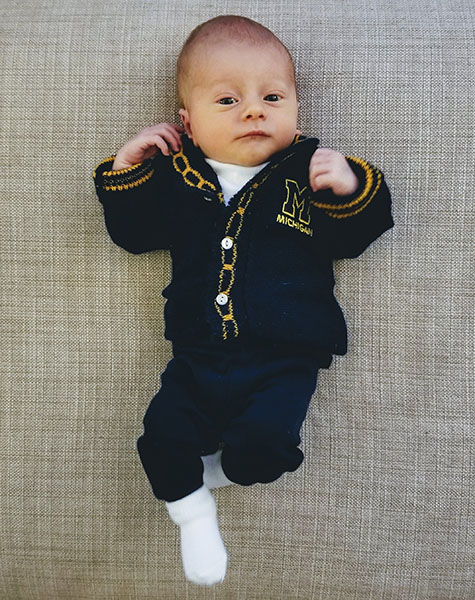 |
May 19, 2018:Congrats to Leslie McDonough on the birth of her son, Finnegan Robert! Leslie spent some time with CHEPS when she was a medical student at The University of Michigan. We’re pleased to welcome someone as adorable as Finnegan Robert to the extended CHEPS family and are delighted to see he’s already showing his Michigan Spirit. |
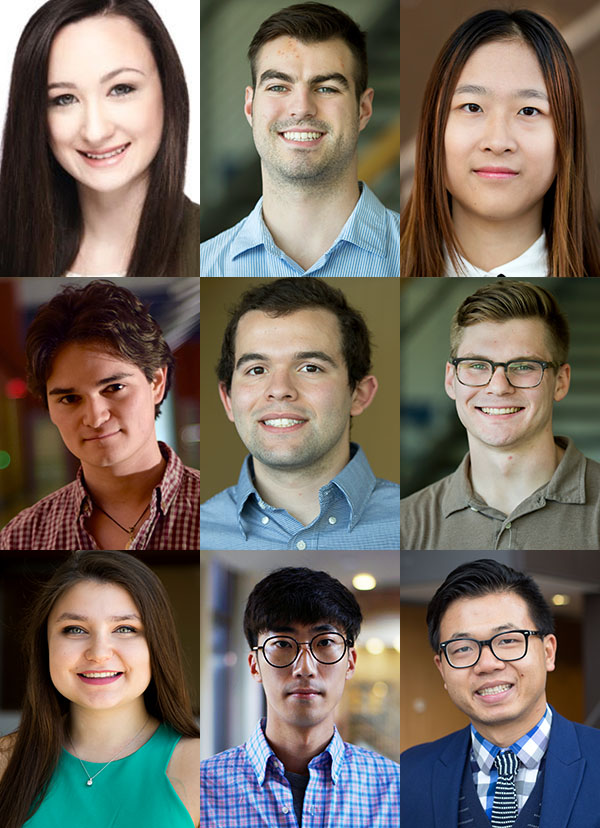 |
May 18, 2018:Congratulations to our most recent CHEPS graduates: Tristan Clark, Erick Dagenais, Jiaoyang Li, Josh Lustig, Dale Malette, Ian McKenzie, Samantha Roth, Hwon Tak, and Bill Zang! We can’t wait to see what the future holds for each of them. Read their reflections on their time at CHEPS and see what their post-CHEPS plans are below.
Tristan Clark Erick Dagenais Jiaoyang (Summer) Li Josh Lustig Dale Malette Ian McKenzie Samantha Roth Hwon Tak Bill Zang Congratulations graduates! |
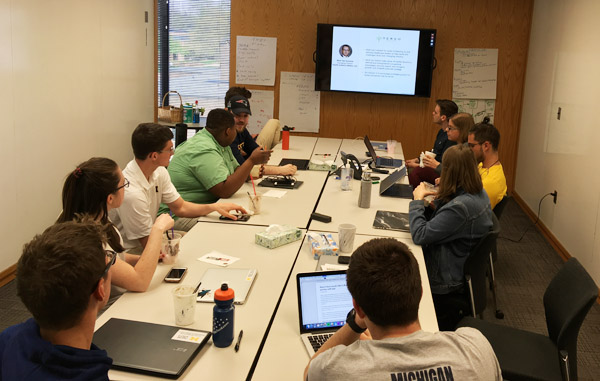 |
May 8, 2018:CHEPS students, while enjoying refreshing ice cream floats, attended a webinar titled “How the Internet of Things is Enabling the Medical Device Market.” This hour-long talk given by Joe Pleshek, President & CEO of Terso Solutions, and Mark Van Sumeren, Managing Director at Health Industry Advisor, LLC, focused on the increased use of RFID and Internet of Things technology in the supply chain management of the healthcare sector. They discussed the possible cause of this trend and the effect on the market as a whole as well as the differences between traditional supply chain management and healthcare supply chain. They also offered ideas on how to improve or initiate the use of this technology in today’s market and into the future. |
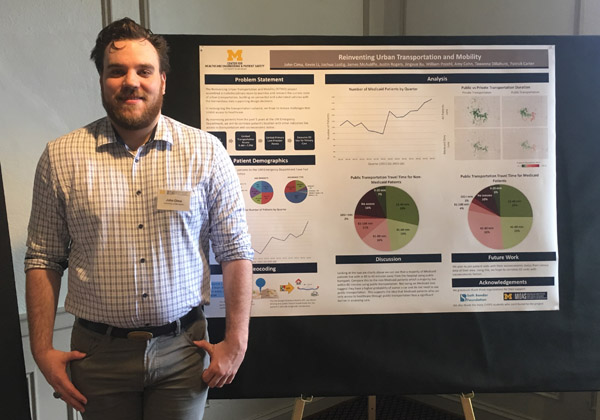 |
May 3, 2018:CHEPS students had the opportunity to attend the MIDAS (Michigan Institute for Data Science) Transportation Research Challenge Symposium. At this event, students listened to and participated in a discussion on different aspects of using data sciences for transportation problems that are being solved here at the University of Michigan. During the poster session, CHEPS student John Cima presented a poster on the impact of public transportation in Ann Arbor and access to the healthcare system. Attending this symposium and talking to others there gave these students ideas on how to improve their transportation research going into the summer. |
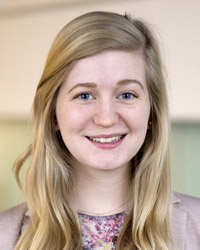 |
April 24, 2018:Healthcare Engineering and Patient Safety (HEPS) masters alum Rachel Moeckel has accepted a position at the VA Ann Arbor Healthcare System as a Health Systems Specialist (Access Coordinator). Rachel graduated from The University of Michigan in Fall 2017 with a masters degree in Industrial and Operations Engineering with the HEPS concentration. The VA Ann Arbor Healthcare System provides healthcare services for veterans in southern Michigan and northern portions of Ohio. The main hospital campus, which is located in Ann Arbor, is a referral center for specialty care and holds 109 acute care beds and 40 Community Living Center (extended care) beds. |
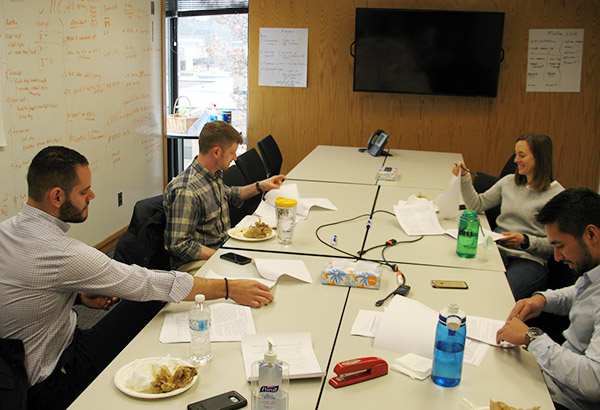 |
April 11, 2018:CHEPS and the University of Michigan’s INFORMS chapter have collaborated to launch a Healthcare Operations Research (OR) Journal Club. The journal club is intended for graduate students and highly-motivated undergraduates working in healthcare applications to discuss the latest OR methods that are being applied in the field.
Papers recently reviewed include Robust Postdonation Blood Screening Under Prevalence Rate Uncertainty (El-Amine, Bish, and Bish) and Data Uncertainty in Markov Chains: Application to Cost-Effectiveness Analyses of Medical Innovations (Goh et al.). Great discussions about these papers have helped bring new ideas to how students can formulate their research. Participation in the first sessions has ranged from undergrads to post-doctoral researchers. We look forward to continuing to discuss innovative healthcare OR articles over the summer! |
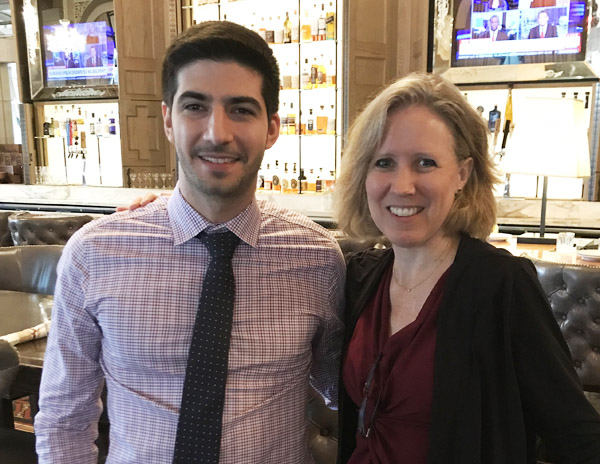 |
April 1, 2018:CHEPS alum Spyros Potiris (pictured here with CHEPS Associate Director Amy Cohn) has just been admitted to the MPH program in Health Management at the Harvard School of Public Health.
“Industrial Engineers bring a unique approach and skill set to address major challenges in healthcare,” Spyros said. “Combining my IE background with a strategic perspective on healthcare operations and a better understanding of healthcare policy gained through the MPH program will allow me to guide institutions in delivering safe, affordable, accessible and efficient care.” For the past 4 years, Spyros has held various positions at the Dana-Farber Cancer Institute in Boston. He is currently the program manager for the EHR operations team, focusing on designing and implementing initiatives to improve EHR-dependent processes, and promoting organizational efficiency in clinical and revenue cycle operations. He says of his time at Dana-Farber, “I enjoy collaborating with diverse groups of organizational leaders to improve operational performance and the quality of services delivered at Dana-Farber Cancer Institute.” Spyros graduated from UM in December 2013 with a master’s degree in Industrial and Operations Engineering and a concentration in Healthcare Engineering and Patient Safety through CHEPS. “Through CHEPS, I had the opportunity to work on real healthcare challenges in a multidisciplinary environment, which helped me transition smoothly into my professional career, and be able to hit the ground running,” he said. “On top of that, I got to meet many students who shared the same interests as me, and make great friends along the way!” Congratulations, Spyros! |
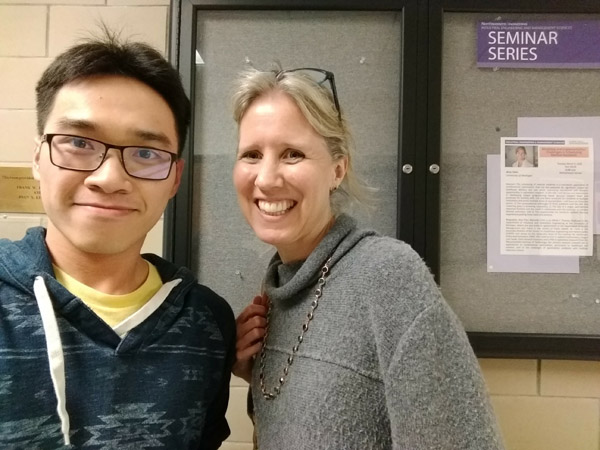 |
March 6, 2018:CHEPS Associate Director Amy Cohn recently visited Northwestern University to give a talk on “Modeling and Implementation Challenges in Scheduling Medical Residents” and share the work we’re doing at CHEPS with colleagues and students. While there, she was able to have a mini-reunion with former CHEPS student Moses Chan, now a PhD student at Northwestern. She enjoyed hearing about his research and his new home. All of us here at CHEPS hope he’ll be returning to Ann Arbor for the CHEPS symposium and reunion in the fall! |
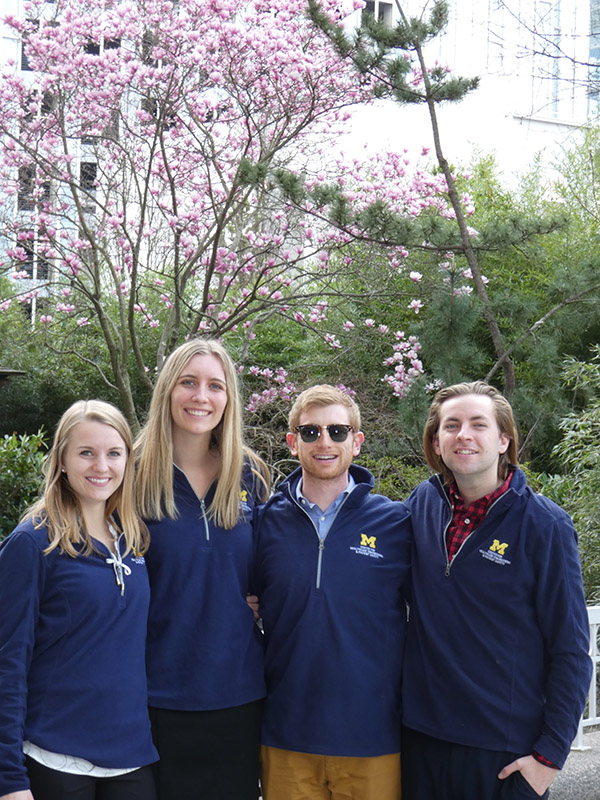 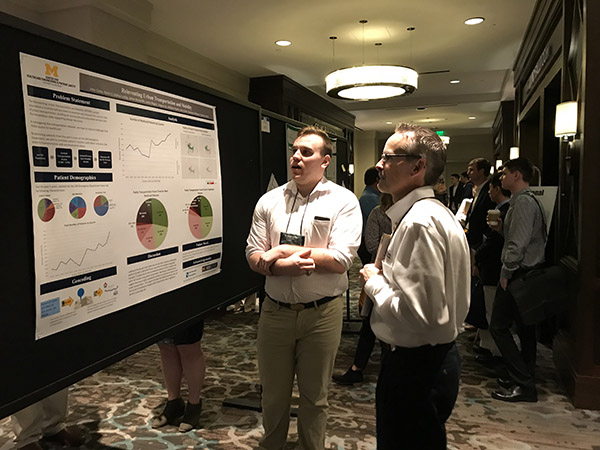 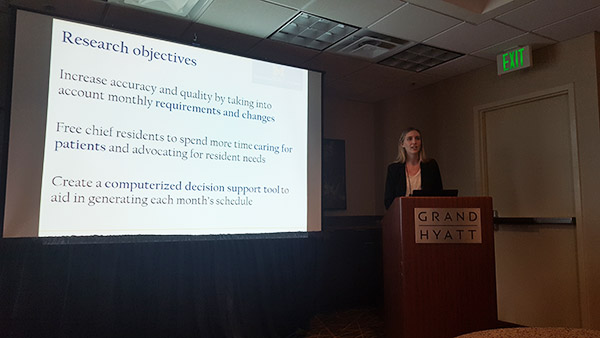 |
February 23, 2018:From February 21st to 23rd 2018, multiple CHEPS students and staff had the opportunity to attend the Society for Health System’s ‘Healthcare Systems Process Improvement’ conference in Atlanta. The conference was attended by professionals in both academics and the healthcare industry as well as students from around the world. While at the conference, the students were able to attend and present at sessions on topics like patient safety and process improvement.
Several of the CHEPS students gave talks about their own research during the conference sessions: Adam VanDeusen, a PhD student in Industrial Operations Engineering, presented his work titled, “Applying Systems Engineering Methods to Address Healthcare Access.” Billy Pozehl, a staff member at CHEPS and HEPS master’s alumni, presented on his scheduling work, “Applying Optimization Techniques to Surgical Call Scheduling.” Lastly, Chloe Smither, an Industrial Operations Engineering senior, presented on her work, “Clinic Scheduling for a Dermatology Residency Program.” Chloe Smither said, “The SHS conference was a really rewarding experience, and I am very grateful to have had the opportunity to attend the conference. I thought my presentation went well, and I enjoyed the chance to talk to people about the specifics of the project during the questions portion. It was definitely exciting to share the work we have done on the Dermatology project. I also learned a lot from other speakers through their thoughts and research on improving healthcare systems.” Other CHEPS students participated in poster sessions during the conference. Industrial Operations master’s student John Cima presented his poster on “Public Transportation and its Effect on Access to Healthcare.” Lauren Hirth, a junior in Biomedical Engineering, presented her research in a poster titled, “Developing and Implementing a New Standard Process for the Decontamination of Surgical Instruments.” In addition to their presenting experiences, the students also engaged in many other networking and learning opportunities. Student Adam Van Deusen reflected that “the SHS conference was a great opportunity to meet peers and reconnect with colleagues at other institutions.” He also enjoyed attending the SHS sessions. Adam’s favorite session of the conference was from James Hereford, President and CEO of Fairview Health Services, who presented on the quality improvement force at his organization. CHEPS student Lauren Hirth enjoyed meeting other conference attendees while presenting during the poster sessions. Lauren loved being able to discuss her research with a variety of professionals that work in the health systems field. She explained, “the projects I’m involved with through CHEPS seem to be very unique on Michigan’s campus, but at SHS it was exciting to be surrounded by people with long histories within the field.” Lauren also commented that she enjoyed hanging out with the other CHEPS students in Atlanta. Outside of the conference, the students were able to relax a bit and enjoyed seeing Atlanta. The group was even able to connect with a couple of recent CHEPS alumni that now work in the city. Over dinner, students were able to get to know the alumni and hear about their work. It was a great opportunity to strengthen the CHEPS network while reconnecting old friends and cultivating new relationships. |
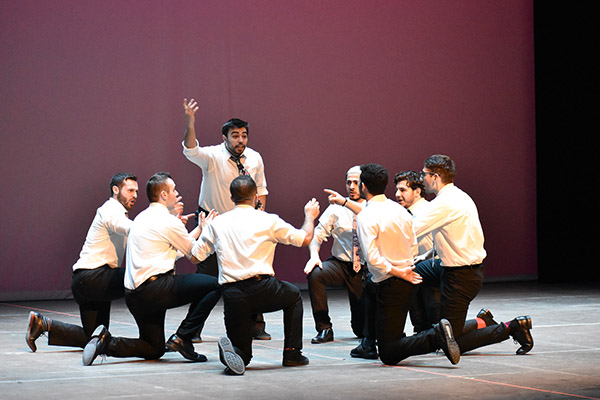 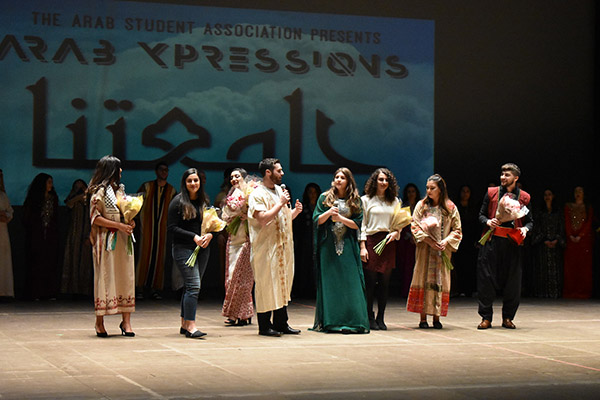 |
February 17, 2018:On February 17, 2018, CHEPSter Bassel Salka and members of the Arab Student Association (ASA) held Arab Xpressions, an event focused on celebrating Arab culture, addressing stereotypes, and uniting the University of Michigan Arab community through an entertaining evening. The program included seven dance groups, four student talent showcases, a fashion show and much more. Abdul El-Sayed, a Michigan alumni and Rhode Scholar, was a guest speaker.
“I put my heart and soul into it,” Bassel said. “It was really cool to see the community come together.” He stressed the importance of recognizing multiple cultures and identities that fall under the Arab category. “When people think of Arab they think of one thing but really what we think of as “Arab” is so different depending on the region you are talking about. For example, North African Arabs are different than those from the Levant. So with so many different unique cultures, we’re trying to be as representative as possible of everyone”. He says the group is continuing to try to expand that representation and inclusion in next year’s event. This year was by far the largest Arab Xpressions event to date. When Bassel became a member of the ASA as a freshman, the Arab Xpressions event was held in the Michigan Union and drew a crowd of about 300 people. Last year, when Bassel joined the board of the Arab Student Association, the group stepped up organization and built a program focused more heavily on Arab culture. The event moved to Mendelssohn Theater and the audience grew to around 600 attendees. That momentum continued to build this year. Bassel, now co-president of the ASA along with Rasha Jawad, worked with over twenty students to organize and plan this year’s event. They sold over 1300 tickets, effectively selling out the Power Center. In addition to dance groups, talent showcases, and a fashion show, the event focused on important community conversations. “Although it’s fun to enjoy the music and dance of our culture, we also wanted the event to also focus on Arab American identity; this resulted in some more serious aspects of the show. Serious topics included talking about portrayal in the media, addressing stereotypes, and describing Arab student activism on campus. An example of a topic that was discussed was the We Exist Campaign. Essentially, this movement calls for a Middle Eastern/North African box to be added on University forms so that we can have our students’ progress documented and receive the proper resources allocated by the University,” Bassel explained. “The most rewarding part of the show was having so many students find a sense of community,” Bassel said. “There’s something special about being with people who share the same values, have the same kind of experiences, and speak the same language as you. Being able to give students the opportunity to meet people like them, that was really cool.” There was another group of attendees Bassel appreciated as well. “It was really rewarding to see a lot of my non-Arab friends enjoy the event, especially those from CHEPS. We had about nine people from CHEPS come out. They were amazed to learn more about a culture they weren’t as familiar with. We were able to change the rhetoric that you usually hear on the news so that was really beneficial.” Arab Xpressions will continue to grow. Bassel says the group is looking at ways to hand over leadership of next year’s event and get even more students involved. Many of the people who were involved this year will serve as mentors to the new group. |
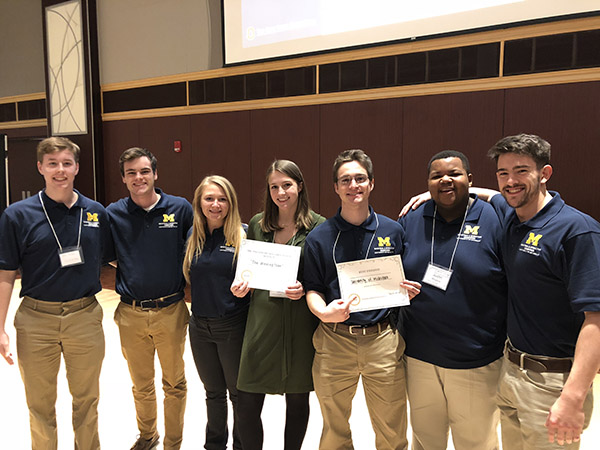 |
February 3, 2018:CHEPS students Anna Learis, Riley McKeown, and Justin Rogers attended the Great Lakes IISE Regional Conference at the Ohio State University from February 2nd to February 3rd, 2018. The conference gave attendees the chance to network with and listen to speakers from industries, take plant tours to learn about processes and potential employers and start forming their own professional networks with other up-and-coming students.
The group won one of the competition awards for an assembly line competition. They were also awarded best dressed at the conference. Anna Learis said, “What I enjoyed about the conference was the opportunity to network with other IOE students from different schools in the region, such as Wayne State and OSU. Additionally, there were speakers from many industry sectors and learning about their different career paths and histories was a very engaging opportunity.” |
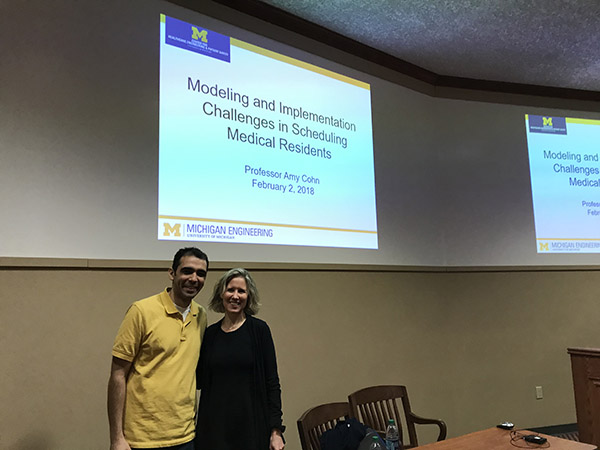 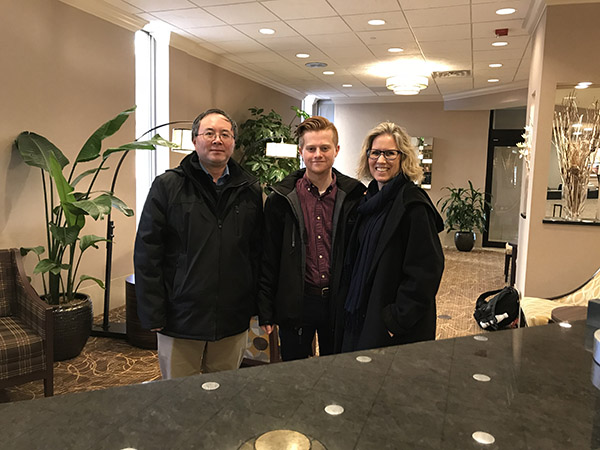 |
February 2, 2018:Center for Healthcare Engineering and Patient Safety (CHEPS) Associate Director Amy Cohn traveled to the University of Wisconsin – Madison to give a lecture on CHEPS and the research taking place at the University of Michigan at the intersection of healthcare and engineering on February 2, 2018. She was hosted by Gabriel Zayas-Caban, formerly a post-doctorate research fellow at CHEPS and now an assistant professor of Industrial and Systems Engineering at the UW – Madison. He works with the Wisconsin Institute for Healthcare Systems Engineering (WIHSE), an institute similar to CHEPS.
In addition to delivering a talk, Professor Cohn was able to meet up with graduate students in the WIHSE program. She also met with Maicen Stuart, a student interested in pursuing graduate studies at the University of Michigan, as well as two University of Michigan alums, Jinshan Li and Shiyu Zhou, both of whom are now on the faculty at UW – Madison. The visit was a valuable opportunity to compare notes about CHEPS and similar programs happing at the UW – Madison, where a lot of work integrating healthcare and systems engineering is taking place, just as it is here at The University of Michigan. WIHSE is hosting the 2018 WIHSE Conference, a day-long event bringing together practitioners and researchers in healthcare and engineering to conduct research, create new knowledge, and design better systems in healthcare, on May 2, 2018. If Professor Cohn is able to attend, she looks forward to spending time in Madison when there isn’t a -10 degree windchill. |
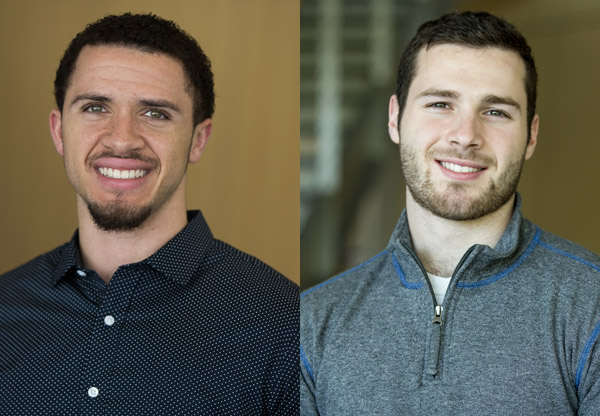 |
January 15, 2018:Donald Richardson and Bassel Salka were honored at the North Campus Deans’ MLK Spirit Awards Ceremony & Reception on Monday, January 15, 2018. The Martin Luther King Spirit Awards are given to students, student organizations, and faculty members at the University of Michigan North Campus who exemplify the leadership and vision of Dr. King through their commitment to social justice, diversity, and inclusion.
Donald has supervised several undergraduate and master’s students conducting research at the Center for Healthcare Engineering and Patient Safety (CHEPS). He’s served as a mentor to students in both CHEPS and The Department of Industrial and Operations Engineering (IOE). He serves as a graduate student coordinator in IOE and also assists with the IOE Diversity Initiative which strives to both recruit and retain underrepresented groups in the department. Recently, Donald organized and led an on-campus event for eighty 10th and 11th-grade students from the Ypsilanti and Detroit area. The students took part in multiple on-campus lab tours and participated in various STEM-focused actives. During the summer of 2016, he worked as a graduate student assistant with the Summer Research Opportunity Program (SROP) where he oversaw multiple program activities as well as mentored over 40 underrepresented undergraduate students throughout their summer research experience while continuing his own research. “I really wasn’t expecting any recognition for mentoring both high school and undergraduate students or my various leadership roles at UM. To me this is just one of my passions to do whatever I can to make sure other students interested in STEM, especially underrepresented minorities, can be afforded similar opportunities as myself,” said Donald. “One quote/proverb I always think about when it comes to service is ‘To whom much is given much is required.’” Bassel often serves as a resource for new CHEPS students. Fellow CHEPS student Anna Learis said, “During project meetings, he would ensure that everyone had a chance to input their ideas and oftentimes made a point to introduce new members to the rest of the staff. I noticed that whenever a prospective new IOE student approached our supervisor Amy Cohn, she would habitually put them in touch with Bassel so that he could answer their questions and show off our work.” Bassel is the co-founder of UMICH MLC, the first Lean consulting group on campus. He’s also part of PhiDE, the only pre-medical fraternity on campus, and works as an Orgs Study Group Facilitator for Science Learning Center. During his Freshman and Sophomore year, Bassel twice raised over $1,500 and participated in Alternative Spring Break trips to Camp For All in Burton Texas, a camp dedicated to providing assistance to children with physical and mental disabilities. He organized and lead the trip, choosing applicants from the Muslim Student Association (MSA). In addition, as Social Chair of the University’s MSA, he has continuously worked to build a sense of community on campus. Bassel is also the president of the Arab Student Association and, in his two years as leader, has taken the annual cultural show from 400 guests to over 1300. In addition, he started the Middle Eastern and North African Consortium (MENA Consortium), a group of students that are leaders in their respective MENA organizations who meet regularly to assist one another and build community. One of the projects they are working on is establishing a Middle Eastern/North African box on all University applications so that more students can have representation in the University. “It feels great being recognized for work on campus that I am so passionate about,” said Bassel of his MLK Spirit Award. Congratulations to both Bassel and Donald for the much-deserved recognition! |
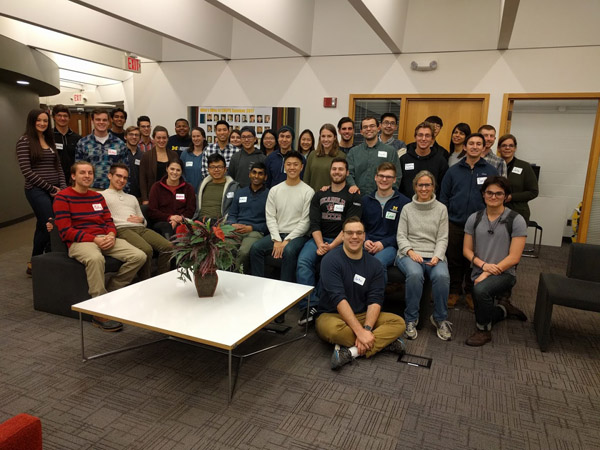 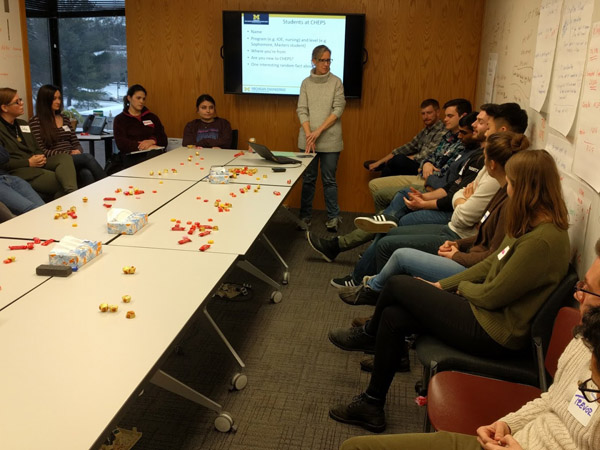 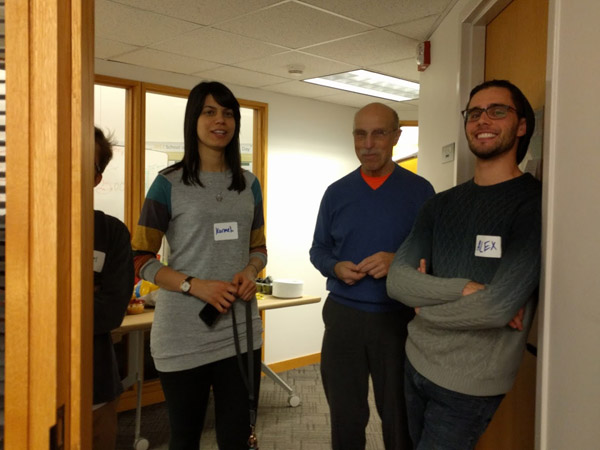 |
January 12, 2018:On Friday, January 12, 2018, CHEPS welcomed students, returning and new, to campus in a cozy meeting that marked the official kickoff of CHEPS activities in Winter 2018. Amy Cohn, associate director of CHEPS, extended her warmest welcome to the growing family of CHEPS students. She discussed important policies, procedures, and expectations of CHEPS and CHEPSters. She, also, introduced Julia Warner who joined the CHEPS family in December 2018 as a project manager. Ms. Warner will be working along with students to ensure that their research is well managed.
Jim Bagian, CHEPS director, on his part too welcomed all the excited students, reminding them of the CHEPS spirit and giving them some advice on professional conduct. And, as usual, this semester CHEPS students come from very diverse academic backgrounds, covering almost all the different majors offered at U of M in engineering, computer sciences, and medicine. Students who have experienced working at CHEPS before return because of the unparalleled opportunities. We are incredibly proud of our growing family. After the meeting, CHEPSters enjoyed a delicious dinner arranged by the CHEPS administrative assistant, Gene Kim. They enjoyed, too, some traditional sweets from Kuwait that Hanan Al-Awadhi, an IOE graduate student and a returning CHEPS student, brought in. Everything was in place for socializing, mingling with new friends and catching up with old ones. It was the perfect setting to play trivia together. Now, with a successful kickoff, CHEPSters are ready to write a new chapter including research breakthroughs, interdisciplinary collaboration, and friendship while improving the safety and quality of healthcare delivery! Welcome, 2018! |
 |
January 9, 2018:CHEPS Director Dr. James Bagian, along with Douglas Paull, a VA surgeon and co-director of VA’s Ann Arbor-based National Center for Patient Safety (NCPS), wrote an invited editorial titled “Handovers During Anesthesia Care: Patient Safety Risk or Opportunity for Improvement?” which is published in the January 9, 2018 issue of The Journal of the American Medical Association (JAMA) as a response to a study published in the same issue by Jones et al.
Jones et al describe how complete handovers among anesthesiologists were associated with significantly poorer patient outcomes and conclude that complete handovers should be minimized. Instead of minimizing complete handovers and viewing handovers as a vulnerability, Bagian and Paull recommend in their editorial to address underlying root causes – especially the use of explicit communication techniques and tools, in order to turn handoffs from a potential patient safety risk into an opportunity for improvement. |
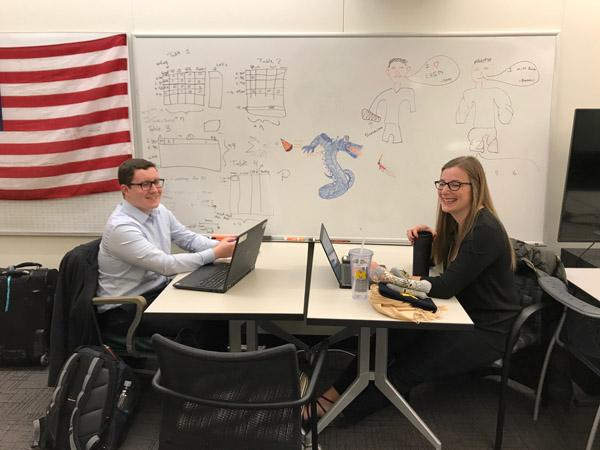 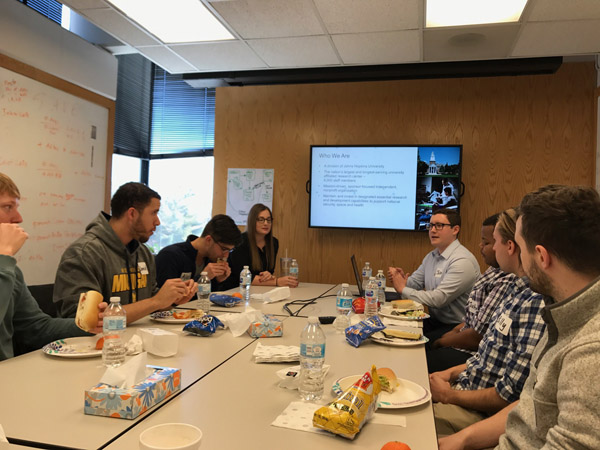 |
January 5, 2018:On Friday, January 5th, CHEPS hosted two alums, Joanna (Fleming) Blackmer and Jason Card, now working at the Johns Hopkins University Applied Physics Lab (JHU/APL). The two shared a presentation and held a discussion during a lunch and learn event. “One of my favorite things about CHEPS is our alums’ willingness to come back and mentor current students,” said CHEPS Associate Director Amy Cohn.
Joanna worked as a graduate research assistant for CHEPS and earned an MSE and BSE in Industrial & Operations Engineering from the University of Michigan. Since graduating in 2014, she has contributed to multiple projects in the National Health Mission Area as a health systems engineer at the Johns Hopkins University Applied Physics Lab. She has supported the Patient Centered Medical Home, Value Based Care, Trauma Center Verification and Designation, Dental Enterprise Patient Safety and developed the Medical Home Port Management Tool (acuity-based forecasting tool). Jason Card is a CHEPS alum with MSE and BSE degrees in Industrial & Operations Engineering from the University of Michigan. Since graduating in 2013, he has supported health systems optimization projects through performance improvement techniques, database design, population health analysis, simulation modeling, and change management. He is part of the Health Systems Engineering Group at APL with experience supporting a variety of clinical and ancillary services. Joanna and Jason weren’t the only alums at the event. Eli Sherman was in attendance and said, “As a CHEPS and UM alum is was great to come back to visit and see that CHEPS is doing better than ever, continuing to lead the way in innovation in healthcare through its own work and by educating those that will drive change in the years to come.” Jason and Joanna provided an overview of APL and its history as an advisor to the U.S. Government. They discussed APL’s Research and Exploratory Development Department, which oversees the health initiatives, and talked about life as an APL health systems engineer and analyst. They presented a high-level overview of current and past projects. Donald Richardson, a CHEPSter and IOE PhD student in attendance, enjoyed learning more about the history of APL. “I didn’t realize (1) JHU/APL was initially started to help support the military in WWII by finding a way to better protect ships from air attacks. (2) Ever since they have been contracted with the government as a support lab and not focused on selling their services/products like a consulting firm. This complements the healthcare application projects very well by avoiding being salesmen and just focusing on helping the patients/medical professionals,” he said. IOE undergraduate student, Riley McKeown, appreciated learning more about Joanna and Jason’s day to day work. He said, “It was great to learn from Jason and Joanna about projects they are working on to improve communication between multiple doctors treating the same patients, as well as the challenges they have faced during the implementation process.” “I thought the Lunch and Learn was great,” said Michael Kalmus, also an IOE undergraduate. “I enjoyed learning more about the broad scope of the APL, value-based care and the interesting projects Joanna and Jason are currently working on. I also enjoyed hearing their insights on challenges in healthcare and how they are using analytics and systems engineering to solve them (i.e. creating a dashboard that allows different providers to access a patient’s medical records easily).” Thank you to Joanna and Jason for returning to CHEPS and offering such an interesting lunch and learn presentation! |
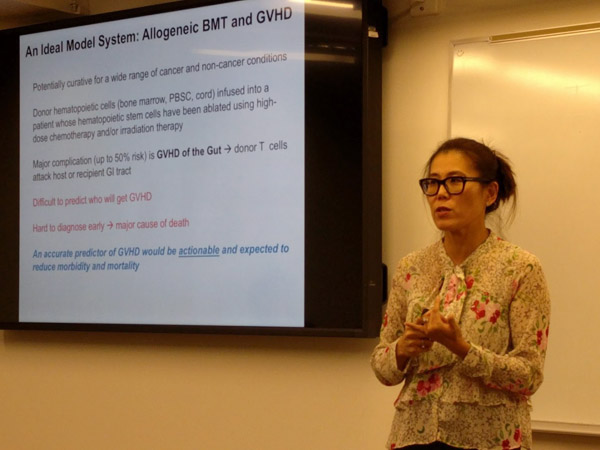 |
December 11, 2017:Our final talk of the Fall 2017 Providing Better Healthcare through Systems Engineering seminar series featured Dr. Sung Won Choi from the University of Michigan Medical School presenting a talk titled “Multi-dimensional, Highly Time-resolved Big Data Approach for Disease Prediction.”
Dr. Sung Won Choi is an Associate Professor of Pediatrics and Communicable Diseases at the U of M Medical School and, in 2017, she was named the inaugural Edith S. Briskin / Shirley K Schlafer Research Professor of Pediatrics. She has a research interest in translational medicine, more specifically in the field of blood and marrow transplantation (BMT). She is recognized for her work in translating the use of histone deacetylase inhibition in BMT patients for prevention of a devastating complication known as graft-versus-host disease (GVHD). In her presentation, Dr. Choi spoke about one of the major unmet challenges in today’s care, individualized prediction of disease and disease-related events. In traditional care settings, disease-identification is symptom-based and unidimensional. For many patients with no evident symptoms or symptoms that are common across many diseases, this means a late onset of treatment. Patients with GVHD, a complication following the receipt of donor tissues (blood and marrow transplants) from a genetically different person, for example, suffer most from the late diagnosis. GVHD patients exhibit similar symptoms to other diseases such as skin rash, shortness of breath, weight loss and general fatigue, yet due to a unique condition. In GVHD, the donor immune cells attack the host body’s cells, including lungs, liver, and skin cells. Disease identification is only possible with the use of biomarkers. So, in order to offer more patient-centered, more personalized care for blood and marrow transplantation patients, Dr. Choi in a joint effort with collaborators from machine learning (Dr. Wiens), medical oncology (Dr. Tewari), computational biology (Dr. Li) and mechanical engineering (Dr. Kurabayashi) at the U of M is using complex computational methods to collect multi-parameter, highly time-resolved data that would enable her and her team to make accurate short-term disease predictions, and then to start the medical intervention as early as possible (pre-symptoms state).That would make, she said, the intervention more effective, more personalized, and more patient-centered! Now, as we adjourn this season, we wish you and your dear ones a very happy and a warm holiday. We will be looking forward to seeing you again for next year’s Providing Better Healthcare through Systems Engineering seminar series. Happy Holidays! |
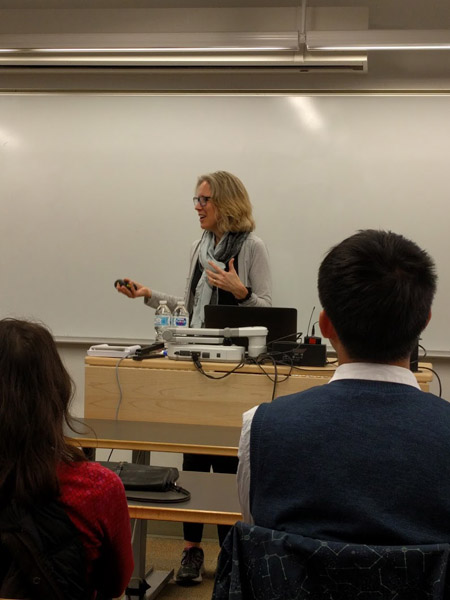 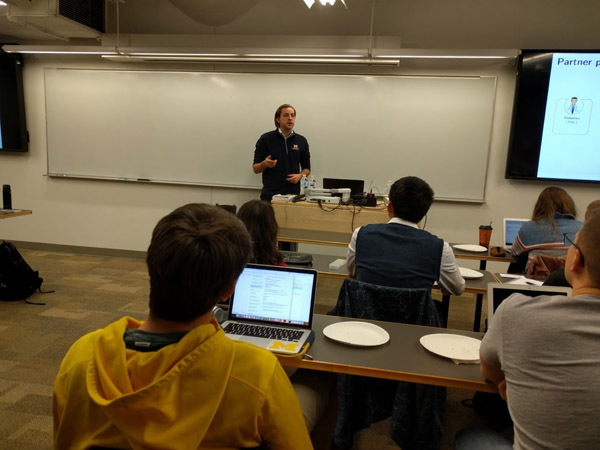 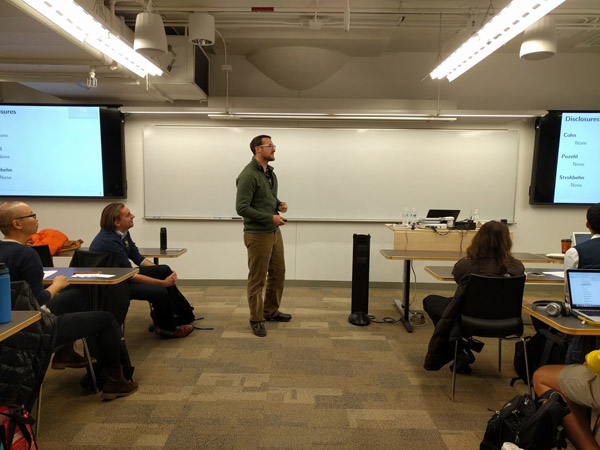 |
December 4, 2017:This December, the Providing Better Healthcare through Systems Engineering seminar series started off the month with a talk on “Block Scheduling for Medical Residents” featuring Dr. Amy Cohn, Dr. Garth Strohbehn, & Mr. William Pozehl.
Dr. Cohn is a professor of Industrial & Operations Engineering at the University of Michigan and the Associate Director for the Center for Healthcare Engineering and Patient Safety (CHEPS). Her primary research interest is in robust and integrated planning for large-scale systems, predominantly in healthcare and aviation applications. Dr. Strohbehn is a general internist and chief medical resident at the U of M Health System. He has been a member of the Internal Medicine Residency Program since 2014 and, along with three colleagues, chief resident since June 2017, where his major shared responsibilities include scheduling, training, mentoring and advocating for resident well-being. His primary research interest is in medical education, more particularly in educational systems redesign, novel educational methods (visual arts and mindfulness), and clinical research education. Mr. Pozehl is a researcher at CHEPS. His work focuses on enhancing care delivery through building models to schedule care providers with the goals of improving schedule quality and reducing the burden of constructing these schedules. In a joint talk, the speakers explained how scheduling medical residents to appropriate medical shifts remains a challenge to many academic health centers, including Michigan Medicine. These schedules must balance between institutional, professional, and educational requirements, in addition to individuals’ preferences (e.g. day-off requests). Many of these schedules are constructed manually, a time-consuming and error-prone process. Furthermore, manually-developed schedules tend to exhibit some degree of bias. Thus, in order to maintain the highest morale and well-being of the residents, and to enhance quality of patient care, the team developed a customized linear programming model that is capable of capturing the competing needs and the ever-evolving requirements of numerous residency programs at U of M, constructing schedules for more than 400 residents and 150 services annually. The automated scheduling significantly reduces time spent to construct a single schedule and improves schedule quality. The lecture concluded with a very thought-provoking discussion on how linear programming models could positively impact clinical practice while developing deep knowledge of complex systems in healthcare. We look forward to seeing you in our last seminar for this season, Monday December 11, 2017 with a talk on “Multi-dimensional, Highly Time-resolved Big Data Approach for Disease Prediction” by Dr. Sung Won Choi from the University of Michigan Department of Pediatrics. |
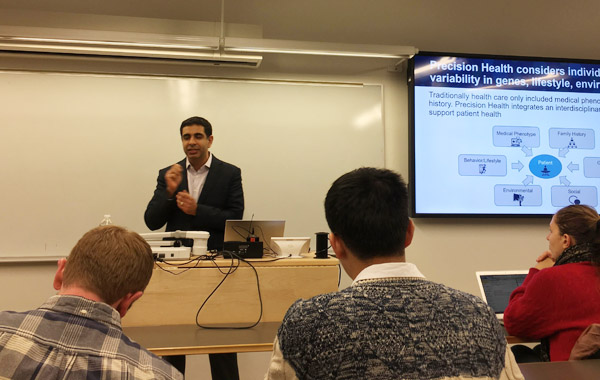 |
November 27, 2017:On November 27, 2017, Dr. Sachin Kheterpal spoke as part of the Providing Better Healthcare through Systems Engineering seminar. Dr. Kheterpal is an Associate Professor of Anesthesiology and Associate Dean for Research Information Technology at the University of Michigan Medical School. His career has been focused on the novel use of IT and electronic health records for patient care, quality improvement, and research. He is recognized as a national leader in perioperative large dataset clinical research and has published numerous articles, editorials and book chapters regarding intraoperative management and long-term postoperative outcomes. Using innovative techniques to integrate administrative, EHR and registry data across institutions, he leads the Multicenter Perioperative Outcomes Group, a research and quality improvement consortium of more than 40 anesthesiology and surgical departments.
In his presentation, titled “From Big Data to Small Decisions: Fulfilling the Potential of Precision Health,” Dr. Kheterpal discussed the new precision health initiative that the University of Michigan launched. It’s an initiative that spans all the schools and colleges of the U of M campus and brings together different disciplines to advance the prevention, diagnosis, and treatment of disease. This initiative works to support the university’s mission and commitment to research, education, and service. He then spoke about the five work streams: Research, Cohort development, Data & Analytics/IT, Health Implementations, and Education & Training. He next spoke about how the initiative is still in its infancy and has planned over the next several years for growth. The work that Dr. Kheterpal and those involved with the initiative will do has amazing implications for the future of healthcare at the University of Michigan Please join us on Monday, December 4th, 2017 as Dr. Amy Cohn, Billy Pozehl, and Dr. Garth Strohbehn speak on “Block Scheduling for Medical Residents.” |
 |
November 20, 2017:On November 20, 2017, the Providing Better Healthcare through Systems Engineering seminar had the pleasure to welcome Dr. Geoff Barnes to come talk to us about Health Systems Engineering and Implementation Science: Using the Best of Both Worlds to Standardize Periprocedural Anticoagulation.
Geoffrey Barnes, MD, MSc, is a cardiologist and vascular medicine specialist at the University of Michigan. He completed his undergraduate degree in Biomedical Engineering at Washington University in St. Louis, followed by medical school, residency and fellowship training at the University of Michigan. He has been on faculty at the University of Michigan since 2014. He co-directs the Michigan Anticoagulation Quality Improvement Initiative (MAQI2), a collaborative of six health center anticoagulation clinics aimed at improving care for patients across the state of Michigan. Informed by his undergraduate engineering degree, he strives to use logical models to understand and improve healthcare delivery systems. His current research is focused on improving the delivery of anticoagulation care for patients undergoing surgical procedures. In his presentation, Dr. Barnes introduces challenges in regard to the use of blood thinners for different health conditions. Blood thinners are used because a patient has a higher risk of blood clots in the heat or arteries. As blood clots, it can lead to heart attacks or even a stroke. However, there are challenges when it comes to using blood thinners. As blood thins, blood clots less which poses difficulty when it comes to possible surgeries while on blood thinners. For patients who are on blood thinners and need surgery, doctors advise patients to stop taking blood thinners a few days before because the effect of the drug does not start and stop immediately. Doctors have introduced medicine to bridge the gap between taking blood thinners to surgeries and back to taking blood thinners. However, the authors think that the new medicine will instead create an urgent need for an expansion as well as an evolvement of those traditional clinics, as there are three major purposes the new clinic could serve. Join us next week for a talk on “From Big Data to Small Decisions: Fulfilling the Potential of Precision Health” by Sachin Kheterpal, MD, MBA. |
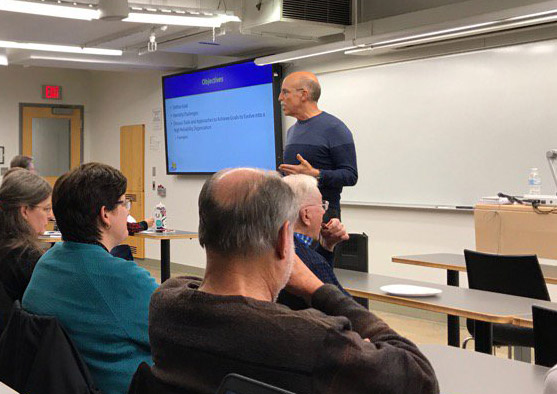 |
November 13, 2017:On November 13, 2017, the Providing Better Healthcare through Systems Engineering seminar featured Center for Healthcare Engineering and Patient Safety Director, James Bagian. In addition to his position as Director here at CHEPS, Dr. Bagian is a Professor in the Department of Anesthesiology in the Medical School and in the Department of Industrial and Operations Engineering in the College of Engineering at the University of Michigan. Previously, he served as the first Director of the VA National Center for Patient Safety (NCPS) and the first Chief Patient Safety Officer for the Department of Veterans Affairs from 1999 to 2010 where he developed numerous patient safety related tools and programs that have been adopted nationally and internationally. Presently, he is applying systems engineering approaches to the analysis of medical adverse events and the development and implementation of systems-based corrective actions that will enhance patient safety primarily through preventive means.
In his presentation on “Patient Safety: Challenges and Ways to Overcome Them,” Dr. Bagian discussed how patient safety has become a commonly recognized challenge among not only care providers but also among patients throughout the world. Its rise to prominence was spurred by the Institute of Medicine’s (now called the National Academy of Medicine) landmark report titled ‘To Err Is Human.’ While initially, there was a good deal of denial in the medical profession that the level and frequency of harm to patients was not as high as the report contended, 44,000 to 98,000 annually, there was general agreement that the number by any accounting was too high. More recently, there have been reports that put the annual number of deaths as high as 250,000 making it the 3rd leading cause of death in the USA. This increase in the reported number of patients harmed may be more a result of the methods used in the counting process rather than an increase in the risk of harm due to care but reinforces the reality that the risk is still one that can benefit from corrective action. Dr. Bagian discussed some of the barriers to improvement. Obstacles to improvement range from a failure to acknowledge that the problem exists, to who is responsible, to an over-simplistic and superficial perspective that seldom goes past the determination of proximate cause and implementation of siloed symptom-based corrective actions. The failure to routinely take a systems-based approach to the identification of vulnerabilities that place the patient at risk and failure to formulate and implement corrective actions that address these foundational vulnerabilities are the principal challenges that the patients and healthcare faces today. Dr. Bagian ended his seminar with a discussion of potential approaches to overcome the barriers to improvement. Please join us on Monday, November 20th, 2017 to hear Dr. Geoffrey Barnes discuss “Health Systems Engineering and Implementation Science: Using the Best of Both Worlds to Standardize Periprocedural Anticoagulation.” |
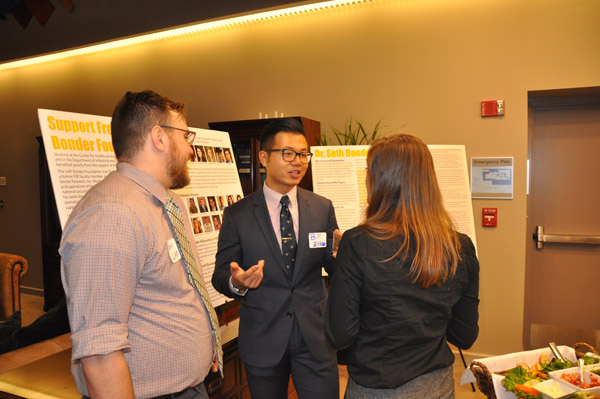 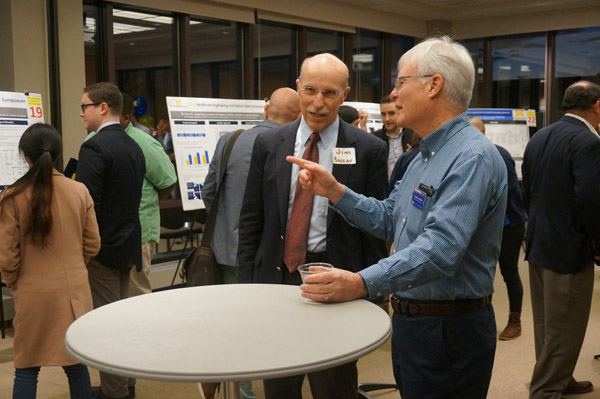 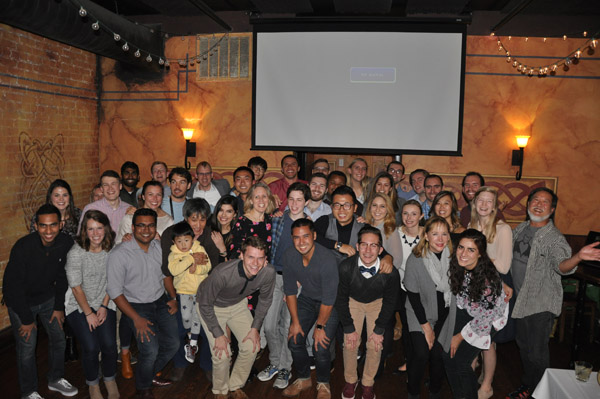 |
November 6, 2017:On Monday November 6th, 2017 over 120 guests gathered for the annual Healthcare Engineering and Patient Safety Symposium. Posters were on display representing a variety of research and projects from inside and outside of the university. Attendees came from throughout the university, representing Engineering, the School of Public Health, the Health System, the Medical School, the School of Nursing, and the Institute for Healthcare Policy and Innovation. Several, like returning alumni and local corporate representatives, also attended from outside the university. Attendees mingled throughout the poster rooms, learning about the research students and faculty are doing, and connecting with new and old friends.
This year’s poster winner was “A Dynamic Approach to Improve Chemotherapy Pre-mix Policies” presented by Donald Richardson, Hwon Tak, Matthew See, and Amy Cohn. Lauren Steimle also took home some treats after winning the raffle for tweeting about the symposium! For the second time this year, alumni didn’t just attend the symposium and the traditional reunion dinner held the Friday before, several also took the time to hold a panel discussion for current CHEPS students. The panel focused on allowing participants to share their experiences in the healthcare field and answer questions about the industry. One of the best parts of the symposium is seeing how big the CHEPS community has grown over the past year, and this year we had quite an impressive crowd. The energy and passion for collaboration and healthcare improvement was evident throughout the night. Thank you to everyone who joined us! |
 |
October 30, 2017:On October 30, 2017, Dr. David Burke presented a seminar titled, “‘Deep Monitoring’ Chronic Disease in Underserved and Remote Populations” as part of the Providing Better Healthcare through Systems Engineering seminar series. His seminar reviewed initiatives led by University of Michigan faculty and external partners to address the growing challenge of chronic disease throughout the world, an issue exacerbated by a global healthcare workforce shortage.
Dr. Burke discussed how his team is co-opting technologies to aid in monitoring and patient education of chronic disease, especially in underserved populations. His team uses parallel technology strategies that rely on high-volume manufacturing of digital electronics and standardized transportation. Dr. Burke provided examples of applications, including coopting digital cameras and a video game system to use in remote health monitoring, as well as a renovated shipping container that can be used as a setting for providing vision or dental exams. His team’s impressive work is already making a difference in several areas including Jamaica; a short video about the team’s innovative eye clinic can be found here: https://www.youtube.com/watch?v=_qfhuoYZoIY. The work of Dr. Burke and his colleagues is providing great value to the University of Michigan, as well as external communities, through their impact on service, education, and research. Please note: There will be no seminar on Monday November 6. In its place, please join us from 5-7:30PM in the 3rd and 4th floors of the Robert H. Lurie Engineering Center for the 2017 Healthcare Engineering & Patient Safety Symposium, RSVP here! |
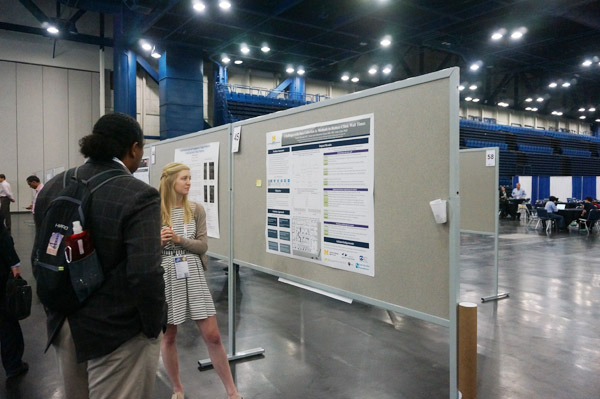  |
October 25, 2017:The Center for Healthcare Engineering and Patient Safety (CHEPS) made a strong appearance at the Institute for Operations Research and the Management Sciences (INFORMS) Conference in Houston, Texas from October 22 – 25, 2017. This conference is one of the largest for those in operations research.
CHEPS brought a dedicated healthcare research presence, with each attendee presenting their research, either orally or by poster. Specifically, the CHEPS presentations at the conference were as follows:
Rachel Moeckel, a second year Master’s student at CHEPS, stated the following of her experience: “I feel so grateful to have been able to attend INFORMS this year! It was exciting to be a part of this event, surrounded by thousands of people who are excited by some of the same things I am. It felt connecting relationally to spend time with those who attended from CHEPS. I also thought my poster presentation went well. I intentionally started conversations with those who would glance at my poster, hoping to make it easier to transition into presenting. Through engaging with people, I received many suggestions, possible connections, related research, and pertinent questions.” Students gained exposure to companies looking for candidates with industrial engineering education and to a great deal of research that others were doing in this field. They also participated in networking/social events held on Monday evening: “Michigan Nite” and the Women in OR/MS Social. And in the midst of all this, the group was able to enjoy Houston, exploring the underground tunnel system connecting many of the skyscrapers and visiting Space Center Houston for a tram tour of NASA Johnson Space Center. |
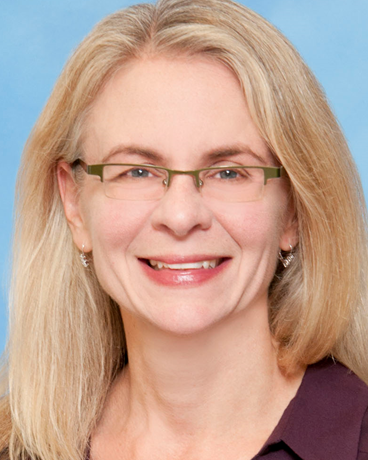 |
October 9, 2017:On October 9, 2017, our Providing Better Healthcare through Systems Engineering seminar featured Dr. Lisa Prosser from the Department of Pediatric and Communicable Diseases as well as the Department of Health Management and Policy at the University of Michigan. Dr. Prosser is also the director of the Child Health Evaluation and Research Center (CHEAR). Here, her research focuses on measuring the comparative effectiveness and cost-effectiveness of childhood health interventions using methods of decision sciences and economics.
In her presentation on “Using Decision Modeling to Inform Newborn Screening Policy Decisions for Pompe Disease: A Case Study,” Dr. Prosser introduced the audience to the applications and advantages of using decision analysis in healthcare, specifically determining various newborn screening policies. She highlighted how these models allow for an extension of the time horizon beyond any clinical trials, allow the researcher to simulate both actual and hypothetical scenarios, as well as require that all assumption be explicitly defined and agreed on by experts in the field. Subsequently, these models also result in identifying sources of uncertainty which help prioritize future research. Next, she introduced her case study on the process for introducing newborn screening for infantile Pompe disease. Any new condition suggested for screening must first be approved by the Advisory Committee on Heritable Disorders in Newborns and Children. While this committee has met since 2004, decision modeling has only been incorporated in the last 5 years to better inform the committee on which conditions to approve for newborn screening. Dr. Prosser stressed the importance of avoiding the use of very complex models due to them being perceived as a “black box” and therefore disregarded by policymakers. She then presented her decision model for infantile Pompe disease screening and clinical identification. Focusing on a 3-year time horizon, the model projected the key health benefits and harms if the newborns were screened for a particular condition. Considering the predicted 4 million US newborns each year, her model projected that screening methods will identify 134 cases of the Pompe disease and anticipated 13 averted deaths with 26 additional children who will not require invasive ventilation. While life-saving for the onset cases, there is also the consideration of overdiagnosis for a patient who would have never shown symptoms otherwise. Even with no symptoms, these children potentially can be denied by certain life or health insurances due to their pre-existing condition on record. Dr. Prosser uses this point to motivate her future research by expanding the 3-year time horizon to a lifetime model. This will allow her to capture the potential harms of a late onset diagnosis. She also plans to perform a cost-effectiveness analysis which includes both the cost of screening as well as long-term treatment cost. Following the presentation, Dr. Prosser continued the discussion over Q&A on her decision analysis model as well as challenges posed by the nature of a problem involving federal policymakers, pharmaceutical companies, patients, providers, and insurances companies. Please come back and join us on Monday, October 30th, 2017 to hear Dr. David Burke discuss his work on “Deep Monitoring Chronic Disease in Underserved and Remote Populations.” |
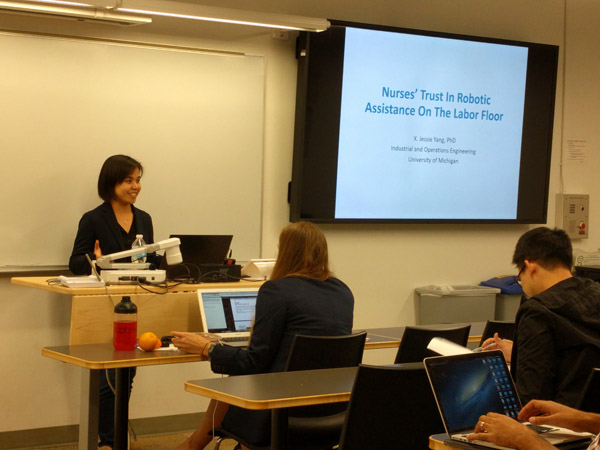 |
October 2, 2017:Our first Providing Better Healthcare through Systems Engineering seminar in the month of October took place on October 2, 2017 and featured Dr. Xi Jessie Yang from the Department of Industrial & Operations Engineering at the University of Michigan. Dr. Yang joined U of M in 2016 as an assistant professor after completing a postdoctoral fellowship at MIT. She earned a PhD (2014) and a MEng (2009) in Human Factors Engineering and a BEng from Electrical and Electronic Engineering (2006), all from Nanyang Technological University, Singapore. Her research interests include human-robot interaction and human factors in healthcare. Please refer to http://icrl.engin.umich.edu/ for more information.
In her presentation on “Robotic Assistance in Coordination of Patient Care,” Dr. Yang introduced three studies that investigated the use of automated, embodied systems in healthcare settings in order to enhance efficiency and reduce cost. The first study evaluated the degree of trust of robotic assistance on bed allocation and personnel the healthcare providers have in comparison to a computer-based program. The study found higher rates of trust in the assistive device recommendation when the device is more sociable (in this case the robot) and when the proposed recommendations are of quality. The second study, on the other hand, investigated the irrationality in trust assessment. Dr. Yang explained that trust in automated decision support systems is not rational as people are more likely to trust a decision support system if the decision is more difficult for them to make on their own. She added that the study found that the magnitude of trust loss is larger than the magnitude of trust gain. She strengthened her earlier findings with a final study that investigated trust evolution & stabilization. The study had participants pilot drones and showed them two displays to aid in threat detection: a binary display and a likelihood display. They then used benchmark surveys and questionnaires to quantify the trust levels, which showed that trust evolves over time, eventually stabilizes, and can be modeled as a first-order LTI system. The lecture concluded with a very thought-provoking discussion as research in healthcare automation continues to pose engaging questions. Of main interest were social behaviorism and technology, ethics, and regulations. Join us next week for a seminar on “Using Decision Modeling to Inform Newborn Screening Policy Decisions for Pompe Disease: A Case Study” by Lisa Prosser on October 9, 2017. |
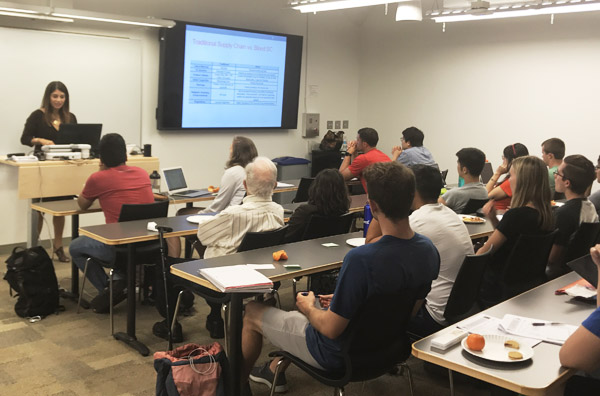 |
September 25, 2017:The third lecture in the 2017 Providing Better Healthcare through Systems Engineering Seminar Series took place on September 25, 2017 and featured Dr. Grisselle Centeno, an Associate Professor in the Department of Industrial and Management Systems Engineering at the University of South Florida. Her research and teaching interests include optimization-based modeling for the planning and control of operations in healthcare, transportation, and manufacturing industries. She possesses experience in working with large-scale mathematical programming models and building decision support systems. Her research work has been supported by the National Science Foundation (NSF), the Florida Department of Transportation (FDOT), and the Office of Naval Research (ONR), among other sources. Dr. Centeno is also highly involved in conducting research in engineering education and promoting the growth of a diverse engineering workforce. Dr. Centeno’s talk titled “The Bloodmobile Routing Problem” delved into how blood centers must determine on a daily basis a set of locations among a group of potential sites to route bloodmobiles for blood collection so as to avoid shortages for health interventions.
Dr. Centeno began her talk with some general background on blood donations in the US by asking the audience a few questions:
Considering how blood is such a scarce commodity, Dr. Centeno then spoke about the differences between a traditional supply chain and a blood supply chain and noted that the structure is in reverse since platelets, red blood cells, and plasma are all extracted separately. She also noted the potential threat to human life if a shortage were to occur. Dr. Centeno then when on to discuss the integer programming models used to model the problem in a way to incorporate variable durations in bloodmobile visits, uncertainty in blood potentials and multiple bloodmobile types. She demonstrated how small instances of the problem (up to 30 locations to visit) were solved to optimality using the branch-and-price algorithm, and CPLEX was used to solve larger-scale settings of the problem. The study showed that as demand increases, a higher number of bloodmobiles must be operated but if there are more donation locations to select from, fewer bloodmobiles are required and the distance traveled to satisfy the blood demand is shorter. It also showed that the total distance traveled is highly dependent on random donation locations. Please join us on Monday, October 2 to hear Xi Jessie Yang present on “Nurses’ Trust in Robotic Assistance on the Labor Floor.” |
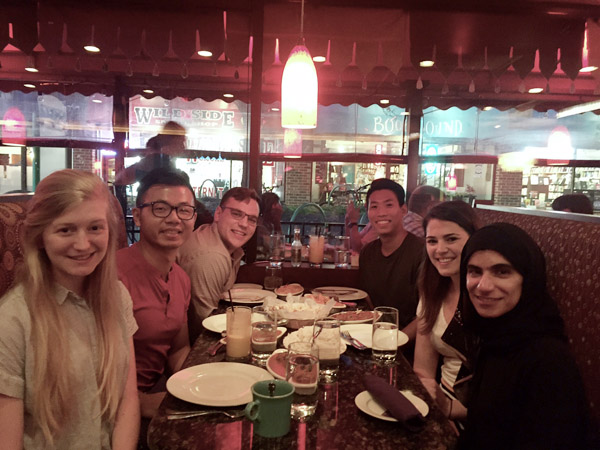 |
September 20, 2017:On Wednesday September 20th, after a long day of classes, the old and the new students of the Healthcare Engineering and Patient Safety (HEPS) Masters program came together for a nice dinner at Cardamom, a casual eatery serving up modern & traditional Indian cuisine. While eating delicious curry, students got to know each other a lot better as they conversed and shared stories about their own undergraduate experiences. Some even realized that they shared the same classes together! Needless to say, it was a great time for everyone. |
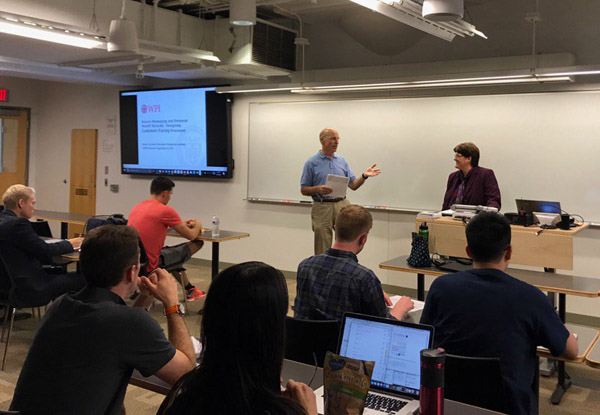 |
September 18, 2017:The second lecture in the 2017 Providing Better Healthcare through Systems Engineering Seminar Series featured Dr. Sharon Johnson, a Professor of Operations and Industrial Engineering in the Foisie School of Business at Worcester Polytechnic Institute (WPI). Dr. Johnson recently served as Faculty Director of the Healthcare Delivery Institute (HDI) at WPI and is currently a member of HDI’s Faculty Steering Committee. She is also currently a visiting professor at the University of Michigan. Dr. Johnson’s talk titled, “Secure Messaging and Patient Portals: Designing Customer-Facing Processes,” explored process impacts and design guidelines for patient-facing, secure messaging (SM) systems.
In her talk, Dr. Johnson discussed two different studies. The first centered on the characteristics of SM use at two Veterans Health Administration (VHA) facilities, while the second dealt with patient portal use at a multi-specialty clinic. Dr. Johnson began her talk by getting audience members to think about the role of patient-facing technologies in healthcare, before presenting them with examples of real messages encountered by clinics and asking them to think about the steps and workflow involved in resolving the issues at hand. Dr. Johnson then further discussed the purpose of her project in the context of garnering a greater understanding of the types of messages flowing through a secure messaging system as well as the tasks, activities, and resources involved in addressing patient needs through this medium. To this end, Dr. Johnson and her team analyzed a total of 1000 message threads from ten different patient care teams from different parts of the country. Messages were analyzed for content, and team workflow in addressing secure messages was also captured. Site visits were then performed and semi-structured interviews conducted in order to gain a richer understanding of how SM was used within a particular care team and how the technology was perceived among team members. Dr. Johnson and her team then created a process map of how decisions were made when messages were received and identified major workflow patterns around SM use. Future work aims to better understand variation in flow through the system with the ultimate goal of influencing design processes. Future work aims to better understand variation in flow through the system with the ultimate goal of influencing design processes. The second study Dr. Johnson highlighted concerned patient portal use in a multi-specialty group medical practice. Dr. Johnson and her team collected clickstream data, encounters, and patient surveys for 632 patients over the course of two years, looking for patterns and predictors in portal use and health status. She found portal usage to be proportional to clinical encounters and that patients with poorer health tended to use the portal more. Additionally, perceived ease of use and perceived usefulness of the patient portal were found to have a significant effect on perceived health management. From this study, Dr. Johnson and her team drew broad conclusions about process design guidelines for the creation of patient portals and other patient-facing technologies. Please join us on September 25th for a talk titled, “The Bloodmobile Routing Problem,” presented by Dr. Grisselle Centeno. |
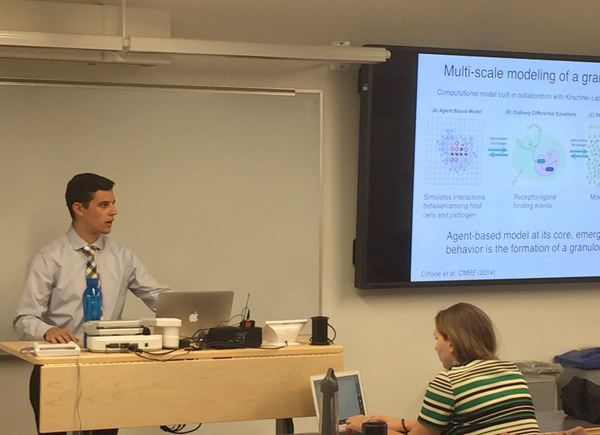 |
September 11, 2017:The Providing Better Healthcare through Systems Engineering Seminar Series kicked off on Monday, September 11, featuring a talk from Joseph Cicchese titled, “Identifying Optimal Antibiotic Regimens Regimens for Tuberculosis Tuberculosis Treatment.” Joseph is a PhD candidate in Chemical Engineering at the University of Michigan and works with Dr. Jennifer Linderman. The seminar was attended by members from across the University community, including the College of Engineering, Medical School, and School of Public Health.
In his talk, Joseph shared an optimization-driven approach to modeling tuberculosis (TB) antibiotic treatment. He first provided background on TB, including its global impact of 1.8 million deaths per year and review of how TB interacts with granulomas in the body. Joseph also discussed inherent challenges in investigating TB treatment, like insufficient animal models and an extremely wide range of potential therapies for consideration. When considering how to model TB, Joseph introduced the basic multi-scale model used to understand granuloma formation and function. This multi-scale model links an agent-based model, a receptor trafficking/signaling model, and a soluble molecule diffusion model. Joseph demonstrated this model’s functioning using a simulation to model infection and granuloma development. Joseph then discussed how he is using an optimization model to incorporate pharmacokinetic and pharmacodynamic elements of antibiotic therapy. The key question of this optimization model is to understand “what is the best antibiotic regimen for TB?” by investigating the regimen design space. Joseph compared a genetic algorithm versus surrogate-assisted optimization to understand each method’s accuracy and efficiency. He presented the results of this optimization model for isoniazid and rifampin, with emphasis on results from surrogate-assisted optimization. Following the presentation of his work, Joseph entertained several questions from the crowd on drug interactions and modeling methods. Please join us on September 18 for a talk titled “Secure Messaging and Personal Health Records: Designing Customer-Facing Processes” by Sharon Johnson. |
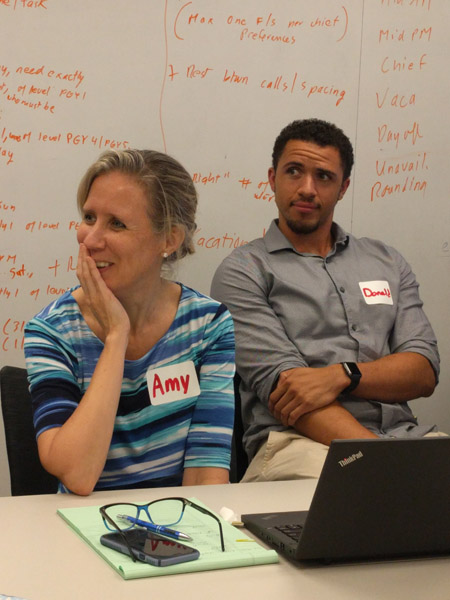 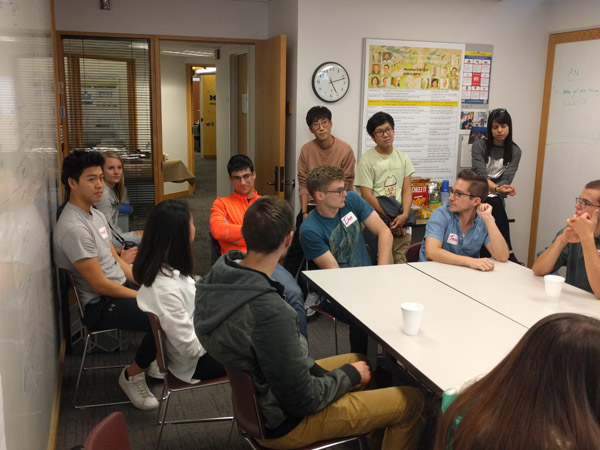 |
September 7, 2017:As the new semester starts, CHEPS is welcoming students, old and new, back to campus. This past Thursday, September 7th, the annual fall kickoff meeting took place at the SI North CHEPS office. As usual, Associate Director Amy Cohn sat down with a full room of excited students to extend the warmest welcome to all of them.
Additionally, we are glad to be hosting Professor Sharon Johnson from Worcester Polytechnic Institute at CHEPS this year. Professor Johnson said hi to all the students and says she is looking forward to working with the team. During the meeting, important policies, processes, and expectations were discussed. For the past several years, CHEPS has continued growing at a healthy pace and standards have been gradually established for more efficient operations of the center. After the official meeting, the CHEPSters had time to socialize and mingle with new friends and catch up with the old over delicious Mexican food kindly arranged by Gene Kim. CHEPSters had a great time playing board-games as the evening went on. Sharing cheerful laughs and board-game victories, students at CHEPS definitely knew how to get the semester off to a great start! This semester, CHEPS students come from a diverse academic background again, ranging from Chemical Engineering senior to IOE PhD. Many students have conducted research with CHEPS during the summer and decided to continue their work in the fall because of the unparalleled opportunities and awesome people. Several students were away for summer internships but were glad to re-join the CHEPS family. Wesley Chen, a new HEPS master student, has been with CHEPS since last summer and was in Jacksonville this summer. “My internship was nice this summer but there is nothing quite like working on a meaningful project with these cool kids,” he said. Bill Zhang, a third- year HEPS master student, was delighted to be back as well after a summer interning at Cleveland Clinic. Bill said, “It was a privilege to work at the #2 hospital in the country and learn so much about healthcare operations. However, coming back to CHEPS is special to me because this is where I feel at home.” With a great kickoff event in the book, the CHEPS family is definitely ready for another semester of improving the safety and quality of healthcare delivery! |
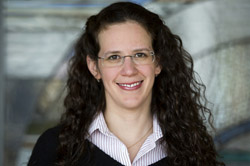 |
September 1, 2017:Congratulations to CHEPS collaborator and Associate Professor in The Department of Industrial and Operations Engineering, Mariel Lavieri, who has been named the IOE Department Richard Wilson Faculty Scholar for a two-year period beginning September 1, 2017. She is an outstanding teacher, researcher, mentor, and colleague. This honor follows several other major awards that Mariel and her students have won in the past 12 months. |
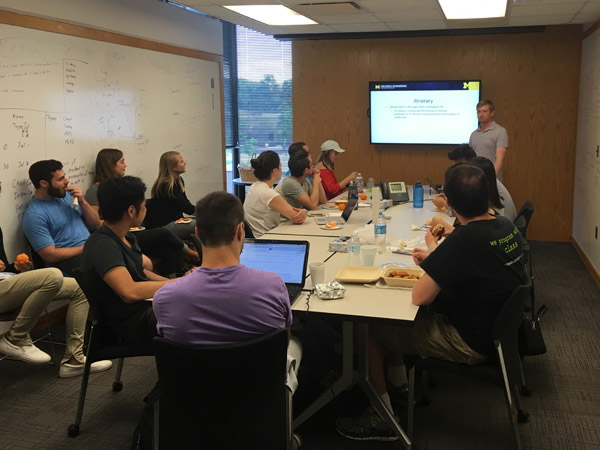 |
August 1, 2017:On Tuesday, August 1st, students and faculty gathered to hear from Adam VanDeusen, a new IOE PhD student. Adam walked us through his post undergrad adventures and shared some insights from his multidisciplinary experiences. After completing his bachelors in IOE from the University of Michigan, Adam went on to get his MPH in Chronic Disease Epidemiology from Yale School of Public Health. His research work and professional career took him from Ghana to Washington DC, and then to Minnesota before returning home to Ann Arbor. Throughout the last few years he’s worked on a variety of projects, including cost-effectiveness research, healthcare leadership consulting, and ED operations analyses. Adam described some benefits and challenges of sometimes being the only engineer in a healthcare setting and provided concrete advice to students entering the workforce. Adam brings a range of skills and experiences to the CHEPS team, and we are looking forward to working with him this fall! |
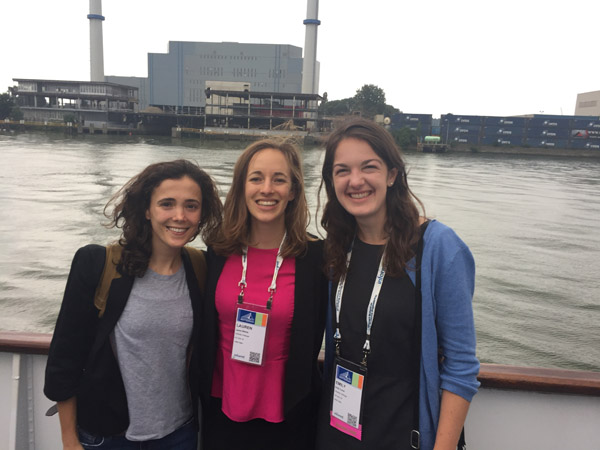 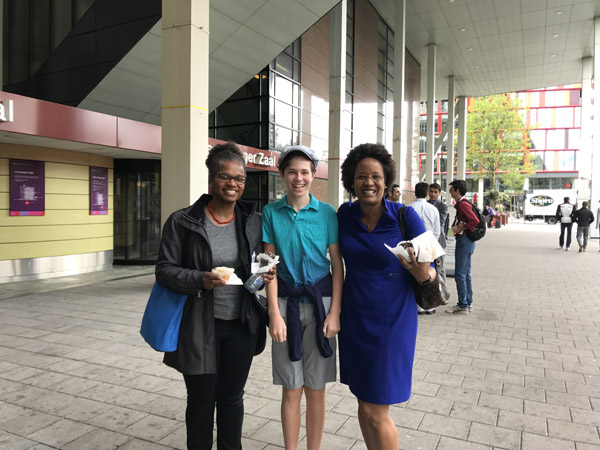 |
July 28, 2017:CHEPS Associate Director Amy Cohn as well as several students who collaborate with CHEPS attended the 2017 INFORMS Healthcare Conference in Rotterdam, Netherlands from July 26th to the 28th. The theme of this year’s conference was “optimizing operations and outcomes.”
Amy Cohn chaired a panel and presented a talk titled “Multi-objective Criteria Scheduling in Healthcare.” She said of the panel, “I particularly liked that there were people from all over the world and so we weren’t just focusing on the rules and the customs of the U.S. healthcare system but we could hear how other countries had similar or different problems.” Both her talk and panel generated a lot of good questions and lively discussion. In addition, she enjoyed getting the chance to catch up with colleagues. “I really liked getting to see folks from INFORMS and healthcare that I only see every so often. I got to get caught up with Julie Ivy and Harriet Nembhard,” she said, mentioning that they even had a little time to enjoy exploring the city. Lauren Steimle, and IOE PhD student who attended presented a talk titled, “Optimizing Medical Treatment Decisions For The Prevention Of Heart Attack And Stroke.” Her session was chaired by IOE PhD student, Selin Merdan, who presented a talk on “Robust Optimization Framework to Account for Prediction Errors for Cancer Diagnosis.” Lauren said, “I particularly enjoyed Dimitris Bertsimas’ plenary talk ‘Personalized Medicine: A Vision for Research and Education.’ He argued that using models that are interpretable by physicians, even if they do not perform quite as well as more complex models, is worth it if this makes the results more likely to be adopted in practice. Also, before the conference, I attended the Healthcare Operations Research summer school put on by the Center for Healthcare Operations and Improvement Research at the University of Twente. The summer school was a great opportunity to learn more about current methods and meet other students using operations research to solve problems in healthcare.” Another IOE PhD student in attendance, Emily Tucker, presented a talk titled “Incentivizing Supply Chain Resiliency To Prevent Drug Shortages.” She said of her conference experience, “I spent about 2 weeks in the Netherlands and had a great experience at the Healthcare Operations Research Summer School (hosted by CHOIR) and the INFORMS Healthcare conference. I met folks from all over the world, and based on a group project at the summer school, a group of us (currently PhD students in the Netherlands, Denmark, Germany, Canada, and the US) are planning to start piloting a project to teach herd immunity. It was also great to discuss and present my work – I connected with several researchers interested in drug shortages (my dissertation topic), and I look forward to future conversations with them. And of course, the Netherlands is a beautiful country! It was fun to see windmills, museums, and eat lots of cheese.” |
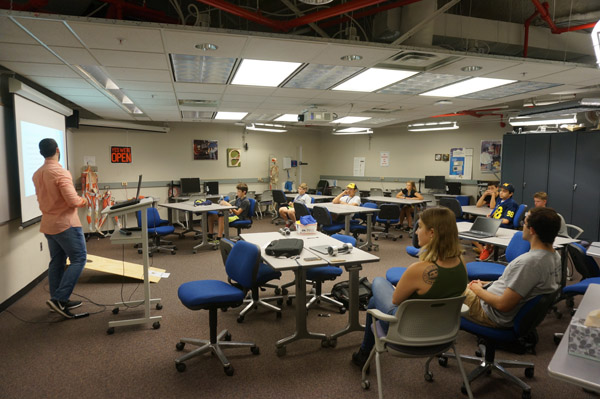 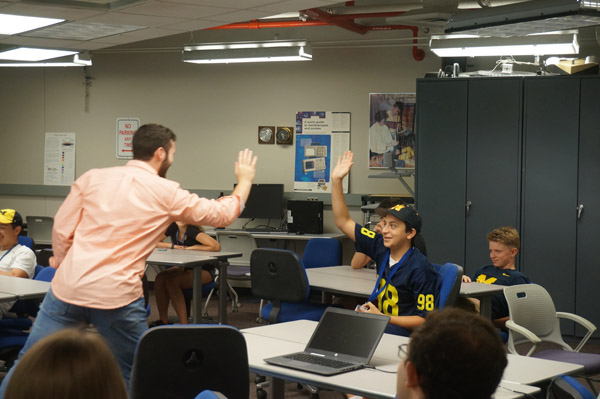 |
July 28, 2017:On Thursday and Friday July 27-28th, students between the 8th and 10th grade were given the opportunity to learn more about different engineering majors at the annual Michigan Discover Engineering event. CHEPS Junior Bassel Salka took the lead in organizing and instructing the IOE session of the program by introducing students to Industrial and Operations Engineering, discussing examples of IOE in the real world, completing the Resident Shift Scheduling Game, and giving a mini lesson on optimization methods. CHEPSters Dale Mallette and Anna Learis also helped out with the event by guiding the students through the Resident Shift Scheduling Game and answering any questions they may have. When asked what the most satisfying part of the event was, Anna replied, “I loved seeing how excited the kids became when they learned about the different aspects of IOE and saw its effect on their daily lives.” |
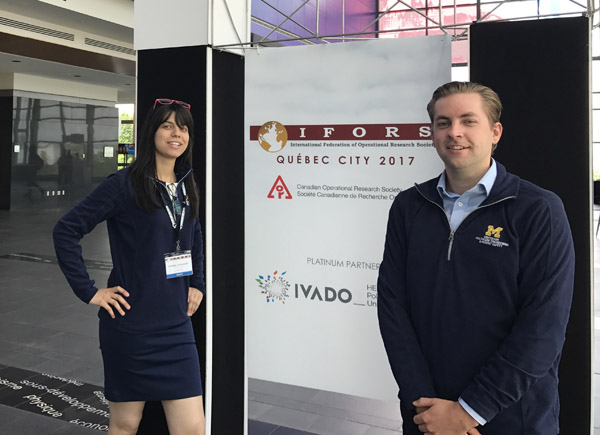 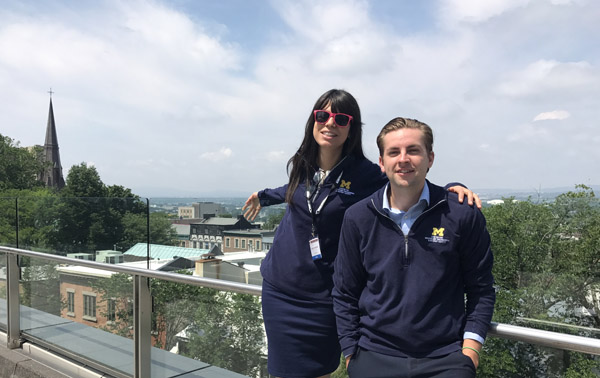 |
July 21, 2017:Karmel Shedah, CHEPS and IOE PhD student, and Billy Pozel, CHEPS Research Area Specialist, traveled to Quebec from July 17 – 21, 2017 for The International Federation of Operational Research Societies (IFORS) Conference.
“This was my first opportunity to attend and present at an international conference,” Billy said. “I am so fortunate that CHEPS affords me the opportunity to travel to experience a different culture and share our work with a global audience.” IFORS was also Karmel’s first international conference with CHEPS. In addition to enjoying the beauty of Quebec City, she said she was amazed by the quality of the conference, research presentations, and educational sessions. “A large body of professionals, from academic and industrial backgrounds, attended our research presentation on developing a decision support tool to optimize colonoscopy appointment scheduling (for colorectal cancer screening),” said Karmel. “There was a consensus among the audience that our approach will improve the quality of colonoscopy appointment scheduling and procedure, and is of significant theoretical contribution as well. Additionally, some research groups, who work on closely related problems, shared research experience and discussed opportunities for future collaboration. It was rewarding to have professionals, from different backgrounds, confirming the impact of the work we do at CHEPS in improving the safety and quality of healthcare delivery.” In addition to the conference, Karmel and Billy had the chance to visit some historical places in Quebec City. Both agree the trip was a wonderful experience. |
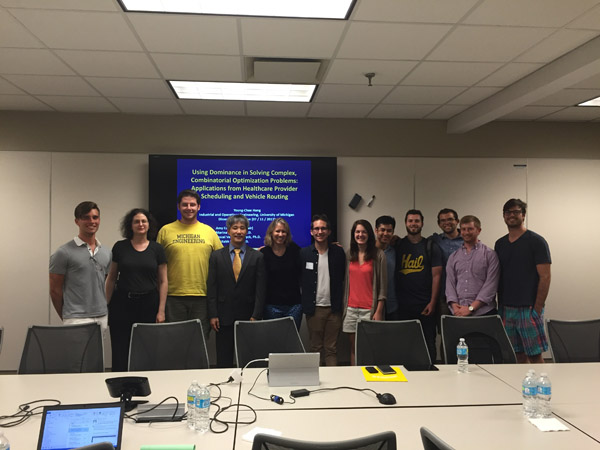 |
July 11, 2017:Young-Chae Hong successfully defended his PhD thesis, titled “Using Dominance in Solving Complex, Combinatorial Optimization Problems: Applications from Healthcare Provider Scheduling and Vehicle Routing,” on Tuesday, June 11. Young-Chae’s dissertation focused on the study of healthcare provider scheduling with multiple conflicting metrics and a column generation approach to solving vehicle routing problem based on dynamic programming. In his research, he utilized dominance to generate Pareto-dominant solutions for the multi-criteria optimization problem. Also, he analyzed the role of dominance in the column generation approach to solving the vehicle routing problem. He developed the mathematical approach to finding a Pareto point and mathematically proved that the approach can find the complete Pareto Frontier. He demonstrated both the tractability and the practicality of our approach as applied to the University of Michigan Pediatric Emergency Department. Congratulations, Dr. Hong! |
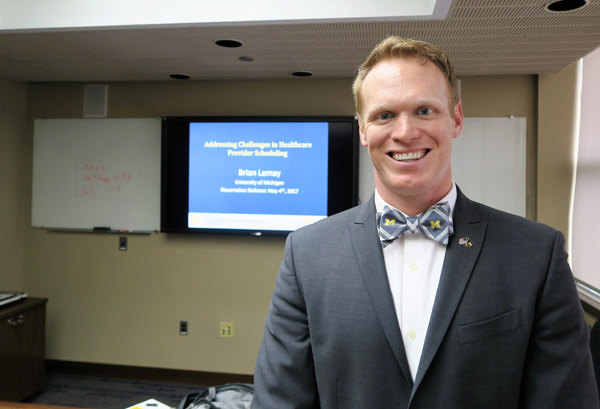 |
July 11, 2017:Brian Lemay’s paper titled, “New Methods for Resolving Conflicting Requests with Examples from Medical Residency Scheduling” was awarded the 2017 Murty Prize for being the best research paper on Optimization by an IOE student. The paper proposes an optimization based method that identifies maximally-feasible and minimally-infeasible sets of time-off requests which can then be used by decision makers to select their preferred schedule. Although the paper focuses on a residency scheduling problem, the proposed method is applicable to any problem involving conflicting requests. A version of the paper co-authored by Prof Amy Cohn, Prof Marina Epelman, and Dr. Stephen Gorga was recently accepted for publication in the Production and Operations Management (POM) Journal.
Brian earned his Ph.D. in May after successfully defending his dissertation titled, “Addressing Challenges in Healthcare Provider Scheduling.” During his time at Michigan, Brian worked closely with CHEPS students and faculty members for his research, with Prof Amy Cohn serving as his advisor and dissertation chair. Currently, Brian is working as the Analysis, Assessments, and Lessons Learned Division Chief for Air Force Special Operations Command. |
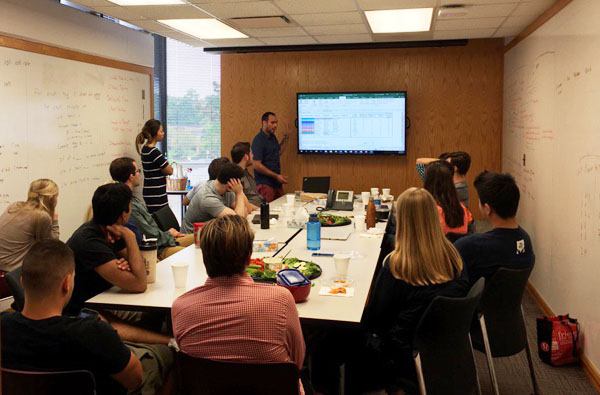 |
June 29, 2017:On Thursday, June 29th, Stephanie Castaing, a registered nurse and CHEPS alum, and Jeremy Castaing, a PhD in Industrial and Operations Engineering and also a CHEPS alum, spoke to CHEPS students and staff about their work. As described in the June 1, 2017 section, Stephanie and Jeremy developed a tool to create even patient assignments for nurses. Stephanie had the vision for the tool after she recognized that patient assignments created by hand by the charge nurse were incredibly time-consuming and inefficient. She partnered with Jeremy, who coded the Patient Assignment Tool, or PAT.
Stephanie and Jeremy showed CHEPS students and staff a demo of the PAT as well as the code behind the scenes of the tool. They also discussed several problems that they faced throughout the process of implementing the PAT and their subsequent tips in dealing with those situations. Stephanie described the difficulties in getting people on board with the new tool, specifically due to the fact that “people were comfortable with the old system of making the assignments by hand.” In working to convince her coworkers and managers of the advantages of the PAT, Stephanie stressed the importance of being prepared to highlight the tool’s major benefits, and in showcasing the tool by playing around with it at work. Stephanie and Jeremy also discussed the importance of being persistent throughout the process with management and the nurses. When collecting pre and post-implementation surveys from the nurses, they said persistence was key. Stephanie made sure to relay the fact that the sooner the pre-implementation surveys were collected, the sooner the PAT could assist the charge nurses and other floor nurses in creating balances patient assignments. Now that the PAT has been implemented, the time to create patient assignments has drastically reduced from over an hour to just minutes. It was received very well by Stephanie’s coworkers and management, as well as other departments in the hospital and the nursing dean. Jeremy may be busy in the future adjusting the PAT for other nursing programs! |
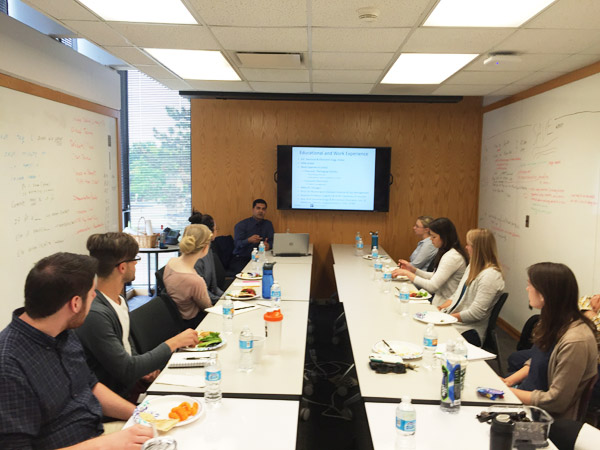 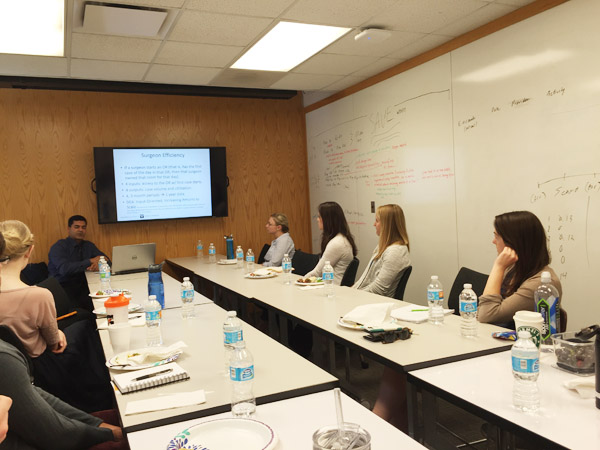 |
June 28, 2017:On Wednesday June 28, 2017, students and staff gathered at CHEPS for a lunch and learn with Dr. Vikram Tiwari. Dr. Tiwari is an Assistant Professor of Anesthesiology & Biomedical Informatics at the Vanderbilt University’s School of Medicine. He is also the Director of Surgical Business Analytics at the University Hospital. Dr. Tiwari’s two roles provide the ideal environment to research real problems, with real data, and apply solutions to operations within the health system.
He presented two recent projects, one focused on predicting surgical volume by day and another, managing operating room capacity at the physician level. Through statistical models and linear programing tools, Dr. Tiwari uses science to better manage processes and capacity within the health system. While the science is fascinating, the most valuable lesson from the day was how important visual analytics and presentation tools are. No matter how good an analysis is, if the analysis is not communicated effectively, the results do not matter. This lesson must be kept in mind as we strive to achieve our mission at CHEPS; to improve the safety and quality of healthcare delivery, we must remember the necessity of strong visual and communication skills. |
 |
June 23, 2017:On June 23rd, several CHEPS students were able to help out with the Girls in Science and Engineering (GISE) summer day camp here at the University. The GISE program is a week long day camp for girls that have completed the 7th or 8th grades and that are interested in science and engineering. Participants meet women engineers and scientists at the University and engage in exciting activities to learn about the science fields.
One of these activities, the Emergency Department (E.D.) simulation, is a fun and active way for the girls to learn about the basics of Industrial and Operations Engineering (I.O.E.). CHEPS students, along with other engineering student volunteers, helped run the simulation and talk to the campers about engineering. The activity began with a brief presentation that gave the girls a broad definition of what an engineer is and provided some examples of real-world cases in which engineering is used. The girls were also introduced to a few basic I.O.E. terms, such as “objective,” “constraint,” and “bottleneck.” With this engineering background in place, the E.D. simulation was underway! The girls were given roles: a triage nurse, an E.D nurse and physician, a lab technician, a hospitalist, a transporter, and of course the patients. They were then told the rules and objective of the E.D. simulation, the latter being to get as many healthy patients as possible leaving the E.D. in five minutes. During the first round, the girls quickly became acclimated to their roles and were eager to have a well-running E.D. However, it became apparent that the current setup of the hospital had major drawbacks and was extremely chaotic. The girls paused to brainstorm ways to get more patients through the emergency department in the next round. They then voted on the change they thought would have the greatest impact on their E.D. and set off on round two to beat their previous number of discharged patients. The campers grew very committed to making their E.D. run smoothly and effectively. The second round of the simulation ran much better than the first, and the third was the best. Each time, more healthy patients were discharged from the hospital and the girls were proud for beating their previous record. Not only did the campers have a blast and feel rewarded for their work in the E.D. simulation, they learned several fundamental principles of I.O.E. and saw how they were used in a real-world example. One camper noted “I didn’t realize that industrial operations engineering could be used in so many different scenarios, like in a hospital. This game was fun, too!” |
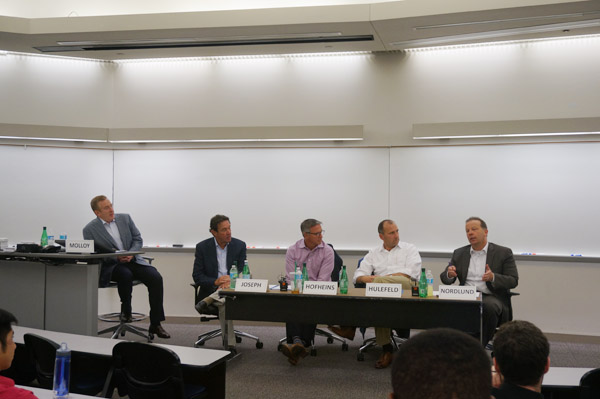 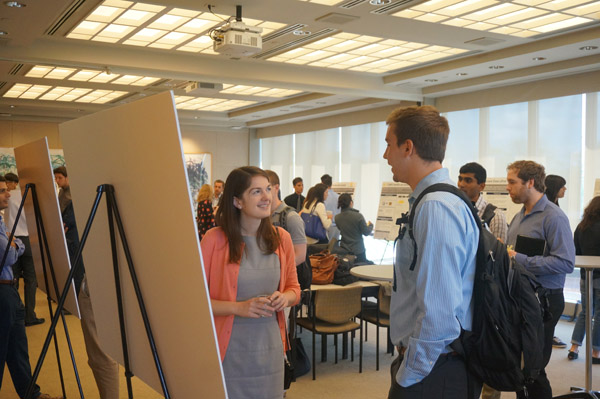 |
June 8, 2017:On Thursday, June 8th, CHEPS hosted four healthcare executives for a panel event, facilitated by James Molloy, a managing director at Citi Global Markets and IOE alumnus. The panel included Todd Hofheins, Former CFO at Providence Health & Services, Michael Hulefeld, COO at Ochsner Health System, Elliot Joseph, CEO at Hartford Healthcare, and Scott Nordlund, EVP Partnership, Growth & Innovation at Select Medical Corporation. Students, faculty, and industry professionals gathered to discuss issues currently challenging the healthcare industry and how industrial and operations engineering skills can be applied to the healthcare space.
The conversation began with some stage setting as the panelists discussed the history of the US’s reimbursement scheme and how this has driven operations and strategies of our healthcare systems. In a fee for service model, cost of services, value, quality, and consumer desires are not the motivators; organizations have been financially rewarded for volume, increasing throughput as much as possible. However, there has been a shift away from volume, towards value. Insurance companies are restructuring payment models to reimburse for services that are high quality and appropriate. Irrespective of political party, the industry agrees that healthcare is too expensive and the focus must be on keeping people healthy. These basic truths are encouraging organizations to focus on no-regret strategies, those that will support the business regardless of current policy changes. As Michael Hulefeld said, “Despite federal uncertainty, there are things that are just the right thing to do… we have to get costs down and improve safety, supporting patients across their care continuum.” The conversation then shifted into variation across states and even within different local markets as Todd Hofheins discussed the variations he has seen through Providence’s markets. Provider recruitment, Medicare and Medicaid reimbursement models, the commercial plans’ market shares, even the density of consumers will have geographical differences. To be successful, an organization must understand these differences and adapt their strategies accordingly. Health systems must also react to the increasing consumer empowerment and organizations must deliver on cost and quality transparency demands. As the event came to a close, the executives discussed the utility of a degree from the University of Michigan and provided advice to students as they entered their careers. Jim Molloy emphasized the importance of process-oriented thinking and how crucial sound statistics are. Scott Nordlund said, “There’s a ton of data, but no one knows how to use it effectively and strategically. Managing data and information is going to be just as important as managing patients.” Each panelist stressed the importance of teamwork. As engineers, we will never be as knowledgeable about the clinical aspect of care as the clinical providers; therefore, it’s really important to work with the clinicians to understand the processes before putting together solutions. Luckily that’s one thing we do really well at CHEPS, working with multidisciplinary teams to develop innovative solutions! Elliot Joseph left the audience with one last piece of advice, something that we don’t often touch upon in our engineering curriculum as much as we should. He said, “Learn the art and science of change management. You can have all of the insights but without the softer, change management skills, you may never be able to effect change.” As the participants filed out of the lecture hall, moving over to the reception area, you could feel the excitement in the air. At the reception, many project teams shared their research on posters which generated a great deal of discussion and excitement. On Friday, panelists from the Healthcare Summit were invited back to the Lurie Engineering Building to speak with CHEPS students and staff. While enjoying the delicious breakfast, attendees happily discussed the previous day’s Summit and the panelists were given the opportunity to learn more about CHEPS and its ongoing projects. Scott Nordlund, one of the panelists, couldn’t help but comment on how great of an opportunity CHEPS is for University of Michigan students to get involved in healthcare management. After the breakfast, Bassel Salka, a pre-med student in IOE commented, “It was such a privilege to spend quality time with such accomplished professionals. I have never been more enthused about healthcare.” Healthcare may be complicated, but it is full of opportunity. Those with an ability to systematically work through the complexities have a chance to make a real contribution to the industry, ultimately impacting people during their most vulnerable moments. Students at the University of Michigan have so many resources to cultivate the skills necessary to be successful within the healthcare industry. It will be exciting to see what the next generation of Wolverines is able to accomplish! |
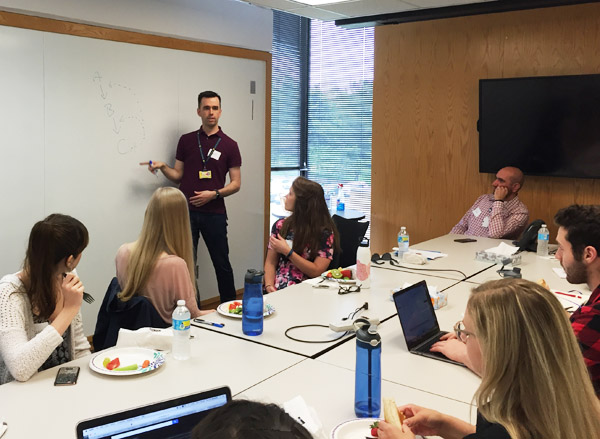 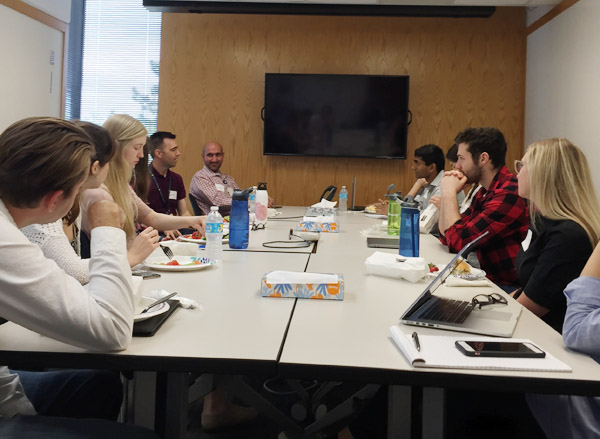 |
June 5, 2017:On Monday, June 5, 2017, the Center for Healthcare Engineering and Public Safety (CHEPS) hosted a Lunch and Learn for Dr. Geoff Barnes to discuss his project, “Anticoagulation and Endoscopy – Making Logic from Chaos.” For many patients who take long-term anticoagulants, undergoing procedures (such as colonoscopy) requires complex management of their medications. In his talk, Dr. Barnes explored the current process for managing these medications and how IOE principals can be applied to design a better system.
Dr. Barnes received his undergraduate degree in biomedical engineering from Washington University in St. Louis in 2003, followed by medical school and fellowship at the University of Michigan. His areas of research include anticoagulation, venous thromboembolism, quality improvement, and shared decision making. Currently, Dr. Barnes co-directs the Michigan Anticoagulation Quality Improvement Initiative (MAQI2). Attendees listened intently to the presentation from Dr. Barnes. One talk attendee, Diana, who is a rising sophomore starting her journey in IOE this coming fall, said, “I have always been interested in both math and biology, and research like this seems like the best of both worlds.” Thank you to Dr. Barnes for an interesting an informative talk! |
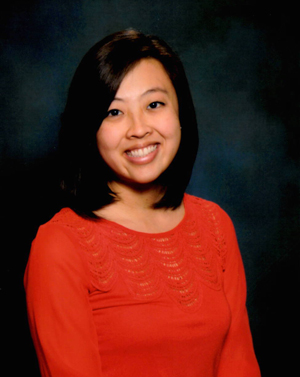 |
June 1, 2017:Stephanie Castaing, CHEPS alum and registered nurse, was named a finalist in the University of Michigan’s 2017 President’s Staff Innovation Awards for her work on a tool that helps charge nurses create balanced patient assignments.
Stephanie saw charge nurses taking a significant amount of time creating assignments, making them unavailable to assist with patients during this time. Designed by Stephanie and coded by Jeremy Castaing, another CHEPS alum, the Patient Assignment Tool (PAT) was developed to balance patient assignments and save time. The tool includes an input tab that allows users to type-in patient variables such as acuity and isolation precautions and an output tab that reports the optimized patient assignments given those variables. In addition to saving time and creating more balanced patient assignments, the tool allows charge nurses to visualize the location of patients and patient sets from the outputs. Additionally, sets are more balanced, meaning nurses do not have to come early to pick their patient assignments in fear of getting a heavy patient assignment. There has been nothing but positive feedback from the charge nurses using the tool since implementation in October 2016. Not only charge nurses have noticed a change, but staff nurses have also seen an improvement in terms of pre-assigned patients, distance between patients in a given set, and overall assignment fairness. |
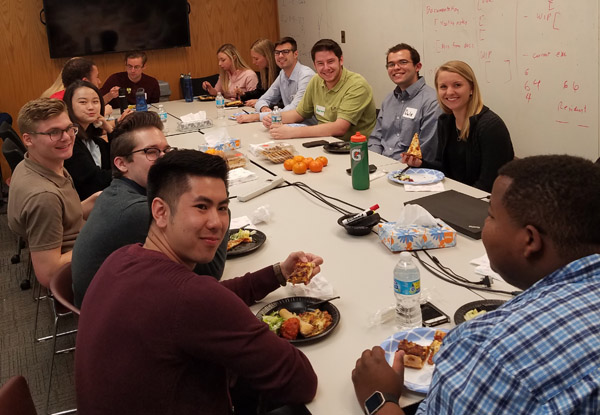 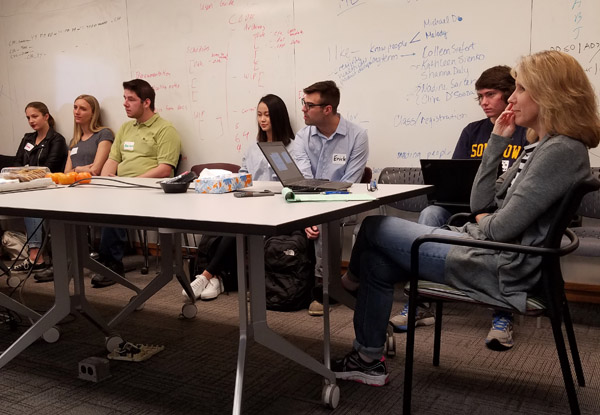  |
May 12, 2017:On Friday, May 12, 2017, the CHEPS team had their annual summer kickoff meeting. CHEPS Associate Director Amy Cohn sat down with the students and staff, old and new, to talk about policies, projects, and expectations for the summer. After the meeting, the CHEPSters had the opportunity to bond and get to know one another over pizza, wings, and salad provided by Gene Kim. With the mouthwatering smell of pizza and cheerful laughs of CHEPSters filling the halls of SI North, it was clear that the summer was off to a great start.
When asked what she will miss most about CHEPS when moving on to medical school, Anna Munaco, a recent graduate and CHEPS veteran, replied saying “I am going to miss the people the most, they are such an amazing group from all different backgrounds, there is no other place like this.” Anna’s sentiment is shared by many others here at CHEPS. Justin Rogers, a student that just recently joined CHEPS last week says he can relate to Anna’s thoughts. Justin says the thing he is most excited about CHEPS is “Getting to know the people better. In my short time here they have all been amazing.” The CHEPS family is ready for another productive summer! |
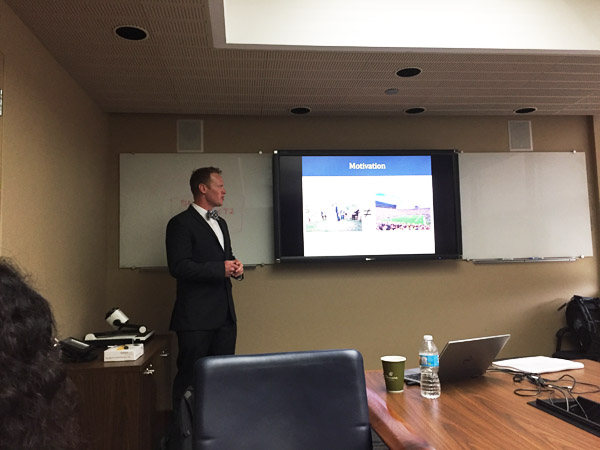 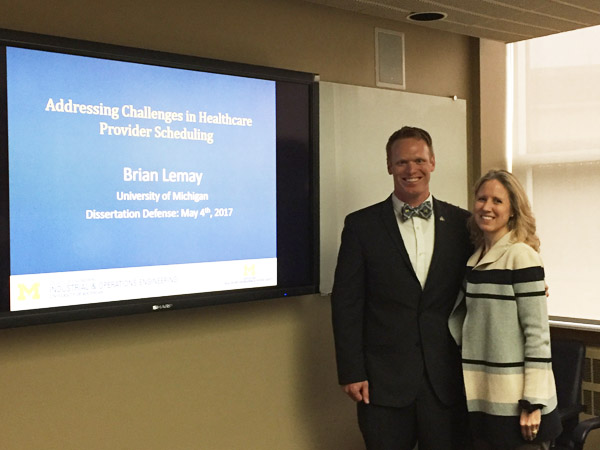 |
May 4, 2017:Brian Lemay successfully defended his PhD thesis, titled “Addressing Challenges in Healthcare Provider Scheduling”, on May 4, 2017. Brian’s dissertation focused on the study of several applications of assigning healthcare providers to various types of schedules (such as rooms, locations, services, and rotations) with the common goal of satisfying healthcare provider preferences. In his work, he examined specific examples from the healthcare industry including building surgical OR and clinic room schedules, assigning medical residents to block schedules, and scheduling medical residents with conflicting requests for time off. He developed several mathematical approaches to solving these problems and illustrated that there are trade-offs in each type of modeling. His work showed that adjusting the mathematical model to match the specifics of a scheduling problem can improve the generated schedules and lead to reduced solve times. Reduced solve times can then, in turn, allow schedulers to examine “what-if” scenarios in order to determine the schedule that works best for them and their personnel.
Congratulations, Dr. Lemay! |
 |
April 13, 2017:HEPS masters student Andrea McAuliffe was recently awarded an AAMI-HSEA Health Systems Engineering Scholarship. This new annual scholarship, established by the AAMI Foundation in partnership with the Health Systems Engineering Alliance (HSEA), is intended to help build competencies and promote educational opportunities to support the adoption of a systems approach to healthcare technology and to support talented young professionals entering healthcare.
“I’m honored to receive the AAMI-HSEA scholarship,” Andrea said. “As a dual degree student, I hope to merge the fields of engineering and public health to pioneer solutions to improve healthcare delivery. Support from AAMI and HSEA will allow me to focus on my education and research while at the University of Michigan, and I am very grateful for this opportunity.” |
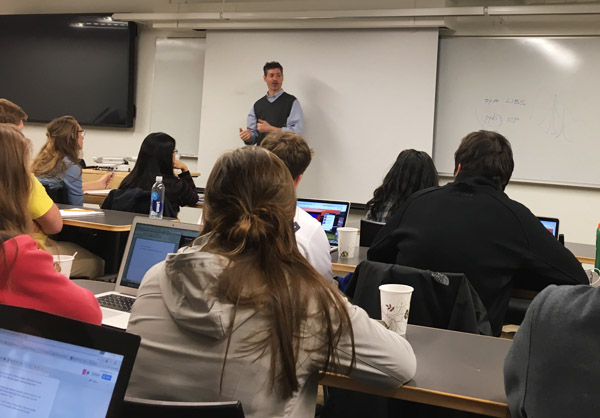 |
April 7, 2017:On Friday, April 7, 2017, CHEPS students joined BME students in a guest lecture of BME 499: Clinical Observation and Needs Finding led by Jonathan Cohn. Jonathan is a well-known journalist who is an expert in U.S. healthcare policy. In his lecture, he covered a brief history of the US Healthcare System to show how our system got to where it is today. Jonathan emphasized that in any decision involving healthcare, there are always tradeoffs that should be considered.
After the lecture, BME students and CHEPsters headed right next door to CHEPS for a reception of socializing and snacking. Multidisciplinary collaboration remains a strength of the CHEPS program and helps expose students to a broader range of knowledge and experience! |
 |
February 22, 2017:On Feb 22nd 2017, the Center for Healthcare Engineering and Patient Safety (CHEPS) had the pleasure of hosting Dr. Jarir Chaar for a lunch and learn talk. Dr. Chaar graduated from the University of Michigan with a PhD in Electrical Engineering and Computer Science in 1990. He then moved on to work at IBM where he leads multiple teams, executed research projects, and is currently working as the Director of IBM Watson Health.
During his talk, Dr. Chaar focused on how IBM research plays an important role in interfacing between the industry – whose business requirements are constantly evolving and academia – with whom they work collaboratively to answer some of the most complex questions and come up with disruptive technologies. The fact that IBM holds more patents than all the tech giants combined lays a testament to the huge push for innovation at IBM. For the faculty, staff, and students at CHEPS, this was a great opportunity to learn about the forefront of today’s technology being used to carry out predictive analytics in healthcare and a multitude of its applications in areas like DNA sequencing, personalized drug recommendation, optimizing recovery and brain-inspired computer systems. The students used this opportunity to understand Dr. Chaar’s view on some of the questions we’ve all been asking ourselves “What are some of the disruptive technologies one can expect in healthcare over the next couple of years”, “What is IBM Watson Health’s growth strategy?” , “Is the Bitcoin system going to gain substantial backing from tech companies?” etc. Dr. Chaar ended the session by expressing his strong interest to continue engaging with CHEPS, work collaboratively on healthcare projects, and aid seamless transfer of the right talent into IBM. |
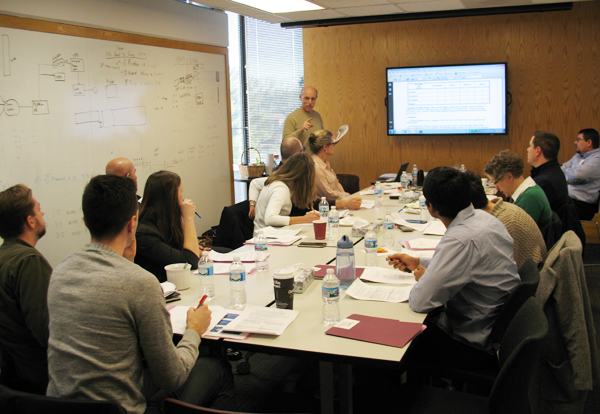 |
February 14, 2017:On Tuesday, February 14, 2017, Jim Bagian, CHEPS Director and Joe DeRosier, CHEPS Program Manager, presented a workshop on human factors, patient safety, and root cause analysis (RCA) for attendees from the University of Michigan Hospital as well as a few CHEPS students. Root Cause Analysis is a patient safety improvement activity that is focused on identifying and eliminating or controlling system vulnerabilities that can result in patient injury. Investigative tools such as flow diagramming, cause and effect diagramming, triggering questions, the five rules of causation, and the action hierarchy were covered in the workshop. |
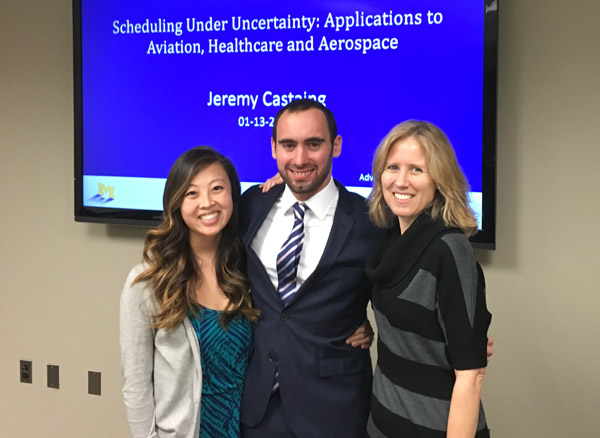 |
January 13, 2017:Jeremy Castaing successfully defended his PhD thesis, titled “Scheduling Under Uncertainty: Applications to Aviation, Healthcare, and Aerospace,” on January 13, 2017. Jeremy’s dissertation focused on the study of several problems related to scheduling tasks under uncertainty of processing times or resource availability. In his work, he considered examples from the airline industry (gate assignment optimization and recovery from delay), healthcare (patient appointment scheduling) and aerospace (satellite download scheduling). He developed mathematical approaches to solve exactly or find good approximations to these complicated problems. The work showed that considering uncertainty in when scheduling projects can significantly increase the performance of the created plan by decreasing expected delays, costs and completion time of the project.
Jeremy, who is now working full time at LLamasoft as an applied research scientist in their Ann Arbor office, says his defense was a great experience. “I felt proud to share my work with my committee and many CHEPS students,” he said. He hopes to continue to stay involved in the CHEPS community. “I entered the PhD program in 2012 and immediately joined CHEPS,” he said. “Over the past four and a half years, I had the chance to work on many projects including aviation, satellites, and chemo. I feel extremely lucky to have had the opportunity to interact with so many brilliant people. One of my favorite highlights is my first summer spent at CHEPS. We got so much work done while having a lot of fun!” Congratulations, Jeremy! |
 |
January 9, 2017:Sung Won Choi, M.D., a CHEPS collaborator and Associate Professor of Pediatrics and Communicable Diseases, has been recognized as the first Edith S. Briskin and Shirley K. Schlafer Foundation Research Professor of Pediatrics. Dr. Choi, who has been working in the University of Michigan Department of Pediatrics and Communicable Diseases since 2006, was recognized at an event on January 9, 2017. Congratulations, Dr. Choi!
Dr. Choi is studying how to better prevent and treat acute GVHD, and currently is investigating the role of histone deacetylase inhibition in GVHD prevention and translating exciting laboratory insights into a novel, proof-in-principal clinical trial. A member of the Blood and Marrow Transplantation (BMT) Program at the U-M, she is working to lower rates of GVHD to improve overall patient outcomes. She is also exploring innovative health information tools in the inpatient BMT setting to improve health care safety and outcomes. |
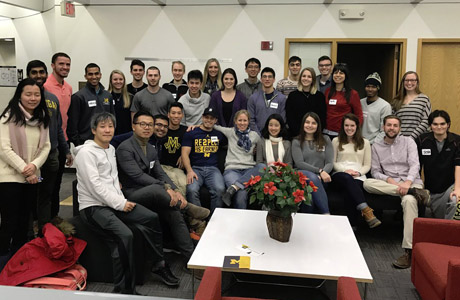 |
January 6, 2017:On Friday, the CHEPS team had their kick off meeting for the Winter 2017 semester. Thanks to a scheduling miracle and over 35 students and staff attended! Students greeted each other after the holiday break, and the ever-expanding group welcomed 8 new CHEPSters. The team discussed policies, procedures, and standard work for the semester and then bonded while scheduling a kick off meeting for every project with Amy Cohn for the following week, a much more challenging task than you’d imagine! With over 25 projects, it’s going to be a busy and exciting semester.
Following a great kickoff for the winter 2017 semester, a group of CHEPSters watched the movie Hidden Figures at Rave Cinemas. The movie reveals the little-known story of three brilliant African-American women mathematicians: Katherine Johnson (Taraji P. Henson), Dorothy Vaughan (Octavia Spencer) and Mary Jackson (Janelle Monáe). While working in the segregated West Area Computers division of Langley Research Center at NASA, the trio was instrumental in the United States catching up to and passing the Soviet Union in the Space Race, culminating in one of the greatest operations in history: the launch of astronaut John Glenn into orbit. The movie inspires individuals of all genders and races to dream big and work hard to achieve their aims. As an advocate for diversity, teamwork, and a big supporter for talented individuals, Professor Amy Cohn encouraged everyone to join her and watch movie following the kickoff event. A group of 15 enjoyed the movie with candies from the kickoff events and, motivated by the movie, are ready to resume the great work they do at CHEPS! |
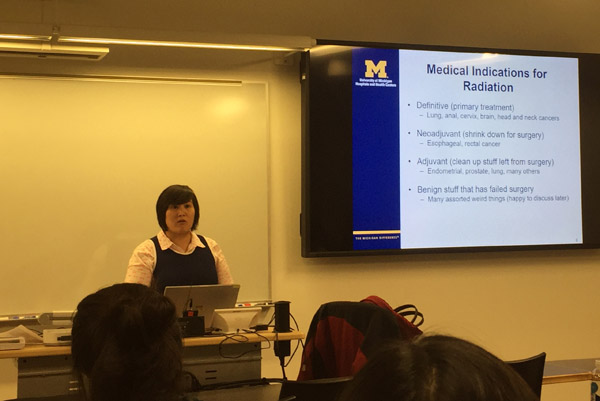 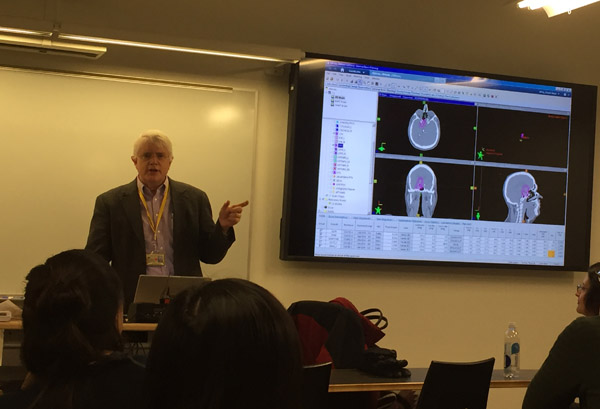 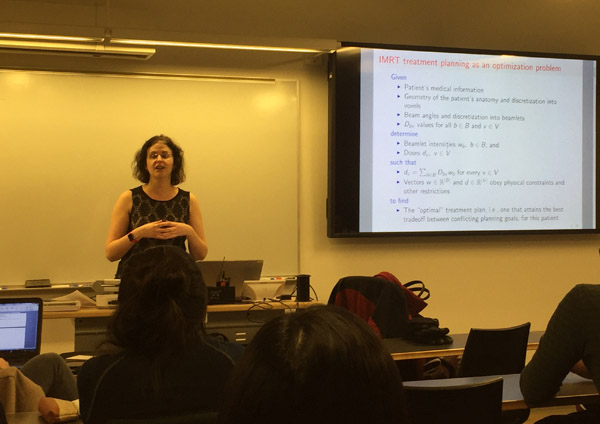 |
December 12, 2016:On December 12, 2016, our final and eleventh seminar of the “Providing Better Healthcare through Systems Engineering” series, presented by the Center for Healthcare Engineering and Patient Safety (CHEPS), featured a joint presentation by Marina Epelman, Chuck Mayo, and Dawn Owen. Attendees came from the Department of Industrial and Operations Engineering (IOE), the University of Michigan Health System (UMHS), the HEPS master’s program, and CHEPS.
Dr. Marina Epelman is an Associate Professor in the IOE department at the University of Michigan (UM). Her research focuses on many aspects of mathematical programming, including theory of linear, semidefinite and nonlinear optimization and development and analysis of algorithms. She received a B.A. in Mathematics from Cornell University in 1995 and a Ph.D. in Operations Research in 1999 from Massachusetts Institute of Technology (MIT). Dr. Chuck Mayo is an Associate Professor in the Department of Radiation Oncology at UM. His research interests are focused on improving care for patients by developing analytics tools that automate providing quantitative and statistical measures to augment qualitative and anecdotal evaluation. He received a B.S. in Physics from Stony Brook University, as well as a Ph.D. in Physics from the University of Massachusetts. Dr. Dawn Owen is a Clinical Assistant Professor in the Department of Radiation Oncology at UM. She is interested in the use of stereotactic body radiotherapy (SBRT) in oligometastatic disease, in addition to the long term efficacy and safety of SBRT in the treatment of spinal and liver metastases. She completed her undergraduate degree with high distinction in 1999 and a combined MD/PhD program in 2007 from the University of Toronto Faculty of Medicine. In their presentation titled, “Multidisciplinary Teams Behind Radiation Treatment Planning,” the team highlighted the collaborative efforts of physicians, medical physicists, engineers, and mathematicians to treat cancer with radiation therapy. The goal of this work is to develop ways to maximize treatment to destroy tumors, while minimizing damage to adjacent organs. In other words, Dr. Chuck Mayo says that the team is essentially, “using science to sculpt dosage.” During this talk, they discussed treatment planning, and the mathematics behind it, using a commercial radiation planning software. This software uses CT scans and beams to pinpoint the areas that need treatment. Using this technology, they were able to view different anatomical perspectives and implement a method for restricting radiation dosages to parts of the body that should not receive treatment during the process. This research is critical because radiation treatment is effective for cancer, but the cost is side effects to the patient if physicians miss targets or overdose adjacent organs. Ultimately, the team illustrated how they captured clinical decision making with mathematical models in order to better understand the impact of a radiation plan on the patient. In this way, clinical information can be incorporated into a model for optimization of a dose distribution. CHEPS would like to thank all presenters and attendees for joining us this semester for the “Providing Better Healthcare through Systems Engineering” series. We look forward to your participation next year! |
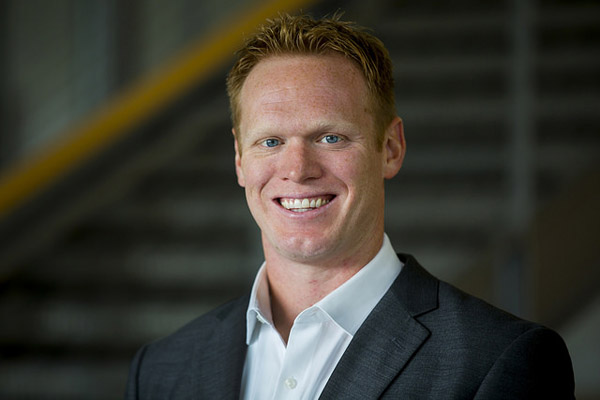 |
December 12, 2016:CHEPS doctoral student Brian Lemay, in collaboration with Professor Amy Cohn, Professor Marina Epelman, and Doctor Stephen Gorga, has written a paper titled, “Scheduling Medical Residents with Conflicting Requests for Time Off.” In this paper, new algorithms are developed for identifying the exhaustive collection of maximally-feasible and minimally-infeasible sets of requests that can then be used by schedulers to select their preferred schedule. Computational results and a case study based on a real-world scheduling problem at C.S. Mott Children’s Hospital are also presented. The paper, available here, is under review for the Productions and Operations Management (POM) Journal. |
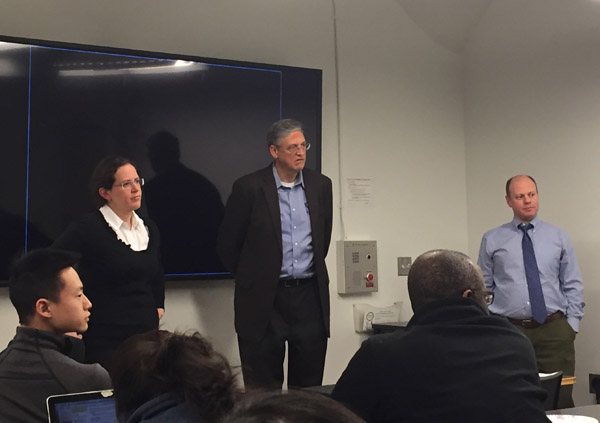 |
December 5, 2016:On December 5, 2016, the tenth seminar of the “Providing Better Healthcare through Systems Engineering” series, presented by the Center for Healthcare Engineering and Patient Safety (CHEPS), featured a joint presentation by Mariel Lavieri, Joshua Stein, and Mark Van Oyen. Attendees came from the Department of Industrial and Operations Engineering (IOE), the University of Michigan Health System (UMHS), the HEPS master’s program, and CHEPS.
Dr. Mariel Lavieri is an Associate Professor in the IOE department at the University of Michigan. In her work, she applies operations research to healthcare topics. In particular, Dr. Lavieri has developed dynamic programming, stochastic control, and continuous, partially observable state space models to guide screening, monitoring and treatment decisions of chronic disease patients. She is the recipient of the 2016 National Science Foundation CAREER Award, the 2013 International Conference on Operations Research Young Participant with Most Practical Impact Award, and the 2006 Bonder Scholarship. Dr. Joshua, a board-certified ophthalmologist and a fellowship-trained glaucoma specialist, has over 10 years of clinical experience caring for patients with different types and severities of glaucoma. In addition, as a health services researcher, he has extensive experience in designing and implementing studies involving cohorts of patients followed longitudinally over time. For the past 4 years, he has been collaborating with Drs. Lavieri and Van Oyen from to develop, calibrate, and validate an innovative novel algorithm which is capable of detecting glaucomatous progression more efficiently and requiring fewer resources than existing techniques. He is the recipient of a K23 Career Development Award from the National Eye Institute. Dr. Mark Van Oyen is a Professor in IOE, which he joined in 2005. His interests include the analysis, design, control, and management of operational systems and queueing networks. His current research focuses on healthcare operations or medical decision making. He co-authored papers that won the 2016 Manufacturing and Service Operations Management (MSOM) Best Paper award, first prize in the 2012 MSOM Student Paper Competition (and two other finalist paper in other years) and the 2012 INFORMS “Doing Good with Good OR” first prize. In 2009, he received the IOE Department Faculty of the Year for the 2008-9 academic year. In their presentation titled, “Forecasting and Control Methodology for Monitoring of Chronic Diseases” they highlighted that nearly 4,000,000 people in the U.S. suffer from glaucoma. The goal of this multidisciplinary work was to develop a forecasting tool that assists eye doctors by (a) helping to identify which patients will experience worsening of existing glaucoma, and at what pace, (b) recommending when the patient should next be assessed for possible disease worsening as well as which test to take, and (c) calculating the patient’s optimal intraocular pressure (IOP). The IOP is a vital measurement of eye pressure that can be controlled through carefully targeted treatment. These forecasts and recommendations which would be extremely difficult for an eye doctor to estimate using brain power alone. Using novel extensions of linear quadratic Gaussian (LQG) control and Kalman filtering, the forecasts and controls are calculated by incorporating detailed longitudinal testing information from two landmark clinical trials and data on the specific patient for whom the forecasts and recommendations are being made. This tool can produce schedules that are more efficient in tests per patient and more accurate in detecting progression. In turn, this work has the potential to greatly inform doctors’ decisions on who, when, and how to treat glaucoma patients in a personalized manner. Please join us next week, on December, 12, 2016, for the eleventh and final talk of the year titled, “Multidisciplinary Teams behind Radiation Treatment Planning,” presented by Marina Epelman, PhD, UM IOE, Chuck Mayo, PhD and Dawn Owen, MD, UM Radiation Oncology. |
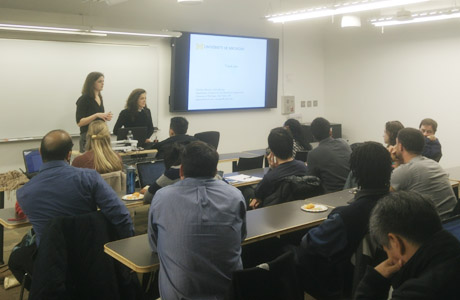 |
November 28, 2016:The ninth seminar of the “Providing Better Healthcare through Systems Engineering” series presented by the Center for Healthcare Engineering and Patient Safety (CHEPS), on November 28th, featured co-presenters and graduate students in Industrial and Operations Engineering (IOE) Christine Barnett and Selin Merdan. Attendees came from the IOE Department, the University of Michigan Health System (UMHS), the HEPS master’s program, and CHEPS.
Christine Barnett is a PhD candidate in the IOE Department at the University of Michigan (UM). Her current research focuses on investigating the health and economic implications of new technologies for prostate cancer screening and treatment. She received a B.S. and Master of Engineering in Operations Research and Information Engineering from Cornell University. She is a recipient of the National Science Foundation Graduate Research Fellowship and the 2016 INFORMS Doing Good with Good OR award. She has served as the President of the UM INFORMS Student Chapter. Selin Merdan is also a PhD candidate in the IOE Department at UM. Her research is in the area of machine learning and optimization for developing computational methods to help organize, process, and transform data into actionable knowledge in clinical settings such as detection and screening of chronic diseases. Selin received her Bachelor of Science from Marmara University, Istanbul, Turkey, and M.S.E. in IOE from UM. She is a recipient of Seth Bonder Departmental Fellowship and the 2016 INFORMS Doing Good with Good OR award. In their presentation titled, “Data Analytics for Optimal Detection of Metastatic Prostate Cancer,” they emphasized that one of the most important aspects of cancer staging is to determine whether it has metastasized. In this work, they used data-analytics approaches to develop, calibrate, and validate predictive models to help urologists in a large state-wide collaborative make prostate cancer staging decisions. Bootstrapping and evaluation on out-of-sample data were used to validate their models, which helped to develop guidelines that optimally weigh the benefits and harms of radiological imaging for detection of metastatic cancer. The Michigan Urological Surgery Improvement Collaborative implemented their guidelines, which reduced unnecessary imaging by more than 40% and is predicted to limit the percentage of patients with missed metastatic disease to be less than 1%. These results were confirmed across the state. Both smartphone app & biopsy outcome calculator are practical and can be used to implement such methods in real life. Please join us next week, on December, 5, 2016, for the tenth talk of the year titled, “Forecasting and Control Methodology for Monitoring of Chronic Diseases,” presented by Mariel Lavieri, PhD and Mark Van Oyen, PhD, UM IOE, and Joshua Stein, MD, UMHS. |
 |
November 21, 2016:CHEPS’ Director, Jim Bagian, was the eighth featured speaker in the “Providing Better Healthcare through Systems Engineering” series presented by the Center for Healthcare Engineering and Patient Safety (CHEPS). Attendees came to his talk on November 21, 2016 from areas including the Department of Industrial and Operations Engineering, the University of Michigan Health System (UMHS), the HEPS master’s program, and CHEPS.
Dr. James P. Bagian is the Director of CHEPS and a Professor in the Department of Anesthesiology in the Medical School, as well as in the Department of Industrial and Operations Engineering in the College of Engineering at the University of Michigan. Previously, he served as the first Director of the VA National Center for Patient Safety (NCPS) and the first Chief Patient Safety Officer for the Department of Veterans Affairs from 1999-2010. Dr. Bagian served as a NASA astronaut and is a veteran of two Space Shuttle missions and was an investigator of both the Challenger and Columbia Space Shuttle mishaps. Dr. Bagian received his B.S. in mechanical engineering from Drexel University and his M.D. from Jefferson Medical College at Thomas Jefferson University. Among his numerous awards, he is a Fellow of the Aerospace Medical Association, and a member of the National Academy of Engineering and of the Institute of Medicine In his current position, Dr. Bagian applies systems engineering approaches to the analysis of medical adverse events and the development and implementation of systems-based corrective actions that will enhance patient safety primarily through preventive means. In his presentation titled, “Getting Real Improvement: Differentiating Work as Imagined vs. Work as Performed,” he highlighted that there are several reasons why many organizations observe unfavorable outcomes in spite of taking proactive countermeasures to overcome them: failure to appropriately and transparently prioritize the issues and interventions; lack of a thorough systems-based investigation that identifies exhaustively contributing factors; interventions that don’t strategically or tactically address the critical underlying contributing factors; lack of clarity and accountability for the implementation of countermeasures; and failure to accurately monitor the proposed interventions. Through numerous case studies, Dr. Bagian explained what the medical domain can learn from other complex environments, such as aviation, nuclear power plants, and space operations. He concluded by stating that properly designing tools will help to change behavior and attitude, and in turn, will ultimately lead to a change in culture. Please join us next week, on November, 28, 2016, for the ninth talk of the year titled “Data Analytics for Optimal Detection of Metastatic Prostate Cancer,” presented by Christine Barnett and Selin Merdan, UM IOE. |
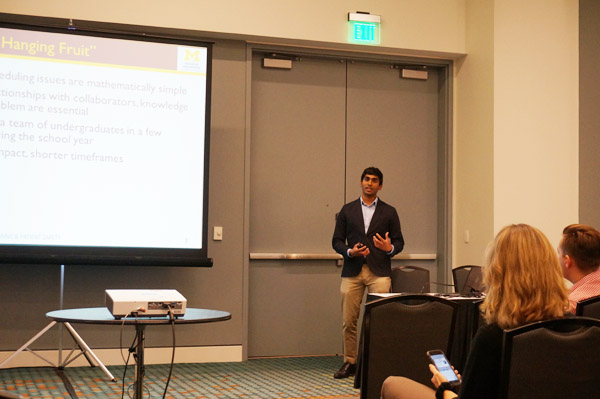 |
November 16, 2016:A large contingent from The Center for Healthcare Engineering and Patient Safety (CHEPS) attended the 2016 INFORMS Conference in Nashville, Tennessee from November 13 – 16, 2016.
There were ample opportunities to collaborate and share research and insights. Henry Ballout, and Organizational Studies and Pre-Med student, enjoyed the opportunity to present a project he’s been working on. He said, “It was a great experience for me to take what I learned from the MEND project and to try to depict that information in a meaningful way so that others could gain insight into what we have been working on at CHEPS.” Henry was one of several presenters from CHEPS. The CHEPS presentations at the conference were:
There were also many opportunities for students in addition to presenting and attending research presentations. “This was my second INFORMs conference and it still amazes me the wide variety of applications being explored with OR. This year I was able to explore more of the additional resources INFORMs has to offer. I took part in the resume review session, visited the company exhibit hall, learned more about cutting edge scheduling software, and networked at various events such as the MIF poster session/reception,” said Donald Richardson, and Industrial and Operations Engineering PhD student. In the midst of a busy and productive conference, the CHEPS group also had a chance to enjoy Nashville. CHEPS Research Area Specialist William Pozehl said, “Roshun, Henry and I had the chance to check out the Parthenon on Saturday and several CHEPSters watched the Michigan football game at the local alumni bar, Slider House.” |
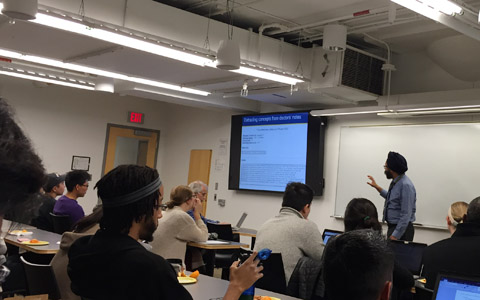 |
November 7, 2016:Karandeep Singh was the seventh featured speaker of the “Providing Better Healthcare through Systems Engineering” series presented by the Center for Healthcare Engineering and Patient Safety (CHEPS). Attendees came to his talk on November 7, 2016 from the Department of Industrial and Operations Engineering, the University of Michigan Health System (UMHS), the HEPS master’s program, and CHEPS.
Dr. Karandeep Singh is a physician, researcher, and educator interested in studying learning health systems, making new discoveries about disease, and improving patient care through technology. His research areas include natural language processing of clinical notes, risk prediction using high-dimensional data, and mobile health. He is an assistant professor of Learning Health Sciences in the Division of Learning and Knowledge Systems, as well as of Medicine in the Division of Nephrology at the UMMS. Dr. Singh completed his internal medicine residency at UCLA Medical Center. He completed his medical school at the UMMS and a master’s degree in Biomedical Informatics from Harvard Medical School. He is board certified in internal medicine and nephrology. In Dr. Singh’s presentation, “Using Doctors’ Notes to Uncover Everyday Natural Experiments in Healthcare,” he explained that Genome-Wide Association Studies (GWAS) have made possible new discoveries of gene-disease relationships through a paradigm of simultaneous, unbiased testing of multiple associations. In this talk, the audience learned that clinical notes contain a rich description of numerous epidemiologic exposures that can be unlocked using natural language processing software. Uniquely, Dr. Singh presented a new methodology termed, Concept-Wide Association Study (CWAS) for examining relationships between several thousand concepts extracted from clinical notes with the development of two health outcomes: kidney failure and medication non-adherence. Using METAMAP software, doctors’ notes were ordered by most important factors. Findings revealed that compared to the performance of a traditional model, the new constructed model with 955 additional predictors was found to be more effective. In summary, using doctors’ notes show a promising means of improving current prediction models. Due to the INFORMS conference next week, there will be no seminar on Monday, November 14. Please join us the following week, on November, 21, 2016, for the eighth talk of the year titled “Getting Real Improvement: Differentiating Work as Imagined vs. Work as Performed,” presented by Jim Bagian, MD, UM CHEPS. |
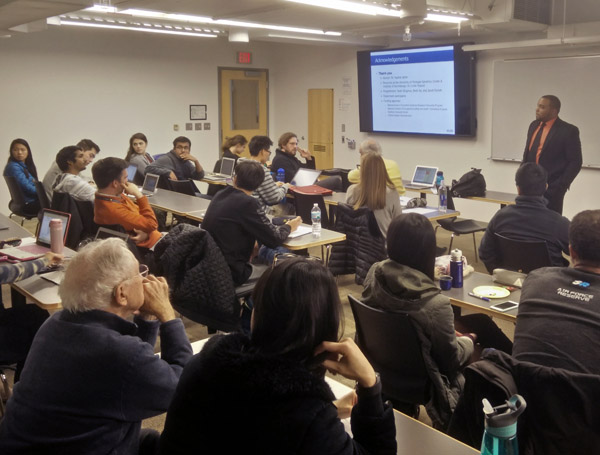 |
October 31, 2016:Brandon Pitts was the sixth featured speaker in the “Providing Better Healthcare through Systems Engineering” series presented by the Center for Healthcare Engineering and Patient Safety (CHEPS). Attendees came to the October 31st seminar from areas including the Department of Industrial and Operations Engineering, the University of Michigan Health System (UMHS), the HEPS master’s program, and CHEPS.
Dr. Brandon Pitts is a post-doctoral research fellow in CHEPS, as well as in The Human-Automation Interaction and Cognition (THInC) lab in the Center for Ergonomics at the University of Michigan. In January 2017, Dr. Pitts will begin as an assistant professor in the School of Industrial Engineering at Purdue University in West Lafayette, IN. His research focuses on using vision, hearing, and touch to support humans in data-rich, complex environments such as driving, aviation, and medicine. In particular, his work examines the perceptual abilities and challenges of older adult populations, and their implications for the development of adaptive interfaces. Dr. Pitts received a B.S. in Industrial Engineering from Louisiana State University (LSU) in 2010, and a M.S.E. and Ph.D. in Industrial and Operations Engineering (IOE) from UM in 2013 and 2016, respectively. Dr. Pitts’ presentation titled, “Age-related differences in multimodal attention and their implications for display design in healthcare and beyond,” emphasized that currently 30% of all licensed physicians in the U.S. are 60+ years, with 10% being older than 70 years. However, in many data-driven environments, such as medicine, physicians are required to divide their attention among numerous tasks and sources of information, especially in the operating room. Multimodal displays that present information simultaneously in visual, auditory, and tactile forms have aided in supporting attention management. Yet, the limitations of this approach are ill-understood, especially with respect to older adult populations who are known to suffer from sensory deficiencies and experience difficulties with various forms of attention. Dr. Pitts presented three experiments in which he investigated the ability of older adults to process multiple concurrent and unrelated signals in different modalities, during a simulated driving task. He found that older adults took significantly longer to respond to multimodal signals, and also reported a higher error rate, compared to their younger counterparts. Adaptive displays, that can adjustment interface parameters such as timing, salience, and amount of information, represent a promising means of reducing the performance gap between younger and older adults. Through informed display design, this work will contribute to increased public safety in a wide range of complex domains. Join us next week, on November, 7, 2016, for the seventh talk of the year titled “Using Doctors’ Notes to Uncover Everyday Natural Experiments in Healthcare” presented by Karandeep Singh, MD, MMSc, UMHS. |
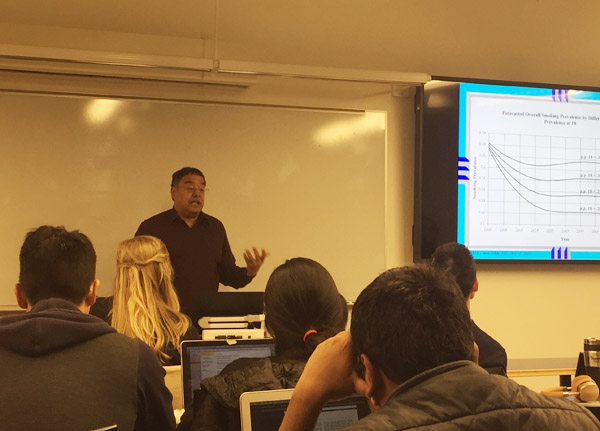 |
October 24, 2016:David Mendez was the fifth featured speaker of the “Providing Better Healthcare through Systems Engineering” series presented by the Center for Healthcare Engineering and Patient Safety (CHEPS). Attendees came to his October 24th seminar from areas including the Department of Industrial and Operations Engineering, the University of Michigan Health System, the HEPS master’s program, and CHEPS.
Dr. David Mendez is an Associate Professor in the Department of Health Management and Policy at the University of Michigan where he teaches courses in Data Management, Quantitative Methods and Simulation Modeling applied to Health and Healthcare. Dr. Mendez received a B.S. in Civil Engineering from the Universidad Nacional Pedro Henriquez Urea, M.S. degrees in both Applied Statistics and Operations Research and a Ph.D. in Management Science, all from Michigan State University. His research focuses on building simulation and analytical models for the analysis of diverse health policy issues, particularly tobacco control. Currently, he serves as a consultant to the Academy of Medicine and the Food and Drug Administration (FDA) on modeling and analysis of potential smoking policy interventions. Dr. Mendez’s presentation, “Examining the Influence of Peer Imitation on Smoking Initiation,” highlighted that cigarette smoking is the leading cause of preventable death in the United States. Reportedly, it kills nearly half a million people every year. Computational models have been very beneficial in helping to understand the expected path of the smoking epidemic and its potential consequences. But while useful in examining very general policy interventions that affect initiation, existing models are not set up to describe the process of smoking initiation in sufficient detail to accommodate interventions targeted to different groups of smokers. In this talk, Dr. Mendez presented results from an ongoing research that aims to model teenage smoking initiation as driven in part by peer imitation, distinguishing between young men and women. Data from the National Survey on Drug Use and Health was used to calibrate the model. As a result of this work, a number of policy implications were formed that include different approaches for young men and women, even though smoking patterns between the groups are shrinking. In particular, women may benefit from interventions that help them cope with stress and low self-esteem where as young men may benefit from interventions that further de-normalize smoking and promote positive role models. Join us next week, on Monday, October 31, 2016, for the sixth talk of the year titled “Age-related differences in multimodal attention and their implications for display design in healthcare” presented by Brandon Pitts, PhD, UM, Department of Industrial and Operations Engineering. |
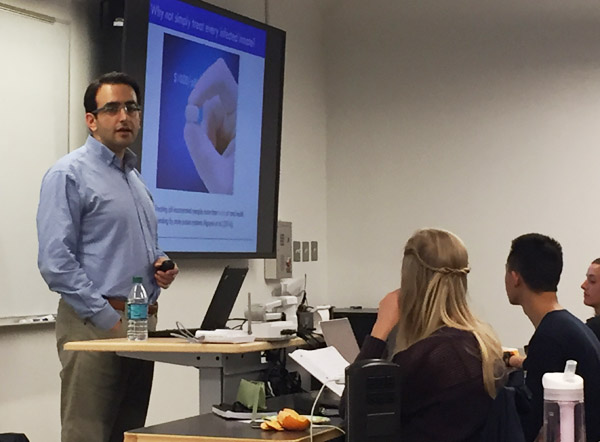 |
October 10, 2016:Turgay Ayer was the fourth featured speaker at the October 10th seminar of the “Providing Better Healthcare through Systems Engineering” series presented by the Center for Healthcare Engineering and Patient Safety (CHEPS). Attendees came from the Department of Industrial and Operations Engineering, the University of Michigan Health System, the HEPS master’s program, and CHEPS.
Dr. Turgay Ayer is the George Family Foundation Assistant Professor of Predictive Health at Industrial and Systems Engineering, and is the research director for medical decision-making in the Center for Health & Humanitarian Systems at Georgia Tech. He also holds a courtesy appointment at Emory Medical School. Dr. Ayer received a B.S. in industrial engineering from Sabanci University in Istanbul, Turkey, and his M.S. and Ph.D. degrees in industrial and Systems Engineering from the University of Wisconsin – Madison. His research focuses on stochastic modeling and optimization, with applications in predictive health, medical decision making, healthcare operations, and health policy. Dr. Ayer has received several distinctions including, an NSF CAREER award, first place in INFORMS Doing Good with Good OR Student Paper Competitions, and Seth Bounder Foundation Research Awards. During his presentation titled, “Prioritizing Hepatitis C Treatment Decisions in U.S. Prisons,” Dr. Ayer reported that one out of six inmates in the U.S. is infected with hepatitis C virus (HCV). He highlighted that new HCV treatment drugs are very effective, but providing treatment to all inmates is prohibitively expensive, which precludes universal HCV treatment in prison systems. In this study, he proposed a restless bandit modeling framework to support hepatitis C treatment prioritization decisions in U.S. prisons. First, he proved index ability for the problem and derived several structural properties of the well-known Whittle’s index. In this stage, the research team derived a closed-form expression of the Whittle’s index for patients with advanced liver disease. Second, he parameterized and validated a model using real-world data from Georgia state prison system and published studies. Then, he tested the performance of a proposed policy using a detailed, clinically-realistic simulation model and showed that this policy can significantly improve the overall effectiveness of the hepatitis C treatment programs in prisons compared with the current practice and other benchmark policies, including the commonly used Whittle’s index policy. The audience was enthralled by the presentation’s content, especially given the fact that this work focused on the prison system – a unique domain in healthcare research. Due to the fall break holiday next week, there will be no seminar presentation on Monday, October 17. However, please join us the following week, on Monday, October 24, 2016, for the fifth talk of the year titled “Examining the Influence of Peer Imitation on Smoking Initiation” presented by David Mendez, PhD, UM, School of Public Health. |
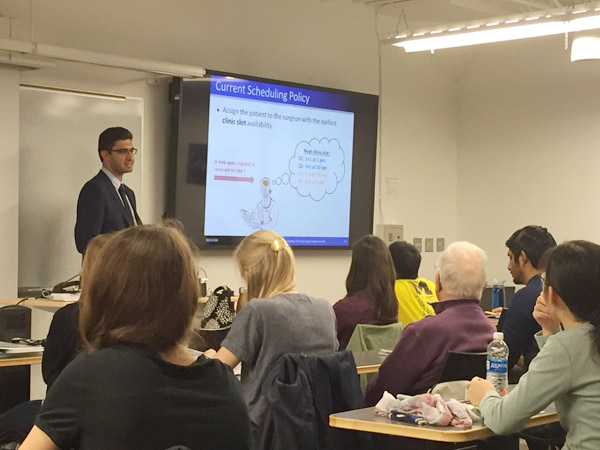 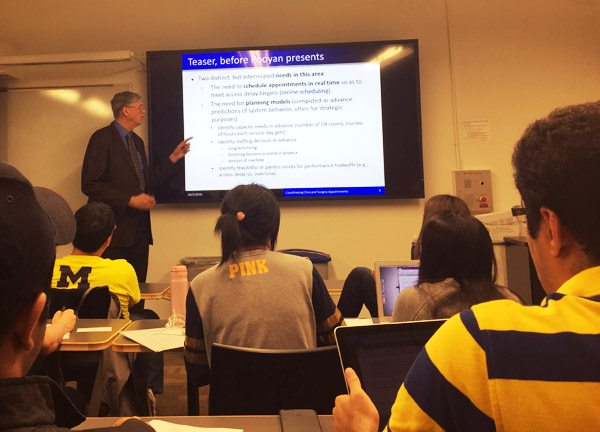 |
October 3, 2016:On October 3rd, the third seminar of the “Providing Better Healthcare through Systems Engineering” series presented by the Center for Healthcare Engineering and Patient Safety (CHEPS) featured a joint presentation by Dr. Mark Van Oyen and his former PhD student, Dr. Pooyan Kazemian. Attendees came from areas including the Department of Industrial and Operations Engineering (IOE), the University of Michigan Health System, the HEPS master’s program, and CHEPS.
Dr. Pooyan Kazemian is currently a research fellow in the Division of General Internal Medicine at the Massachusetts General Hospital (MGH) and Harvard Medical School (HMS). Prior, he worked at the Mayo Clinic as an operations research intern. He got his Ph.D. from the IOE department at the University of Michigan in April 2016, under the supervision of Dr. Mark Van Oyen. His research is focused on designing new data-driven optimization models for improving healthcare operations and disease management and aims to improve the quality of care, access, patient safety and health outcomes at lower cost. Dr. Kazemian’s research has been recognized by a number of awards including the INFORMS Bonder Scholarship for Applied Operations Research in Health Services, as well as a Rackham Predoctoral Fellowship. Dr. Mark Van Oyen is a Professor in IOE at the University of Michigan, which he joined in 2005. His interests include the analysis, design, control, and management of operational systems and queueing networks. His current research focuses on healthcare operations or medical decision making. He co-authored papers that won the 2016 Manufacturing and Service Operations Management (MSOM) Best Paper award, first prize in the 2012 MSOM Student Paper Competition (and two other finalist paper in other years) and the 2012 INFORMS “Doing Good with Good OR” first prize. In 2009, he received the IOE Department Faculty of the Year for the 2008-9 academic year. Together, Drs. Kazemian and Van Oyen presented on, “Coordinating Clinic and Surgery Appointments to Meet Access Service Levels for Elective Surgery.” During their presentation, they presented a methodological framework to make efficient use of scarce resources including surgeons, operating rooms, and clinic appointment slots with a goal of coordinating clinic and surgery appointments so that patients with different acuity levels can see a surgeon in the clinic and schedule their surgery within a maximum wait time target that is clinically safe for them. They proposed six heuristic scheduling policies with two underlying ideas behind them: (1) proactively book a tentative surgery day along with the clinic appointment at the time an appointment request is received, and (2) intelligently space out clinic and surgery appointments such that if the patient does not need his/her surgery appointment there is sufficient time to offer it to another patient. As part of this work, a 2-stage stochastic discrete-event simulation approach was employed to evaluate the six scheduling policies. This work is important, they explained, because providing timely access to surgery is crucial for patients with high acuity diseases like cancer. Join us next week for the fourth talk of the year titled “Prioritizing Hepatitis C Treatment in U.S. Prisons” presented by Turgay Ayer, PhD, Georgia Tech, School of Industrial and Systems Engineering. |
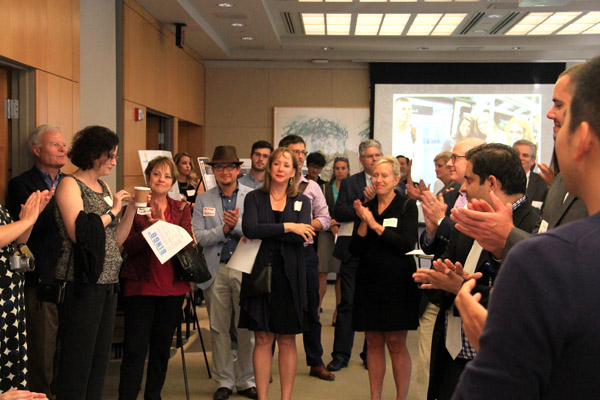 |
September 26, 2016:“The CHEPS Symposium never ceases to amaze me. It really is a manifestation of exactly what CHEPS is all about: collaboration,” said Anna Munaco, Industrial and Operations Engineering Undergraduate.
On September 26th, 2016 CHEPS hosted its Fourth Annual Symposium on Healthcare Engineering & Patient Safety. Over 30 posters were on display representing a variety of research and projects from inside and outside of the university. Approximately 150 attendees came from throughout the university, representing Engineering, the School of Public Health, the Health System, the Medical School, the School of Nursing, and the Institute for Healthcare Policy and Innovation. Several, like returning alumni and local corporate representatives, also attended from outside the university. “There are more alumni coming back to this event as the CHEPS alumni network grows,” said Bill Zhang, HEPS master’s student. “Meanwhile, I was able to communicate with other members of U of M community beyond CHEPS at the symposium. That’s why CHEPS symposiums have been such great events: bringing different brilliant minds together while focusing on advancement of projects related to healthcare.” For the first time this year, alumni didn’t just attend the symposium and the traditional reunion dinner held the Friday before, several also took the time to hold a panel discussion for current CHEPS students. The panel focused on allowing participants to share their experiences in the healthcare field and answer questions about the industry. Current students and alumni greatly enjoyed the many opportunities to interact with one another that the symposium and related events provided. Matt Rouhana, an alumnus of the HEPS master’s concentration now working in the Henry Ford Health System, said his favorite part of the symposium was the opportunity to learn “about the projects that the current students are working on and how some of my projects that I was on in the past have done, including both the Chemo project and the Asthma project.” Unlike the alums who reflected on past projects and symposiums, Andrea McAuliffe, a first year HEPS master’s student, saw the symposium as a chance to immerse herself in CHEPS and look to the future. “As a new HEPS master’s student, it was really inspiring to see all the projects other students have worked on,” she said. “I especially liked learning what everyone’s background was, and how they brought a unique perspective to their work. I’m looking forward to attending and participating in future symposiums!” Attendees not only had the chance to learn about a wide variety of research projects, they were also able to vote for their favorite poster. First place in the audience choice for best poster competition went to “Patient and Caregiver Engagement in a Health Information Technology Tool in the Context of Hematopoietic Cell Transplantation” by Alex Fauer, Anna Munaco, Roshun Sankaran, Maite Van Hentenryck, Rahael Gupta, Evan Bischoff, Amy Cohn, Lyndsey Runaas, and Sung Won Choi. For second place, attendees selected “A Systematic Analysis of Procedures, Cleanability & Manufacturer Cleaning Instructions of Surgical Instrument Reprocessing” by Bill Zhang, Megan Yanik, Maite Van Hentenryck, Wesley Chen, Roshun Sankaran, Hassan Abbas, William Pozehl, Joe DeRosier, and Jim Bagian. Bill Zhang, who took second place in the poster competition said, “It was such a great event to connect all the donors, alumni, collaborators, advisers, and students by celebrating another productive year at CHEPS. I was honored to receive the second place in the poster competition, but the biggest reward was the encouraging words from others after I presented my poster to them.” Anna Munaco agreed that sharing her research with other attendees was one of the highlights. “It was a pleasure to share my work with interested guests from industry, the School of Nursing, the hematopoietic service, the College of Engineering, and many other places. It is a great environment to exchange and learn about new research in the healthcare landscape. I am so glad and honored that I could attend and present a poster this year,” she said. As the symposium and CHEPS grow, the depth and breadth of the research and collaboration represented each year has also grown. William Pozehl, CHEPS Research Area Specialist and a graduate of the HEPS master’s program, said, “The moment that struck me was, while listening to Amy give remarks, I found myself standing behind a row of the following people: Dave Munson, former Dean of the College of Engineering; James Woolliscroft, former Dean of the Medical School; John Ayanian, Director of the Institute for Healthcare Policy and Innovation; and Sanjay Saint, Chief of Medicine of the Ann Arbor VA Medical Center. That these and other important figures within the University of Michigan’s research community wanted to attend the symposium was incredibly gratifying. Seeing our students share their hard work with them was even more invigorating!” |
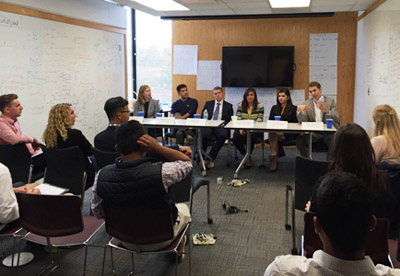 |
September 26, 2016:On September 26th, in conjunction with the 2016 Symposium on Healthcare Engineering and Patient Safety, CHEPS drew upon the knowledge and experience of its alumni network by hosting a Healthcare Engineering Alumni Panel. The panel focused on allowing participants to share their experiences in the healthcare field and answer questions about the industry. This alumni panel consisted of six past Michigan, Industrial and Operations students of varying perspectives and positions. Panelists included: Sarah Bach, an Analytics Engineer at University of Chicago; Ryan Chen, a graduate student at Stanford University; Mark Grum, a consultant at GE Healthcare; Pamela Martinez, a Process Improvement Consultant/Analyst at University of Colorado Health; Vanessa Morales, a Management Engineer at Duke University Health System; and Nick Tempels, a Process improvement Consultant/Analyst at University of Colorado Health.
The panelists began the discussion by introducing themselves, explaining their current position and giving a quick history about how they got where they are today. Following this background, the floor was opened for audience members to ask questions. Questions ranged from very broad, for the whole panel to answer, to those targeted towards an individual path or experience. The conversation included discussing everything from educational path decisions to career preparedness. It was a unique and rare opportunity to have questions answered from so many different perspectives, and audience members definitely took advantage of the occasion. The panel was able to share their point of view about making the decision to pursue higher education (how high to go/when to stop), which classes and skills have been the most helpful since leaving school, and their thoughts on transitioning from the educational environment to industry. It was incredibly beneficial for all in attendance (many of whom are looking at deciding their next steps) to get the chance to have first-hand accounts comparing and contrasting varying educational and industry pursuits. Audience members and fellow panelists alike were able to learn from each other and gain insight into the healthcare industry. From all of us at CHEPS, and everyone who attended the event, we want to say a huge thank you to the insightful and helpful panelists. It is a testament to our strong community that so many alums are not only willing to share their experiences, but in some cases, travel across the country to do so. As panelist Nick Tempels said, “The panel session was probably my favorite part of the trip – great discussion!” With such a strong and successful alumni group, this panel was the perfect demonstration of what a great resource their amazing wealth of knowledge can be. |
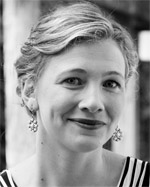 |
September 19, 2016:Following Dr. Sanjay Saint’s great first talk, Dr. Amy Cochran gave an intriguing talk on her cutting edge research as the 2nd featured speaker in the “Providing Better Healthcare through Systems Engineering” series presented by the Center for Healthcare Engineering and Patient Safety (CHEPS). The lecture was filled with attendees who came from areas including the Department of Industrial and Operations Engineering, the University of Michigan Health System, the HEPS master’s program, and CHEPS.
Amy Cochran completed her Ph.D. in Applied Mathematics from Cornell University in 2013. Presently, she is a T.H. Hildebrandt Research Assistant Professor in the Mathematics Department at the University of Michigan. Her research interests are in mathematical biology, especially in computational psychiatry. She has focused on bipolar disorder and describing, mathematically, the volatility of mood that is characteristic of the disorder. Additional application areas of medicine include pediatrics, emergency medicine, and obstetrics. Bipolar disorder is a chronic disease of mood instability. Longitudinal patterns of mood are central to any patient description, but are condensed into simple attributes and categories. Although these provide a common language for clinicians, they are not supported by empirical evidence. In this talk, Dr. Cochran presented patient-specific models of mood in bipolar disorder that incorporate existing longitudinal data. She described mood as a Bayesian nonparametric hierarchical model that includes latent classes and patient-specific mood dynamics given by discrete-time Markov chains. These models were fit to weekly mood data, revealing three patient classes that differ significantly in attempted suicide rates, disability, and symptom chronicity. Then Dr. Cochran discussed how combined statistical inferences from a population do not support widely held assumptions (e.g. mood is one-dimensional, rhythmic, and/or multistable). She presented a stochastic differential equation model that does not make any of these assumptions. This model accurately described the data and that it can be personalized to an individual. Taken together, this work moves forward data-driven modeling approaches that can guide future research into precise clinical care and disease causes. Join us on October 3rd for the third talk of the year titled “Coordinating Clinic and Surgery Appointments to Meet Access Service Levels for Elective Surgery” presented by Pooyan Kazemian, PhD, and Mark Van Oyen, Professor, U-M, Department of Industrial & Operations Engineering. |
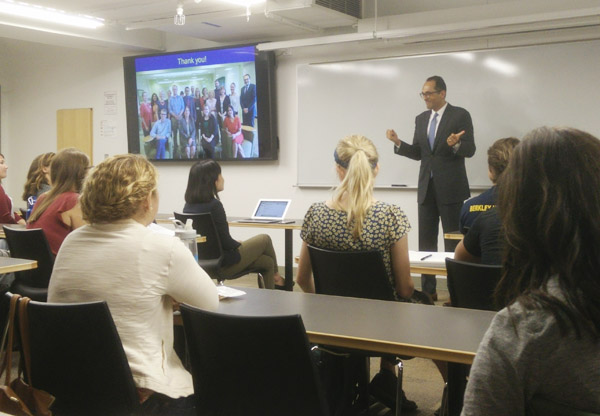 |
September 12, 2016:Sanjay Saint was the first featured speaker at the September 12th seminar of the “Providing Better Healthcare through Systems Engineering” series presented by the Center for Healthcare Engineering and Patient Safety (CHEPS). Attendees came from areas including the Department of Industrial and Operations Engineering, the University of Michigan Health System, the HEPS master’s program, and CHEPS.
Dr. Sanjay Saint is the Chief of Medicine at the VA Ann Arbor Healthcare System and the George Dock Professor of Internal Medicine at the University of Michigan. His research focuses on preventing healthcare associated infection, implementation science, and medical decision-making. He is the lead author of a book recently published by Oxford University Press titled: “Preventing Hospital Infections: Real-World Problems, Realistic Solutions.” He holds a Medical Doctorate from UCLA and completed a medical residency and chief residency at the University of California at San Francisco (UCSF). He also obtained a master’s degree in Public Health from the University of Washington in Seattle. Dr. Saint’s seminar titled, “The role of intersectional innovations in preventing hospital infection,” focused on five key points: (1) the importance of infection prevention and catheter-associated urinary tract infection (CAUTI) and hand hygiene, (2), an overview of how to prevent infection with a focus on recent data, and descriptions of both technical and socio-adaptive aspects to reducing healthcare-associated infection, (3), the definition of “intersectional innovations” and its distinction from “directional innovations,” (4) an overview of the intersectional innovations that could impact infection prevention efforts, and (5) future directions in infection prevention, including the possible role of mindfulness. Dr. Saint believes that preventing hospital infections, in general, will require an integration and understanding of human factors engineering, sociology, sensory psychology, and a host of other disciplines. During his presentation, he engaged the audience with an exciting slideshow that included numerous illustrations, as well as many comical and relatable references. The seminar ended with a discussion between Dr. Saint and the audience. Join us next week for the second talk of the year titled “Mathematical Classification of Bipolar Disorder from Longitudinal Mood Data” presented by Amy Cochran, PhD, U-M, Department of Mathematics. |
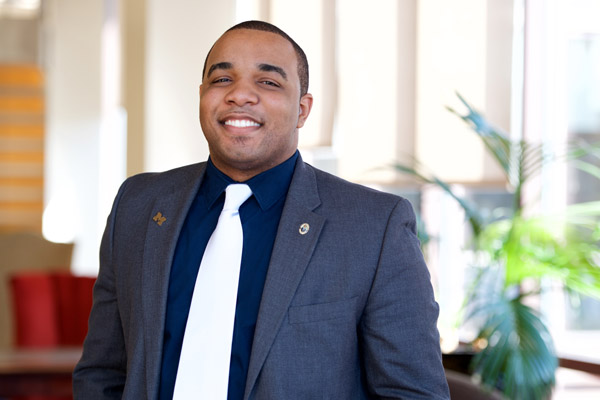 |
August 16, 2016:Brandon Pitts, a winter 2016 PhD graduate of Industrial and Operations Engineering (IOE), has joined The Center for Healthcare Engineering and Patient Safety (CHEPS) as a post-doctoral research fellow. He’ll be splitting his time between CHEPS and the Center for Ergonomics (C4E). In CHEPS he’ll be assisting with the Providing Healthcare through Systems Engineering seminar series, working on the surgical instruments project, working with medical collaborators, and mentoring CHEPS students.
In C4E, he’ll continue to work with Nadine Sarter who was his PhD advisor during his time at IOE. There he’ll be working on publishing papers from his dissertation titled “Age-related differences in multimodal information processing and their implications for adaptive display design” as well as putting together a research agenda for his upcoming faculty career at Purdue University. He’ll begin his faculty position in Purdue’s School of Industrial Engineering in January 2017. Brandon is excited for his time at CHEPS. “I get to work on understanding healthcare operations and needs and, based on my knowledge of human factors, figuring out ways through research and basic engineering to address those needs. I also have a chance to serve as a connection between the work going on in the Center for Ergonomics and the Center for Healthcare Engineering and Patient Safety,” he says. |
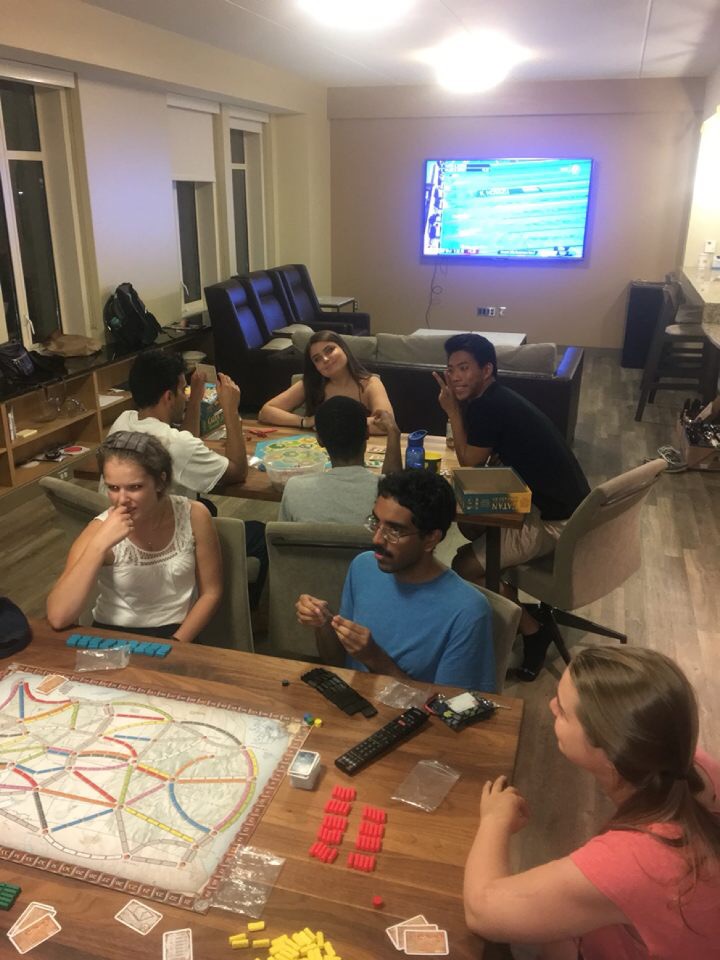 |
August 12, 2016:After a hard day’s work, students gather at Charley’s to take advantage of their weekly 4 dollar burger special. Afterwards, with the 2016 Rio Olympics in full swing, HEPS masters student Elizabeth Olin was gracious enough to lend her her space at the Munger graduate residence to watch Michael Phelps make history. While watching the Olympics, students faced off in strategic battles of Settlers of Catan and Ticket to Ride. As the summer is winding down, the bond of CHEPS student could never be stronger. |
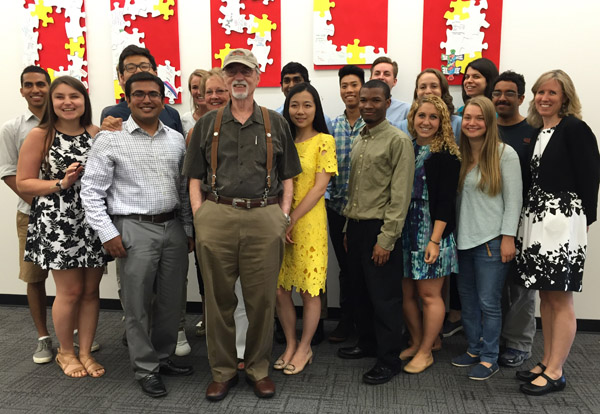 |
July 18, 2016:On Monday, July 18th, Mr. David Giancola (IOE BSE ‘63) visited the Center for Healthcare Engineering and Patient Safety (CHEPS) to share his career experiences in applying Industrial Engineering practices to healthcare. Mr. Giancola became one of the first industrial engineers to work in the healthcare setting after graduating from the University of Michigan. He shared many stories, one of which involved using probability theory to predict how many operating rooms would be necessary for efficient hospital operations. He spoke about the atmosphere of working with healthcare professionals and the importance of clear communication to achieve a common vision.
For Wesley Chen, it was an opportunity to hear more about a career path that he wants to follow himself. “I’m really interested in pursuing a career in healthcare consulting. I thought it was extremely interesting how he chose to explain the role of a systems engineer,” Wesley said. First year IOE PhD student Karmel Shehadeh enjoyed how well Mr. Giancola related to her and the rest of the students in attendance as well as his sense of humor. She remarked that, “It was nice to hear someone just spend so much time on their personal experiences. To have someone of his caliber share their life experiences was really invigorating.” The CHEPS program would once again like to thank Mr. and Mrs. Giancola for their gracious support of the program. We hope to see them again very soon. |
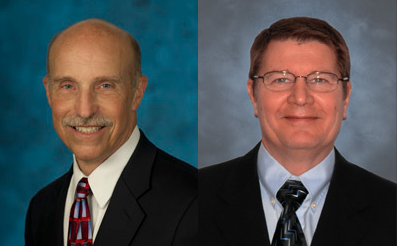 |
July 15, 2016:This Thursday, CHEPS director James Bagian and program manager Joseph DeRosier gave an enlightening lecture about Root Cause Analysis. CHEPS students learned the importance and usefulness of Root Cause Analysis and how it can be applied to many different types of situations. James Bagian and Joseph DeRosier also taught the students an extension of Root Cause Analysis to implement a solution after finding the cause. After the lecture, students were able to apply what they had just learned in a case study. Needless to say everyone had a great time learning something new! |
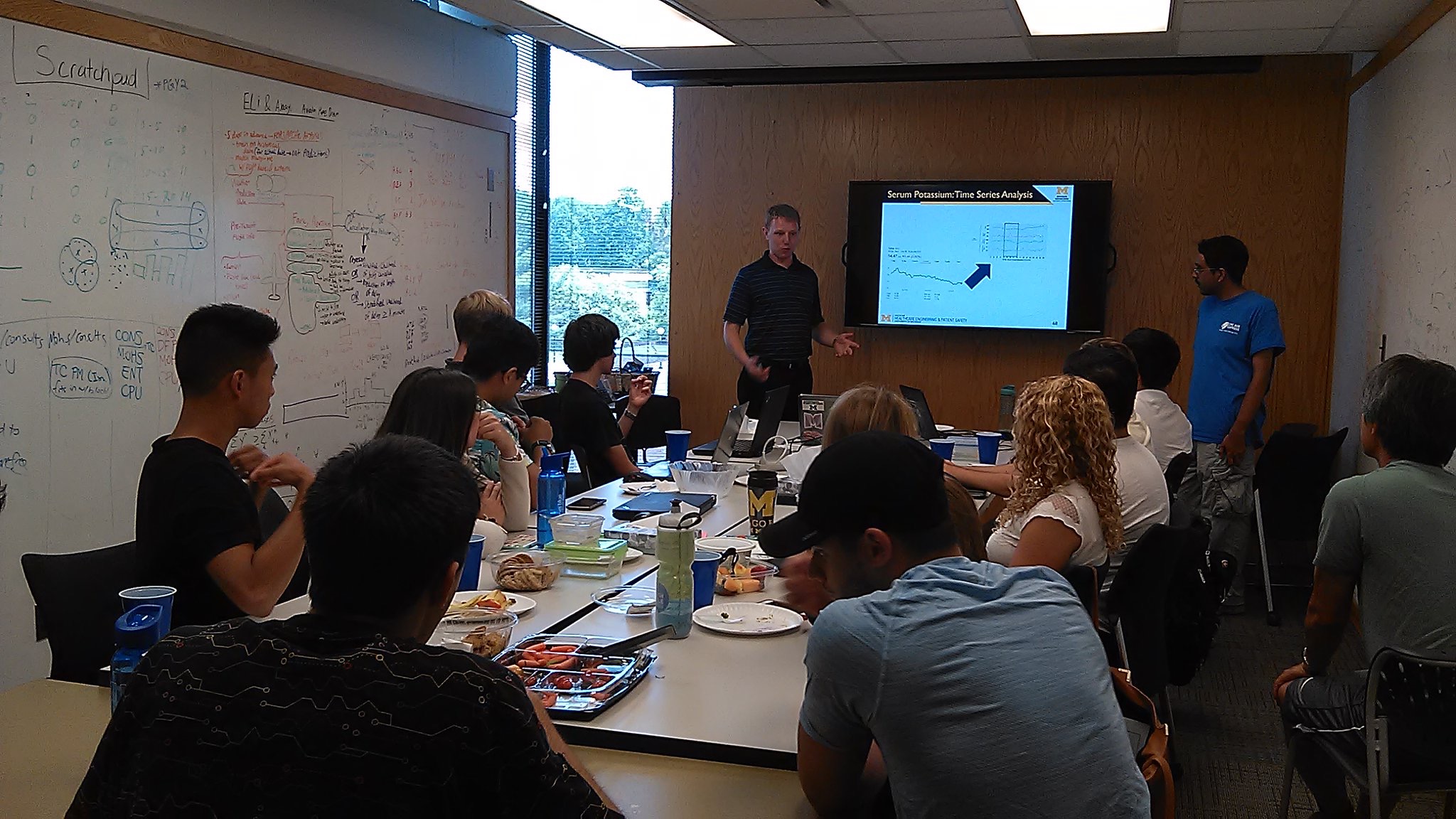 |
July 8, 2016:This Friday, July 8th, former student Eli Sherman and current student Ajaay Chandrasekaran presented us with a lunch and learn about machine learning. This was a great way for different students of different backgrounds to learn something new and innovative. As students enjoyed their lunches and snacks, they learned the significance of machine learning and how the study and construction of algorithms can make predictions in certain models. Eli implements machine learning in his research to find ways to predict when patients need serum potassium. Ajaay works on a project where machine learning is used to predict patient appointment behaviors in endoscopy. |
 |
July 1, 2016:Today, July 1, officially marks the beginning of a new academic and fiscal year. This is an exciting time of change, especially in medicine. Program directors and chief residents across the country are doubtlessly celebrating the end of a successful year and preparing for another as they welcome new trainees and say goodbye to old. Really though, these preparations began many months ago as residency leadership teams spent countless hours constructing the annual rotation schedules for their programs. For large programs, this can be highly time-consuming, but industrial engineering concepts can help alleviate and improve the process. This past semester, the Center for Healthcare Engineering and Patient Safety aided thirteen residency programs in the Department of Surgery, plus the Pediatric, Combined Medicine-Pediatric, and Internal Medicine residency programs to build their annual rotation schedules. In total, our work helped more than 400 residents and over 175 different services!
Building the annual rotation, or block, schedules for residents and fellows requires balancing the needs of the trainee with the needs of the services on which they work. Here at the University of Michigan, we have over 1,200 resident and fellow medical trainees spanning over 100 different specialties. Ensuring that each resident gets an appropriate amount of time on each service while also providing an appropriate resident complement for each service at all times can be challenging, especially in cases where multiple residency programs send trainees a particular service. As Janice Davis, Education Director for the Department of Surgery at the Univ. of Michigan, puts it, the biggest challenge in building a block schedule is “getting the various programs to work together so that there is balance in the number of learners assigned to service each month.” Fortunately, our efforts have brought the leadership together in better understanding their impact on other areas of the department. Using linear programming models that can generate a department-wide schedule in a matter of seconds, our team works closely with Ms. Davis and other program leadership to draft and revise the schedule according to ever-evolving resident and service needs. Though we can significantly reduce the time required to generate a schedule, Ms. Davis must still identify some schedule modifications due to pregnancies, extended illnesses, and other unexpected events. Once we identify a potential remedy, Janice loves that “it takes seconds” for the system to determine whether her proposed solution can work. Having assisted the Pediatric residency program in their block scheduling process the last two years to great success, we added Medicine-Pediatrics and Internal Medicine into the fold this year. As the Med-Peds residents spend time on both Pediatrics and Medicine services, integrating the decision-making process for all three groups was a natural fit. As new Internal Medicine chief resident Owen Albin says, “Having an automated way to effectively allocate rotations helped us minimize transitions of care that violate federal laws and are bad for resident health. It also helped us match rotations with residents during times in the year that are of optimal convenience.” The models proved especially beneficial in providing residents with their most preferred vacation periods, an important factor in resident satisfaction. By adding the Medicine-Pediatrics and Internal Medicine programs to our scheduling portfolio, we nearly doubled the scope of our work. Naturally, that presented some challenges that both our engineers and clinicians are working to improve upon. Dr. Albin explains, “While automating the scheduling process has its advantages, it also leaves out an appreciation for some of the intricacies that come with allocating specific rotations to different individuals. The block scheduling creates an efficient and excellent foundation on which to build the schedule, but there still needs to be a significant role for personal input.” Our team is already hard at work identifying improvements in our processes and functionality to better serve our collaborators’ needs based on their feedback. Congratulations to all those doctors who have just completed their training and good luck to all the new first-year residents joining us at the University of Michigan! Thanks especially to the program directors, chief residents, staff and students that have helped in these projects. |
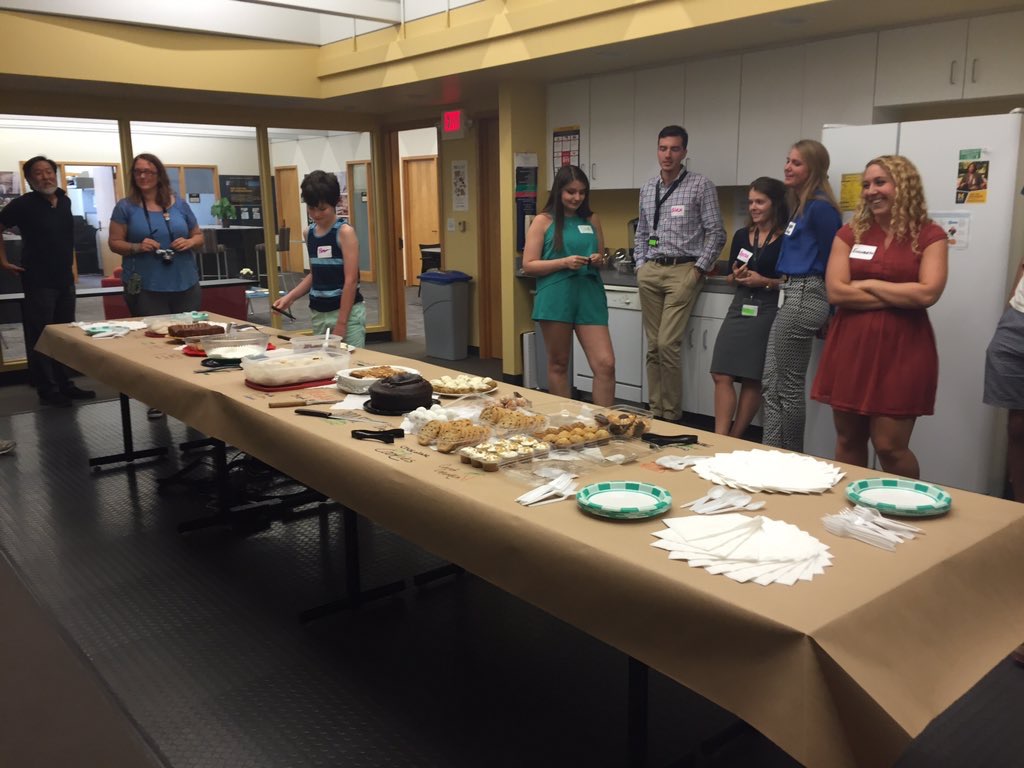 |
June 24, 2016:The team of CHEPSters working with the BMT Roadmap app development attended Hematology & Oncology research rounds Monday morning. Dr. Lyndsey Runaas, hematology fellow and co-investigator for BMT Roadmap, presented the study’s current objectives and outcomes. Dr. Runaas took time during her presentation to acknowledge CHEPS to the hematology fellows in attendance, and how our involvement with their development team will contribute to better services to the enrolled patients and their families.
Another on going projects of CHEPS is the CHEMO project. The objective of the CHEMO project is to create a phlebotomy simulation to identify mediators to improve patient throughput. To do this, CHEPSters this week collected data from port draws at the Cancer Center’s phlebotomy unit to add to the simulation’s metrics. CHEPSters don’t just work hard; we eat hard too! This Tuesday CHEPs organized a bake off. Students, faculty, and collaborators of CHEPs showed their skills as bakers to deliver us all kinds of delicious desserts. It was a great opportunity for our students, faculty and collaborators to meet each other, learn from each other, build relationships and networks, and most importantly stuff our bellies with yummy treats. Today, Anna Munaco, Jackson Bennett, Elizabeth Olin, Pranjal Singh and Katherine Adams were able to take time from their busy CHEPS day to help Dr. Mariel Lavieri run an ER simulation for WISE Girls in Science and Engineering (GISE) camp to show how operations research can be applied to healthcare. The girls were able to run through the simulation of the ER department at a hospital, work together and identify elements of the process that were slowing it down. By the end of the activity, the girls were able to go from only discharging 7 patients in the ER to 24 patients! This was a great opportunity for younger kids to experience a little of what we do here at CHEPS. |
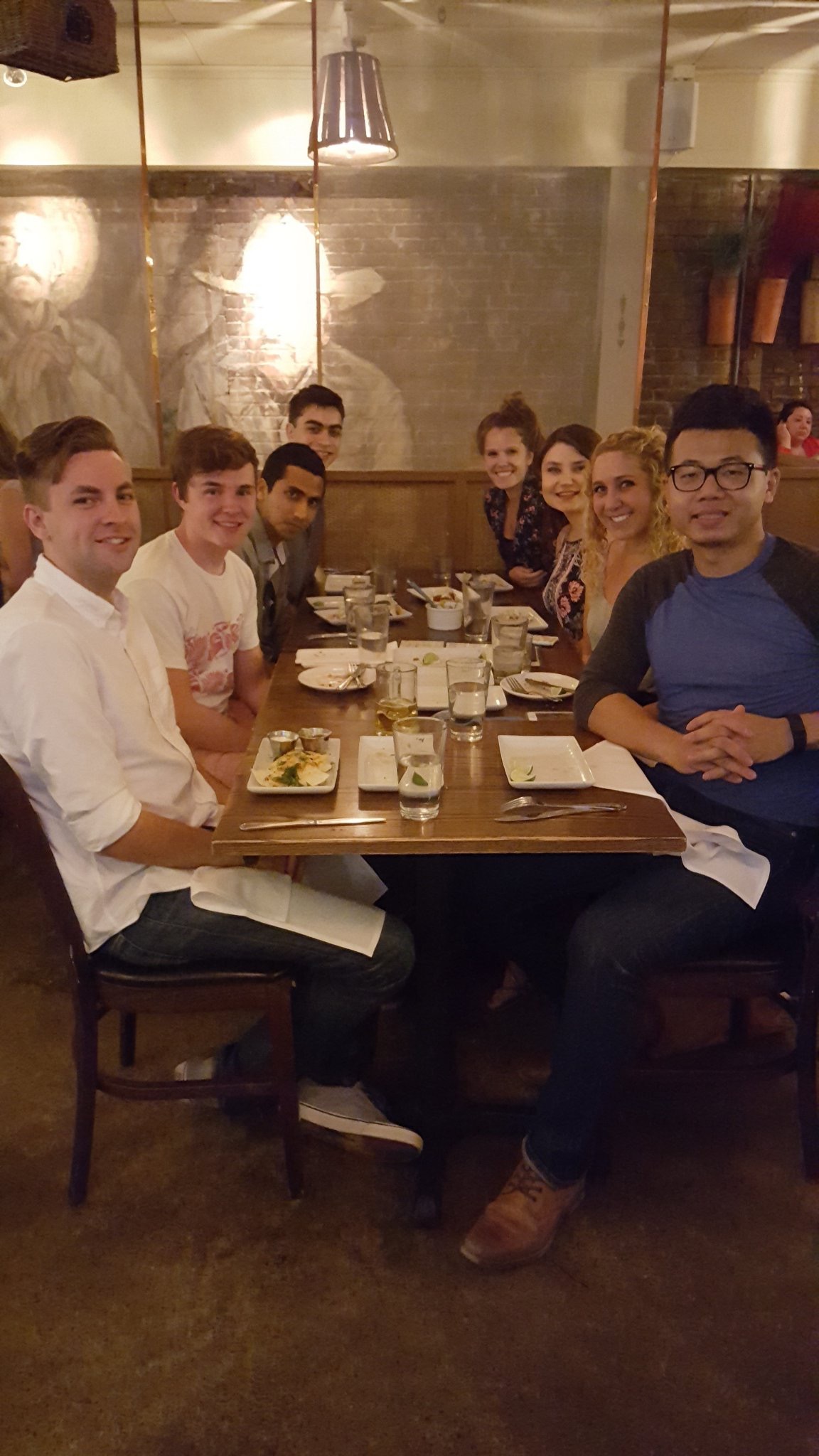 |
June 17, 2016:The chemotherapy team had an exciting week. Many of the members of the team had the opportunity to observe in the cancer center’s pharmacy where the drugs for infusion are made. Chemo team member, Samantha Roth, explained, “It was very useful to see the whole process in the pharmacy from the technician first getting the go-ahead for the drug to be made to the drug being given to the infusion center.” The chemotherapy team also began collecting port draw times at Phlebotomy.
This week after working many CHEPSters got together to enjoy Ann Arbor’s Restaurant Week and summer festival, Top of the Park. They went to Isalita to enjoy a four-course meal and then afterwards went to Top of the Park to watch Ferris Bueller’s Day Off. It was a relaxing way to spend their night and to get to know everyone better. |
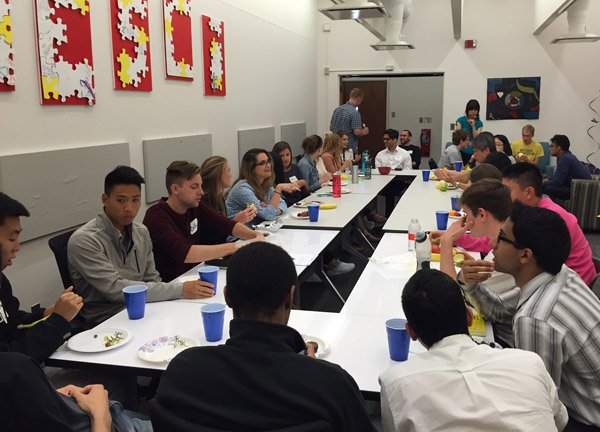 |
June 10, 2016:It was another exciting and busy week at CHEPS!
This past Wednesday, CHEPS PhD Candidates, Brian Lemay and Young-Chae Hong, presented their research on scheduling. Many students that are working at CHEPS and others from different departments from around the university gathered at the CHEPS office to learn more about the exciting scheduling research that is taking place. Brian’s topic looks into conflicting scheduling requests and finding sets of requests that can be satisfied. Young-Chae’s topic looks into Pareto points for schedules to generate Pareto schedules that reduce the schedule space for chief residents to review. All of the students in attendance were incredibly engaged in the presentations and could see immediate value in the work that Brian and Young-Chae are doing. After the presentations, everyone joined together in the Design Studio to enjoy lunch. Many people from different departments, including medicine, industrial and operations engineering, computer science, and nursing, were in attendance. It was a fun opportunity for everyone to meet new people and to learn about all of the different research projects taking place inside and outside of CHEPS. Overall, this lunch and learn was a great success. A recent project involving CHEPS research assistants is a new collaboration with Dr. Sung Choi, pediatric Bone Marrow Transplant (BMT) physician at C.S. Mott Childrens Hospital, who is piloting a new health IT tool for pediatric and adult BMT patients. Anna Munaco, rising IOE senior, recently shadowed Dr. Gred Yankik, attending Pediatric BMT physician, to observe the inpatient unit’s process flow to better understand the patient’s experience post-transplant. “I look forward to this project because I support patients being advocates for their own health, and creating a new tool for them to use as a resource to participate in their health outcomes” Munaco explained. “The goal of this new tool is to help patients navigate through the post-transplant progression safer and more efficiently.” |
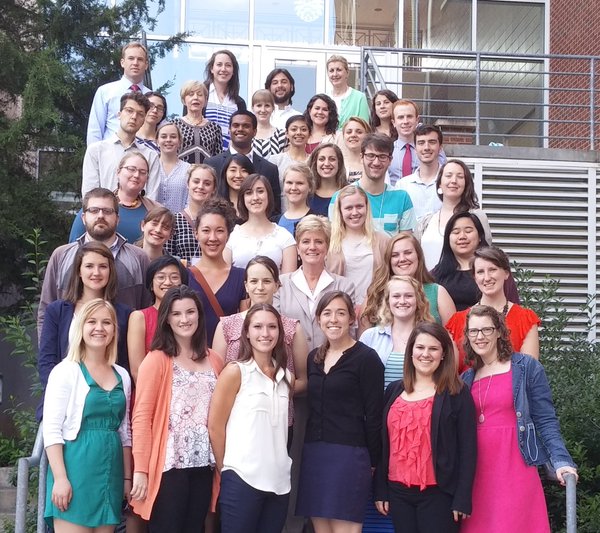 |
June 3, 2016:Last week, new CHEPS research assistant Alex Fauer, undergraduate nursing & PhD pre-admit, attended the Hillman Foundation in Nursing Innovation’s annual conference at the University of North Carolina-Chapel Hill in Chapel Hill, NC. Alex gathered with other nursing PhD students, faculty, and researchers to collaborate on the current state of nursing science, and leadership through diversity, research, and transdiciplinary collaborations. Alex disseminated his award winning review Plasma biomarkers associated with inflammation and reproductive function to the attendees, calling to action the future role blood biomarkers will play in the occupational safety of workers who handle hazardous drugs. |
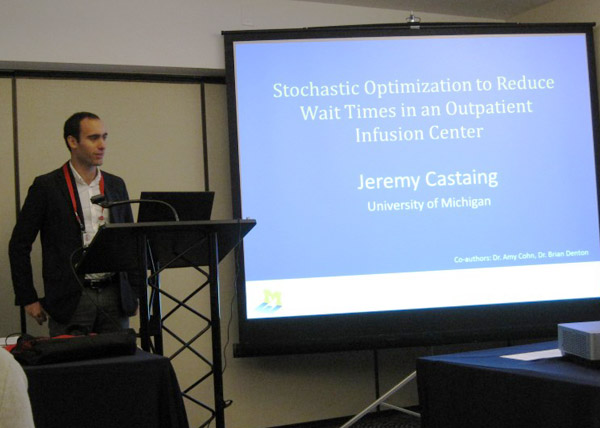 |
May 31, 2016:“A Stochastic Programming Approach to Reduce Patient Wait Times and Overtime in an Outpatient Infusion Center,” a paper authored by Jeremy Castaing, Amy Cohn, Brian Denton, and Alon Weizer, has been published in IIE Transactions on Healthcare Systems Engineering.
Chemotherapy infusion treatments for cancer have significant and unpredictable variability in duration. This variability can have negative impact on operations – both patient wait time and staff overtime – if not managed well. Based on their observations at the University of Michigan Comprehensive Cancer Center (UMCCC) and collaborations with clinicians there, the authors present a two-stage stochastic integer program for designing patient appointment schedules under uncertainty in treatment times. Their objective is to minimize a trade-off between expected patient wait times and expected total time required to treat patients. The publication of this article is the product of several years of research at CHEPS, in partnership with the UMCCC. This work, part of the chemo project, began in summer 2013. The optimization models developed by Jeremy, Amy, and Brian were used by the CHEPS Chemo team of summer 2015 to solve appointment scheduling problems on real data sets obtained from the UMCCC. |
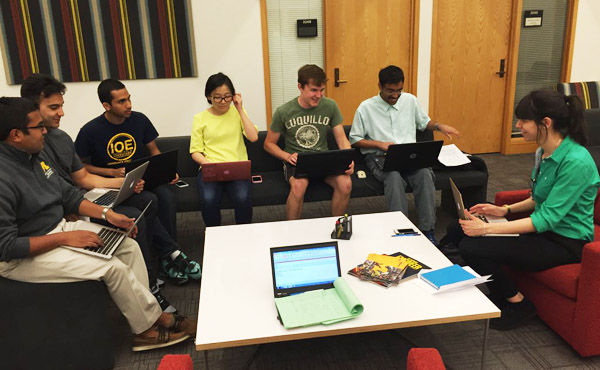 |
May 27, 2016:We had another great week at CHEPS! Several of our team members attended this year’s annual Industrial and Systems Engineering Research Conference (ISERC) in Anaheim, CA early in the week. One full-time CHEPSter, Roshun Sankaran, presented “A Linear Programming Model for Scheduling Medical School Clinical Experiences,” which highlights two different scheduling projects the team has collaborated on with the University of Michigan Medical School. Sankaran stated, “I am really grateful that I got the chance to give a presentation to the attendees of the conference. Opportunities like this are one of the best parts about being at CHEPS.” Other students at CHEPS attended ISERC and also presented their work.
This past Tuesday, CHEPS students, Jackson Bennett, Anna Munaco, Samantha Roth and Eli Sherman went to a presentation given by Dr. Mona Hanna-Attisha on the Flint Water Crisis as it relates to the application of children’s health research. Dr. Mona Hanna-Attisha led a study, which confirmed that the proportion of infants and children with elevated blood lead levels had nearly doubled since Flint switched from the Detroit water system to using the Flint River for its water. The students found it fascinating to hear from someone leading the change in Flint. Computer Science student Samantha Roth said, “Much of what I knew about the Flint Water Crisis had come from the media. It was eye-opening to listen to Dr. Attisha share her first-hand experiences on the crisis. It was intriguing to learn that there were many actions that could have been taken to prevent the crisis.” In all, the CHEPS students learned a lot about the Flint Water Crisis from Dr. Attisha’s presentation and were glad to hear that she is continuing to lead efforts to support Flint children that were diagnosed with elevated blood lead levels. |
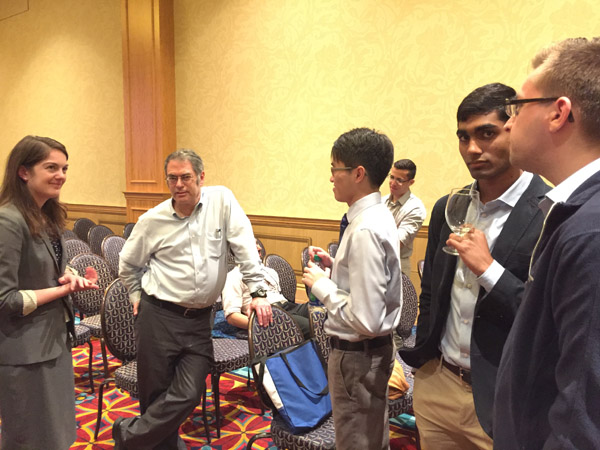 |
May 24, 2016:Several members of the CHEPS team attended the Industrial and Systems Engineering Research Conference (ISERC) organized by the Institute of Industrial & Systems Engineers (IISE) in Anaheim, California at the Disneyland Resort Hotel. Moses Chan, Ajaay Chandrasekaran, William Pozehl, and Roshun Sankaran represented CHEPS at the conference which was held from May 21 -24, 2016.
The group presented on the following topics: Annual Rotation Scheduling for Medical Residents Through Optimization, William Pozehl William Pozehl was impressed by the work of his fellow CHEPSters. He said, “The CHEPS students gave some brilliant talks. I was particularly impressed by Roshun’s talk in my session — as a non-engineer he did a fantastic job describing some in-depth modeling.” While the students mostly focused on attending healthcare talks and delivering their own presentations, they also enjoyed the opportunity to learn about some research outside of healthcare. Roshun Sankaran said, “Most of the talks I saw were healthcare-related, though I did see a talk with Moses about modeling terrorist activity, and that was pretty interesting.” Ajaay Chandrasekaran added that he “enjoyed the variety of talks given by individuals from other institutions.” One of the highlights for Moses Chan, was helping out his fellow conference attendees. “While the conference experience was enlightening, I also valued much the time discussing possible improvements with my fellow CHEPSters prior to their talks,” he said. The conference not only allowed us to share our teams’ research work, more importantly it facilitated the conversation and exchange of ideas among fellow researchers in the field. With such opportunities we continue to serve our healthcare community, and many others, in a collaborative research environment. Outside of the conference, the CHEPS crew enjoyed the beautiful weather and lots of time in Downtown Disney. Everyone was in agreement that the vegan Vietnamese restaurant they visited was the best culinary experience of the trip! |
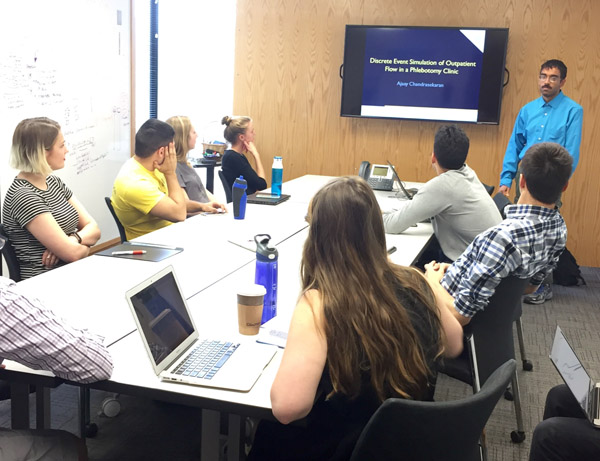 |
May 20, 2016:With our new students settling in and project teams ramping up for the summer, the CHEPS office was bustling this past week. On Tuesday, four members of the Surgical Instruments team visited the Neurosurgery operating rooms at UMHS. The team was observing the instrument flow before, during, and after surgery. For Megan Yanik, a soon-to-be second-year Medical Student, this observation session – while exciting – was par for the course. But for Nina Scheinberg, it was only the second opportunity to observe in the OR environment. “There’s a big difference between talking about the instrument flow in the ORs and actually seeing it,” she said. “This observation session is a testament to how engaged our UMHS partners are in this project, and I’m thankful that CHEPS and UMHS have a relationship that affords us these opportunities.”
In other news, Healthcare Engineering and Patient Safety (HEPS) Masters’ student Elizabeth Olin led the Chemo team’s weekly rounds at the University of Michigan Comprehensive Cancer Center this week. Olin and other research assistants are working to identify ways to improve patient flow in the the Cancer Center. For Alex Fauer, a senior in the University of Michigan’s undergraduate nursing program, observing interdisciplinary rounds is not unfamiliar. “I’ve been in meetings with doctors, nurses, etc., but this is the first time I felt like I’m contributing to the management of not just one patient, but potentially hundreds. I’m so grateful to be a part of CHEPS,” he said. Additionally, a dozen CHEPS members gathered to watch and critique two students’ practice presentations for the Industrial and Systems Engineering Research Conference (ISERC) coming up in Anaheim this weekend. The practice talks were excellent, and we anticipate a great showing by CHEPS in California! |
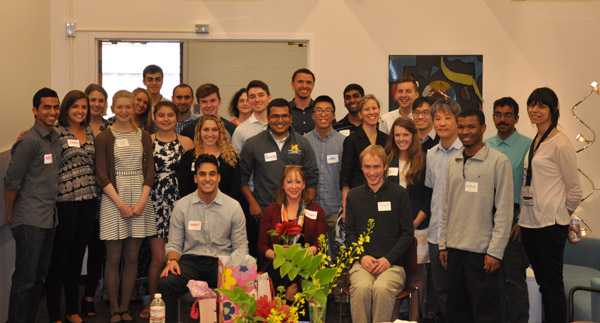 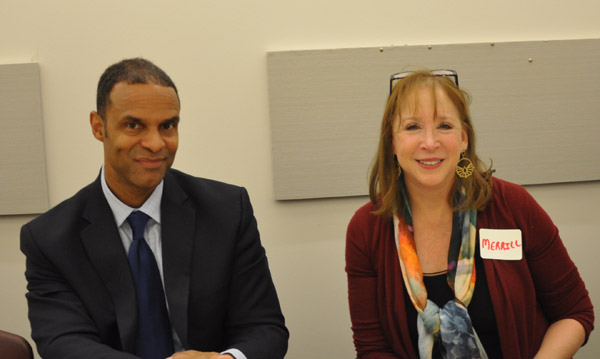 |
May 18, 2016:On May 18th, the Center for Healthcare Engineering and Patient Safety (CHEPS) was honored and excited to host longtime friend and supporter, Mrs. Merrill Bonder, head of the Seth Bonder Foundation. Students, faculty, and friends alike shared a lunch in celebration of the collaboration and work made possible by the generous support from The Seth Bonder Foundation. Discussions ranged widely as each student was eager to share the amazing projects they are working on and how greatly they have benefited from the support of the Seth Bonder Foundation.
The Seth Bonder Foundation was founded in memory of the late Dr. Seth Bonder, a former IOE faculty member as well as the founder and former chairman/CEO of Vector Research, Inc. Much of his career was focused on improving the planning and operations of healthcare delivery enterprises. He was also an expert in national security and defense enterprises, with an international reputation for his work developing new procedures and directing analyses for planning and operations analysis of military forces. Dr. Seth Bonder was particularly passionate about supporting and mentoring students. This legacy and memory are honored every day through the amazing work made possible by the funding, support and friendship Merrill Bonder and the Bonder Foundation have offered CHEPS. |
 |
May 10, 2016:CHEPS director, Jim Bagian, is quoted in a Politico Pro article titled “ONC Seeks Path Amid Contradictory Calls to Action.”
“The Institute of Medicine in 2011 called for creating a reporting and investigation system for health IT-related deaths and injuries. But such complex investigations require time and resources ONC lacks, says Jim Bagian, who sat on that IOM panel and leads the Center for Healthcare Engineering and Patient Safety at the University of Michigan.” (A subscription to Politico Pro is required to read the full article.) |
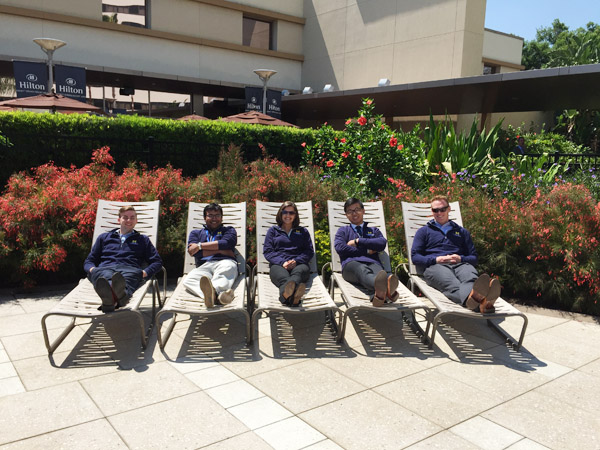 |
May 9, 2016:The Production and Operations Management Society (POMS) recently held their annual conference in Orlando, Florida from May 6-9, 2016. From CHEPS, Prof Amy Cohn, Brian Lemay, Billy Pozehl, Nina Sheinberg, Pranjal Singh, and Bill Zhang all attended the annual conference.
During the conference, Amy delivered a well-received talk on all of the great scheduling work that has been done with medical residents at the University of Michigan. Building off of Amy’s presentation, Brian discussed his research relating to the specific challenge of scheduling medical residents when they have conflicting requests for time-off. Pranjal also gave a great presentation on the work that is being done to improve patient access and adherence to a weight management program. Rounding out the CHEPS presentations was Bill, who gave an excellent talk on the work being done to improve the delivery of surgical instruments through process flow improvements. While not delivering presentations, CHEPS members attended an assortment of presentations that covered a wide variety of topics including: a decision support system for appointment scheduling (Prof William Millhiser), how to be relevant in the age of analytics (Prof Mark Spearman), hospital-acquired conditions (Hamsa Bastani), long-term care for intensive care unit (ICU) patients (Prof Fernanda Bravo), and the economics of “flipping” operating rooms (i.e., having surgeons start on their next patient in a new room while their previous room is turned over) (Prof Nickolas Freeman). In-between presentations, CHEPS members networked with other professionals interested in healthcare related research and created many new connections while renewing old ones. During the evenings, CHEPS members enjoyed exploring nearby Disney Springs and all of the great sights, sounds, and tastes it has to offer. CHEPS members also had the opportunity to attend the opening ceremonies to the Invictus Games—an athletic event started by Prince Harry as a way to inspire recovery, support rehabilitation, and generate a wider understanding and respect for wounded, injured, and sick servicemen and women. The opening ceremony included inspiring words by Michelle Obama, Prince Harry, George W Bush, and Morgan Freeman as well as a number of emotional stories from wounded warriors. Overall the conference was a great experience for everyone who attended! The presentations given were: Improving Patient Access and Adherence to an Endocrine Program, Pranjal Singh |
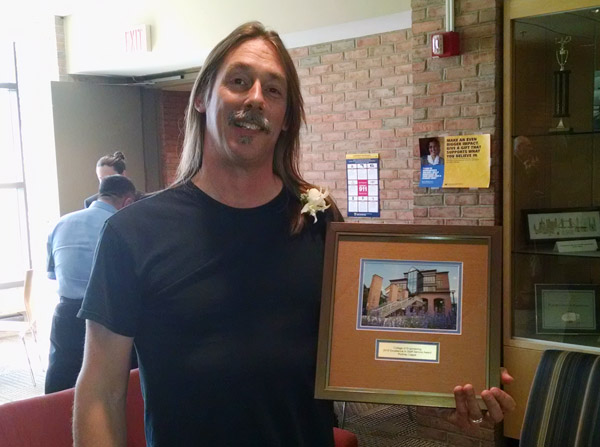 |
May 6, 2016:The 2016 Engineering Excellence in Staff Service Awards ceremony on Friday afternoon was a celebration of the outstanding service provided by College of Engineering staff. The event marked the presentation of the 10th annual College of Engineering Excellence in Staff Service Awards and Judith A. Pitney Staff Service Career Award. Started by Dean David C. Munson in his first year on the job, the awards ceremony seeks to honor the contributions of the hardest working and most dedicated staff members throughout the College.
One of this year’s award recipients was our own Rod Capps. Rod was selected to receive the award for his work at CHEPS and the Industrial and Operations Engineering Department. For the past several years Rod has served the department dutifully as an expert of web applications and databases. He aided the IOE Department over the course of the past year in the rollout of its new website. Rod has been an integral part of the Aviation Project, serving as a point of contact with the University’s IT Department on setting up and maintaining their database of over 80 million flight records. He also routinely lends his expertise on improving data retrieval techniques to CHEPS in order to improve the speed and robustness of data analysis. In his acceptance speech, Rod made sure to thank those that nominated him as well as his coworkers in IOE and CHEPS, and, of course, his wife of 20+ years who forms the second half of a husband-wife folk music group, Annie And Rod Capps. Award recipients were nominated by several members of their home departments, including colleagues, supervisors, and faculty. A selection committee then whittled down the number of nominees to select eight award winners as well as the winner of the career award, which is open only to staff members who have been with the college for 10 or more years. The awards ceremony allowed the winners’ family, friends, and colleagues to celebrate their accomplishments, and it was followed by a lovely reception in the Chesebrough lobby complete with photo opportunities for those supporting the winners. |
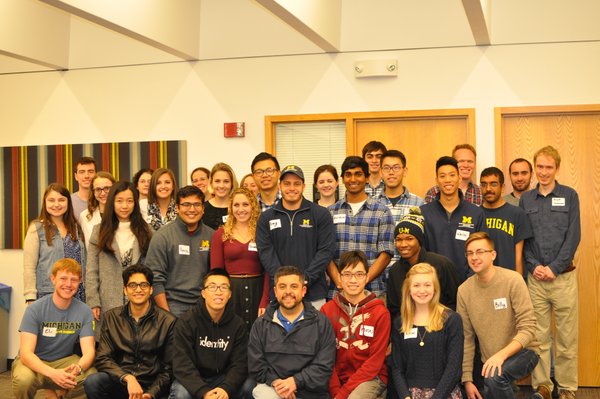 |
May 2, 2016:On Monday, May 2, the Center for Healthcare Engineering and Patient Safety (CHEPS) began the summer season with a welcome breakfast introducing both returning and new students, faculty and collaborators. The new affiliates got their first exposure to the incredible CHEPS network and officially took their place among them. With such an impressive group, it is sure to be a productive and exciting summer! |
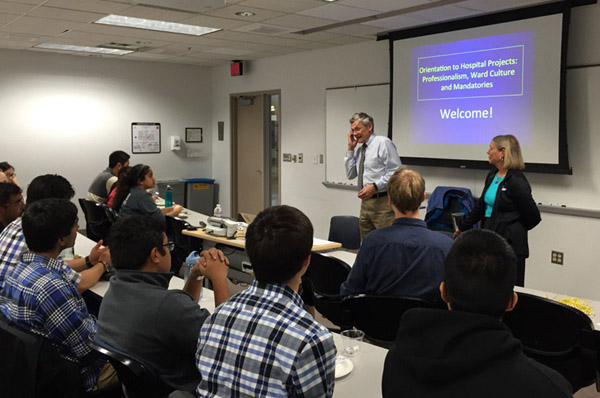 |
May 2, 2016:On May 2, CHEPS students listened avidly as Dr. Cyril Grum and Nurse Cathy Strachan presented on how to behave as a student in a clinical environment. This informative session was an incredible opportunity to help prepare the highly diverse group for their clinical observations and/or interactions in the hospital setting. Given many of the students have never been exposed to the hospital environment, they were able to benefit greatly from this ‘clinical observation 101’ crash-course.
Dr. Grum is a University of Michigan Professor of Internal Medicine and Associate Chair for Undergraduate Medical Educations in the Department of Internal Medicine at the University of Michigan. He is well versed on this topic and commonly helps prepare medical students for their clinical work with similar seminars. Furthermore, Nurse Strachan has been a University of Michigan nurse and worked in the clinical environment for many years. Together they offered a comprehensive, robust introduction and explanation of the field. Dr. Grum and Nurse Strachan provided insight into everything from what interaction & events to expect, to making the best impression, to succeeding in the clinical setting. They answered questions with care and patience. To make the experience interactive, Dr. Grum and Nurse Strachan challenged students to seriously consider their potential reactions in different scenarios. This prepared students for the unique and beneficial opportunities that clinical emersion can provide. The material they presented will be key in helping students navigate the potentially unfamiliar environments in a professional and successful way. We cannot thank them enough for their time and knowledge. |
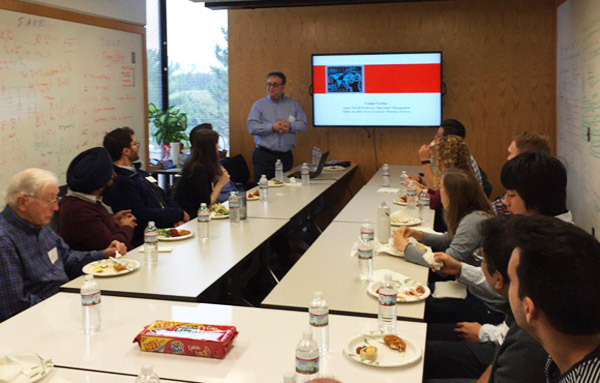 |
May 2, 2016:On Monday, May 2, 2016, the Center for Healthcare Engineering and Patient Safety (CHEPS) kicked off summer with a Lunch and Learn session featuring Dr. Vedat Verter. Dr. Verter is a James McGill Professor of Operations Management at the Desautels Faculty of Management at McGill University, specializing in the application of business analytics for policy design and decision-making in the public sector. His areas of research are transport risk management, sustainable operations and healthcare operations management. In the area of healthcare, he focuses on preventive, primary, emergency, acute and chronic care processes, as well as their interaction. He is Director of McGill’s MD-MBA Program and Founding Director of the NSERC CREATE Program in Healthcare Operations and Information Management, a seven-University PhD/PDF training program across Canada.
In this talk, titled “Healthcare Operations Management in the Age of Business Analytics”, Dr. Verter presented an overview of two multi-disciplinary research projects, taking advantage of the full spectrum of business analytics, namely tools for decision making in tactical, strategic, and operational settings, for improving healthcare systems and care delivery processes. At the strategic level, he discussed the design, in collaboration with the Quebec Ministry of Health, of a breast cancer screening program in Montreal. This project made use of survey-based and secondary data to characterize women’s preferences for mammography services in order to estimate the likelihood of their participation in the screening program. At the operational level, Dr. Verter provided an overview of his work (in progress) at the Montreal Jewish General Hospital surgical services which uses real time location system technology to gather data on patient care pathways as well as nurse behavioral patterns. This constant flow of data created by this system requires the use of big data analysis techniques for understanding the system dynamics with the goal of improving the accessibility of surgical services for patients. The talk was well received by the audience and fostered an interactive discussion amongst attendees. Further discussion, from Dr. Verter’s methodology and technique, to introduction and involvement of technology lead to an intriguing and informational conversation and ultimately a very successful seminar! |
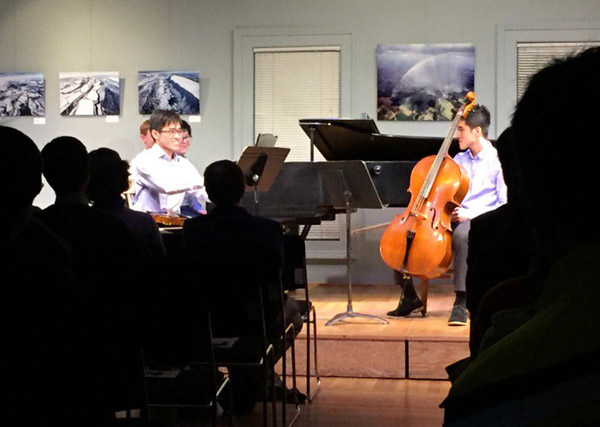 |
April 28, 2016:On Thursday, April 28, CHEPS’s own Moses Chan performed the violin in a piano trio along with Joe Jang on cello and Danny Luan on piano. The group began with Beethoven’s Piano Trio in B-flat, Op. 97, commonly known as the Archduke Trio. After a brief intermission, the group began again with Astor Piazzola’s hauntingly emotional Oblivion, a tango written for the movie Enrico IV. They then finished the recital with Debussy’s Piano Trio in G, L. 3, an expressive four-piece movement written when Debussy was only 18. CHEPS’s Eli Sherman also contributed his efforts as a page-turner.
More than a dozen CHEPS students and affiliates attended the concert which was held at the Kerrytown Concert House. All donations from the performance were graciously given to World Vision for disaster relief from the earthquake in Ecuador. Thank you, Moses, for sharing your talent and music with us! |
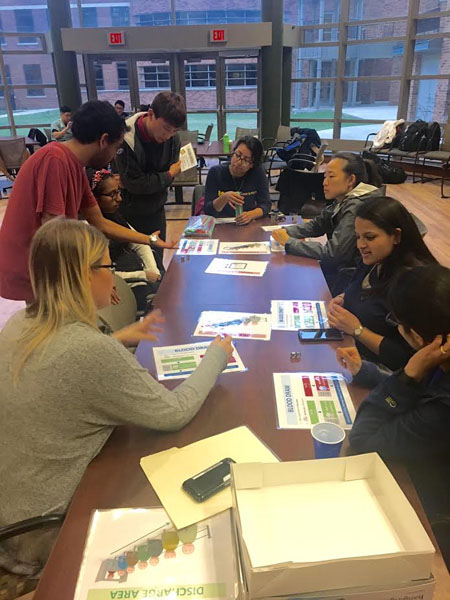 |
March 28, 2016:On Monday, March 28th students from the Center for Healthcare Engineering and Patient Safety (CHEPS) had a mixer with the students from the Institute for Healthcare Improvement Open School (IHI-OS). Both of these groups strive to improve patient safety and the quality and efficiency of healthcare delivery through a multi-disciplinary, systems-based approach.
The event kicked off with an overview of what CHEPS and IHI-OS are all about. Billy Pozehl, Research Specialist at CHEPS, delivered a brief talk about the goals of CHEPS and some of the projects that are currently being worked on. Pauline Do, IHI-OS Chapter President, explained the role of IHI-OS and the primary aims of their projects. The mixer continued with CHEPS and IHI-OS students chatting over pizza and refreshments. Individuals from both groups were able to discuss the projects that they were working on and how they are related to each other. CHEPS student Pranjal Singh shared, “IHI does a lot of the same things CHEPS does, but their approach is slightly different than ours. They look at things from a very design oriented approach. It’s really nice to see that we have a lot of things in common in terms of the problems we are trying to solve and that there is a lot we can learn from each other in future collaborations”. Various CHEPS students had visual demos related to projects that were displayed during the event. Some of these included an appointment scheduling game ran by Nina Scheinberg, and a phlebotomy clinic simulation demonstrated by Ajaay Chandrasekaran. At the beginning of this event many CHEPS students didn’t know what IHI-OS stood for, and many IHI-OS students didn’t know what CHEPS stood for. By the end of the event all of the students had a better understanding of what each other do and were excited about the possible collaborations between CHEPS and IHI-OS on coming projects. |
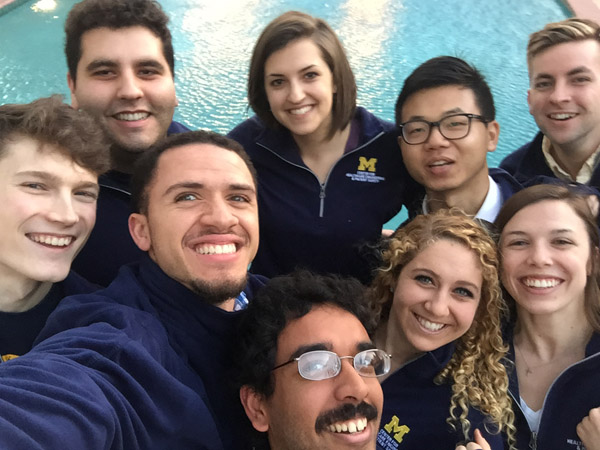 |
February 19, 2016:The Society of Health Systems’ 2016 Healthcare System Process Improvement Conference in Houston was an amazing experience for all the CHEPS students who attended. The conference focused on the application of industrial engineering tools to transform the healthcare industry. Academic researchers, industry leaders, and technology vendors gathered from all over the country to share knowledge, network, and enjoy the mild spring weather.
“The SHS Conference was a great opportunity for me to learn about the impact industrial engineers can make in the healthcare industry outside the areas I have become familiar with through working at CHEPS,” said Jonathan Mogannam, an IOE undergraduate student. The keynote speakers were both educational and inspirational. Dr. Denis A. Cortese, emeritus president and CEO of Mayo Clinic and current Director of the Health Care Delivery and Policy Program at Arizona State University, talked about achieving excellence and encouraged attendees to rethink quality and value for patients. Dr. James Rawson, Chair of the Department of Radiology and Imaging at Medical College of Georgia at Augusta University, stated the importance of IE from a physician’s perspective and challenged industrial engineers to save 100 million dollars in daily operations for the year to come. “SHS was my first conference I have ever been to, and I thought it was really interesting to see so many other people sharing CHEPS’s interest in healthcare engineering,” said Paige Mollison, an IOE undergraduate student. Poster and presentations sessions were instrumental as well. CHEPS own presenters, Nina Scheinberg, Billy Pozehl, Elizabeth Olin, Matt Rouhana, and Donald Richardson, presented their respective projects and received positive feedback from their audiences. Matt Rouhana, a HEPS master’s student, was impressed by the presentations he saw. “I love the SHS conferences because of the high quality of the presentations at them,” he said. “This year’s was no exception, and I was able to attend a number of fantastic talks and network with some great people. And it was great to be able to enjoy some warm weather in Houston too!” Donald Richardson, and IOE PhD student, enjoyed the smaller size of the conference saying, “Unlike larger conferences, SHS hosts a more close knit community of healthcare professionals and engineers. In this setting, networking came more natural even for me as a first time attendee. It was exciting to meet multiple speakers or audience members who showed interest in my own area who later were able join the audience for Matt Rouhana and my presentation.” Nina Scheinberg, a recent IOE graduate, said, “HSPIC was both my first time attending a conference and my first time giving a presentation on Surgical Instruments, and both experiences were wholly valuable. I learned a lot about process improvement projects in hospitals around the country, and I had the chance to share my own team’s success with other Industrial Engineers interested in the same research. In addition to enjoying the conference, I also got to bask in Houston’s beautiful weather and feast on the local food. I’m so grateful that I had the opportunity to go on this awesome trip.” Students from CHEPS were able to make many connections during the conference. Bill Zhang reconnected with his undergraduate classmates and internship supervisors. He also discussed discrete-event simulation with an expert form Carilion Clinic and an architect from a healthcare facility design firm. CSE Undergraduate student Ajaay Chandrasekaran was also a first time conference attendee. He said, “SHS 2016 is the first conference that I have ever attended; it is an experience that I will never forget. The conference was a fascinating conglomeration of individuals, which included professionals from industry and academia as well as specialists from diverse realms, such as hospital management, process improvement, and machine learning. I valued the opportunity to present our team’s progress in the development of a phlebotomy clinic simulation for the Cancer Center. The conference was also a great opportunity to gain technical advice from other individuals, some having successfully developed simulation models to improve patient flow in their domains.” Posters presented at the conference were:
Presentations at the conference were:
|
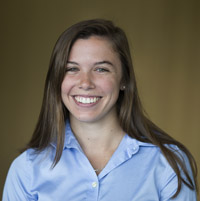 |
February 19, 2016:Paige Mollison was the Undergraduate Student Award Winner at the Society of Health Systems’ 2016 Healthcare Systems Process Improvement Conference. The award recognized her poster titled “Scheduling Healthcare Providers Using Optimization.” The research presented on the poster was in collaboration with William Pozehl, Amy Cohn, Stephen Gorga, and Janice Davis. Awards for posters are judged on the level of impact of the project, the presentation of the content on the poster itself, and the ability to convey the story represented on the poster while speaking with the judges and other attendees. |
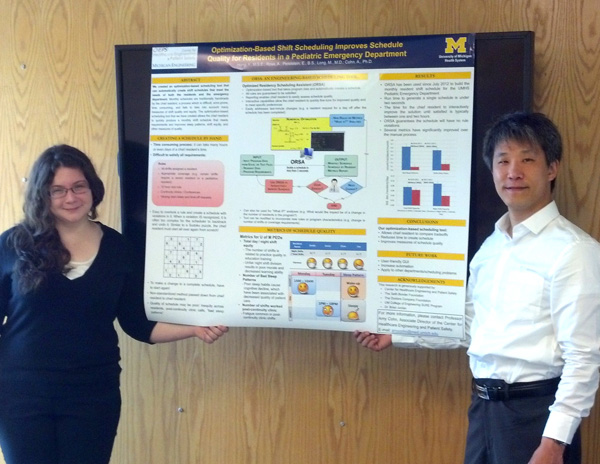 |
February 1, 2016:Elizabeth Perelstein, Ariella Rose, Young-Chae Hong, Amy Cohn, and Micah T. Long have an article titled “Automation Improves Schedule Quality and Increases Scheduling Efficiency for Residents” published in the February 2016 issue of the Journal of Graduate Medical Education.
Medical resident scheduling is difficult due to multiple rules, competing educational goals, and ever-evolving graduate medical education requirements. Despite this, schedules are typically created manually, consuming hours of work, producing schedules of varying quality, and yielding negative consequences for resident morale and learning. The article looks at how computerized decision support can improve the construction of residency schedules, saving time and improving schedule quality using the example of The Optimized Residency Scheduling Assistant which was implemented in the C.S. Mott Children’s Hospital Pediatric Emergency Department in the 2012–2013 academic year. |
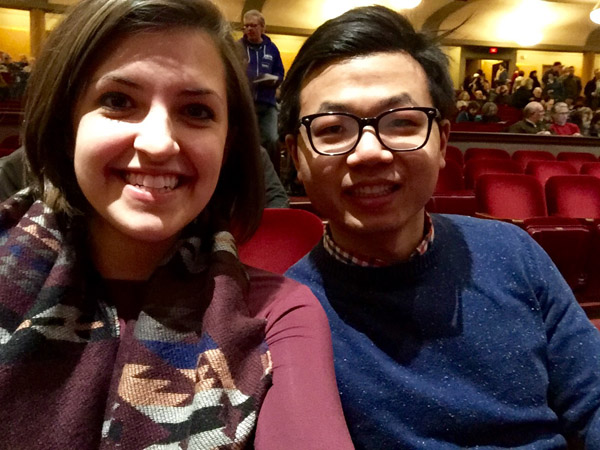  |
January 29, 2016:Students Christine Barnett, Nina Scheinberg, and Bill Zhang along with Christine’s husband attended the 39th Annual Ann Arbor Folk Festival thanks to tickets gifted to CHEPS by Merrill Bonder and The Bonder Foundation. The group attended night one of the festival on January 29th. The musical lineup included City and Colour, Richard Thompson, Yo La Tengo, The Oh Hellos, Nora Jane Struthers & the Party Line, Penny & Sparrow, and Ben Daniels Band. David Mayfield was the MC.
All four had an excellent time and were grateful for the opportunity to see the concert. “The Folk Festival performances were incredible, and the entire event was seamlessly run. The fact that our seats were in the fifth row intensified the whole experience. It was hands down the best show I’ve been to in Ann Arbor,” said Nina. Thank you to Merrill and The Bonder Foundation for the awesome Folk Festival experience! |
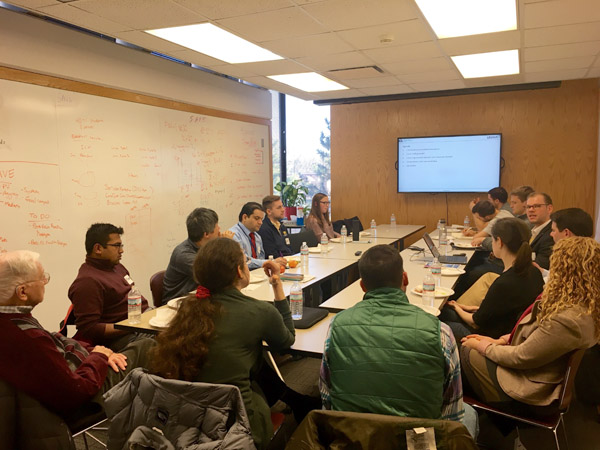 |
January 29, 2016:On Friday, January 29th, 2016, the Center for Healthcare Engineering and Patient Safety (CHEPS) hosted a Lunch and Learn session featuring Dr. Jens Brunner. Dr. Brunner is a professor of Healthcare/Operations Health Information Management as a Faculty of Business and Economics at the University of Augsburg. He teaches courses in service operations management, modeling and optimization, integer programming, and healthcare management. His research has a special focus on processes in healthcare.
At the session, Professor Brunner discussed his recent work, which centers on flexible scheduling of physicians across short- to long-term planning horizons. He began by explaining that simply scheduling physicians to accommodate average demand would lead to issues, as the 90th percentile demand is much higher. He noted that low staffing levels lead to unplanned overtime and that high staffing levels lead to excessive personnel costs. This results in the need for a flexible shift schedule. The model that Dr. Brunner and his colleagues created minimizes the number of physicians while adhering to approximately 30 constraints relating to satisfying demand and shift duration. If an extended shift is scheduled using the model, then the physician knows that they may have to work a longer shift. This ensures that demand is being met and at the same time increases the predictability of working hours. This model was evaluated with data from a case study at the German University Hospital. Their approach reduced unplanned overtimes by over 80% and the required workforce level was decreased by 20%. The talk was well received by the audience and fostered an interactive discussion amongst attendees. It was brought up that this type of staffing model could be applied to nurse scheduling. This would provide certainty by allowing nurses to be aware in advance which day of the week they may need to stay longer. Professor Brunner concluded the session by noting that this model has been incorporated into a software tool with a user interface that is being marketed and used by physicians today. We would like to heartily thank Professor Brunner and all of our guests for participating in this enriching Lunch and Learn session. |
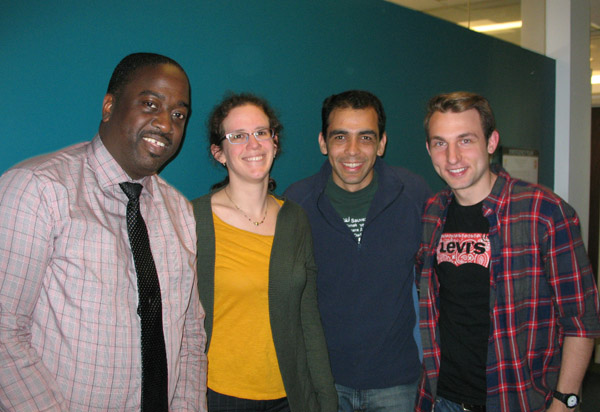 |
January 19, 2016:Gabriel Zayas-Caban (Postdoctoral Research Assistant in CHEPS), and Mariel Lavieri (CHEPS affiliate and IOE faculty member), Folafoluwa Odetola (Assistant Professor, Department of Pediatrics and Communicable Diseases) and Luke Bruski (IOE Master’s Alum) authored an article titled “An Innovative Framework to Improve Efficiency of Interhospital Transfer of Children in Respiratory Failure” which was published in the Annals of the American Thoracic Society on January 19, 2016.
High mortality and resource use burden are associated with hospitalization of critically ill children transferred from Level II Pediatric Intensive Care Units (PICUs) to Level I PICUs for escalated care. This study utilized innovative methods to create thresholds of transfer that might reduce delay in transfer. The full article is available at the link above. |
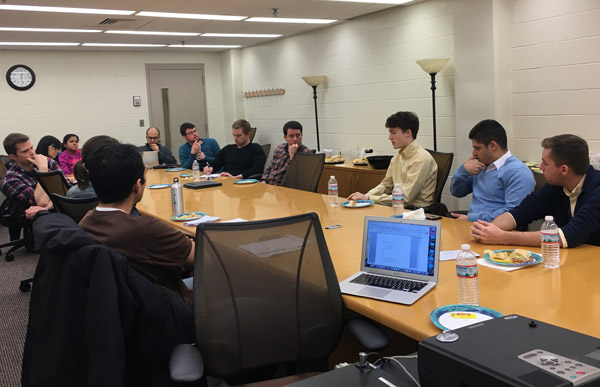 |
January 15, 2016:On Friday, January 15th several students from the Center of Healthcare Engineering and Patient Safety (CHEPS) participated in a panel at the School of Public Health (SPH). The panel was hosted by WIDTH, which is an interdisciplinary forum within the SPH for doctoral students to discuss their dissertation topics, research ideas, and results with other students and faculty.
The panel began with Billy Pozehl providing a brief overview of CHEPS and explaining its primary goal of improving the delivery, quality, and safety of healthcare through systems engineering approaches. Billy explained that CHEPS focuses on the collaboration of students from different backgrounds, which creates multidisciplinary teams. He also noted that implementation and innovation are major focuses of this research work. Billy stressed the important role that education plays with students coming from health and engineering backgrounds and the opportunities they have to learn from one another. Finally, he explained the importance of dissemination and awareness of CHEPS, which this event is a prime example of. Each of the students gave a brief overview of the research they have been working on and shared their unique perspective of their experience working at CHEPS. Matt Rouhana discussed a project that he is working on at the Cancer Center and how it aims to improve experience of outpatients receiving chemotherapy by reducing wait times. Hassan Abbas spoke about his project at C.S. Mott Children’s hospital, which evaluates patient flow. He explained that, when he began at CHEPS, he was given an overview of some of the optimization concepts and has continued to expand his knowledge of engineering principles. Next, Brian Lemay discussed his work regarding scheduling residents and the challenges it includes. He mentioned the difficulty of determining the value of schedules and the limitations of using computers instead of people to construct schedules. Brittany Lopez spoke about her experience working at the VA Hospital in the endoscopy unit, which looked at the workflow of scope reprocessing. She explained how valuable this project work was, as it gave her a chance to see first hand how systems engineering techniques could be utilized in the healthcare setting. Finally, Gabriel Zayas-Caban discussed some of his post-doctoral research work in emergency medical services, the newborn screening process, and how he is now looking at the policy side of his work in healthcare. This panel was a great platform for the students to share what they’ve been working on and to bring awareness to CHEPS. There is a lot of opportunity for collaboration with the School and Public Health students and CHEPS is looking forward to these future endeavors. |
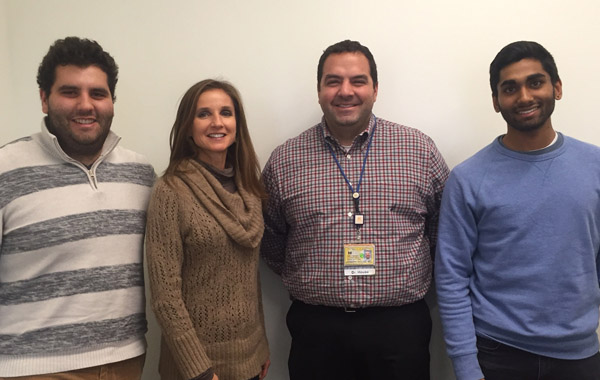 |
December 22, 2015:Recently, three CHEPS students completed a project in collaboration with the University of Michigan Medical School to schedule first year medical students to the medical school’s new Initial Clinical Exposure (ICE) program. Jonathan Mogannam, a senior undergraduate student studying Industrial and Operations Engineering, Roshun Sankaran, a senior pre-med undergraduate student studying Neuroscience, and Henry Ballout, a junior undergraduate student studying Organizational Studies worked alongside Angie Sullivan and Dr. Joseph House, administrators from the ICE program, to design a linear programming model using Open Solver in Microsoft Excel, which assigned first year medical students to the clinics they would visit based on student preferences and individual restrictions.
The ICE program, part of the new medical school curriculum unveiled for the 2015-2016 school year, is designed to expose first year students to the clinical environment earlier than ever before, and allows them to shadow different healthcare professions in order to understand more thoroughly the different roles essential to the effective delivery of healthcare. From a scheduling standpoint, this involved assigning 167 first year medical students to 18 different clinics and specific healthcare professionals they will shadow over the course of the six week program. Some of the constraints governing the clinic assignments were a student’s ability to drive to offsite clinics, the varying clinic capacities, individual student preferences, and many others. The team implemented the modeled problem using Open Solver in Microsoft Excel, ultimately producing clinic assignments schedule that optimized student preferences and other metrics deemed essential by program administrators Angie Sullivan and Dr. Joseph House. This is the second semester that CHEPS students have scheduled medical students to their ICE clinics, and hope to continue this collaboration in the future. |
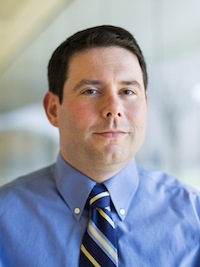 |
December 21, 2015Analytics continues to bring dramatic change to the healthcare industry in the United States and other countries, offering advances and challenges for the year ahead. In the article “Analytics and Healthcare: Ten Trends for 2016” featured on the HealthData Management website, CHEPS affiliate Brian Denton offers up 10 trends to chart in 2016. |
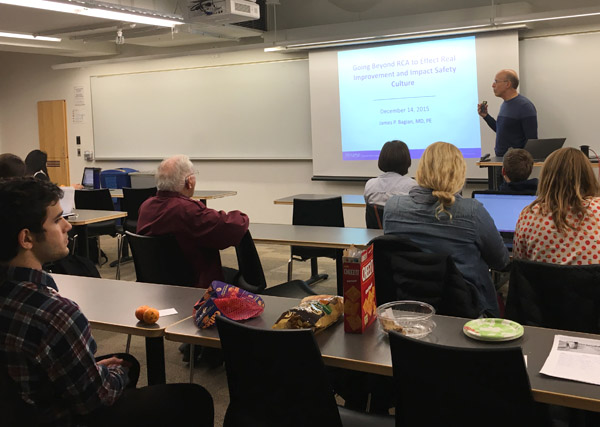 |
December 14, 2015:Dr. James Bagian was the eleventh and final featured speaker at the December 14th seminar of the “Providing Better Healthcare through Systems Engineering” series presented by the Center for Healthcare Engineering and Patient Safety (CHEPS). Attendees came from the Department of Industrial and Operations Engineering, the University of Michigan Health System, the HEPS master’s program, and CHEPS.
Dr. Bagian is the Director of CHEPS and is a Professor in the Department of Anesthesiology in the Medical School and in the Department of Industrial and Operations Engineering in the College of Engineering at the University of Michigan. Previously, he served as the first Director of the VA National Center for Patient Safety (NCPS) and the first Chief Patient Safety Officer for the Department of Veterans Affairs from 1999 to 2010 where he developed numerous patient safety related tools and programs that have been adopted nationally and internationally. Presently, he is applying systems engineering approaches to the analysis of medical adverse events and the development and implementation of systems-based corrective actions that will enhance patient safety primarily through preventive means. In his seminar, titled “Going Beyond RCA to Effect Real Improvement and Impact Safety Culture” Dr. Bagian explained how root cause analysis is a widely used technique in healthcare that has had inconsistent success. He attributed this issue to the lack of a second A in the term, action, making the new term root cause analysis and action. Dr. Bagian discussed the different elements of RCA2. The first was risk-based prioritization. He explained that only 1-2% of reports get acted upon, so “You want to pick the ones that are going to have the biggest impact”. Dr. Bagian explained that you want to pick the items with the highest risk, which has two dimensions, probability and severity. Probability is classified as frequent, occasional, uncommon, or remote and severity is classified as catastrophic, major, moderate, or mild. Another element of RCA2 discussed was team membership. Dr. Bagian explained how small teams are the most effective and that a patient representative should be involved in the process if possible. Additional elements discussed included timing, flow diagramming, interviewing, and causation determination. Dr. Bagian emphasized that action is the most important step and the aim of this methodology is to prevent recurrence and reduce risk. He explained that accountability is key, meaning everyone should “Know what will be measured and how it will be measured” proceeding implementation. Finally, he explained the importance for leadership to be involved in these initiatives and when done right, this standardized approach “will change the whole [healthcare] system.” |
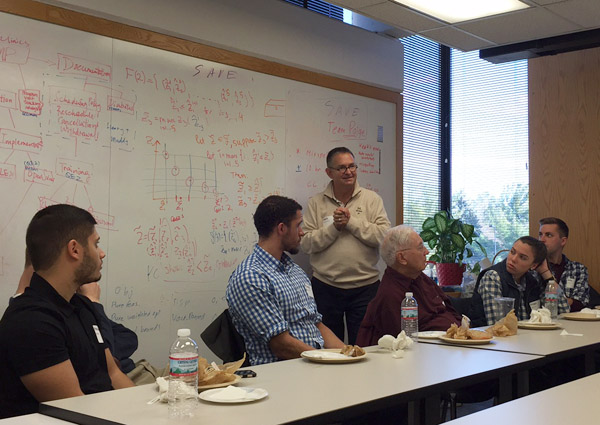 |
December 11, 2015:On Friday, December 11th, 2015, the Center for Healthcare Engineering and Patient Safety hosted a Lunch and Learn session featuring Mark Van Sumeran, a board member and advisor to health care suppliers in Richmond, Virginia. Mark has been involved in healthcare management for 35 years. He spent eleven years as a senior officer for a Fortune 300 company; twenty years in healthcare consulting, including ten at the Partner/VP level; and four years at a large academic medical center.
At the session, Mark shared his experience in and knowledge of providing strategic advisory assistance to healthcare companies. He shared his statistical projections for where the rapidly transforming healthcare industry is headed, and explained financial trends based on fluctuations in age demographics of the population in the United States. The talk was highly pertinent to its audience of researchers in the healthcare industry, and Mark’s projections provided a glimpse of the issues that hospitals and healthcare companies might face in the years to come. Among the guests was Walt Hancock, Professor Emeritus in IOE and former IOE chair, who was one of Mark’s professors when he attended the University of Michigan. Mark expressed his appreciation that Professor Hancock was able to attend the session and contribute to the discussion, even remarking that Professor Hancock was his inspiration for pursuing a career in healthcare. A copy of Mark’s Lunch and Learn presentation is available here as well as a longer version which he presented at the Medical Device Supply Council’s Fall Meeting. We would like to heartily thank Mark and all of our guests for participating in this Lunch and Learn session. |
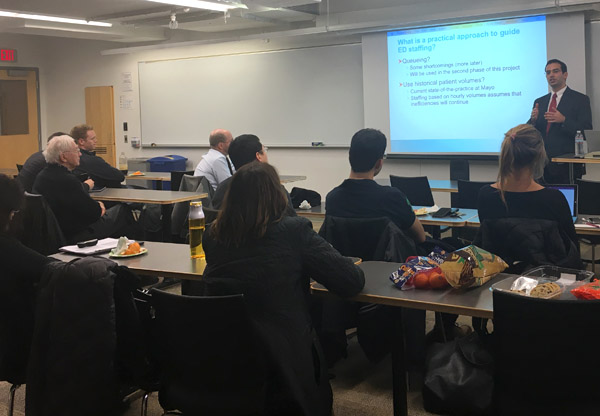 |
December 7, 2015:Mustafa Sir was the tenth featured speaker at the December 7th seminar of the “Providing Better Healthcare through Systems Engineering” series presented by the Center for Healthcare Engineering and Patient Safety (CHEPS). Attendees came from the Department of Industrial and Operations Engineering (IOE), the University of Michigan Health System, the HEPS master’s program, and CHEPS.
Mustafa Sir is an Assistant Professor of Health Care Systems Engineering at the Mayo Clinic Robert D. and Patricia E. Kern Center for the Science of Health Care Delivery. Dr. Sir graduated with a Ph.D. in Industrial and Operations Engineering from the University of Michigan in 2007. He also holds a B.S.E. and an M.S.E. degree in IOE and a M.S.E. degree in Electrical Engineering – Systems, all from the University of Michigan. In his seminar, titled “A Data-Driven Optimization Approach for Designing Shift Templates in Emergency Departments”, Dr. Sir discussed how he used historical patient volumes and systems engineering techniques to create optimal shift templates in the ED at the Mayo Clinic. The model minimizes the number of patients exceeding the staff bed capacity given the bed capacity in each pod and total full time equivalent (FTE) hours in a week. It also takes into account constraints regulating how pediatric patients are covered. This model generates results having lower length of stay and wait times for patients and aims to reduce peaks and valleys in patient demand. Dr. Sir stated, “I’ve learned that finding the optimal solution is just the beginning”. He explained that after the results are generated, they often need to be discussed with the clinical staff and modified to meet new requirements. Dr. Sir plans to conduct a post-implementation analysis, however simulation verification is currently being worked on. The results show improvement in patient wait times until they get a bed and unit they see a physician. Future work includes expanding this model to assist in shift scheduling for nurses. Dr. Sir’s talk fostered an interactive discussion between him and attendees and ended by explaining a few other innovative problems he is working on. Join us next week for the eleventh and final talk of the year titled “Going Beyond RCA to Effect Real Improvement and Impact Safety Culture” presented by James Bagian, MD, PE, U-M, CHEPS. |
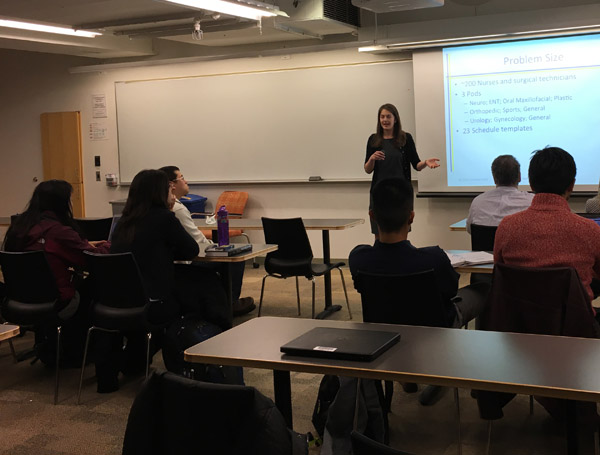 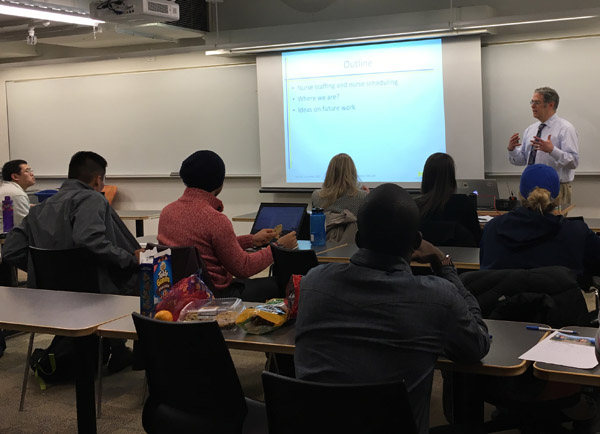 |
November 30, 2015:Mark Daskin and Emily Tucker were the ninth featured speakers at the November 30th seminar of the “Providing Better Healthcare through Systems Engineering” series presented by the Center for Healthcare Engineering and Patient Safety (CHEPS). Attendees came from the Department of Industrial and Operations Engineering, the University of Michigan Health System (UMHS), the HEPS master’s program, and CHEPS.
Mark Daskin is the Department Chair of, and Clyde W. Johnson Collegiate Professor in, the Industrial and Operations Engineering Department at the University of Michigan. Daskin received his PhD from the Civil Engineering Department at M.I.T. in 1978. Professor Daskin’s research focuses on the application and development of operations research techniques for the analysis of the health care problems, as well as transportation, supply chain, and manufacturing problems. Emily Tucker is a PhD student in the Industrial and Operations Engineering Department at the University of Michigan. Prior to graduate school, she received her BS in Industrial Engineering from NC State and worked as a Research Health Economist at RTI International. Emily’s research focuses on the applications of operations research to health care and public health policy. In their seminar, titled “Using Optimization to Assist in Surgical Nurse Scheduling”, Professor Daskin and Emily discussed how they are using integer programming to help schedule 200 nurses across three pods at UMHS. The model includes hard constraints, such as hospital requirements and soft constraints, including nurse preferences for days and shifts. Currently, nurse managers manually do this scheduling every four weeks, which takes roughly one month of time. Although this work is still ongoing, the model only takes four minutes to run and the schedules can be used as starting points for creating final schedules. Next steps in this research work include changing hard constraints to soft constraints to improve and increase the number of solutions. Additionally, Eva Cahnman, a senior in Industrial and Operations Engineering collaborating on this project, is creating a user interface to display the schedule for the nurses managers to utilize. Following the talk, an attendee asked what some foreseeable challenges would be in implementation. Emily responded that the main challenges are making sure the model accurately reflects what is going on, and making sure that “what we consider a good schedule is what the nurse managers consider a good schedule.” Join us next week for the tenth talk of the year titled “A Data-driven Optimization Approach for Designing Shift Templates in Emergency Departments” presented by Mustafa Y. Sir, PhD, Mayo Clinic. |
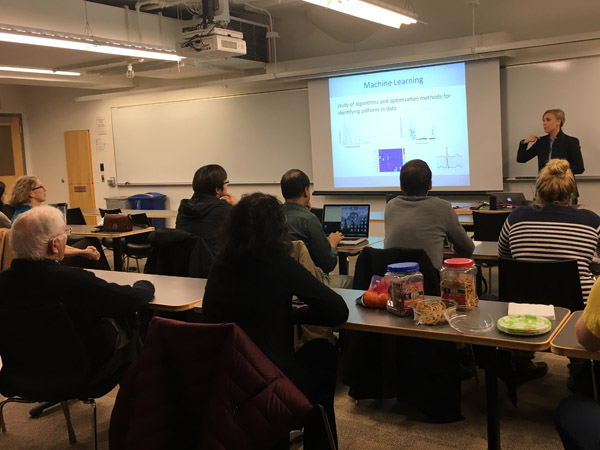 |
November 23, 2015:Jenna Wiens was the eighth featured speaker at the November 23rd seminar of the “Providing Better Healthcare through Systems Engineering” series presented by the Center for Healthcare Engineering and Patient Safety (CHEPS). Attendees came from the Department of Industrial and Operations Engineering, the University of Michigan Health System, the HEPS master’s program, and CHEPS.
Jenna Wiens is an Assistant Professor in Computer Science and Engineering (CSE) at the University of Michigan. She currently heads the Machine Learning for Healthcare research group within the AI lab. Professor Wiens’ research interests lie at the intersection of machine learning, data mining, and medicine. The overarching goal of her research agenda is to develop the computational methods needed to help organize, process, and transform data into actionable knowledge. Professor Wiens’s seminar, titled “Machine Learning for Data-Driven Healthcare”, focused on how patient data can be used to build models that will help healthcare providers avoid bad patient outcomes and better predict infections. One of the main goals of her research is to leverage the data from electronic medical records to learn accurate models for better predicting Clostridium difficile (C. diff), which is a healthcare-associated infection. Professor Wiens spoke about some of the challenges of Big Data in healthcare such as high dimensionality, paucity of cases, and institutional and population differences for which she stated, “One size fits all is not the right solution”. Professor Wiens discussed building risk stratification models and more specifically, the transferability of these models across hospitals. She compared a global model, which uses data from multiple hospitals, with a hospital specific model, which focuses on data from just one hospital. The challenges with these two models are that the global model doesn’t account for institutional differences and the hospital specific model has limited amounts of data. Professor Wiens is working on an innovative solution called the Source and Target model, which leverages all data but focuses on the hospital specific features as well. Professor Wiens’s current research directions include exposure susceptibility in collaboration with the VA and a systems biology approach in collaboration with UMHS. Join us next week for the ninth talk of the year titled “Using Optimization to Assist in Surgical Nurse Scheduling” presented by Mark Daskin, PhD, U-M, IOE Chair and Kayse Maass, PhD candidate, IOE. |
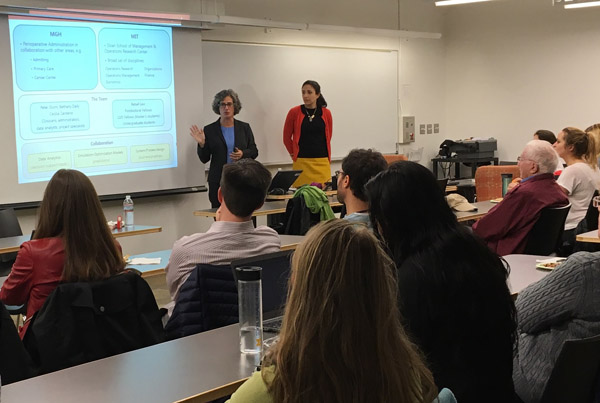 |
November 16, 2015:Bethany Daily and Cecilia Zenteno were the seventh featured speakers in the “Providing Better Healthcare through Systems Engineering” series presented by the Center for Healthcare Engineering and Patient Safety (CHEPS). Attendees came to their November 16th talk from the Department of Industrial and Operations Engineering, the University of Michigan Health System, the HEPS master’s program, and CHEPS.
Bethany Daily is the Senior Administrative Director, Perioperative Services at Massachusetts General Hospital (MGH). As a member of the Executive Perioperative Services team, her responsibilities include the strategic direction and implementation of information systems. Bethany received her Bachelor of Arts at the University of Michigan-Ann Arbor and her Master of Healthcare Administration at University of North Carolina-Chapel Hill. Cecilia Zenteno is an Operations Research Manager at MGH and a Research Affiliate at MIT. Her responsibilities span mathematical modeling, data analysis and executing initiatives in collaboration with all levels of healthcare providers and administrators. Cecilia received her Ph.D. in Operations Research from Columbia University and worked as a post-doctoral fellow within the MGH-MIT Collaboration for two years before joining MGH full time in 2014. Bethany and Cecilia’s seminar, titled “OR in the OR (and beyond) at Massachusetts General Hospital”, focused on how Operations Research techniques are used to re-design and improve care processes at MGH. They discussed various projects in different phases that they are currently working on. One project utilizes integer programming in order to determine how to allocate patients in different beds to meet capacity constraints. Another project they discussed uses an optimization model to standardize the patient appointment path and balance patient load throughout the week. Bethany and Cecilia explained that the main goals of their work and of MGH primary care as a whole include patient experience, population health, professional satisfaction, and efficiency. They also provided attendees with insight on lessons they’ve learned, such as working on the top priority problems first and reaching out to leadership to support engagement and implementation. Lastly, Bethany and Cecilia explained how “helping people appreciate how these [systems engineering] methods can apply to healthcare” is an important part of their roles. Join us next week for the eighth talk of the year titled “Machine Learning for Data-Driven Healthcare” presented by Jenna Wiens, PhD U-M, CSE, MLD3. |
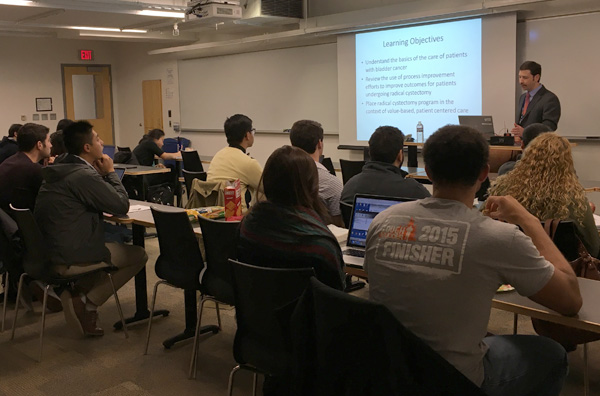 |
November 9, 2015:Alon Weizer was the sixth featured speaker at the November 9th seminar of the “Providing Better Healthcare through Systems Engineering” series presented by the Center for Healthcare Engineering and Patient Safety (CHEPS). Attendees came from the Department of Industrial and Operations Engineering, the University of Michigan Health System, the HEPS master’s program, and CHEPS.
Dr. Weizer is currently Medical Director of the University of Michigan Comprehensive Cancer Center and Associate Professor of Urology. He completed his undergraduate studies at Duke University, medical school at Baylor College of Medicine, and surgery and urology training at Duke University Medical Center. Clinically, Dr. Weizer focuses on Urologic Oncology with particular interests in bladder, kidney, and testis cancer. He is also the lead physician of the Bladder Cancer Clinical Innovation Program focusing on process improvement for patients receiving bladder cancer care at the University of Michigan Health System. Dr. Weizer’s seminar, titled “Team Based Improvement for Patients undergoing Cyctectomy for Bladder Cancer at U-M”, focused on his projects aimed at improving bladder cancer patients’ experience. He explained that bladder cancer impacts over 70,000 people a year and is one of the most expensive cancers to treat because of the high level of care required post surgery. He explained that his job is like a “medical plumber” as he is responsible for removing the entire bladder, not just the cancerous tumor during surgery. Dr. Weizer shared a video clip of him performing this approximately 5-hour surgery with attendees. He noted that “the bladder does not really like to be removed”, making it a fairly strenuous surgery. Dr. Weizer’s project work began in 2011, using lean principals to drive process improvement. The general structure of these projects is first, to engage everyone who will be involved. He stated, “Without people who are going to think about and want to change a process, you aren’t going to get there”. Then he would employ systems engineering tools such as value stream maps, simulation, and mathematical models to drive his projects. One problem he has addressed is that bladder patients must attend 4-8 pre-operative appointments in up to 3 different locations. To solve this problem, his team developed a quantitative model to optimize appointment scheduling, which took into account variation in appointment and travel times. This project, along with many others, has been extremely influential in improving patient experience. Join us next week for the seventh talk of the year titled “OR in the OR (and Beyond) at Massachusetts General Hospital (MGH)” presented by Bethany Daily, MHA, MGH and Cecilia Zenteno, PhD, MGH. |
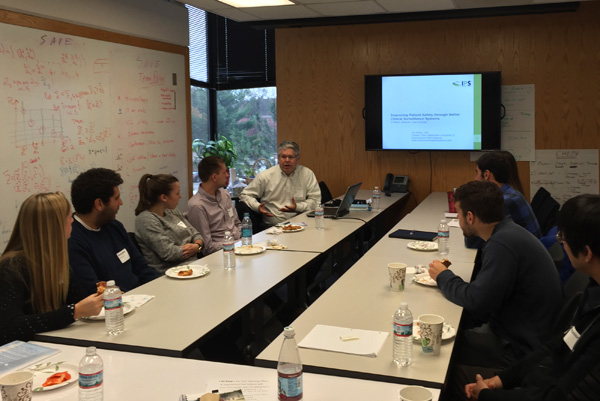 |
October 29, 2015:In a Lunch and Learn session hosted at Center for Healthcare Engineering and Patient Safety on October 29, 2015, professionals from Improvement Path Systems (IPS), Rochester MI, discussed their experience in improving healthcare services. Three speakers were featured in this session, including Jim Kamp, Chief Operating Officer, Chelsea Thull, Healthcare Consultant, and Matt DiTullio, Healthcare Analyst.
Mr. Kamp initiated the discussion with the tragic story of Josie King, an 18-month child who died from a hospital acquired infection due to medical errors back in 2001, emphasizing the importance of timely feedback and adequate communication in patient care. In IPS’ work to help prevent central line-associated blood stream infections (CLABSI), they developed an automated electronic system to closely monitor patients with potential risk of acquiring an infection. The system retrieves EHR data and generates a dashboard of summary and longitudinal electronic history of specific patients, which provides a close-to-real-time, standardized report of patient statuses. The report allows healthcare professionals to provide appropriate feedback and call for timely actions. IPS plans to extend their services into other types of infections, such as catheter-associated urinary tract infections (CAUTI) and surgical site infections (SSI). One of the challenges faced by IPS, also commonly faced in the healthcare system, is the implementation of change. Mr. Kamp and Ms. Thull pointed out that to successfully implement changes, the key is to understand the culture of the environment thoroughly before designing solutions. Mr. Kamp also spoke to the uniqueness of each organization, which calls for a unique, tailored solution. At the end of the discussion, the speakers described the skill sets they value at IPS. With a baseline of technical skills, such as data analysis and programming, they emphasize the importance of effective communication skill to present complex data-heavy results to healthcare providers. The passion to ‘translate technical skills to impacting [patient healthcare]’, one of the core values discussed by Mr. Kamp, has brought Mr. DiTullio back to IPS after two years in the advertising industry. Mr. DiTullio, an IOE alum, expressed the urge to move back into the healthcare services, where he can utilize his unique background and experience to ultimately help improve people’s lives. For more information about Improvement Path Systems, visit http://www.improvementpathsystems.com/. Thank you to our speakers and guests for participating in this insightful Lunch and Learn session! |
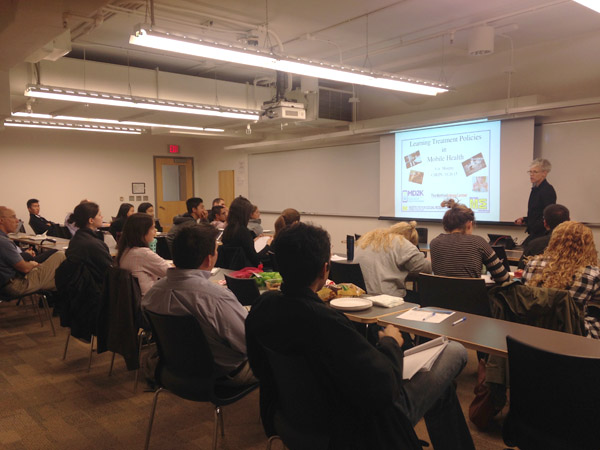 |
October 26, 2015:Susan Murphy was the fifth featured speaker seminar in the “Providing Better Healthcare through Systems Engineering” series presented by the Center for Healthcare Engineering and Patient Safety (CHEPS). Attendees came to her October 26th talk from the Department of Industrial and Operations Engineering, the University of Michigan Health System, the HEPS master’s program, and CHEPS.
Dr. Murphy is an H.E. Robbins Distinguished University Professor of Statistics and Professor of Psychiatry. She is a member of the US National Academy of Medicine and a 2013 MacArthur Fellow. Dr. Murphy’s research focuses on improving sequential and individualized decision making in health. She currently works as part of interdisciplinary teams to develop clinical trial designs and learning algorithms in mobile health. Dr. Murphy’s seminar, titled “Learning Treatment Policies in Mobile Health”, emphasized that the goal of her work is to help people reach their health goals. The two research projects she discussed were HeartSteps Activity Coach, which uses smartphones and wearable sensors to provide activity suggestions and Smoking Cessation, which is a wristband that measures activity, stress, cigarette smoking, sleep quality and more. Dr. Murphy’s talk described a sequence of steps that facilitate effective learning of treatment policies, which is observations, actions, and responses. Decisions include how often to send a health tip and what they should be. For instance, a tip about walking should not be sent on a very cold day or while the user is already on a walk. The talk was followed by a question and answer session with attendees addressing questions such as, “How do you measure stress?” Dr. Murphy explained that there is perceived stress and physiological stress and that stress could be measured by various physiological metrics such as the peak-to-peak interval of your heart rate and the expansion of your lungs. Dr. Murphy is currently seeking participants to sign up for her HeartSteps trial, which can be done by following this link: http://dept.stat.lsa.umich.edu/~samurphy/. |
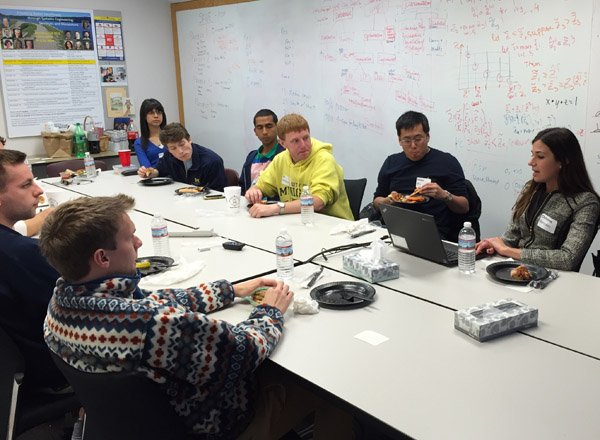 |
October 15, 2015:On Friday October 15th CHEPS was delighted to host Christine Gonzalez for a lunch & learn catered by Pizza House in Ann Arbor. Ms. Gonzalez is a 2014 alumna of the Industrial & Operations Engineering department and she now works as an analyst for Huron Consulting Group in their Healthcare Division.
In this talk, Ms. Gonzalez discussed how her time in IOE and working at CHEPS prepared her for a career in healthcare consulting. Christine answered questions, dispelled some of the rumors, and revealed the facts about the consulting lifestyle. She shared examples of current and past job project experiences, providing insight into what it is like to work for a consulting firm. We thank Ms. Gonzalez for joining us for lunch and sharing with us her insights and experiences. |
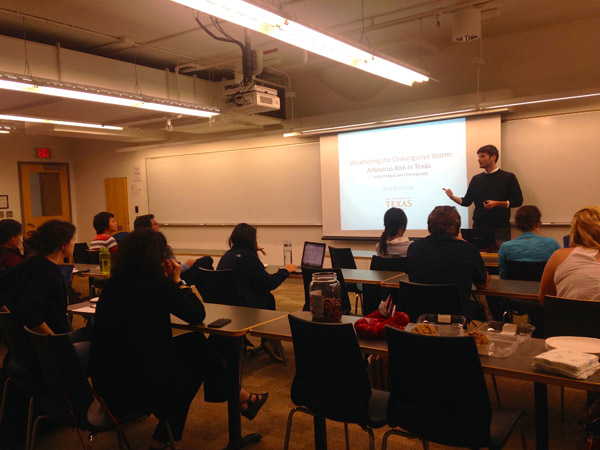 |
October 12, 2015:Nedialko Dimitrov was the fourth featured speaker at the October 12th seminar of the “Providing Better Healthcare through Systems Engineering” series presented by the Center for Healthcare Engineering and Patient Safety (CHEPS). Attendees came from the Department of Industrial and Operations Engineering, the University of Michigan Health System, the HEPS master’s program, and CHEPS.
Dr. Dimitrov is an Assistant Professor in the Graduate Program in Operations Research & Industrial Engineering at the University of Texas at Austin. He received a PhD in Theoretical Computer Science from the University of Texas at Austin and B.S. degrees in Mathematics and Computer Science from the University of Michigan, Ann Arbor. His research focus is on optimization, with applications in infectious disease control and national security. Dr. Dimitrov’s seminar, titled “Weathering the Chikungunya Storm: Arbovirus Risk in Texas”, discussed Chikungunya, a mosquito-borne viral disease, and how systems engineering tools can be utilized for risk management and forecasting. This disease is primarily contracted in Central and South America, however cases also appear in Texas. His talk focused on solving two main questions: 1. Where do the mosquitoes live in Texas? 2. What are the risk zones in Texas? Dr. Dimitrov’s approach to answer these questions uses a combination of data-driven models and optimization, which consider variables such as temperature, precipitation levels, type of environment, and topographic data. Dr. Dimitrov explained that future work related to this project includes quantifying uncertainty and coming up with methods to collect higher volumes of data. He also discussed the collaboration between his team of Operations Research folks and the Department of Health Services. He stressed the importance of having subject matter experts from Health Services validate the models his team creates. Dr. Dimitrov concluded the talk by stating, “Common sense tells you the earth is flat,” meaning that although common sense is useful, you can not fully rely on it when creating extensive mathematical models. There will be no talk next week due to Fall Break. Join us in two weeks for the fifth talk of the year titled “Learning Treatment Policies in Mobile Health” presented by Susan Murphy, PhD U-M, Statistics, Psychiatry, ISR. |
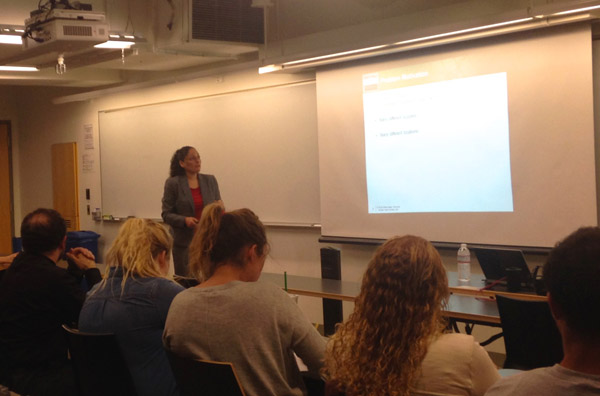 |
October 5, 2015:Claudia R. Rosales was the third featured speaker in the “Providing Better Healthcare through Systems Engineering” series presented by the Center for Healthcare Engineering and Patient Safety (CHEPS). Attendees came from the Department of Industrial and Operations Engineering, the University of Michigan Health System, the HEPS master’s program, and CHEPS.
Dr. Rosales is an assistant professor of supply chain management in the Eli Broad College of Business at Michigan State University. She has a BS in chemical and industrial engineering, an MS in quantitative analysis, and a PhD in operations management. Her current healthcare research includes optimization of medical supplies inventory at the point-of-use, analyzing the impact of new technologies in the healthcare supply chain, and forecasting of hospital spending, among others. Dr. Rosales’s seminar, titled “Hospital Inventory Management – New Trends in Healthcare,” discussed the challenges of supplies management and two different approaches used to track inventory that address some of these challenges. The first option is using Automated Dispensing Machines, or ADMs, which are computerized cabinets that help track cost by patient and allow for full inventory visibility. The second option discussed was the Two-Bin System, where items are stored in a primary and a secondary bin. This option eliminated the need for manual counting and utilized an RFID tag system that would notify the system when a bin needed to be replenished. Dr. Rosales explained various systems engineering techniques that were incorporated into her research such as simulation, stochastic modeling, and optimization. A discussion following the talk included a conversation about the tradeoffs of the two different systems. Attendees discussed other ideas for supply management including the use of bar codes to track inventory. Dr. Rosales acknowledged that this is a very complex problem and that “sometimes the optimal solution may not be the most practical solution.” Dr. Rosales shared and discussed her article, “Point-of-Use Hybrid Inventory Policy for Hospital,” with attendees at the seminar. Join us next week for the fourth talk of the year titled “Weathering the Chikungunya Storm: Arbovirus in Texas” presented by Nedialko B. Dimitrov, PhD, University of Texas-Austin. |
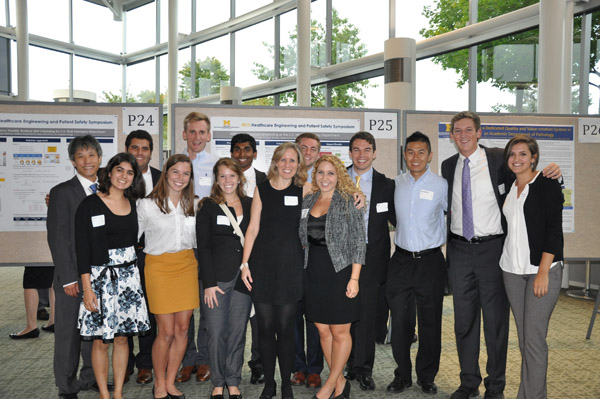 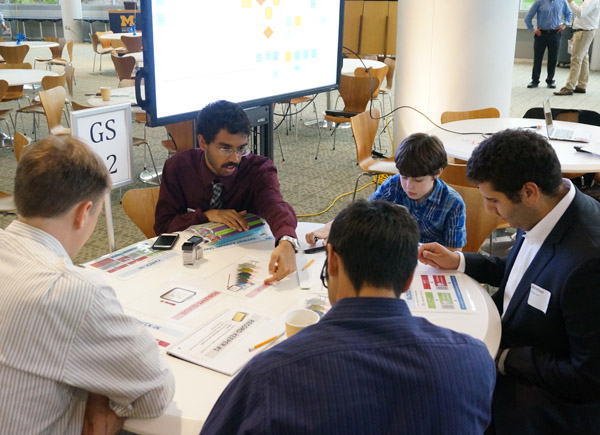 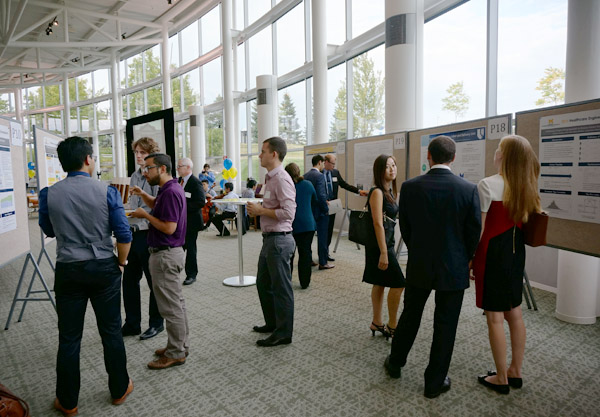 |
September 28, 2015:On September 28th, 2015 CHEPS hosted its Third Annual Symposium on Healthcare Engineering & Patient Safety. Approximately 150 attendees came from a variety of University of Michigan units including Engineering, the School of Public Health, the Health System, the Medical School, the School of Nursing, and the Institute for Healthcare Policy and Innovation. Several, including returning alumni, also attended from outside the university.
“The CHEPS Symposium gets bigger and better every year! I really enjoyed presenting and getting feedback from alumni and previous collaborators that were part of the project I’m currently working on,” said HEPS master’s student Pamela Martinez Villarreal. Those in attendance had the opportunity to view over 35 posters which highlighted research projects and various healthcare engineering related units throughout the university. Attendees could also participate in five games and simulations which helped them gain a better understanding of specific healthcare problems and solutions. Ajaay Chandrasekaran, a CSE undergraduate student, led attendees through a phlebotomy table top simulation. “The Phlebotomy Tabletop Game encouraged symposium attendees to consider policy changes that could increase patient throughput and reduce patient waiting times at a phlebotomy clinic. It attempts to emulate issues encountered by staff at the UM Comprehensive Cancer Center phlebotomy clinic which result from high patient inflow,” he explained. There were ample opportunities for attendees to share ideas. IOE PhD student Kayse Maas said, “The CHEPS Symposium is unique in that it draws a cross-disciplinary audience of students, academicians, healthcare providers, and industry professionals. It is great to have so many people from varied backgrounds discuss how we can work together to enhance healthcare in today’s world.” In addition to speaking with attendees throughout the event, those manning posters, games, and simulations each also gave a mini-presentation. These presentations were filmed and will be available on our website soon. The winner of the symposium’s audience choice best poster competition was “Innovations in Surgical Instrument Reprocessing Methods for Improved Patient Safety and Financial Stewardship at UMHS” presented by Rama Mwenesi and detailing research by Rama Mwenesi, Nina Scheinberg, Amy Cohn, James P. Bagian, Joseph DeRosier, Mark Grum, and Shawn Murphy. Rama says a visitor to his poster commented that, “the fact that your research solutions have been implemented really sets your project apart and shows great promise.” The prize for best poster was a conference travel grant. Other prizes presented were a raffle prize for simulation participation which went to David Hutton and best tweet which went to Brian Lemay and Hassan Abbas for the tweet below.
More tweets from the event can be viewed at the #chepssymposium hashtag. Below are additional thoughts from students who attended and presented at the event. “The annual CHEPS symposium was the first event that I’ve attended with CHEPS as a presenter, and I really enjoyed being able to see everyone’s hard work as well as get the opportunity to talk with others about how I’ve spent my time with CHEPS.” “Presenting at the symposium was a great experience. All of the attendees were attentive and asked great questions. It really gave me a new appreciation for my work!” “Participating in CHEPS symposium was a very enriching experience. The friendly atmosphere helped me to communicate my work efficiently to the attendees from different professional levels. The opportunity to see the work of other participants which tackled issues in health and occupational safety from different angles was the greatest.” [View videos from the symposium] |
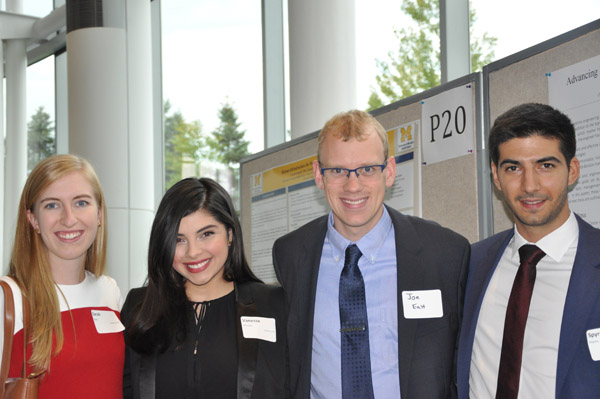 |
September 28, 2015:Vanessa Morales, who graduated from the HEPS master’s concentration in 2014, wrote about her recent return to Ann Arbor for the Symposium on Healthcare Engineering and Patient Safety weekend. Her take on the weekend is below. Thanks, Vanessa!
Four of us HEPS master’s alums flew back for symposium weekend: Spyros Potiris who is at Dana-Farber, Sarah Bach at Mayo Clinic, Joe East at Maine Medical Center, and myself at Duke Health. There was no hesitation deciding if we would come for that weekend. Sarah said it best: “To me, that’s like asking whether you’re going home for Thanksgiving.” Our time spent at CHEPS working on our graduate degrees was phenomenal. While it was academically challenging, we got to participate in exciting healthcare projects and made lifelong friends in the process. So an opportunity to come back to Ann Arbor, to see our CHEPS family, and to go to a game at the Big House, was something we would never pass up. The reunion dinner at Conor O’Neills was the perfect start to the weekend. Our old friends greeted us with much enthusiasm. It was wonderful to be surrounded by a sea of familiar faces as well as new talent. The conversations were contagious, smart, warm, and welcoming. The alumni, current students, and a sprinkle of faculty joined and made it a memorable evening. I took a step back and observed the diversity of the group and the conversations and felt so lucky to be part of the group, to be back home. From a professional standpoint, CHEPS was an incredible experience that is serving us well as we start our careers. According to Sarah, “having this network of likeminded individuals who are doing similar work in hospitals across the country is an invaluable resource.” Spyros, Joe, Sarah and I all share our experiences in industry and compare and contrast our roles in our respective organizations. Many healthcare organizations face similar problems so we enjoy learning the techniques used by our colleagues at their institutions as many could be applicable to our work1. The Symposium on Healthcare Engineering & Patient Safety is the perfect venue for us to get a fresh perspective on the projects and initiatives going on in other leading healthcare organizations and at CHEPS. I’m always humbled by the brilliant minds at CHEPS and all the hard work they put into their research. Coming back after a year, it’s most interesting to see how established projects have developed and grown! The Symposium is also the best venue for us as alumni to share with the group what is relevant in the industry and how we can best support the current students as they seek jobs after graduation. While we get deeply engrossed with conversations about our jobs and the hospital world, it isn’t just about that for us. We respect and value each other professionally, but most importantly, personally2. At the end of the day, we are friends, we trust each other and care about each other no matter how much time has passed. This gem of a quote from Sarah captures the CHEPS dynamic best: “During my time at University of Michigan I was a part of many groups and student organizations and can honestly say that the bonds I formed with my CHEPS friends are some of the strongest. I think the fact that we call ourselves family is a huge testament to the community and environment Amy has built at CHEPS. All of the CHEPS students I’ve worked with are extremely hard working, gifted, and intelligent people who are truly passionate about the work they are doing.” The weekend was remarkably fun. We rounded up the whole CHEPS family for an array of social activities and had an incredible time. Our bond with CHEPS is truly special and differentiates us from any other program at the University. Thank you to Amy and everyone else for making it such a memorable event for us. CHEPS means family and it forever will. -Vanessa Morales MSE Thank you 1: Sarah Bach and 2: Joe East for your contributions. [View videos from the symposium] |
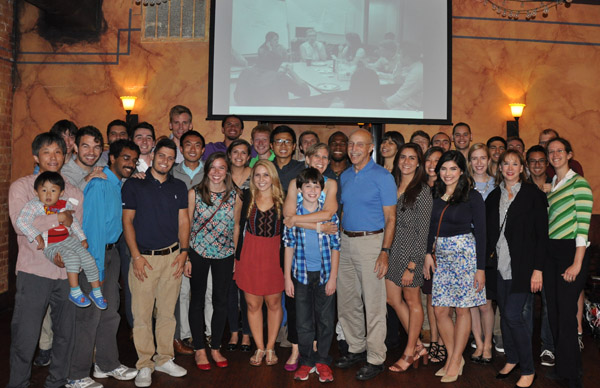 |
September 25, 2015:Members of the CHEPS community gathered at Conor O’Neill’s on Friday, September 25, to ring in the new semester. The group included CHEPS undergraduate and graduate students, faculty members, returning CHEPS alumni, and other CHEPS associates. Merrill Bonder, Executive Director of The Seth Bonder Foundation; CHEPS Director Jim Bagian; CHEPS Associate Director Amy Cohn; Professor Mariel Lavieri; and Professor Larry Seiford were all in attendance.
The reunion was part of a series of events centered around the 3rd Annual Symposium on Healthcare Engineering & Patient Safety which took place the following Monday, September 28th. It was an excellent opportunity for our newest CHEPSters to meet current researchers and associated faculty as well as graduates of the HEPS program. Guests enjoyed delicious food and terrific conversation throughout the night. The entire CHEPS community would like to extend a huge thank you to both Gene Kim and Merrill Bonder for their generous contributions to the occasion! |
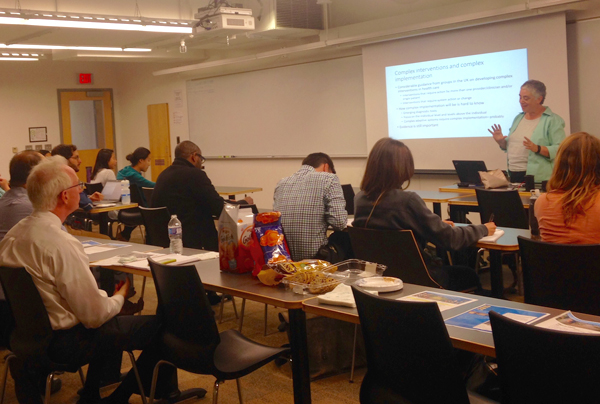 |
September 21, 2015:On September 21st, Anne Sales was the second featured speaker in the “Providing Better Healthcare through Systems Engineering” series presented by the Center for Healthcare Engineering and Patient Safety (CHEPS). Attendees came from the Department of Industrial and Operations Engineering, the University of Michigan Health System, the HEPS master’s program, and CHEPS.
Dr. Sales is a Professor in the Department of Learning Health Sciences, School of Medicine, University of Michigan, and Research Scientist at the Center for Clinical Management Research at the VA Ann Arbor Healthcare System. Her training is in sociology, health economics, econometrics, and general health services research. Her current work involves understanding the way feedback reports affect provider behavior and the role of social networks in uptake of knowledge transition interventions. Dr. Sales’s seminar, titled “Lessons from Implementation Science—Applications to Safety and Quality in Health Care,” began with defining implementation science, which she recognized has many definitions as it is an emerging research field. Dr. Sales defined the main role of implementation researchers as intervening to implement new practices and employ behavior change techniques. She stated that, “Today, the work that has to be done is a combination of the actions of many people.” Dr. Sales acknowledged that there are over one hundred frameworks in both implementation and dissemination methods, one having been discovered by her colleagues at the VAAAHS. A discussion following the talk included conversation of how systems engineering techniques can be incorporated into implementation science, such as process mapping and simulation. It was noted by one of the attendees that, “There is an opportunity to merge some important streams of research.” Dr. Sales agreed that implementation science should be multidisciplinary and that the field is currently full of a group of eclectic and intelligent people. Join us next week at the 3rd Annual Symposium on Healthcare Engineering and Patient Safety from 5:00-7:30 at NCRC Dining Hall, Building 18, 2800 Plymouth Road. |
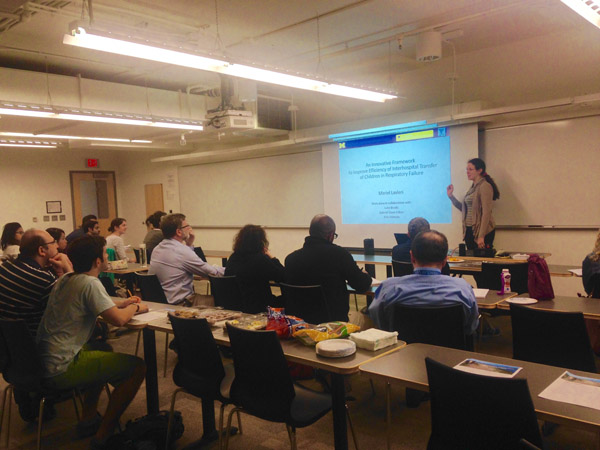 |
September 14, 2015:Mariel Lavieri was the featured speaker at the September 14th seminar of the “Providing Better Healthcare through Systems Engineering” series presented by the Center for Healthcare Engineering and Patient Safety (CHEPS). Attendees came from the Department of Industrial and Operations Engineering, the University of Michigan Health System, the HEPS master’s program, and CHEPS.
Dr. Lavieri is an Assistant Professor in the Department of Industrial and Operations Engineering at the University of Michigan. She has bachelor’s degrees in Industrial and Systems Engineering and Statistics and a minor in String Bass Performance from the University of Florida. She holds a Masters and PhD in Management Science from the University of British Columbia. In her work, she applies operations research to healthcare topics. Her research develops models to guide screening, monitoring, and treatment decisions of chronic disease patients, as well as models for health workforce planning. Dr. Lavieri’s seminar, titled “An Innovative Framework to Improve Efficiency of Interhospital Transfer of Children in Respiratory Failure,” focused on how the decision of whether a patient should be transferred from a from one ICU to another could be determined using a systematic framework. She discussed the formation of the project, which focused around two questions: 1. What is the problem? 2. What is the impact? The talk continued with input from one of Dr. Lavieri’s collaborators, Fola Odetola, M.D., regarding the complexity of pinpointing the objective of this model from his perspective. Gabriel Zayas-Caban, Postdoctoral Research Assistant at CHEPS, and Luke Bruski, MSE in Industrial and Operations Engineering, also made profound contributions to this research project. Dr. Lavieri fostered an interactive discussion with the attendees regarding specific examples of the tradeoffs of transferring a patient. Responses included specialized physicians and equipment being potential benefits of a transfer, and risk of transportation and cost as some of the potential issues. Her seminar also drove great conversation between health care professionals and students encompassing the project scope, limitations, and possible future applications. Join us next week for the second talk of the year titled “Lessons from Implemental Science—Applications to Safety and Quality in Health Care” presented by Anne Sales, PhD, RN, U-M, School of Nursing. |
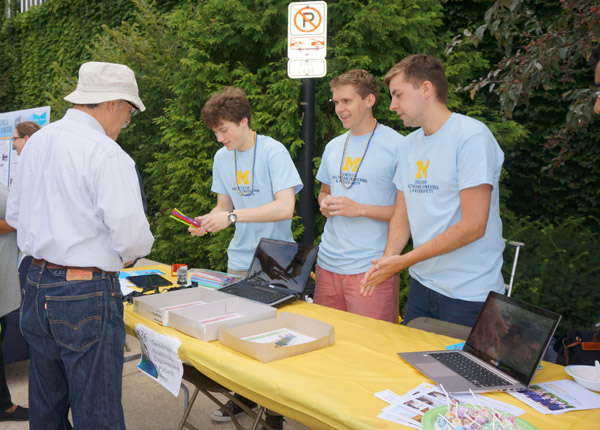 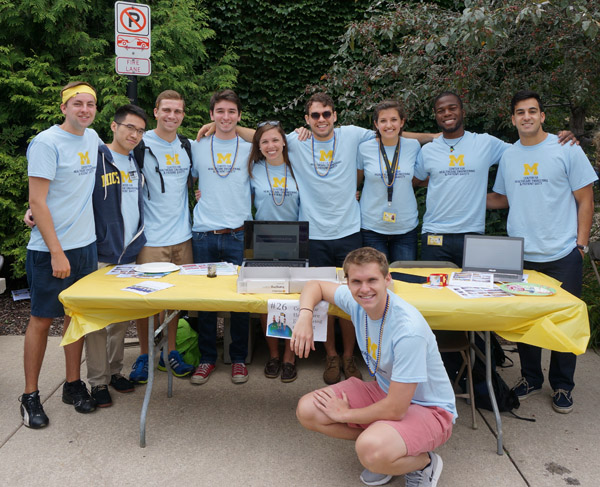 |
August 20, 2015:CHEPS students participated in Researchpalooza on Thursday, August 20th 2015. The students shared information about the Center for Healthcare Engineering & Patient Safety and demonstrated some of the interactive tools they worked on this summer including a pediatric emergency department scheduling game, a patient flow app, and a phlebotomy workforce planning simulation.
They enjoyed both interacting with visitors to their table and seeing what other organizations were displaying at their tables. It was an excellent opportunity to explore the breadth of research happening at the university and make new connections. Researchpalooza is hosted by the UMMS Office of Research in conjunction with the annual Health System Ice Cream Social. Over 80 offices and labs participated in the event which saw over 3,000 attendees this year. |
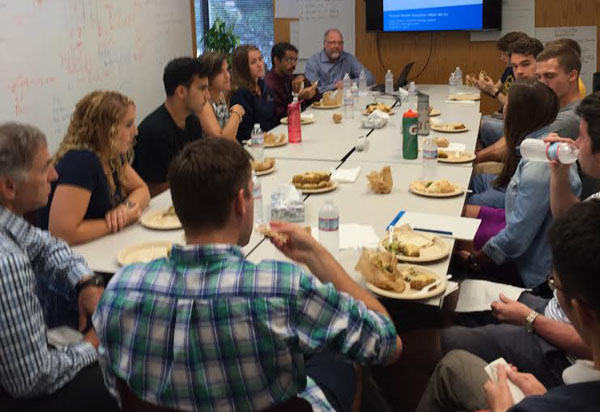 |
August 17, 2015:On August 17, 2015, the Center of Healthcare Engineering and Patient Safety hosted a Lunch and Learn session where professionals from Truven Health Analytics discussed their services and operations.
The primary speaker was Larry Yuhasz, a Senior Director of Business Development in the Provider Business Operations unit. With more than 25 years of combined experience with Truven Health, WebMD, and Thomson Reuters Healthcare, he was able to provide a comprehensive overview of healthcare information and data analytics. Some of Mr. Yuhasz’s publications can be found here. The second guest at the event was Jeffrey Olin, a Director of Product Development with extensive computer science experience. Mr. Olin was able to provide a great outline of Truven Health’s data collection and analytics methods. Mr. Yuhasz began the discussion by explaining how healthcare engineering and optimization will be critical in solving the “tsunami problems of the future.” As health systems grow through mergers and acquisitions in the future, Mr. Yuhasz predicts they’ll become substantially larger and fewer in number. As a result, having organized and aggregated data from each entity will become more important yet more difficult to collect. By collecting data, cleansing it, and then providing recommendations to their clients, Truven Health is able to provide superior healthcare information services to its clients. Specifically, Mr. Olin gave a great overview of their operational process which includes the following cyclical steps: 1) organize/analyze data, 2) create/improve solutions, 3) deliver results, and 4) measure change. Through this process, Truven Health’s vision is “to improve the quality and lower the cost of healthcare through the better use of data and analytics.” In summary, we gained valuable insight on how engineering and big data concepts can be applied to the healthcare industry. At the same time, Mr. Yuhasz also reminded us of the humanity of this industry: “This differs from building an engine block in Detroit. It’s a living system which breaths, eats, socializes, [etc…].” Both also shared information about career opportunities at Truven. Thank you to both of our guests! |
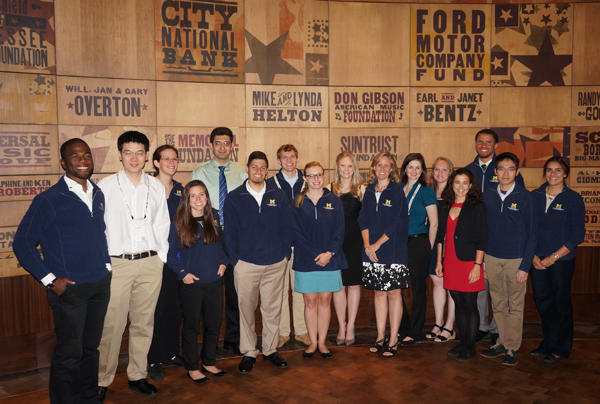 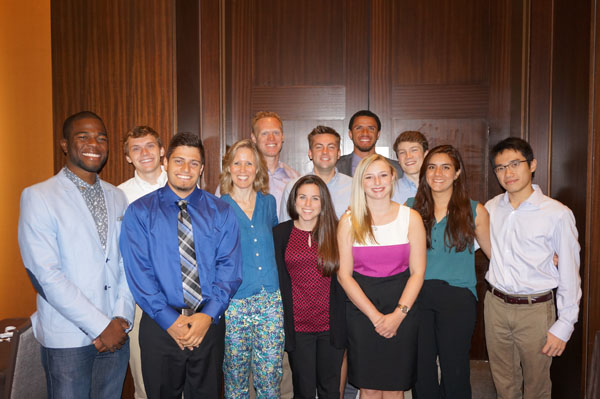 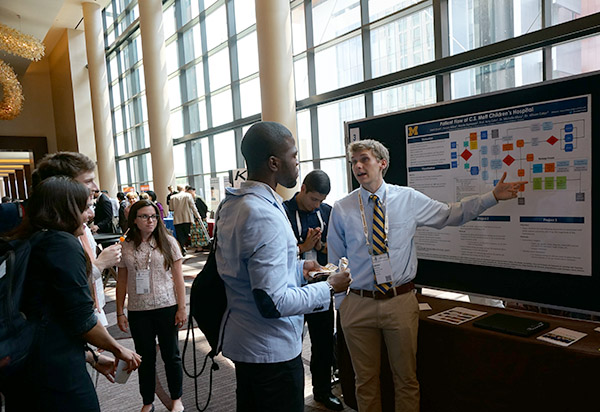 |
July 31, 2015:
A large contingent from The Center for Healthcare Engineering and Patient Safety (CHEPS) attended the 2015 INFORMS Healthcare Conference in Nashville, Tennessee from July 29th to July 31st. On the trip were Hassan Abbas, Andrea Bouwhuis, Moses Chan, Amy Cohn, Mark Grum, Brian Lemay, Pamela Martinez Villarreal, Rama Mwenesi, Billy Pozehl, Donald Richardson, Matt Rouhana, and Brooke Szymanski. Several of the students presented talks or posters at the event, many in a session titled “Student Research Projects in Healthcare Operations” chaired by CHEPS Associate Director Amy Cohn. Many students took advantage of field trips offered the day prior to the conference to the Vanderbilt Children’s Hospital, the Vanderbilt Surgical Case Cart Prep Center, and Aegis Science Corp. Once the conference began on Wednesday, they were eager to start presenting and attending sessions. “We conduct year-long research projects and, to be able to have the opportunity come and present and showcase what we’ve done so far and actually show the progression in terms of our work, that was a pretty exciting opportunity to have that platform. And not just to present, but also to gain feedback in terms of where we should be looking to go based on the insights from members of the audience,” said Rama Mwenesi. There were ample opportunities to collaborate. “It was interesting seeing the contrasting views of the healthcare professional and the engineer. I mean we see this all the time when we’re working at CHEPS and just going to the hospital and getting the different perspectives but to see that at a much larger scale at the conference where you’re not just having a physician at the hospital you’re collaborating with but a hospital maybe across the country…. It’s just a large scale collaboration of all these doctors and engineers coming together at the conference,” said Donald Richardson. Hassan Abbas realized many of the attendees at the conference were surprised and impressed by the level of collaboration already happening at The University of Michigan because of CHEPS. He said of the poster session, “We had a lot of people come up and talk to us… they’re really surprised to hear that I’m a nursing student and Brooke’s a nursing graduate and Andrea is a med student. And they’re surprised to hear how closely we’re working with everybody at CHEPS.” The CHEPS group was pleased to be able to share their experience while learning from others. “It’s been incredible to see the different projects that everyone is working on and all the different facets of how people are coming at very similar problems,” observed Andrea Bouwhuis. Busy conference days didn’t stop anyone from checking out the Nashville nightlife once presentations were done for the day. Outings included a dinner with CHEPS collaborators Professors Harriet Nembhard and Julie Ivy as well as trips to enjoy live music at both Tin Roof and The Bluebird. Mark Grum said of the city, “The atmosphere and the people around here are extremely exciting. Broadway Street is filled with a bunch of up and coming artists and you walk down the street and you can hear a bunch of different musicians playing and it’s a very lively city and it’s really exciting to be here.” The trip may have even garnered a certain music genre a few more fans. “I’m starting to like country music now,” said Pamela Martinez Villarreal. “I’m not a country music fan but I think Nashville might have converted me,” agreed Hassan Abbas. Links to the talks and posters presented by CHEPS students at the conference are below. Presentations
Poster
|
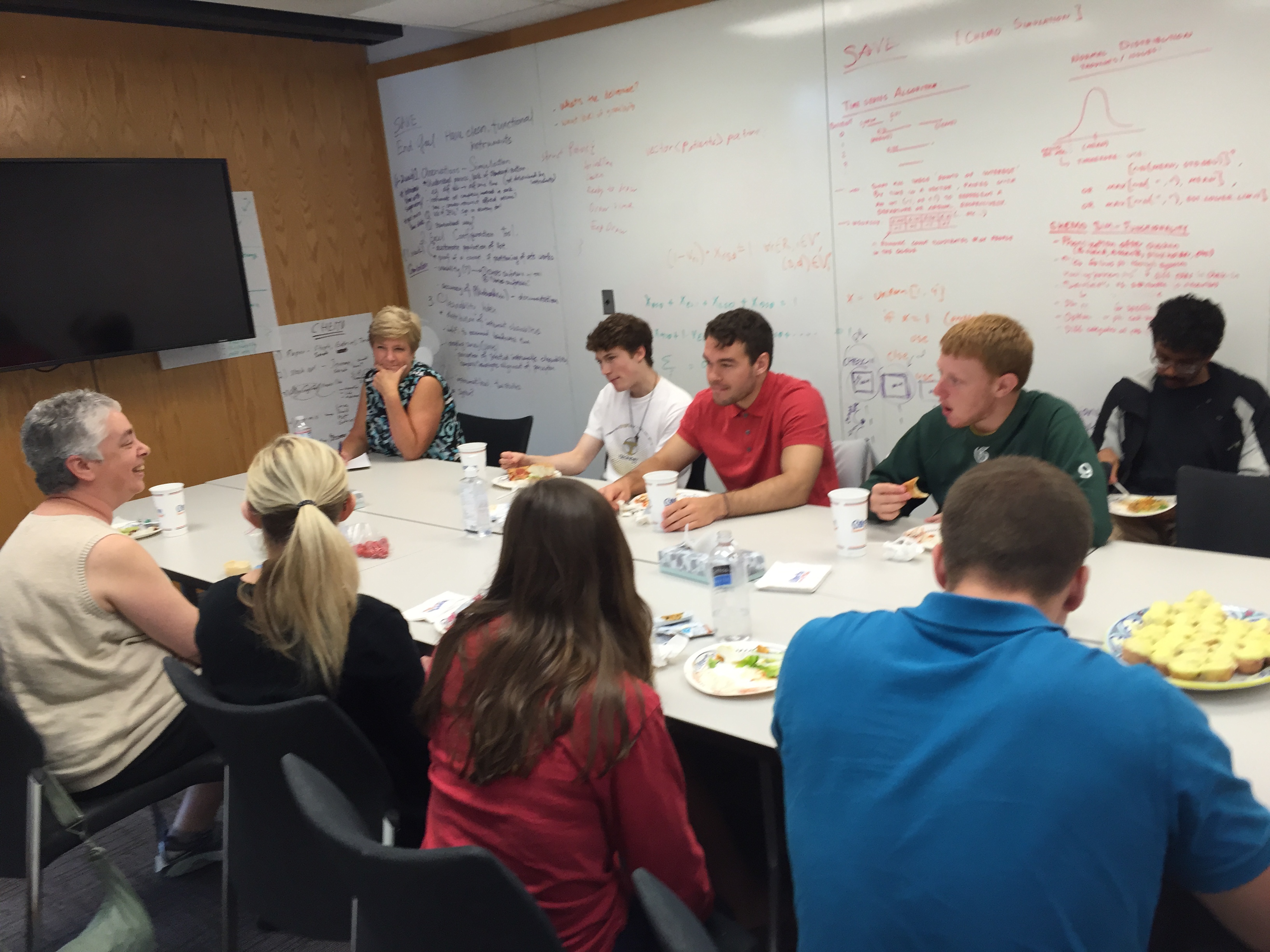 |
June 26, 2015:On Friday, June 26, 2015, The Center for Healthcare Engineering and Patient Safety featured University of Michigan School of Nursing Professor Anne E. Sales and Associate Professor Patricia Abbott for a Lunch and Learn discussion regarding their unique perspectives on healthcare engineering and patient safety.
Professor Sales has worked in health services research for the U.S. Department of Veterans Affairs for nearly 20 years. The VA staffs the largest number of health systems engineers and nurse practitioners in what is the largest integrated healthcare system in the United States. Her work focuses primarily on implementation research and bringing evidence-based practice into clinical settings, and in particular, how providers take up new evidence and whether they implement new discoveries in their services. Professor Sales shed some light on the future of nursing homes in her discussion of a new initiative with the Center for Healthcare Ethics that aims to improve the documentation of patient preferences. Automated feedback makes it is possible to measure the degree to which documentation is being implemented and the significance that it has on patient care by examining how these mechanisms produce behavior change. One future aim is to use informatics as tools to automate and tailor messages to individuals so that feedback is obtained in a more effective manner. Associate Professor Abbott is addressing questions related to human systems engineering and in exploring new approaches to big data analytics. Specifically, she is interested in making data more meaningful by designing it according to situational awareness and in ways that are easy to synthesize. Using visualization techniques and computer science, her current work involves the customization and presentation of data in ways that would be most likely to influence behavior. As part of a new initiative, the VA offers a virtual reality system that allows students and health professionals to examine data and simulate emergency simulations without any potential risk to real patients. Virtual reality can be widely used to examine the system wide effect of changing multiple variables without actually harming a real system. These types of simulations are highly applicable in the healthcare field, especially in patient safety, but can also be applied to many other large and similarly complex systems. We thank our guests for a fascinating and insightful perspective into systems engineering! |
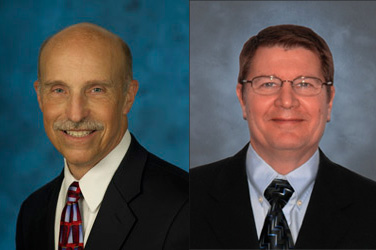 |
June 16, 2015:Center for Healthcare Engineering and Patient Safety (CHEPS) Director Dr. James P. Bagian and CHEPS Program Manager Joe DeRosier served on the panel which produced a new report titled “RCA2: Improving Root Cause Analyses and Actions to Prevent Harm.” The National Patient Safety Foundation (NPSF) panel released the report on June 16, 2015; it contains guidelines developed to help healthcare organizations improve the way they identify and investigate adverse events, and close calls and then implement actions to mitigate or eliminate the identified risks. Dr. Bagian co-chaired the panel and DeRosier served as a principal writer of the report.
Root cause analysis (RCA) is a process widely used by health professionals to learn how and why errors occurred. “Human error is not a true root cause,” says Dr. Bagian. For example, in an instance where a patient is given the wrong medication, the true root cause may be two bottles which look similar and are easily confused. Writing the incident off to human error would likely lead to repeat errors and patient harm. “Telling people to be careful isn’t an effective solution. Actions need to be taken that sustainably mitigate or eliminate the risk of patient harm,” explains Dr. Bagian. The panel renamed the RCA process RCA2 with the second A meaning action. In the above example, an action might be changing the packaging for one medication or adding barcodes to the bottles so the medications would not be so easily confused. “Unless real actions are taken to improve things, the RCA effort is essentially a waste of everyone’s time,” says Dr. Bagian. “A big goal of this project is to help RCA teams learn to identify and implement sustainable, systems-based actions to improve the safety of care.” RCA is commonly conducted after harm occurs. The NPSF guidelines emphasize the need to prioritize hazards based on the risk they pose, even if harm has not occurred. Close calls can provide a valuable opportunity to learn and implement corrective action before a patient is harmed. Prioritizing hazards according to risk is consistent with the practice of other high-reliability industries, such as aviation and nuclear power. NPSF has been a central voice for patient safety since 1997. “RCA2: Improving Root Cause Analyses and Actions to Prevent Harm” has been endorsed by a number of related organizations and is being widely distributed to hospitals, health systems, and other settings. Co-chairs of the panel that created the report, James Bagian, MD, PE, and Doug Bonacum, CSP, CPPS, will discuss the report in a webcast on Wednesday, July 15, 2015, at 1:00 pm Eastern Time. The webcast, provided by NPSF, is complimentary thanks to the support of The Doctors Company Foundation. Dr. Bagian is quoted in a Modern Healthcare article about the new report. |
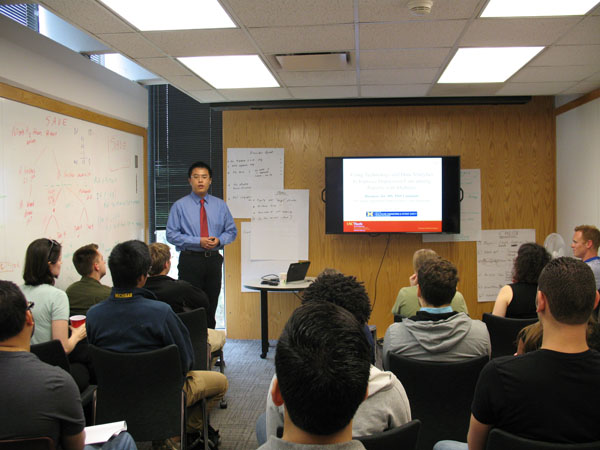 |
June 11, 2015:Haomiao Jin delivered a talk titled “Using Technology and Data Analytics to Improve Depression Care Among Patients With Diabetes” to a full house in the CHEPS conference room on June 11, 2015. Attendees came from CHEPS and areas including the College of Engineering, the University of Michigan Health System, and the School of Social Work.
Approximately 30% of patients with diabetes are suffering from depression; however about 45% of those with depression are undiagnosed and thus untreated. Haomiao, a PhD candidate in Industrial & Systems Engineering at the University of Southern California (USC), addressed how the presence of depression among patients with diabetes often leads to worse health outcomes, increased healthcare utilizations and elevated suicide risk. Although prior evidence and the 2008 Mental Health Parity Act have supported providing mental care for patients with chronic illnesses such as diabetes, significant barriers exist to impede the integration of mental care in the primary care settings, especially in safety-net systems. The Diabetes-Depression Care-management Adoption Trial (DCAT) tested an innovative solution of automated telephonic depression screening and monitoring technology integrated with patient registry and prompting systems to facilitate the adoption of evidence-based depression care for patients with diabetes. The comparative effectiveness trial included 1406 patients from 8 safety-net clinics in 3 quasi-experimental study groups: the usual care arm, the collaborative care arm, and the technology-facilitated care arm. Haomiao described a propensity score method that enabled the comparison among the three study groups. Using the wealth of data collected in DCAT, he described the development of a generalized multilevel regression prediction model to predict depression episodes and severity. Expanding to include another safety-net diabetes and depression trial, the prediction model was applied to analyze several depression screening policies. The series of analyses established a prediction model-based screening approach that has the potential to improve efficiency in managing patient population with depression and better prioritize the use of provider resources and time to deliver effective care for high-risk patients. The studies presented in the talk received the Honorable Mention Awards for two consecutive years (2014 & 2015) in the Annual Student Research Paper Contest of the Centers for Disease Control and Prevention’s Preventing Chronic Disease journal. More information about Haomiao Jin is available in his biosketch and at his Research Gate page. |
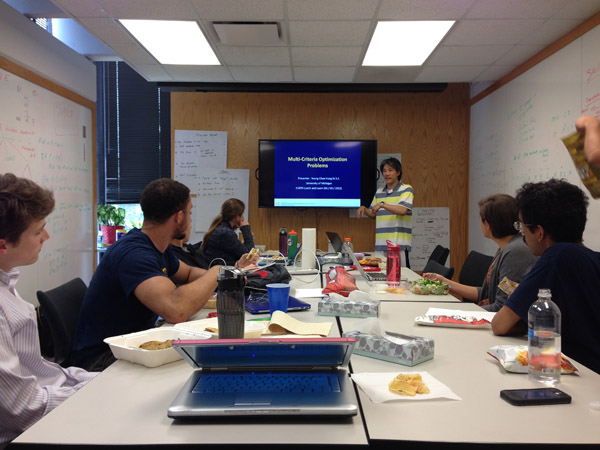 |
June 9, 2015:IOE PhD student, Young-Chae Hong, was the fifth featured speaker in the PhD Lunch and Learn series presented by the Center for Healthcare Engineering and Patient Safety (CHEPS). This series provides PhD students the opportunity to present their healthcare work-in-progress to fellow PhD students and interested faculty and clinicians for feedback and discussion.
Young-Chae’s June 9th presentation, titled “Multi-Criteria Optimization Problems,” walked attendees through the process of an optimization problem as it applied to real-world medical scheduling issues. Attendees at the Lunch and Learn got a taste of the research and challenges that Young-Chae has been working on, including adequately weighing physician’s abstract preferences in terms of real numbers in order to supply them with a desirable schedule for all physicians. These preferences may be according to sleep schedules, undesirable shifts, or balancing safe patient care with learning experiences. Explanation of Pareto-optimal solutions for this problem sparked many questions and conversations with participants while learning about methods of solving the scheduling problem in a way that satisfied the most people and constraints. If you are interested in receiving information about upcoming events or would like to present your current research, contact Gene Kim ([email protected]). We are looking forward to more great sessions and discussions! |
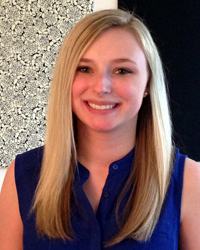 |
June 4, 2015:CHEPS student, Brooke Szymanski has passed her NCLEX. Congratulations, Brooke!
Brooke graduated from the University of Michigan School of Nursing with a BSN in Winter 2015. Now that she’s passed the NCLEX, she’s been issued her RN license by the state of Michigan and is ready to begin practice as a nurse. Brooke is currently interviewing for jobs and hopes to one day work in pediatrics. Eventually, she’d also like to return to school and obtain a master’s in nursing in order to work as a nurse practitioner. Brooke says that there’s a side of healthcare she would not have been exposed to if not for her work with CHEPS. She explained, “Nursing is focused on the direct patient care and I had never previously considered all of the other disciplines that contribute to a hospital or medical practice running smoothly. By working at CHEPS, I also got to observe in areas of the hospital that I would not have had the opportunity to otherwise, such as the Mott ED and Dr. Reddy’s clinic.” |
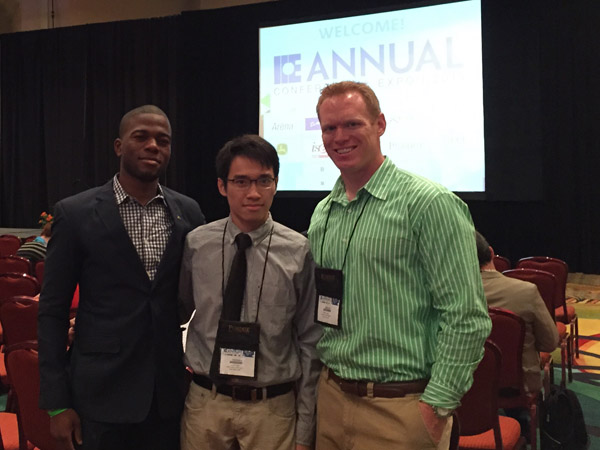 |
June 2, 2015:Moses Chan, Young-Chae Hong, Brian Lemay, and Rama Mwenesi of CHEPS along with Industrial and Operations Engineering student Kayse Maass traveled to Nashville, Tennessee from May 30th through June 2nd to present their work at the Institute of Industrial Engineers (IIE) Annual Conference and Expo. They presented on the following topics:
During the remainder of the conference, students networked with students, professors, and professionals from industry while attending presentations covering a wide-variety of topics. They were also treated to inspiring presentations by the conference’s keynote speakers, including Professor Mark Daskin, Department Chair of the University of Michigan’s Department of Industrial and Operations Engineering. During the evenings, the students had a chance to explore Music City, home of the Grand Ole Opry and Country Music Hall of Fame, and take in some of the unique sights, sounds, and tastes that the city has to offer. Overall, it was a very successful and enjoyable learning experience. |
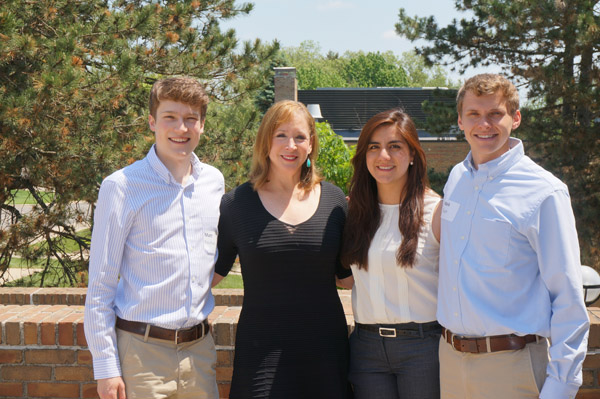 |
May 28, 2015:On Thursday, May 28th Merrill Bonder, Executive Director of The Seth Bonder Foundation, visited The Center for Healthcare Engineering and Patient Safety (CHEPS) and shared a lunch with the CHEPS students, many of whom receive funding from The Bonder Foundation. Additional attendees at the luncheon included Bonder Fellowship recipients from the Industrial and Operations Engineering Department, Associate Dean for Academic Affairs Alec Gallimore, CHEPS Director James Bagian, CHEPS Associate Director Amy Cohn, and IOE faculty including Department Chair Mark Daskin and Professor Larry Seiford.
Merrill says The Bonder Foundation could not be more pleased with the direction of CHEPS. She elaborated that the purpose of the foundation is to support Seth Bonder’s legacy and what he believed in “This program fits that so perfectly. Seth had a working relationship with Amy [Cohn] and he was impressed with her work then. That only carries forward,” Merrill said. Merrill sees CHEPS students frequently during visits to Ann Arbor as well as at a variety of conferences. At the luncheon, the students presented her with a photo album filled with pictures from their meet-ups. Merrill explained that the connection with students is a large part of what makes her work as head of The Bonder Foundation so rewarding saying, “The bonus for me is that I’ve met so many well-deserving and very bright students and I get to become a small part of their lives too…. It’s a blessing for me. I love what I do and that I’m carrying on what Seth wanted to do…. It’s just as rewarding for me as someone who receives the grant.” Here’s what some of the students and alumni in attendance had to say about the luncheon: “Merrill Bonder has supported CHEPS to make great strides in improving healthcare. But, during the luncheon, I was reminded about how she is genuinely interested in our work and believes that what we are doing makes a difference.” – Mark Grum, HEPS Master’s Student “I thought that the luncheon with Merrill Bonder was a wonderful event to reconnect with Mrs. Bonder and be able to keep her updated on our research. Her support of CHEPS and all the work that we do is greatly appreciated and I think it is important for her to be able to meet us students so we can express our gratitude in person.” – Nathan Janes, IOE Master’s Student “It’s always nice to see Mrs. Bonder! The luncheon was a great opportunity to express to her our gratitude for all the continued support The Bonder Foundation has given us.” – Pamela Martinez Villarreal, HEPS Master’s “It’s always so wonderful to have Merrill visit. We had great conversation and great food amongst great company. With every story that Merrill shares, I feel like I get a better sense of the man Seth was and feel so grateful that his dreams are able to live on in part through the work that we do at CHEPS.” – Billy Pozehl, CHEPS Research Assistant and 2014 HEPS Master’s Graduate “Without the gracious support of Merrill and The Bonder Foundation, I would not be able to be in the HEPS Master’s program here at Michigan. I’m so glad I got to speak with Merrill at the luncheon, hear stories about Seth and his work, and see how much great work we’ve been able to do here at CHEPS with her support.” – Matthew Rouhana, HEPS Master’s Student |
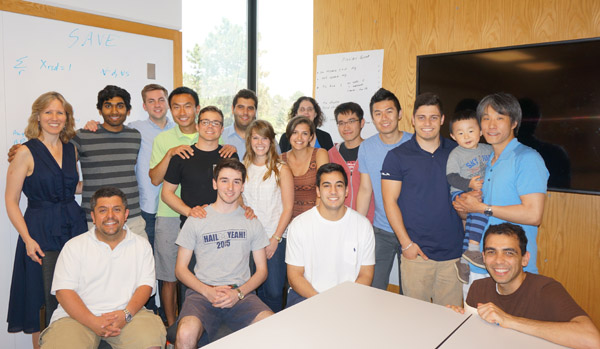 |
May 8, 2015:The CHEPS summer 2015 team gathered to eat ice cream, celebrate summer, meet new team members, and discuss upcoming projects on Friday, May 8th. We’re excited for a fun and productive summer. Welcome, everyone! |
 |
May 8, 2015:CHEPS students Rama Mwenesi and Pamela Martinez Villarreal along with Amy Cohn, CHEPS Associate Director, attended the Health Policy Residential Program in Washington, DC from May 4th until May 8th, 2015. The program was organized by the University of Michigan Ross School of Business to examine the involvement of the U.S. government in healthcare, key healthcare policy issues, and the institutional and political context in which these policies are crafted.
“Some of the topics we covered were the partisan divide in congress, lobbying, advocacy, consulting, and healthcare reform. Overall, it was a very insightful experience and it gave us a much broader perspective of healthcare,” said Pamela. Rama said the programming aided him in gaining “a much deeper understanding and appreciation for the work and role of government in healthcare policy reform and implementation.” |
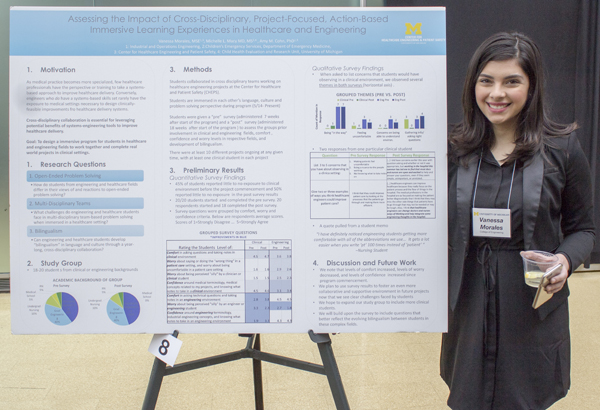 |
May 4, 2015:Vanessa Morales, a 2014 HEPS Master’s graduate, represented CHEPS at the Investigating Student Learning (ISL) Poster Fair on May 4, 2015. The event, held by the Center for Research on Learning and Teaching (CRLT), gives attendees the chance to learn about projects recently funded by the ISL Grant which supports instructors as they develop projects to assess what students are learning in their courses and how.
Vanessa presented a poster titled, “Assessing the Impact of Cross-Disciplinary, Project-Focused, Action-Based Immersive Learning Experiences in Healthcare and Engineering.” The project was awarded a 2014 ISL Grant. Vanessa collaborated on the project with Amy Cohn, CHEPS Associate Director, and Michelle Macy, a CHEPS affiliate and Assistant Professor of Pediatric Emergency Medicine. Vanessa, who is now a Management Engineer in the Duke University Health System, said of her experience at the fair, “The event was a wonderful chance to share the collaborative and multidisciplinary environment of CHEPS to other areas at U of M. Similar disciplines, such as Education and Pharmacy were exploring the same themes of this immersion and collaborative work and it was great to hear their stories and share successes in projects. Our project with CRLT sparked attention from numerous attendees and I’m happy to have been the bridge between them and CHEPS.” |
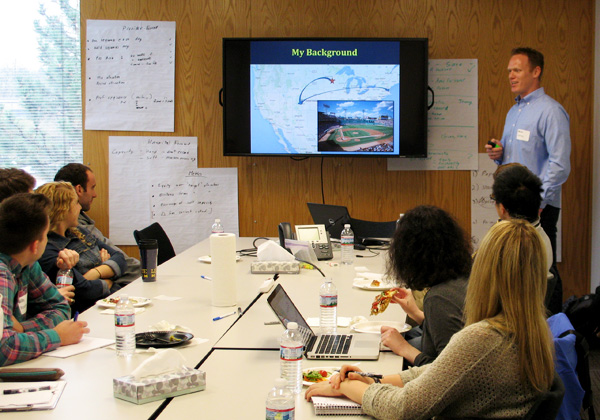 |
April 30, 2015:First-year IOE PhD student, Brian Lemay, was the fourth featured speaker in the PhD Lunch and Learn series presented by the Center for Healthcare Engineering and Patient Safety (CHEPS). This series provides PhD students the opportunity to present their healthcare work-in-progress to fellow PhD students and interested faculty and clinicians for feedback and discussion. Attendees came from the UMHS Pediatric Emergency Department, HEPS master’s program, Department of Industrial and Operations Engineering, and CHEPS.
Brian’s presentation, titled “Addressing Challenges in Scheduling Healthcare Providers,” discussed the various complexities of scheduling within the healthcare field. He spoke about challenges pertaining to multi-criteria objectives and context specific rules. He emphasized one of the main challenges to be infeasibility, meaning that there is no possible schedule that satisfies all of the given requirements. He spoke about techniques to improve modeling including creating composite variables, to have one variable represent multiple decisions, and sequences, to reduce the complexity of the decision variables. He also discussed an iterative solving approach which would put bound on each metric to identify areas of infeasibility. Brian enjoyed the chance to present and collaborate. “It was a great opportunity for me to improve my speaking abilities and gather feedback from both students and faculty on my research. There were numerous insightful questions and I think it was a great learning experience for everyone,” he said. Brian noted that his future research plans include focusing on infeasibility analysis. He will be working on creating algorithms to identify sources of infeasibility and determine potential fixes to overcome them. His presentation led to great discussion with the Pediatric Emergency Department physicians about their scheduling challenges, and how it is related to the work Brian is doing. Brian and others from CHEPS have set up a time to observe the current scheduling procedure for Pediatric Emergency as a result of the conversation at the Lunch and Learn. “The doctors are experts on all of the scheduling rules and personal situations that need to be accounted for and we hope to provide some expertise on how to leverage technology to help make better schedules that satisfy their needs and desires,” he explained. A big thank you to Marina Epelman for assisting in hosting this Lunch and Learn! If you are interested in receiving information about upcoming events or would like to present your current research, contact Gene Kim ([email protected]). We are looking forward to more great sessions and discussions! |
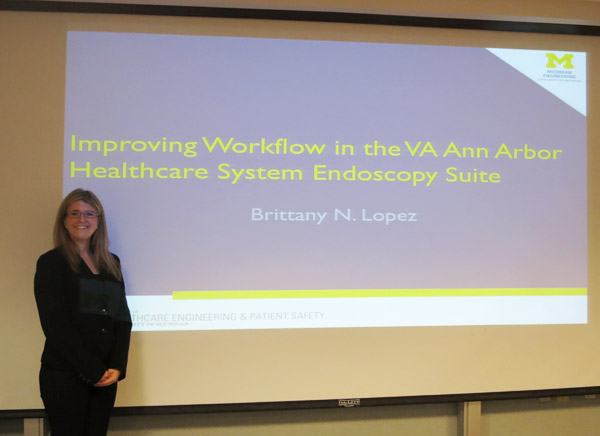 |
April 28, 2015:Undergraduate IOE student and research assistant in the Center for Healthcare Engineering and Patient Safety (CHEPS), Brittany Lopez, presented her analysis of endoscope reprocessing at the Veterans Affairs Ann Arbor Healthcare System (VAAAHS), on Tuesday, April 28, 2015. This presentation was a culmination of hard work and dedicated focus this semester to the flow of equipment and staff in the current Endoscopy Suite in order to inform the design on an upcoming renovation project slated for the area.
Brittany’s findings and recommendations will be instrumental to the VAAAHS as they work to develop a design for the Endoscopy Suite that enables standardization of workflow, minimizes non-value added movement of staff, reduces bottlenecks in the current equipment staff, and patient flows, and distributes work evenly throughout the day. Great job, Brittany! |
 |
April 28, 2015:Vanessa Morales graduated with a HEPS Master’s in 2014 and is now a management engineer in the Duke University Health System. In the video below, she discusses her time at CHEPS and how what she learned as a student here continues to impact her today. |
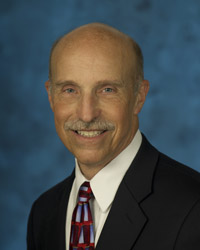 |
April 28, 2015:Center for Healthcare Engineering and Patient Safety Director, James Bagian, has been named one of the “50 Experts Leading the Field of Patient Safety” by Becker’s Hospital Review. The list consist of advocates, professors, researchers, administrators, and healthcare providers who have won awards, published articles, spoken out, and led initiatives to reduce harm and ensure safety in healthcare.
In addition to his duties as Director of CHEPS, Bagian is a Professor in the Medical School and the College of Engineering at the University of Michigan. Previously, he served as the first Director of the VA National Center for Patient Safety (NCPS) and the first Chief Patient Safety Officer for the Department of Veterans Affairs from 1999 to 2010 where he developed numerous patient safety related tools and programs that have been adopted nationally and internationally. James Bagian’s entry on the list as well as the full list of experts can be viewed at the Becker’s Hospital Review website. |
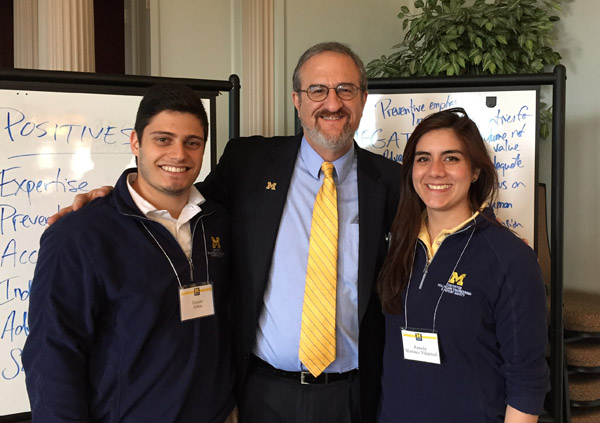 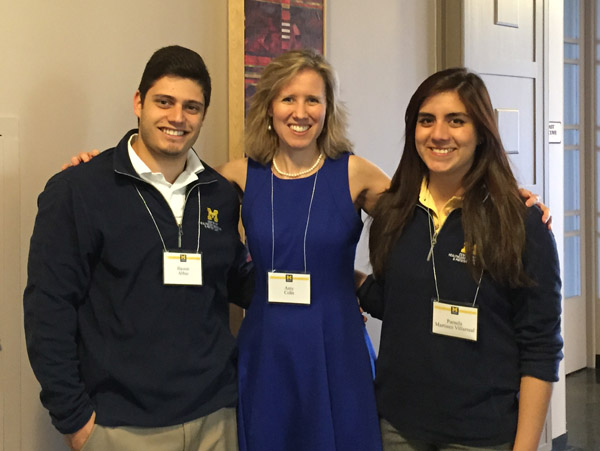 |
April 23, 2015:Members of the CHEPS community recently presented to University of Michigan President Mark S. Schlissel and his advisory group. The President’s Advisory Group Meeting, titled “Healthcare Policy & Implications for UMHS in the Era of Healthcare Reform,” was held in Rackham Assembly Hall on Thursday April 23, 2015.
CHEPS students, Pamela Martinez Villarreal and Hassan Abbas, were members of a student panel at the meeting titled “Learning Opportunities in Health Policy and Health Systems Engineering for U-M Students.” CHEPS Associate Director Amy Cohn chaired the session, along with Professor Matt Davis. After the professors spoke briefly about CHEPS and other organizations enabling students to work across disciplines to solve healthcare problems, the students (who also included Brenda Duverce from the School of Public Policy and Rahael Gupta and Steven Weinberg from the School of Medicine) spoke for about 15 minutes. “I was very honored and excited to share with President Schlissel and his advisory board all the great things we are doing at CHEPS. The round table gave us a chance to talk about our personal experiences and give an idea of what it means to work at the intersection of engineering and healthcare, and the importance of the multidisciplinary work we are doing,” said Pamela Martinez Villarreal, a HEPS Master’s student. Hassan Abbas, School of Nursing student and CHEPS collaborator, also appreciated the opportunity. He said, “Presenting to the President’s Advisory Board was truly an honorable experience. Being able to speak on a panel with other students and being a part of the luncheon gave me a great opportunity to highlight some of the amazing things I have been able to experience here in the past two years. I was not only able to speak about my career path in nursing, but I was able to speak on behalf of the projects I am a part of here in CHEPS and the collaboration efforts we have with all of our partners, which really gave the President and his Advisory Board a brief pinch of what’s going on at this outstanding university.” Pamela and Hassan were also able to present President Schlissel with a CHEPS fleece which they reported he was very grateful to receive! |
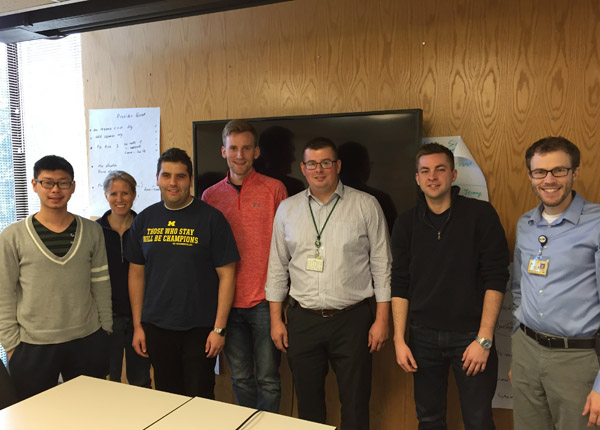 |
April 10, 2015:The Pediatric Residency Scheduling project team completed a year’s worth of work Friday, April 10th finalizing both the block schedule for the 2015-16 academic year for Pediatrics and the June shift schedule for the Pediatric Emergency Room!
Building the block schedule is typically one of the last and most difficult tasks assigned to the Chief Residents. Needing to coordinate service coverage with customized educational requirements for 100 residents (Peds, Peds Neuro, and Med-Peds) while also meeting numerous vacation and other high-priority requests like coordinating electives for unique international experiences and tracking towards specific fellowships is nearly impossible to do by hand without inevitably upsetting a bunch of the residents. This year, the Chiefs asked that we help solve that problem. After spending the past several months defining, refining, and tuning a model formulation of the problem, the team successfully used the model to first build the annual rotations for the senior residents, and now have done the same for the incoming interns as of the April 10th team meeting! We especially thank all the students who worked so tirelessly and our fantastic Chief Residents, Ed O’Brien, James Reinhart, and Shaili Rajput, for their wonderful collaboration. Congratulations on finishing out the year and best of luck in your next adventures! During the same meeting, we also built the June schedule for the residents in the Emergency Room at C.S. Mott Children’s Hospital. Having built the monthly shift schedules for the past few years now, we have come to appreciate the impact that a good schedule can have on the residents and patients. This year has seen some tremendous ER schedules, and we hope that our efforts have led to better resident education and higher-quality patient care. Once more thank you to Ed O’Brien for a terrific year and we look forward to continuing collaborations as you enter the Anesthesiology residency program here! In addition, we’re excited to work with incoming Chief Resident Steve Gorga for the 2015-16 academic year! |
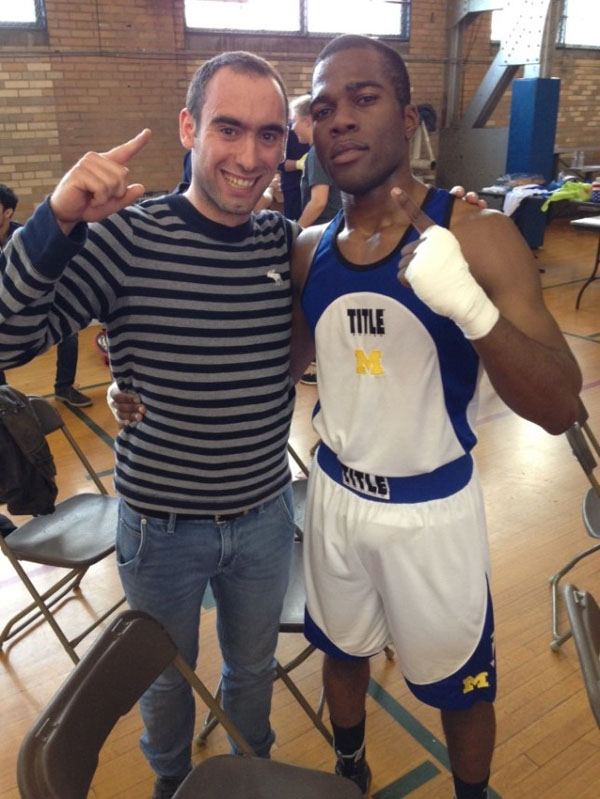  |
April 10, 2015:Friday, April 10 was an exciting day for the students at CHEPS. In addition to being the end of many months of working on building a block schedule for the Pediatric Residency program, Friday was also the culmination of many months of training for two of CHEPS own student-athletes, Rama Mwenesi and Nate Janes.
The University of Michigan Boxing Team hosted the 2015 United States Intercollegiate Boxing Association (USIBA) National Championships Thursday, April 9 – Saturday, April 11 on campus. Rama Mwenesi, one of our HEPS Master’s students leading the Surgical Instruments project, is co-captain of the Men’s Team. He represented the University in the national title bout for the 165 lb. (middle-weight) class in the Open Division, the highest “experience-level” division allowed by the USIBA in amateur boxing. In a bout against a former sparring partner from the local rival club at Eastern Michigan University, Rama fought hard but was just barely edged out in a split-decision for the championship. Nevertheless, we are proud of Rama’s achievements in the ring and thankful that he came away unscathed! Meanwhile, Nate Janes, a senior IOE student working on the Aviation, Transplant, and Surgical Block Scheduling projects, represented CHEPS as a member of the 2014-15 University of Michigan Cheer Team competing in Daytona, FL. On Thursday and Friday, Nate was part of a 22-person squad at the NCA & NDA Collegiate Cheer and Dance Championship. Entering the finals in 3rd place after Thursday’s Prelim round, the team put on an outstanding performance Friday afternoon on their way to a come-from-behind victory. They won by 0.08 points for their third consecutive national championship! Congrats to Nate and the entire team on defending the title! |
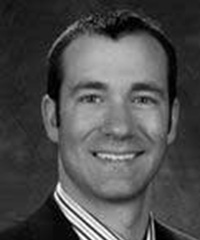 |
April 7, 2015:CHEPS affiliate, Christopher R. Friese Ph.D., RN, AOCN®, FAAN, has been recognized with the Oncology Nursing Society (ONS) 2015 Rose Mary Carroll-Johnson Distinguished Award for Consistent Contribution to the Nursing Literature. Friese was selected for this award due to “the impact that he has made on the oncology nursing profession through his high quality research publications, his dissemination of findings for policymakers and practitioners, and his efforts to support the professional development of colleagues.”
Friese is an assistant professor of nursing at The University of Michigan and a member of the Comprehensive Cancer Center. He will be presented with the award at the opening ceremony of the ONS 40th Annual Congress in Orlando, Florida on April 23, 2015. |
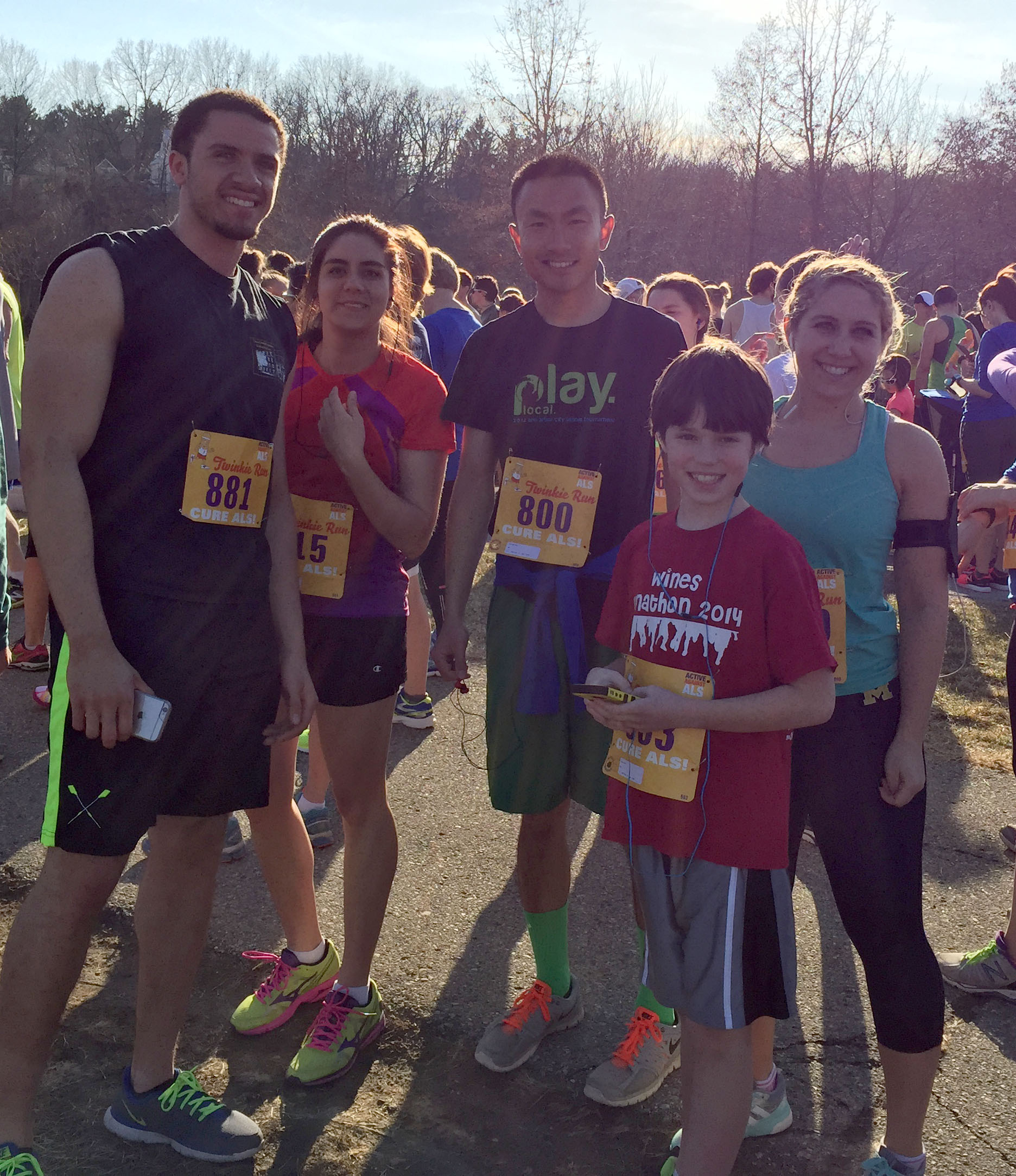 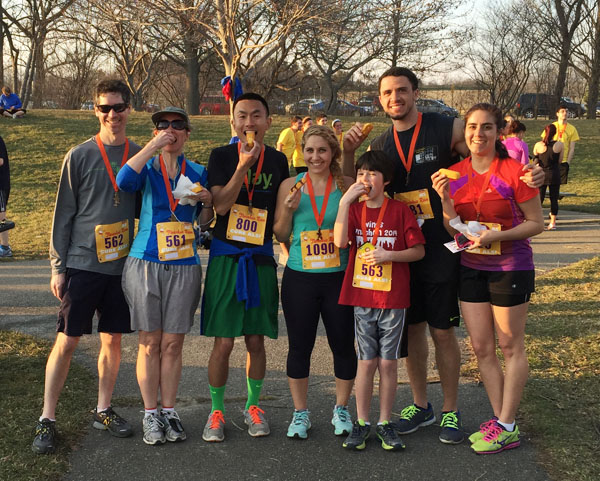 |
April 1, 2015:CHEPS community members participated in the Ann Arbor Twinkie Run on April 1, 2015. The group included George Tam (who took first in his age group), Elizabeth Olin, Donald Richardson, Pamela Martinez Villarreal, Amy Cohn, Peter Cohn, and Jonathan Cohn.
The 5k Twinkie Run is a fundraising event for Ann Arbor Active Against ALS, a nonprofit whose mission is to raise funds for research toward effective treatments and ultimately a cure for ALS, while raising awareness of the disease, encouraging physical activity, and building a compassionate community. The race includes optional Twinkie tasting throughout the race and a homemade Twinkie contest. CHEPS also raised money for ALS research at the start of the Fall 2014 semester by participating in the ALS Ice Bucket Challenge. |
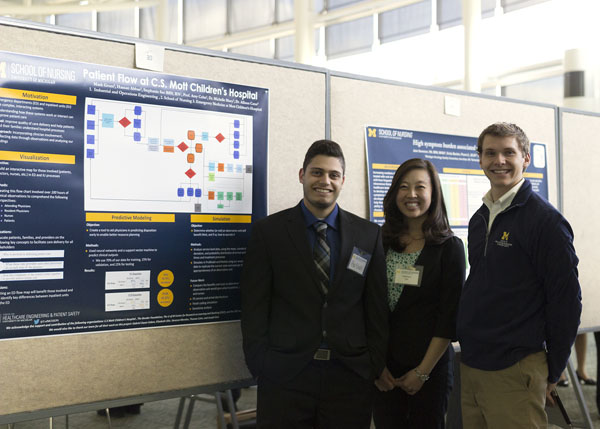 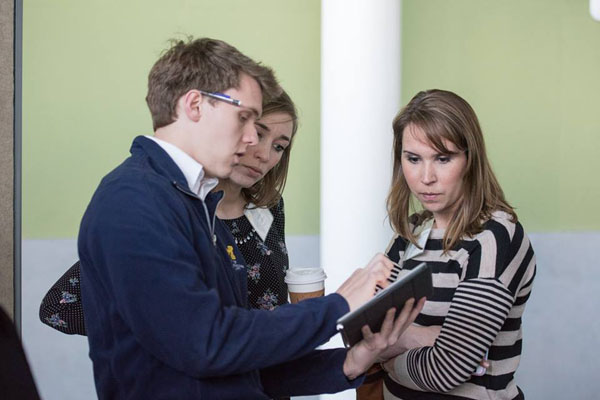 |
March 30, 2015:Members of the CHEPS community attended Dean’s Research Day at the University of Michigan School of Nursing on March 30th, 2015. The annual event highlights nursing research and strives to inspire new ideas and collaborations. Several presentations and nearly 30 posters were featured.
CHEPS students displayed their poster titled, “Patient Flow in C.S. Mott Children’s Hospital.” In attendance from CHEPS were Hassan Abbas, Mark Grum, Stephanie See, Brooke Szymanski, and Gabriel Zayas-Caban. “Attending the School of Nursing Dean’s Research Day was a great opportunity to learn about other groups projects, while also being able to display the work we do at CHEPS. Having the work that CHEPS does, at a mostly clinical session, was a hit. I was able to talk to past/future professors and current classmates about the collaboration between engineering and nursing at CHEPS and how significant this type of research is within the healthcare community. We received interest from many students and faculty who were genuinely intrigued in the projects we are working on at CHEPS, which made the whole experience incredible. I definitely am looking forward to the next Dean’s Research Day!” “The Nursing Research Day was really exciting with a lot of great projects and people interested about the work that others are doing. It was great to see my engineering work have a similar impact in the nursing field. Lots of nurses came and told us that what we were working on was really important and explained the clinical importance that could come from our work.” |
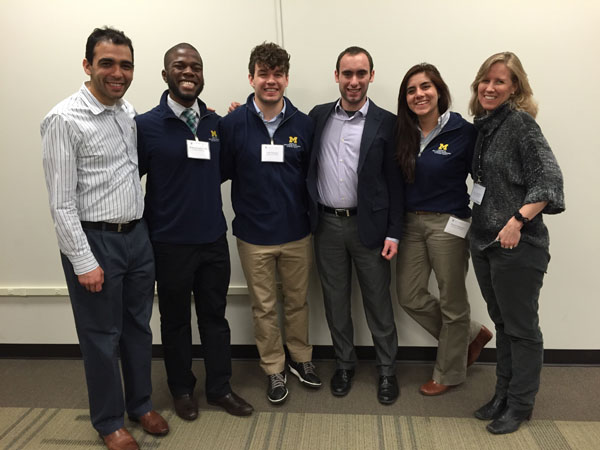 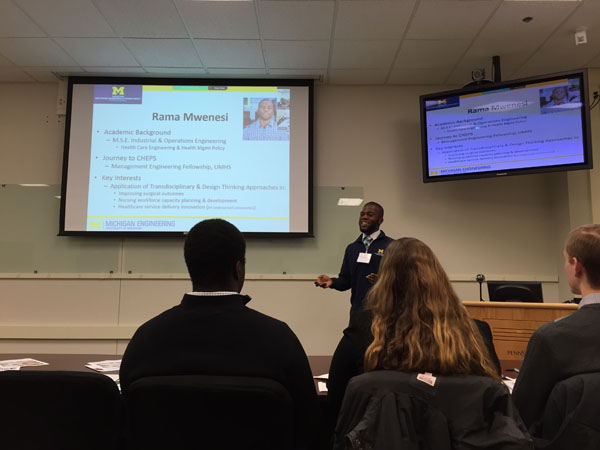 |
March 28, 2015:The 2015 Workshop of the Center for Integrated Healthcare Delivery Systems (CIHDS), a unit of the Clinical and Translational Science Institute led by Professor Harriet Nembhard from the Industrial Engineering Department at Penn State University, took place at Penn State University on March 28th, 2015.
A diverse group, including faculty, students, and practitioners, gathered to discuss efforts in establishing healthcare engineering programs at their respective institutions in order to tackle current challenges facing healthcare providers and administrators. The conference highlighted past and present efforts as well as opportunities. As Professor Julie S. Ivy, from the Industrial and Systems Engineering (ISE) Department at North Carolina State University noted, “Our clinical partners agree that industrial engineers are the perfect people for health care…” but sometimes lack clinical exposure/background, which is “…what motivated us to create our Health Systems Certificate Program at North Carolina State.” Professor Amy Cohn kicked off the workshop with an overview of the Center for Healthcare Engineering and Patient Safety (CHEPS) and discussed challenges in healthcare systems engineering and ways to meet those challenges. Professors Ivy and Nembhard also provided overviews of similar programs at their institutions. Both discussed health systems research in general, highlighting directions for future research. The student presentations where one of the highlights of the workshop. They showcased breadth in both application and solution approaches to the many complex challenges in healthcare. Students presented research on healthcare operations (e.g. scheduling OR and Clinic Time for Surgeons at the University of Colorado hospital) using combinatorial optimization techniques, medical decision-making using Markov processes and simulation (e.g. cancer management), and evaluating multidisciplinary collaborations in healthcare using social network analysis to name a few. “The thing I love most about these workshops is getting to see and hear about problems that I have never considered before especially the super cool way of how optimization methods are applied,” said CHEPS doctoral student Jeremy Castaing. Other highlights included opportunities to meet new people and network, exchanging experiences and perspectives as well as research ideas. CHEPS masters student Rama Mwenesi summarized his experience as a “phenomenal one.” As he put it, “Many times these opportunities to learn about current work in academia are reserved for PhD candidates only and so having this chance as a master’s student has really been amazing. Following this seminar my question now is how can we leverage the experiences to maintain the momentum and keep up the conversation amongst faculty, administrators and above all students.” In that spirit, the workshop concluded with an eye toward exploring opportunities for developing collaborations between the institutions. The following topics were presented by members of the CHEPS community:
|
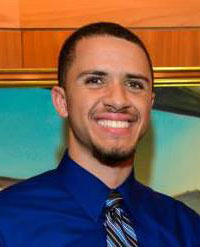 |
March 27, 2015:CHEPS affiliate and IOE PhD student Donald Richardson received an honorable mention in the 2015 Ford Foundation Predoctoral Fellowship competition. Ford Foundation Predoctoral fellowships are awarded in a national competition administered by the National Research Council (NRC) on behalf of the Ford Foundation. The awards are made to individuals who have demonstrated superior academic achievement, are committed to a career in teaching and research at the college or university level, show promise of future achievement as scholars and teachers, and are well prepared to use diversity as a resource for enriching the education of all students. |
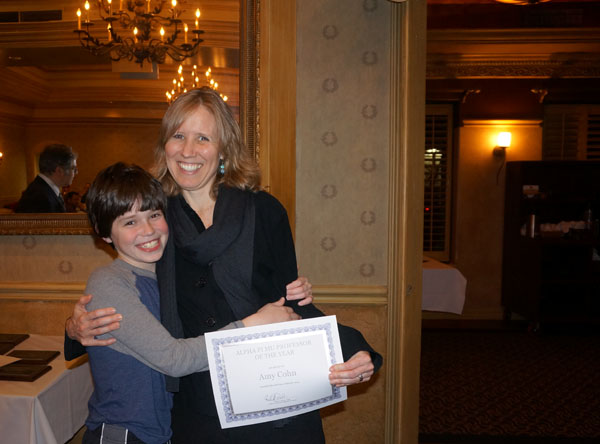 |
March 26, 2015:Professor Amy Cohn, CHEPS Associate Director, was presented with the Alpha Pi Mu Industrial Engineering Honor Society’s Professor of the Year Award at the IOE Graduate Student Banquet on Thursday, March 26th. Every March, IOE students cast their vote for this award which recognizes instructors who have made a great impact on their education and lives. Congratulations, Professor Cohn! |
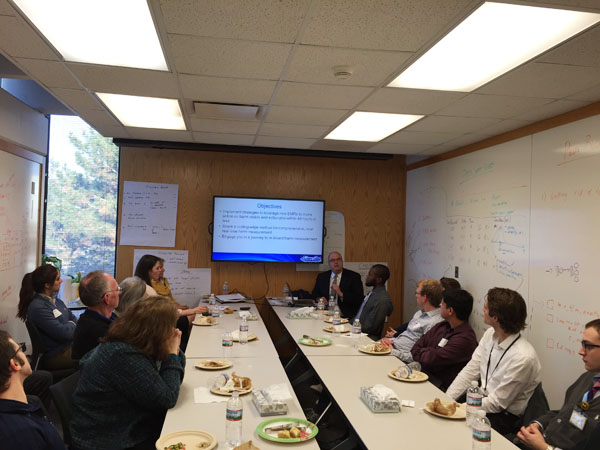 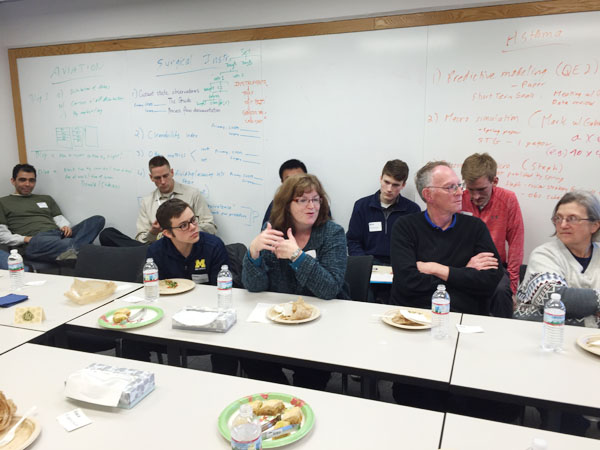 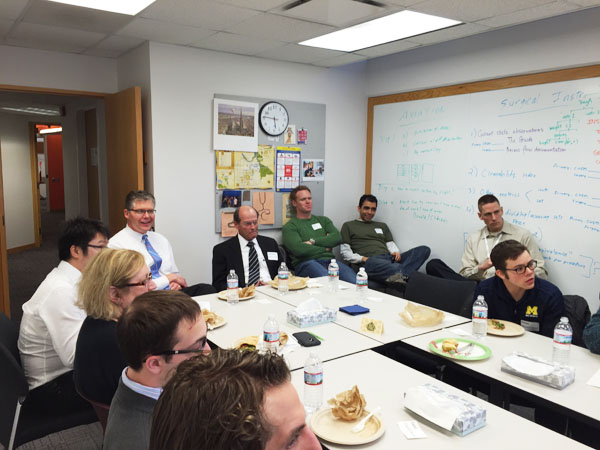 |
March 25, 2015:The Center for Healthcare Engineering and Patient Safety hosted a dinner and discussion with Lucy Young, Andrea McAuliffe, and Jack Jordan of the Henry Ford Health System (HFHS). The event featured a presentation of the industrial engineering work being done at HFHS, an open discussion, and the exchange of ideas about industrial engineering and operations research in healthcare. Physicians, hospital administrators, academics, and students were all in attendance, including Dr. Jeff Desmond, Interim Chief Medical Officer of UMHHC, and Dr. Jack Billi, Associate Vice President for Medical Affairs at UM.
Lucy Young, a graduate of the University of Michigan in Industrial and Operations Engineering, gave a brief overview of industrial engineers and performance improvement at HFHS. Henry Ford has over 35 years of performance improvement history. Today they tackle a variety of problems in the area, from process redesign and data analysis to implementation support and working with clinical care teams. Andrea McAuliffe, another IOE grad, presented on bundled payments for total joint replacements, an analysis project conducted by HFHS. She detailed how they used a time-driven activity-based costing methodology (TDABC) to measure true costs and quality of joint replacements, so as to improve the value of the service. Finally, Jack Jordan, Director of Clinical Analytics at HFHS, talked about a real-time patient harm monitoring system. The goal of this “HARM” model is to identify patient harm, understand what went wrong, and react appropriately within a 48 hour time frame. By highlighting more patient harm with the advanced EMR systems available today, we can take more effective steps to provide better care for patients. All of the presentations prompted excellent discussion, with attendees asking thoughtful questions and lending different opinions throughout the evening. Some areas of discussion included difficulties in estimating and understanding costs of medical care, the potential of advanced EMR in today’s healthcare environments, and defining quality in healthcare (The following article from the Wall Street Journal considers the question of quality in healthcare from multiple perspectives: http://www.wsj.com/articles/what-quality-measures-should-be-used-to-evaluate-health-care-providers-1427079654). Attendees stayed past the official conclusion of the event, sharing in more great food and discussion. Below are the slides and video from the discussion.
If you are interested in receiving information about upcoming events or would like to organize a dinner and discussion at CHEPS, please contact Gene Kim ([email protected]). We are always looking for great presentations and discussions! |
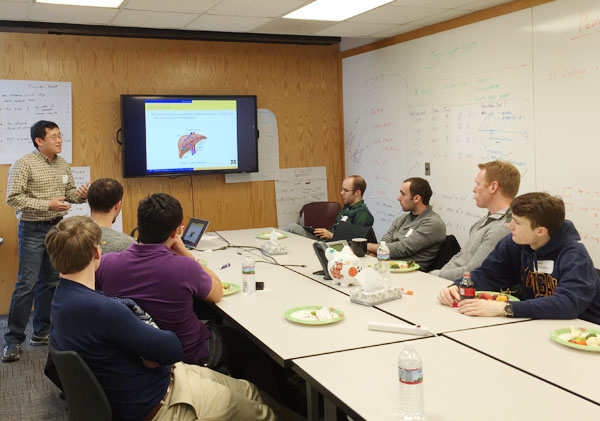 |
March 23, 2015:Third-year IOE PhD student, Victor Wu, was the third featured speaker in the PhD Lunch and Learn series presented by the Center for Healthcare Engineering and Patient Safety (CHEPS). This series provides PhD students the opportunity to present their healthcare work-in-progress to fellow students and interested faculty and clinicians for feedback and discussion. Attendees came from areas including the HEPS master’s program, the Department of Industrial Operations Engineering, and CHEPS.
Victor’s presentation, titled “Optimizing Global Liver Function in Liver Stereotactic Body Radiation Therapy Treatment Planning,” highlighted his work to optimize global liver function (GLF) in liver cancer patients receiving stereotactic body radiation therapy (SBRT) treatment. The goal of SBRT is to deliver high doses of radiation to cancerous tumors while delivering low doses to vital organs to preserve organ function. A patient’s liver function prior to treatment can influence the risk of liver toxicity and side effects post-treatment. Optimizing the GLF in patients can influence the amount of radiation delivered to portions of the liver, the treatment plan, and possible side effects. The presentation led to an interesting discussion about future work including understanding the clinical impact, the additional percentage of liver preservation that is considered significant, and including additional components to the model. A big thank you to Marina Epelman for hosting this lunch-and-learn! If you are interested in receiving information about upcoming events or would like to present your current research, contact Gene Kim ([email protected]). We are looking forward to more great sessions and discussions |
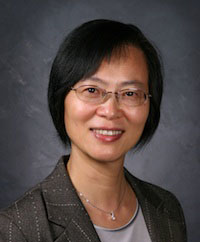 |
March 19, 2015:Professor Judy Jin, a CHEPS affiliate, has been elected a Fellow of Institute of Industrial Engineers (IIE).This award recognizes outstanding leaders of the profession who have made significant, nationally recognized contributions to industrial engineering. A fellow is the highest classification of IIE membership. Professor Jin’s award will be presented during the IIE Annual Conference & Expo 2015, to be held May 30 – June 2 in Nashville. Congratulations, Professor Jin! |
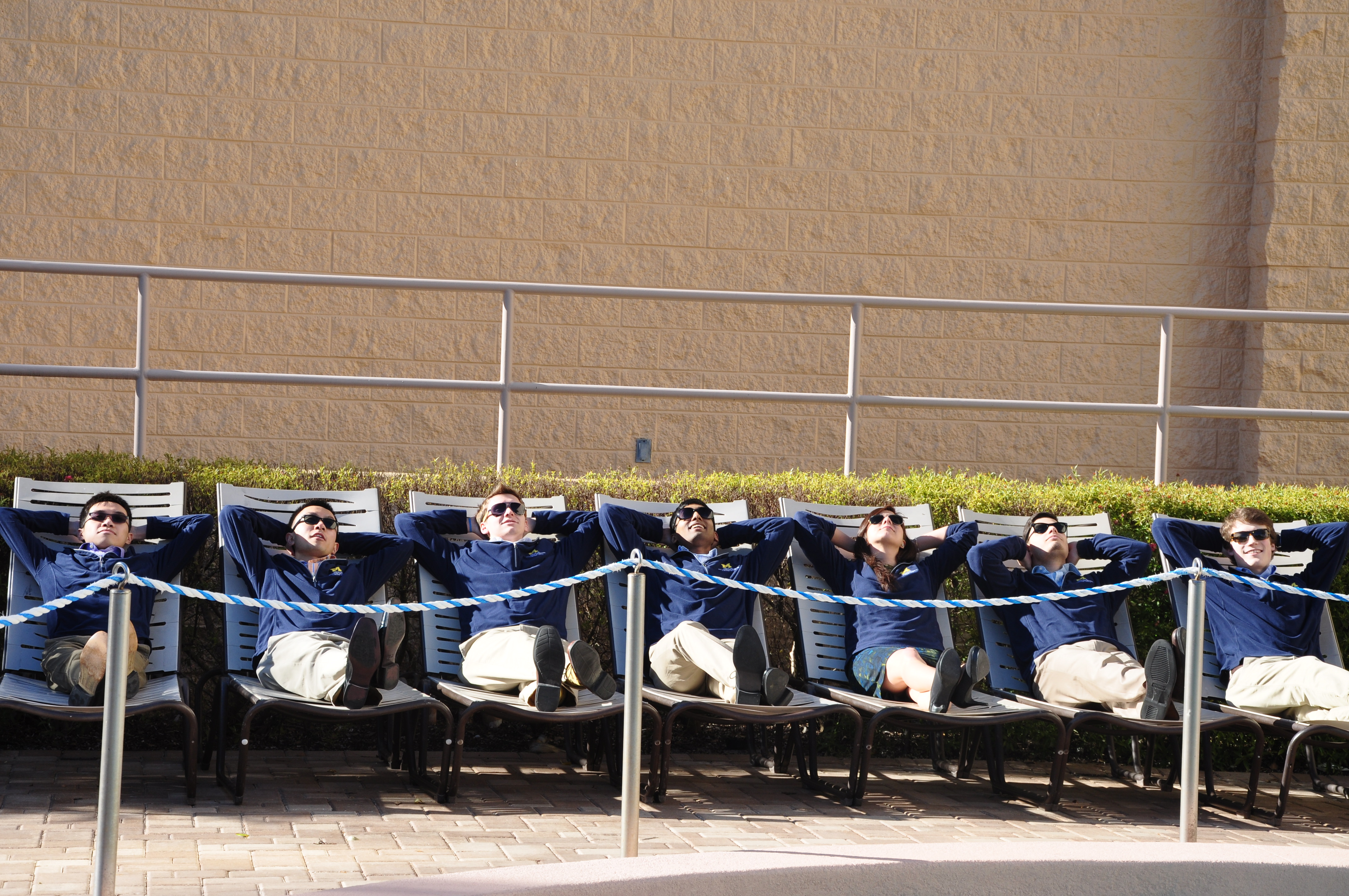 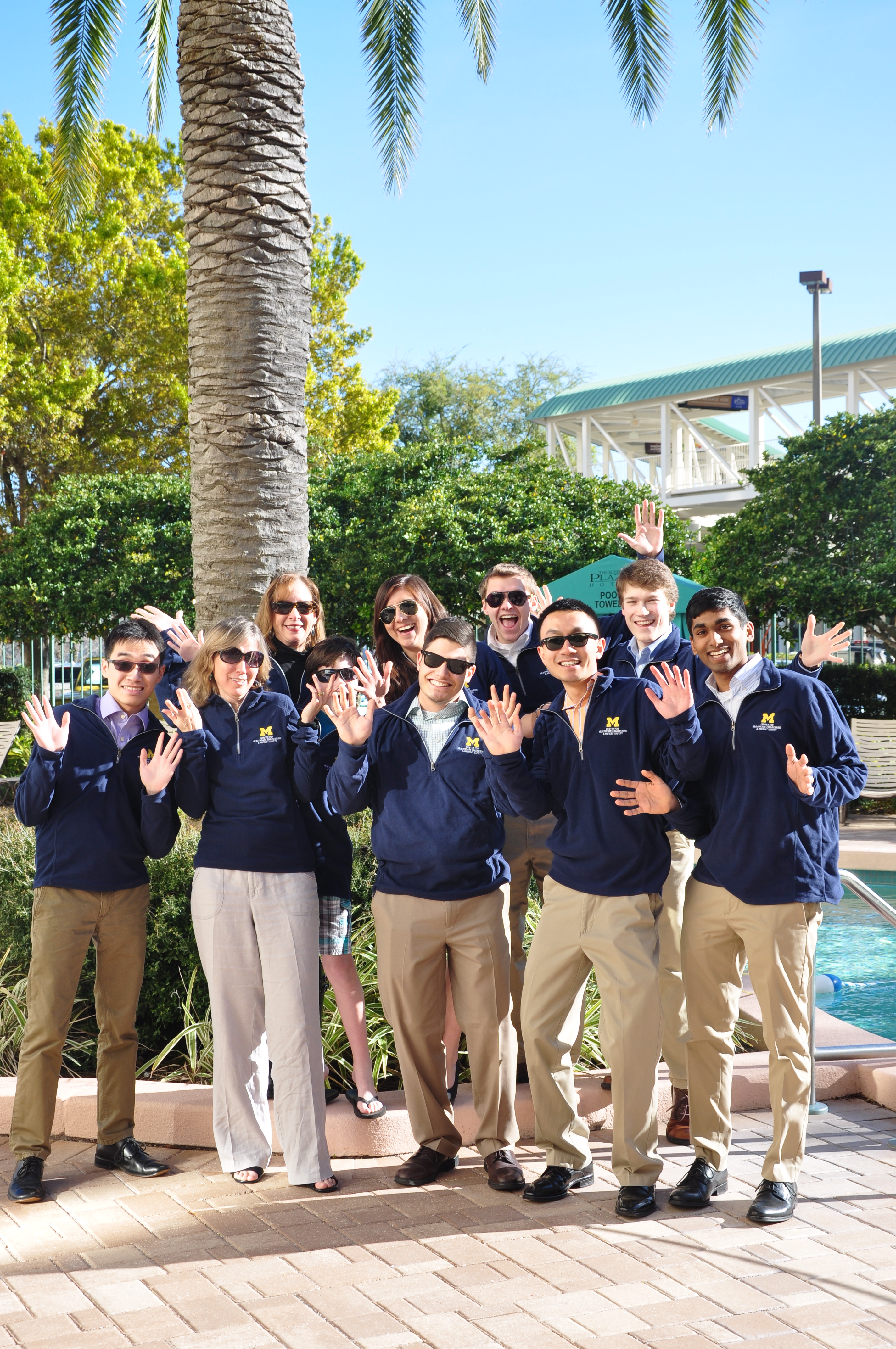 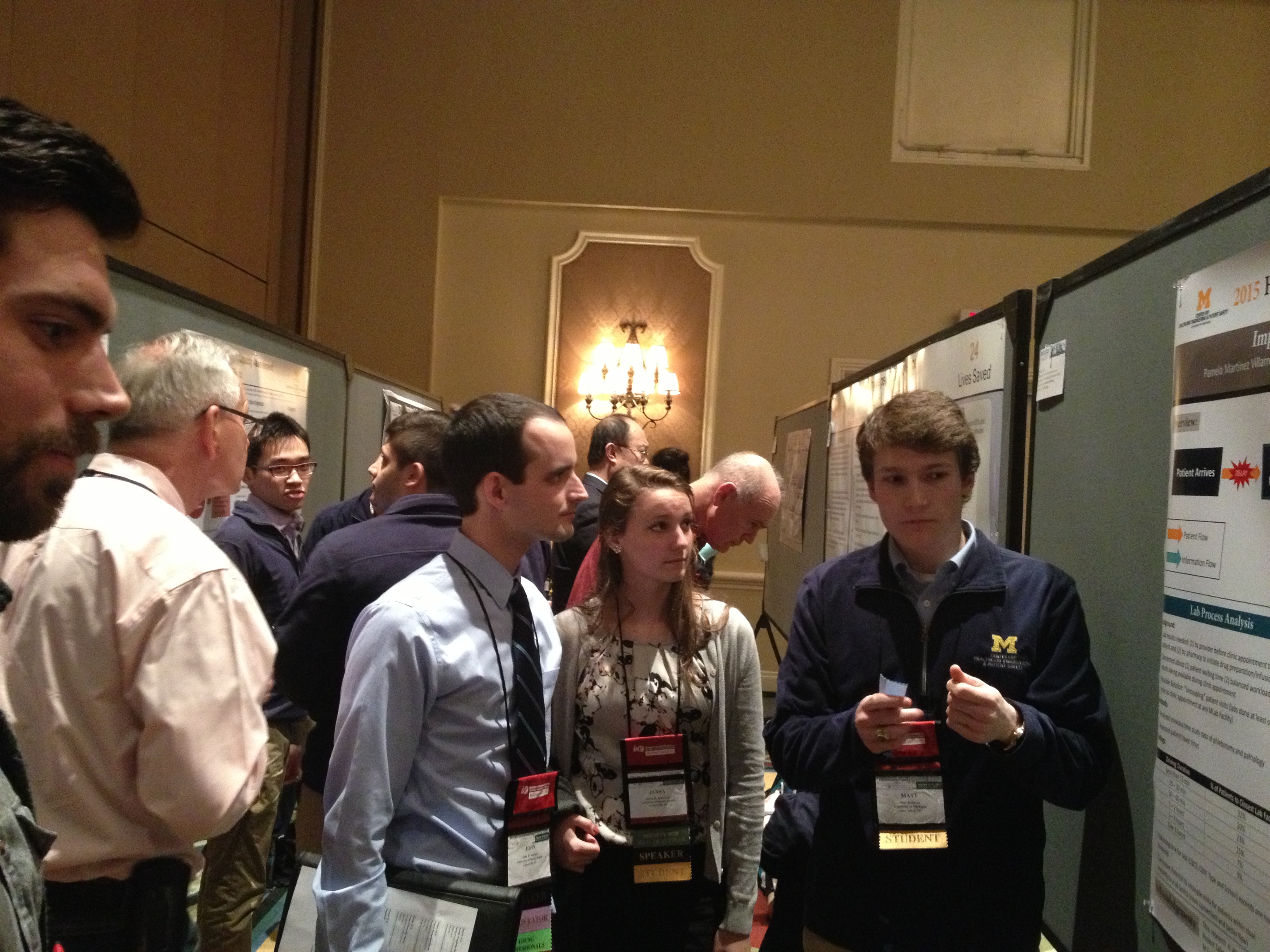 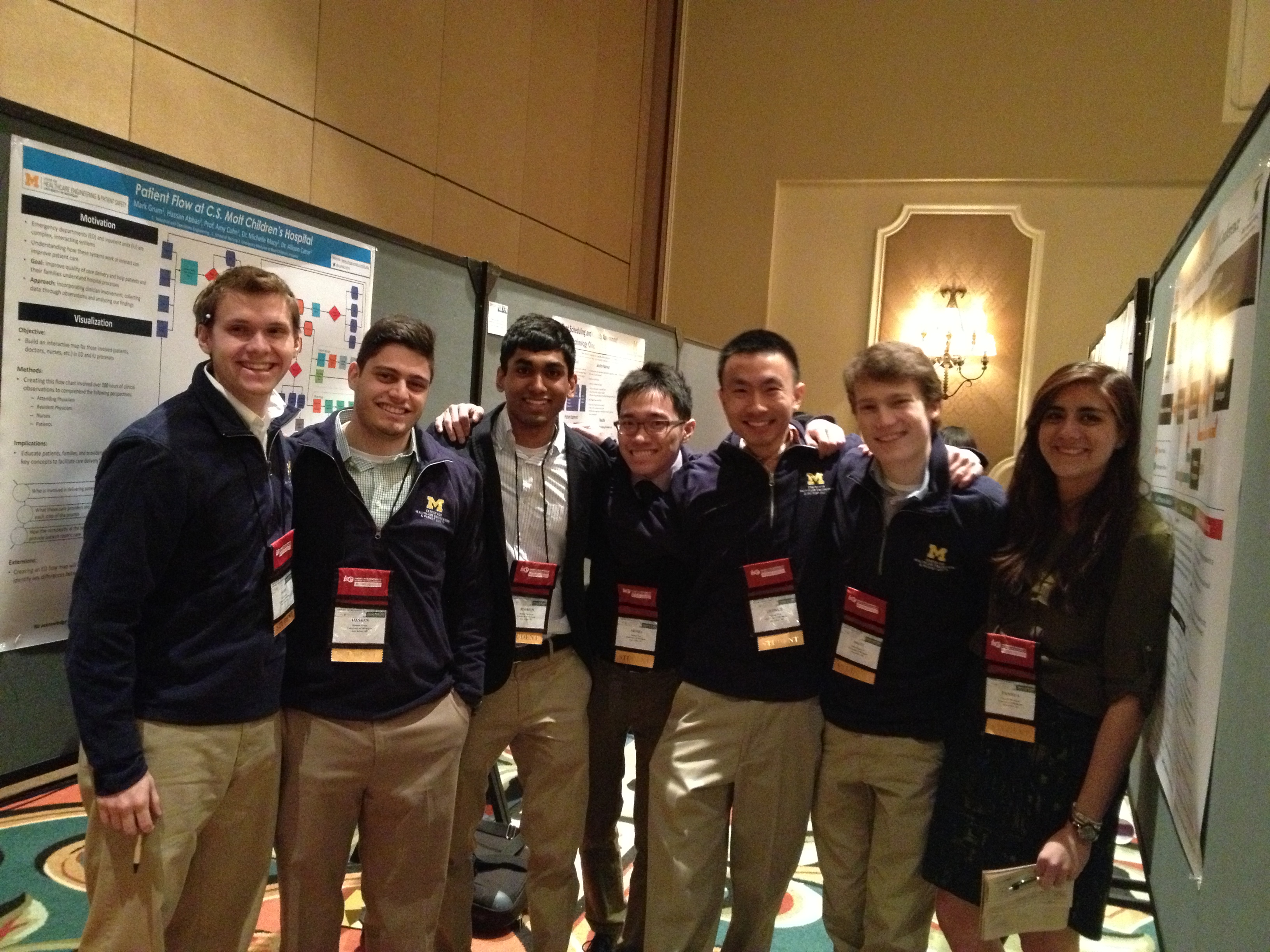 |
March 12, 2015:The 2015 Healthcare Systems Process Improvement (HSPI) Conference sponsored by the Society for Health Systems (SHS) took place in Orlando, Florida from February 18th to February 20th, 2015. Attendees gathered from around the country to discover and share past, present, and future research that will transform healthcare operations and systems.
“Communication was highlighted as key to a successful project across the conference presentations. This conference provided a great platform connecting practitioners and researchers toward the same goal, improving healthcare,” said Moses Chan, December 2014 IOE master’s graduate and current research assistant in CHEPS. Presentations and posters presented by CHEPS at the conference were well attended and had fantastic discussion and feedback. Presentations Using Simulation to Show the Impact of Variability on Training Transplant Surgeons, presented by Roshun Sankaran “Attending the conference was a really great and informative experience, as I had never done anything like that before. I’m incredibly grateful to have had the opportunity to present, and learned a lot from the experience. The feedback that I received from other CHEPS students and Amy in the days leading up to the conference were invaluable, and I think it speaks to the collaborative and supportive nature of CHEPS. Customization vs. Convenience When Developing Healthcare Scheduling Tools, presented by Amy Cohn Posters Improving Patient Experiences in an Outpatient Chemotherapy Infusion Center, presented by Pamela Martinez-Villarreal and Matthew Rouhana “I had a great time attending so many thought-provoking presentations at the conference. Seeing the work that others are doing to advance the field and improve healthcare was impressive and inspiring. I also got the chance to speak with someone from Australia who was working on a very similar project as me. It was encouraging to exchange ideas with her and know that people are working on these types of problems all over the world.” – Matthew Rouhana, HEPS master’s student Patient Flow in Pediatric Asthma, presented by Mark Grum and Hassan Abbas “The SHS conference was a great experience not only to talk to healthcare professionals about the projects I was working on, but talk to them about projects they are doing and potential tools or methods that have found successful. The willingness to collaboration shocked me but helped me learn more than I thought I would. Many people were very impressed with CHEPS as a whole, whether it was from the talks or the posters and it was awesome to have a great reputation in the healthcare engineering community.” – Mark Grum, HEPS master’s student “The SHS Conference allowed me to see first-hand what others are doing to integrate engineering and healthcare, which was really an eye opening experience. I was able to network with engineers and nurses at the conference and hear about their projects while also presenting the projects I have been a part of at CHEPS.” – Hassan Abbas, undergraduate nursing student Patient Scheduling and Capacity Assessment for an Endocrinology Clinic, presented by Moses Chan and George Tam “SHS was my first experience at a healthcare conference. The various sessions held at the conference really allowed me to see how the many skill sets and tools I’ve learned in my industrial engineering classes are applied to various innovative and multidisciplinary projects that all have one overarching goal: to provide better care for the patient while reducing process errors.” – George Tam, IOE master’s student Panel Discussion Academic – Industry Partnering – Finding Synergy, presented by David Cowen with Amy Cohn SHS YouTube Video Contest We are looking forward to the HSPI 2016! |
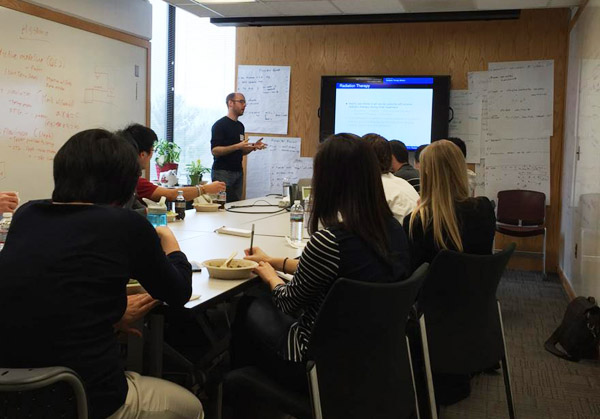 |
March 10, 2015:Fifth-year IOE PhD student, Troy Long, was the second featured speaker in the PhD Lunch and Learn series presented by the Center for Healthcare Engineering and Patient Safety (CHEPS). This series provides PhD students the opportunity to present their healthcare work-in-progress to fellow students and interested faculty and clinicians for feedback and discussion. Attendees came from the HEPS master’s program, the Department of Industrial Operations Engineering, and CHEPS.
Troy’s presentation, titled “Efficient Constructive Heuristics for 4pi Treatment Planning,” highlighted his work to develop patient-specific radiation treatments. Radiation beams are delivered externally to cancerous tumors in the patient’s body. The goal of radiation treatment is to destroy cancerous tissue while minimizing the exposure of harmful radiation to surrounding healthy tissue. Treatment plans must take into account the radiation beam’s dosage and angle to deliver the optimal amount of radiation to the patient. This work can be clinically translated to help determine optimal beam location and create ideal treatment plans. His presentation led to great discussion about future work including integrating Beam Orientation Optimization (BOO) clinically. If you are interested in receiving information about upcoming events or would like to present your current research, contact Gene Kim ([email protected]). We are looking forward to more great sessions and discussions! |
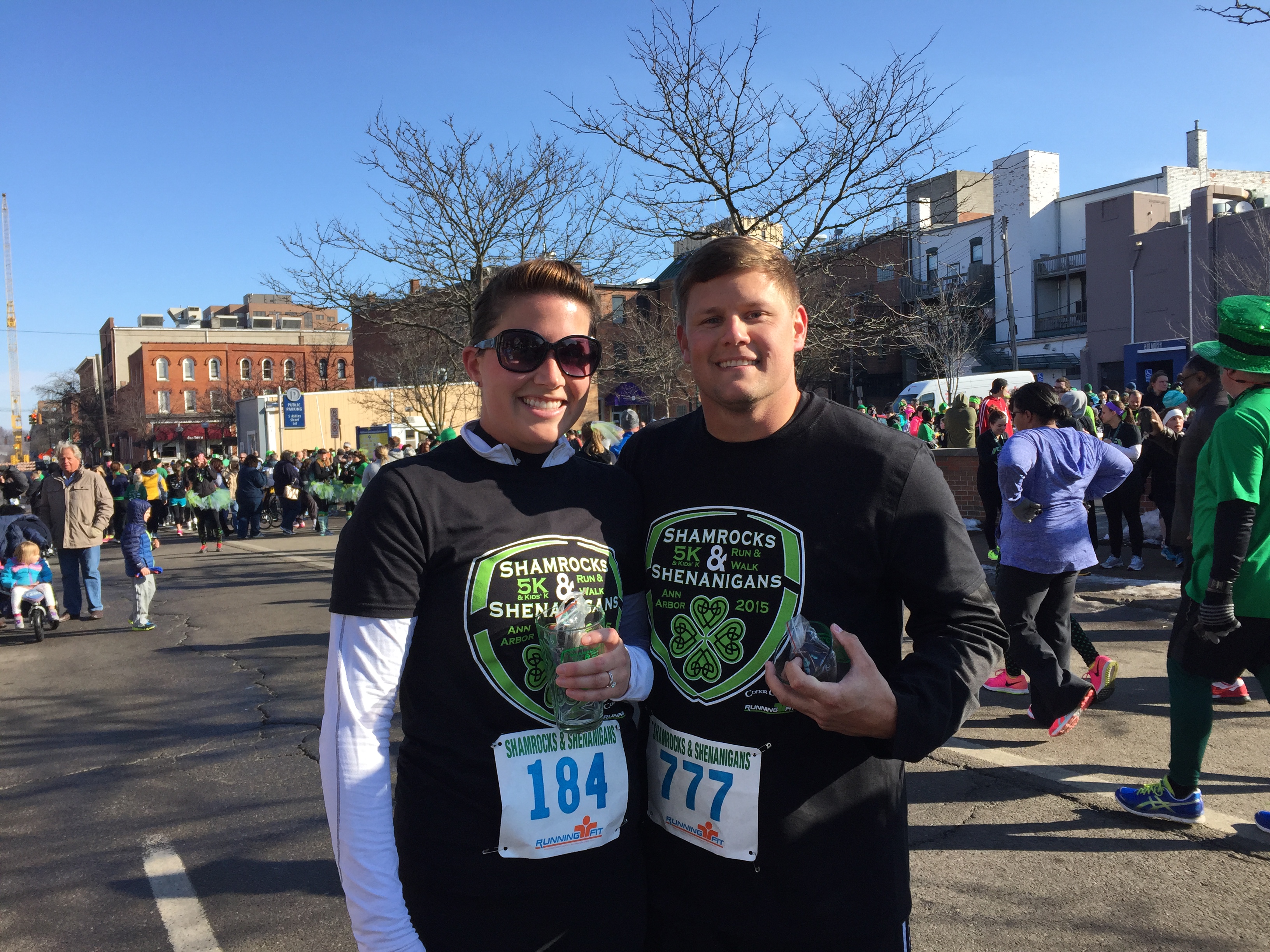 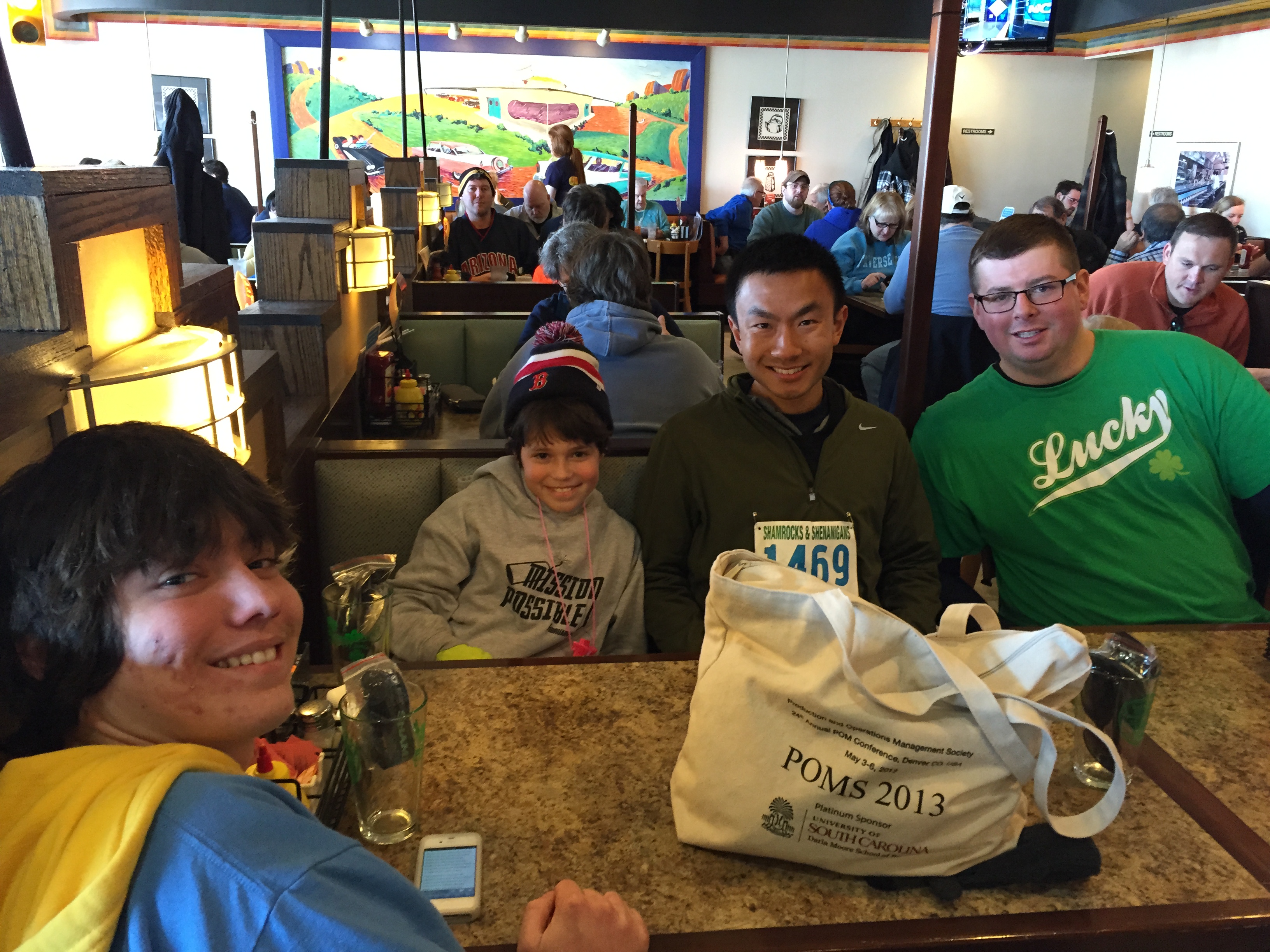 |
March 8, 2015:Several members of the CHEPS community participated in the annual Conor O’Neils St. Patrick’s Day 5k on Sunday, March 8th 2015. The participants included Brittany Lopez, Anne Ayanian, Valerie Chase, Amy Cohn (Irish by blood), Ed O’Brien (Irish by surname), and George Tam (Irish by wardrobe). Despite the chilly temps and hilly course, all runners finished successfully and went on to celebrate with vast quantities of bacon afterwards. |
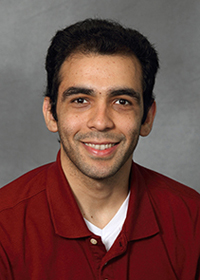 |
February 26, 2015:Gabriel Zayas-Caban, a postdoctoral research assistant in the Center for Healthcare Engineering and Patient Safety, has been awarded a Presidential Postdoctoral Fellowship. Beginning in 2011, the University of Michigan joined in a partnership with the University of California to offer postdoctoral fellowship opportunities at the University of Michigan. The program offers postdoctoral research fellowships in science, technology, engineering, or mathematics (STEM), economics, and political science fields, coupled with faculty mentoring, professional development and academic networking opportunities.
The specifics of Gabriel’s research and award are below. Undergraduate institution: University of South Florida |
 |
February 23, 2015:Third-year IOE PhD student, Jeremy Castaing, was the first featured speaker in the PhD Lunch and Learn series presented by the Center for Healthcare Engineering and Patient Safety (CHEPS). This series will provide PhD students the opportunity to present their healthcare work-in-progress to fellow PhD students and interested faculty and clinicians for feedback and discussion. Attendees came from the HEPS master’s program, the Department of Industrial Operations Engineering, and CHEPS.
Jeremy’s presentation, titled “Mathematical Optimization to Reduce Patient Wait Times in an Outpatient Infusion Center,” highlighted the complexities of scheduling patients to decrease patient wait time and staff overtime. Treatment lengths vary, which can have negative impact on operations. Taking this uncertainty into account can help improve patient scheduling. Due to prolonged computational times, a heuristic algorithm was developed to find approximate solutions to schedule patient appointments under uncertainty of treatment times. His presentation led to great discussion about future work including extensions of the optimization model as well as interesting metrics to evaluate the quality of an appointment schedule. If you are interested in receiving information about upcoming events or would like to present your current research, contact Stephanie See ([email protected]). We are looking forward to more great sessions and discussions! |
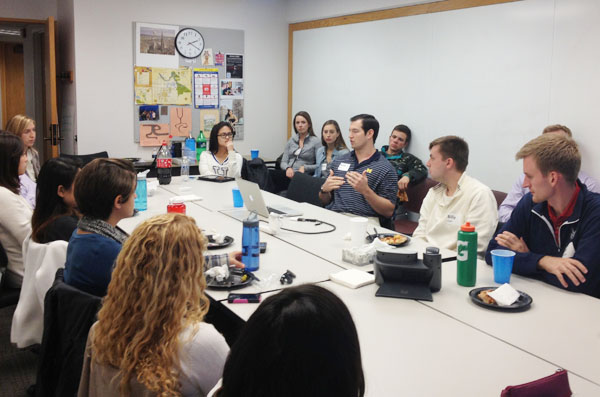 |
February 12, 2015:CHEPS will be organizing and hosting a Lunch and Learn series to provide PhD students the opportunity to present their healthcare work-in-progress to fellow PhD students as well as interested faculty and clinicians for feedback and the chance to interact socially and enjoy a meal together. Jeremy Castaing will be presenting his research at the first Lunch and Learn on Monday, February 23 from 12 to 1 pm on North Campus (Location to be determined and will be sent to those who RSVP.) If you plan to attend, please RSVP to Stephanie See ([email protected]) by Monday, February 16 to ensure enough food for everyone. Additionally, please let Steph know if you would like to be added to the PhD Lunch and Learn mailing list for information about upcoming events. We are looking forward to great discussion and company! |
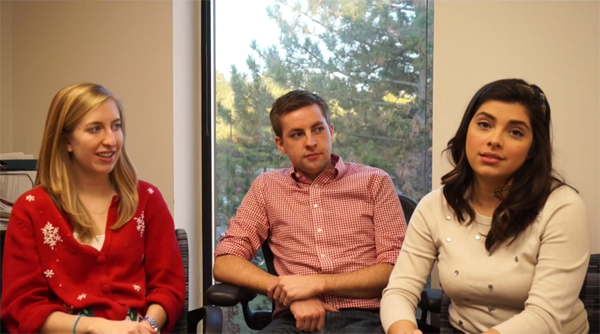 |
February 5, 2015:CHEPS students entered the Society for Health Systems (SHS) YouTube video contest and received an honorable mention. The purpose of the contest was to create a video presentation which would excite high school students to become an IE in the healthcare industry or convince a current IE to pursue a career in healthcare.
The CHEPS video which was filmed and edited by Pamela Martinez Villarreal and features Sarah Bach, Vanessa Morales, Rama Mwenesi, and Billy Pozehl came in second of all the entries in the competition. The team’s video will be recognized during a lunch and learn session at the Healthcare Systems Process Improvement Conference on Feb 18 – 20. You can view the video below. |
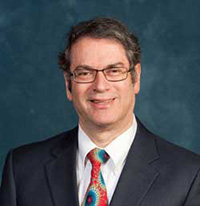 |
February 3, 2015:CHEPS affiliate Professor Mark Daskin, Industrial and Operations Engineering Department Chair and Clyde W. Johnson Collegiate Professor, has been invited to become a member of The Honor Society of Phi Kappa Phi. Phi Kappa Phi is the nation’s oldest, most selective, and most prestigious all-discipline honor society. Their mission is “to recognize and promote academic excellence in all fields of higher education and to engage the community of scholars in service to others.” Professor Daskin was nominated by Dean David Munson for his outstanding accomplishments on behalf of the College of Engineering. |
 |
January 27, 2015:Gabriel Zayas-Caban, a postdoctoral research assistant in the Center for Healthcare Engineering and Patient Safety, is part of a project team working to speed up test screening results for newborns. The group has received a grant from the Robert Wood Johnson Foundation to study how to minimize the time between when blood is drawn and when results get to parents and healthcare providers. You can read more about their research in this blog post by Dr. Beth Tarini, Assistant Professor in the Department of Pediatrics and the Child Health Evaluation and Research (CHEAR) Unit at The University of Michigan. |
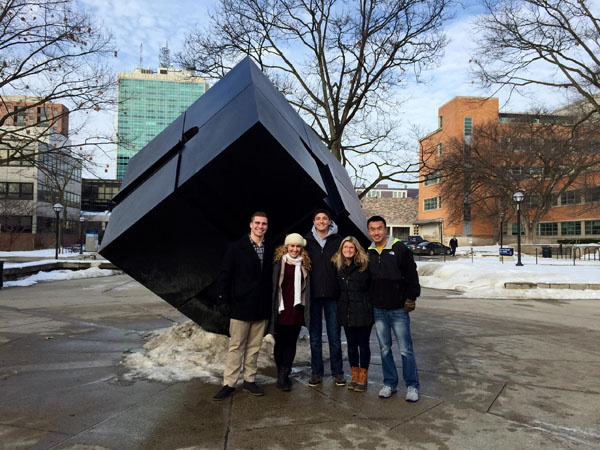 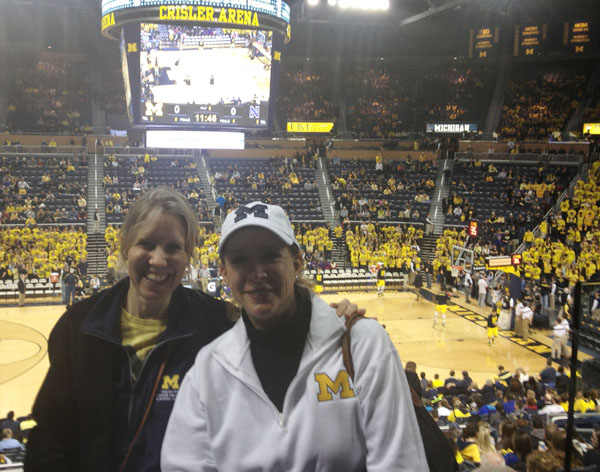 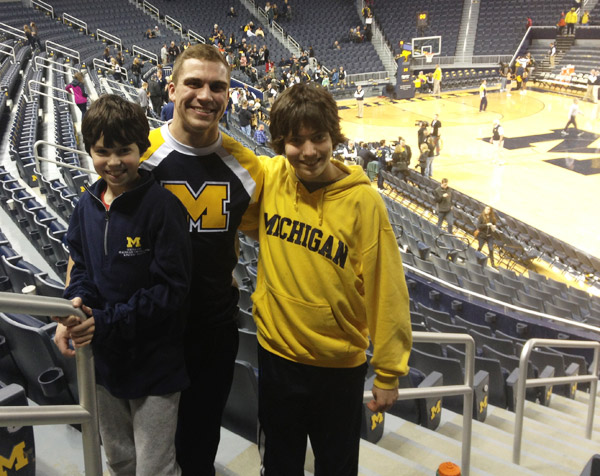 |
January 17, 2015:Mrs. Merrill Bonder from the Bonder Foundation stopped by CHEPS for a visit over the weekend of January 17, 2015. Mrs. Bonder’s grandson, Matt Howard, came along on the trip and CHEPS students took him on a tour of The University of Michigan campus. Could Matt be a future CHEPster in the making?
CHEPS student George Tam said, “Matt, Liz, Brittany, Nate, and I went to Zingerman’s Deli for lunch then took Matt around both North and Central Campus. Following amazing sandwiches, we all stumbled upon the Hack-A-Thon and got a chance to not only tour the buildings of North Campus, but play video games with the ‘hackers.'” “On Central Campus, we all got to visit the Law Quad, the spinning cube, the Business School, and the Central Campus diag. However, the biggest highlight for Matt was seeing ‘packable’ snow, which resulted in a group impromptu snowball fight in the middle of the North Campus diag. We all felt like teenagers again.” The group also attended the men’s basketball game against Northwestern where they proudly represented CHEPS and U of M and were delighted to spot CHEPS affiliate Rishi Reddy who was at the game with his wife Gwen but disturbed to find him wearing Northwestern colors. Multi-talented CHEPS student Nathan Janes also cheered at the game which Univeristy of Michigan won 56 to 54. Feel free to remind Dr. Reddy of the win if you should spot him in his Northwestern gear! |
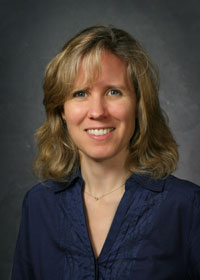 |
January 13, 2015:Professor Amy Cohn, CHEPS Associate Director, has been selected as a recipient of the 2014-2015 College of Engineering Service Excellence Award. This recognition is in honor of the numerous undergraduate, master’s, and PhD students that she has supervised; her community service in the Ann Arbor public schools; her service to the Industrial & Operations Engineering Department including five terms on the Department Committee; her service to the College and the University including her work on the leadership committee of IHPI; and her leadership on national and international levels in healthcare and aviation. Congratulations, Professor Cohn! |
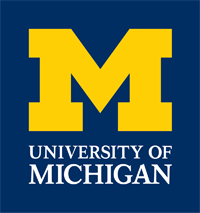 |
December 18, 2014:The UM Institute of Health Policy and Innovation and the Provost’s Office for Digital Education and Innovation are sponsoring a new learning opportunity!
UM students have a UM-only opportunity to participate in the University’s first campus-wide, massive open online course (MOOC) on U.S. health policy. The course is led Matthew Davis, MD, MAPP, professor of pediatrics and internal medicine/public policy/health management & policy at UM Medical School, School of Public Policy, and School of Public Health. Dr. Davis is also Chief Medical Executive for the State of Michigan. Check out this video to find out more! ALL UM students are welcome, at all learning levels (professional, graduate, undergraduate). This course will bring principles and challenges of the U.S. healthcare system to learners in an accessible way, and will encourage them to examine their own assumptions and experiences as they learn-through-innovation. The course launches on January 12 and lasts for 6 weeks. It is designed for full-time students to be co-curricular, to take ALONG WITH their UM course load. The MOOC format allows for asynchronous learning, so that students can view the content and participate in online discussions at times convenient to them. There’s no cost to participate. And for students who participate, a Statement of Accomplishment will be available. Visit umich.learnushealthcare.org for more information. |
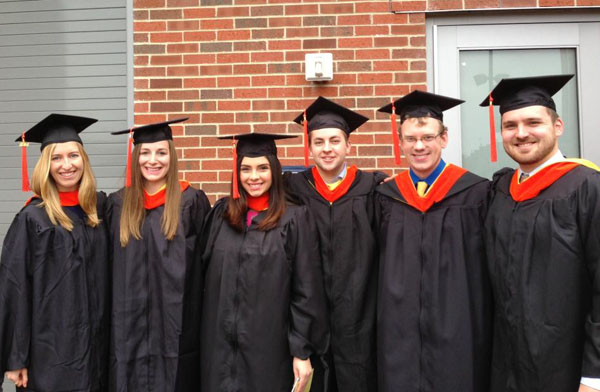 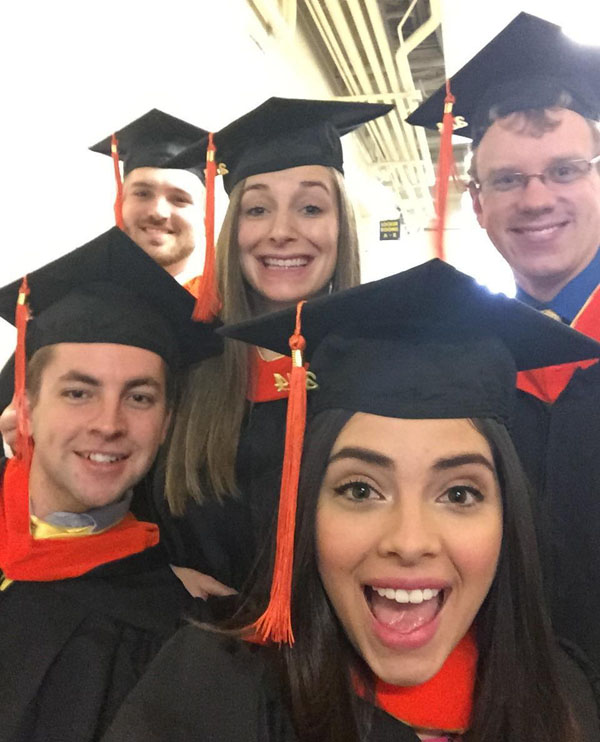 |
December 14, 2014:A big congratulations to our graduate students on their well-deserved master’s degrees! They have worked extremely hard over the past couple of years.
Our graduating students shared their thoughts on leaving CHEPS and what they are excited about next. “Leaving CHEPS is definitely bittersweet. My involvement with CHEPS defined my graduate career and allowed me the opportunity to have a meaningful impact applying my engineering skills in real healthcare environments. I know my experiences with CHEPS have well prepared me for a future in healthcare engineering and I am so excited to see where my CHEPS classmates and I end up in the coming years. I know I will always to continue to be a part of and learn from the CHEPS community even as I begin my new adventure at the Mayo Clinic!” – Sarah Bach, Healthcare Engineering and Patient Safety Master’s graduate. She will be starting a fellowship at Mayo Clinic in January. “The idea of leaving CHEPS sounds strange…I am staying at CHEPS for a little longer!” – Moses Chan, Industrial & Operations Engineering Master’s graduate. He will be staying at CHEPS a little bit longer! “After “Go Blue!” the most notable mantra at Michigan is perhaps “The team, the team, the team.” Whether declared by a coach, professor, administrator, or student, this call contains the force of history and promise of the future. It is the sense of this call that draws so many to the Center for Healthcare Engineering and Patient Safety. With varied backgrounds and high aspirations, professors and clinicians, students and administrators join the team with a common drive to improve the safety and quality of healthcare delivery. As I graduate and look toward the future I am energized. We who have spent the last years at CHEPS have learned how apply engineering tools to drive meaningful and measurable change in healthcare. We have also begun to learn how to successfully create what is even more vital: the team. I am excited to celebrate all our accomplishments, and learn from each of our setbacks as we disperse across the country. Though we will no longer all be in Ann Arbor, we will always be the team, the team, the team.” – Joe East, Healthcare Engineering and Patient Safety Master’s graduate and Health Management and Policy Master’s graduate. He will be doing an administrative fellowship at Maine Medical Center. “I am grateful for all that I learned during my time at CHEPS. Congratulations and good luck to all of my fellow graduates!” – Dan Hazlett, Healthcare Engineering and Patient Safety Master’s graduate. He accepted a position at Altarum Institute in Ann Arbor. “We were in such a unique environment while at CHEPS. Students got to lead high profile projects at the Health System while collaborating with incredibly talented clinicians and IOE faculty. During that year and some change I grew immensely and left with an empowering sense of accomplishment. My work in healthcare is just beginning and I’m excited for what’s to come next!” – Vanessa Morales, Healthcare Engineering and Patient Safety Master’s graduate. “I won’t be leaving CHEPS quite yet, but my role is certainly going to be changing. I’m incredibly excited about the opportunities that I will get to pursue in the coming year. My time as a student in the program has been unparalleled, and I know that it has prepared me to make high impact in our community. As the other members of my cohort move away to equally wonderful opportunities, I will miss them tremendously, wish them the very best success in their personal and professional lives within their new communities, and remind them that the University of Michigan and CHEPS will always be hoMe. I cannot wait to visit them and see the awesome things they’ll do, as well as to host them back in Ann Arbor soon!” – Billy Pozehl, Healthcare Engineering and Patient Safety Master’s graduate. He will be staying at CHEPS doing a 1-year fellowship. Joanna Fleming and Vera Lo also graduated with a MSE in IOE. It is exciting to see the impact they will have on the world and make a difference in even more people’s lives. Congratulations graduates! |
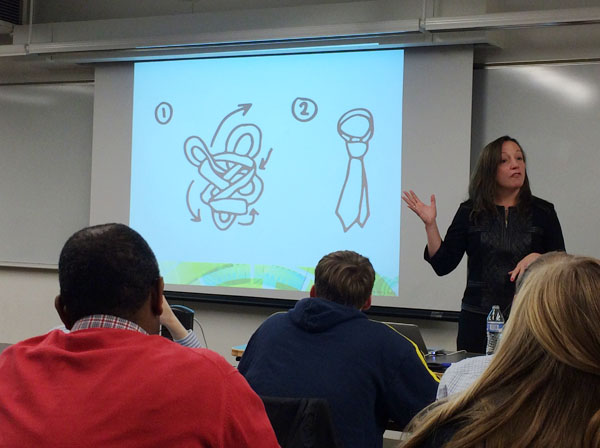 |
December 8, 2014:Dr. Jeanne M. Huddleston was the final featured speaker in the “Providing Better Healthcare through Systems Engineering” series presented by the Center for Healthcare Engineering and Patient Safety (CHEPS). Attendees came from the HEPS master’s program, the Department of Industrial Operations Engineering, the University of Michigan Health System, CHEPS, and the School of Public Health.
Dr. Huddleston, MD, MS, FACP, FHM is a past President of the Society of Hospital Medicine and the founder of Hospital Medicine at the Mayo Clinic, Rochester, MN. She is the Medical Director of Mayo Clinic’s Healthcare Systems Engineering Program. She founded and led the Mayo Clinic 100% Mortality Review System for nearly 12 years. She received her MD degree in 1993 from Michigan State University and internal medicine residency at Mayo Clinic. Dr. Huddleston is a Harvard Macy Scholar (Physician Educator and Leadership Programs) and alumnus of the first class of the Health Forum/NPSF Patient Safety Leadership Fellowship. As a Mayo Clinic Scholar in the Science of Health Care Delivery, she completed a certificate program in clinical research (Mayo Clinic), a masters degree in industrial engineering, and certificate of statistics (Arizona State University). She most recently obtained a Lean Six Sigma Black Belt. Dr. Huddleston’s focus is the translation of industrial and systems engineering principles to health care delivery in an effort to improve the safety, efficiency and reliability of the healthcare experience for patients, their families and all providers. Dr. Huddleston’s seminar, titled “The Science of Health Care Delivery,” highlighted recent work at the Mayo Clinic. As our population ages and an increased number of people are requiring care for complex conditions, it is critical that patients are receiving the best care in a timely manner. Numerous obstacles make healthcare today unreliable, inefficient, and wasteful, threating patient safety and causing deadly mistakes. Dr. Huddleston emphasized the importance of communication between all specialties: engineers, physicians, nurses, pharmacists, and more. There is no one discipline that can solve the problems of health care. To meet the needs of patients today and transition to new value-based payment models, we must combine analytics, decision support, lean systems, quantitative process analysis, stakeholder engagement, innovative solution design and human factors. Thank you to all of our speakers and guests who were able to attend the seminar series this semester! It has been encouraging to hear about the innovative and cutting-edge work engineers and healthcare professionals are accomplishing together. We are looking forward to next year’s seminar series! |
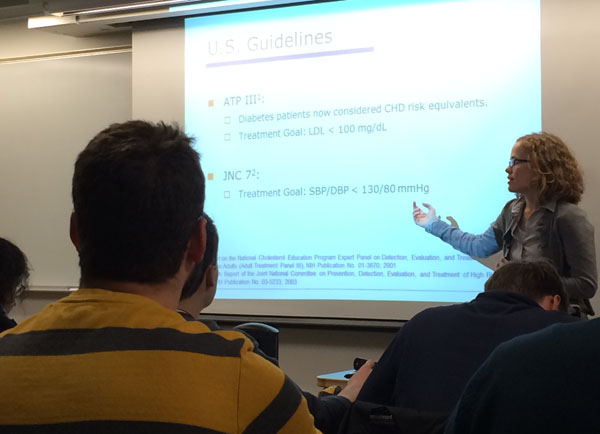 |
December 1, 2014:Dr. Jennifer Mason Lobo was the tenth featured speaker at the December 1st seminar of the “Providing Better Healthcare through Systems Engineering” series presented by the Center for Healthcare Engineering and Patient Safety (CHEPS). Attendees came from the HEPS master’s program, the Department of Industrial Operations Engineering, the University of Michigan Health System, CHEPS, and the School of Public Health.
Dr. Mason is an Assistant Professor of Biomedical Informatics in the Department of Public Health Sciences in the School of Medicine at the University of Virginia. She received her Ph.D. in Industrial & Systems Engineering in 2012 from North Carolina State University (NCSU), her M.Sc. in Operations Research from NCSU in 2009, and her B.Sc. in Mathematics from the University of South Carolina in 2007. She is the recipient of an AHRQ Dissertation Grant and received third place in the 2013 IIE Pritsker Doctoral Dissertation Award. Her research interests include building mathematical models that describe the natural course of disease for patients with chronic conditions, and optimizing treatment and screening decisions. Her current research involves optimizing clinical decision making for patients with type 2 diabetes, prostate cancer, and renal cell carcinoma. Dr. Mason’s seminar, titled “Markov Decision Processes for Optimal Treatment Design for Patients with Type 2 Diabetes,” focused on the use of a Markov decision process to optimize treatment for diabetic patients. The goal of the MDP is to maximize the patient’s quality of life by preventing complications such as heart attacks and strokes while minimizing healthcare costs by determining the optimal timing of prescribing medications over a patient’s lifetime. Her talk led to great discussion about the current guideline for managing diabetic patients and how the MDP model optimizes patient’s quality of life at a lower cost. Two extensions of the model were also presented for alternative assumptions about medication use. In the first extension considers constraints on medication use to reduce multiple medications, and the second extension considers the use of aspirin therapy to reduce the risk of a heart attack or stroke. Join us next week for our last seminar and discussion of the semester! See our full schedule here. |
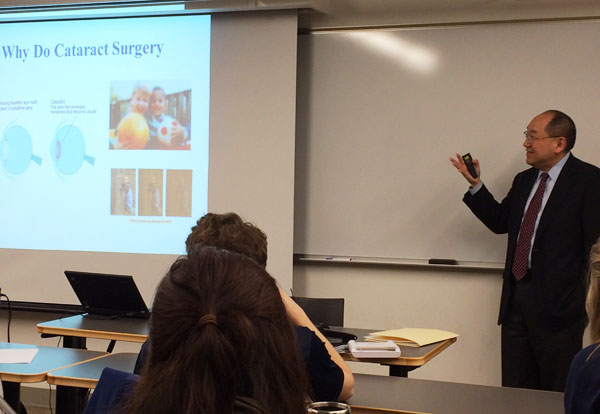 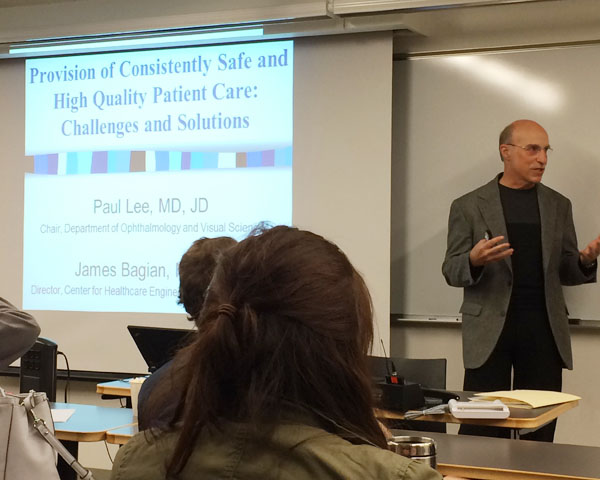 |
November 24, 2014:Dr. James P. Bagian and Dr. Paul P. Lee were the ninth featured speakers at the November 24th seminar of the “Providing Better Healthcare through Systems Engineering” series presented by the Center for Healthcare Engineering and Patient Safety (CHEPS). Attendees came from the HEPS master’s program, the Department of Industrial Operations Engineering, the University of Michigan Health System, CHEPS, and the School of Public Health.
Dr. Bagian is the Director of the Center for Healthcare Engineering and Patient Safety and is a Professor in the Department of Anesthesiology in the Medical School and in the Department of Industrial and Operations Engineering in the College of Engineering at the University of Michigan. Previously, he served as the first Director of the VA National Center for Patient Safety (NCPS) and the first Chief Patient Safety Officer for the Department of Veterans Affairs from 1999 to 2010 where he developed numerous patient safety related tools and programs that have been adopted nationally and internationally. Presently, he is applying systems engineering approaches to the analysis of medical adverse events and the development and implementation of systems-based corrective actions that will enhance patient safety primarily through preventive means. He received his B.S. in mechanical engineering from Drexel University and his M.D. from Jefferson Medical College at Thomas Jefferson University. Dr. Lee, M.D., J.D., is the F. Bruce Fralick Professor and Chair of the Department of Ophthalmology and Visual Sciences at the University of Michigan; and Director of the W.K. Kellogg Eye Center. Dr. Lee is a glaucoma specialist and an active clinician, surgeon, and teacher. He has published over 200 papers on glaucoma and eye care delivery, particularly on understanding and improving eye care. His research interests include improving access to and the quality of health care, and exploring the impact of health policy and financing on patients and populations. Dr. Lee also serves as consultant to the Centers for Disease Control and Prevention, on the Board of Directors of the American Board of Ophthalmology, on the Advisory Committee of the Hoskins Center for Patient Safety and Quality of the American Academy of Ophthalmology Foundation, and member of the Board of Governors and Chair of the Foundation of the Association of Research in Vision and Ophthalmology. Dr. Bagian and Dr. Lee’s seminar, titled “Provision of Consistently Safe and High Quality Patient Care: Challenges and Solutions,” focused on interventions to prevent wrong-site surgery and developing system-based policies to promote patient safety. Surgery involving the eyes has the highest incidence for wrong-site surgery. Patients may be scheduled for cataract surgery on their right eye, but due to a number of preventable factors, their left eye may be operated on. Interventions to prevent this from occurring include thoroughly completing consent forms, marking the operating site, identifying the correct patient, taking a time out in the operating room before the procedure, and checking imaging data such as x-rays. A checklist with the previous interventions was developed and implemented throughout the VA in 2001 and an abbreviated version of the checklist was implemented at UMHS in 2011. A checklist example can be viewed here. The culture and leadership of the organization play into a successful system. In conclusion, a systems based approach to preventable problems is very effective. However, there is more that can be improved to further protect patients from harm. Join us next week for another great seminar and discussion! See our full schedule here. |
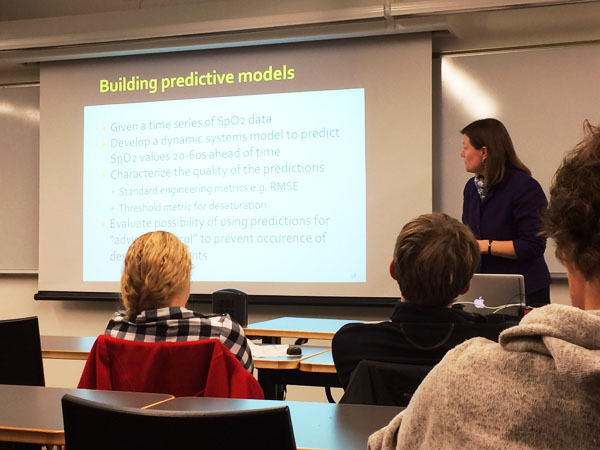 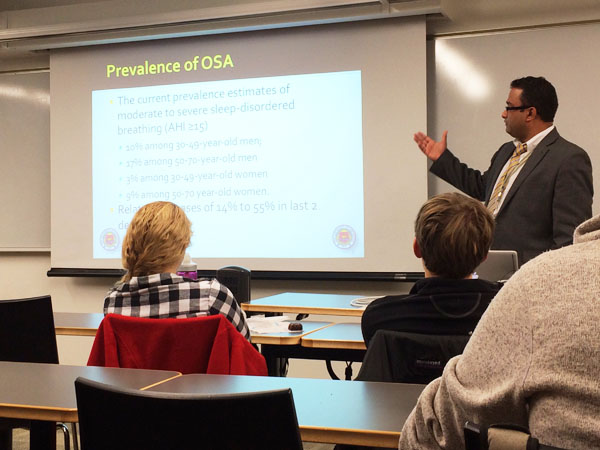 |
November 17, 2014:Krishna Ramachandran and Dawn Tilbury were the eighth featured speakers at the November 17th seminar of the “Providing Better Healthcare through Systems Engineering” series presented by the Center for Healthcare Engineering and Patient Safety (CHEPS). Attendees came from the HEPS master’s program, the Department of Industrial Operations Engineering, the University of Michigan Health System, CHEPS, and the School of Public Health.
Dr. Ramachandran’s target condition of interest is obstructive sleep apnea. Through retrospective and prospective study methods, his research focuses on the effect of anesthesia on state changes in patients’ physiology. He has also developed screening tools for sleep apnea and postoperative respiratory complications. His work with Dr. Tilbury involves studies into changes in respiratory physiology occurring during sleep and anesthesia. Dr. Dawn M. Tilbury is currently the Associate Dean for Research in the College of Engineering, University of Michigan. She received the B.S. degree in Electrical Engineering, summa cum laude, from the University of Minnesota in 1989, and the M.S. and Ph.D. degrees in Electrical Engineering and Computer Sciences from the University of California, Berkeley, in 1992 and 1994, respectively. In 1995, she joined the Mechanical Engineering Department at the University of Michigan, Ann Arbor, where she is currently Professor, with a joint appointment as Professor of EECS. Her research interests include distributed control of mechanical systems with network communication, logic control of manufacturing systems, reliability of ground robotics, and dynamic systems modeling of physiological systems. She was elected Fellow of the IEEE in 2008 and Fellow of the ASME in 2012, and is a Life Member of SWE. Dr. Ramachandran and Dr. Tilbury’s seminar, titled “Prediction of Impending Desaturation: Using Signal Analysis for Building Novel Phenotype State Concepts,” focused on a new approach for evaluating predictions of oxygen saturation levels in blood (SpO2). Using linear auto-regressive models built using oxygen saturation (Sp02) data, they can predict a patient’s future Sp02 readings. The combination of predictive models with frequent pulse oximetry measurements can be used as a warning of critical oxygen desaturations that may have adverse effects on the health of patients. Join us next week for another great seminar and discussion! See our full schedule here. |
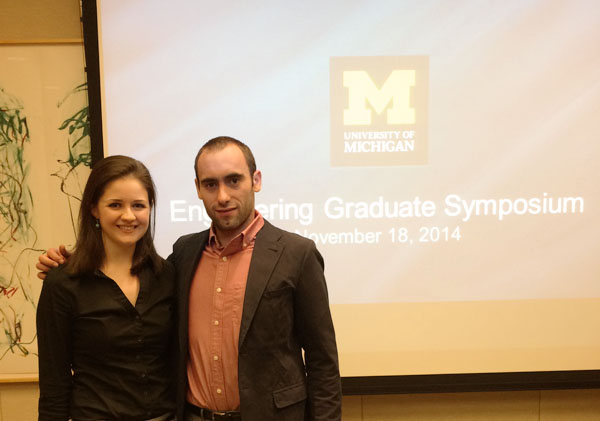 |
November 14, 2014:Hundreds of engineering graduate students gathered to present posters at the Engineering Graduate Symposium held November 14th. Divided into nineteen engineering sub-categories, each group had first and second place winners. Within the Industrial, Operations, and Financial Engineering category, IOE PhD students Jeremy Castaing and Christine Barnett received first and second place respectively.
Jeremy’s research focuses on optimizing patients’ appointment schedules in a Cancer Infusion Center that can reduce patient wait times and the total length of operation of the center, providing high quality patient care in a timely manner. Christine’s research focuses on optimizing the use of prostate cancer biomarker tests and analyzing the benefits and harms of this screening to cancer patients and their overall health outcomes. Congratulations to the students on their innovative healthcare engineering research! |
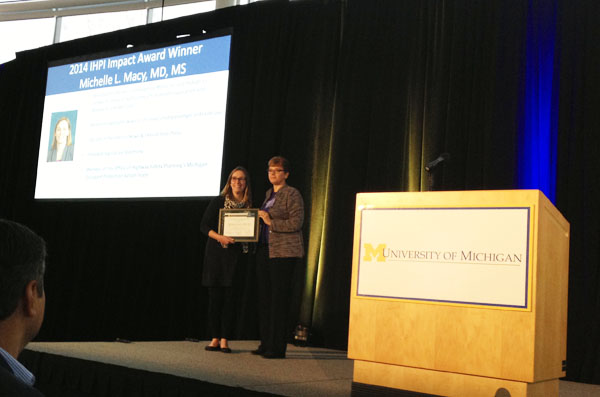 |
November 13, 2014:A big congratulations to CHEPS affiliate, Dr. Michelle Macy, on her recent Institute for Healthcare Policy and Innovation (IHPI) Impact Accelerator Award for Junior Faculty. The award was presented at the November 13th IHPI Member Forum. Dr. Macy is an advocate for child safety seats, evident in her research, and determined to work for policy reform to modify the current Michigan Child Passenger Safety Law to better protect Michigan’s children. To learn more about Dr. Macy’s work and her passion for safety, check out this editorial she wrote for the Detroit Free Press. |
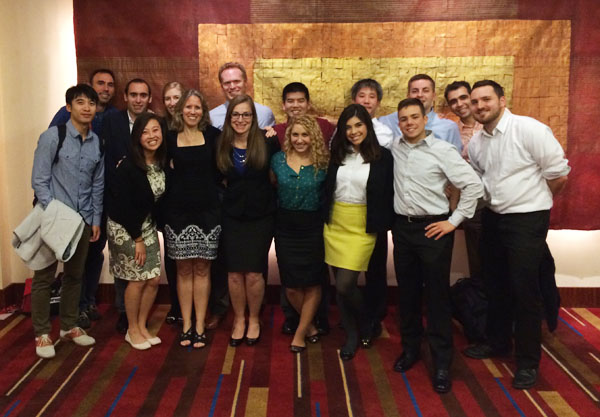 |
November 12, 2014:The 2014 Institute for Operations Research and the Management Sciences (INFORMS) Conference took place in San Francisco, November 9th thru November 12th. Over six thousand attendees from around the world gathered to discover and share past, present, and future research that will transform operations and management sciences. The packed hotel and hundreds of presentations occurring at once demonstrated the significance and vastness of the INFORMS conference. Presentations focused on healthcare engineering from the University of Michigan were well attended and had fantastic discussion and feedback.
Presentations Sunday
Monday
Tuesday
Wednesday
University of Michigan Reception The University of Michigan College of Engineering hosted a reception for the College’s INFORMS attendees on Monday, November 10th. Current faculty, staff, and students as well as alumni and other guests enjoyed great food, refreshments, and company! It was fantastic to connect and reconnect with people in the engineering community, especially at a conference dedicated to improving operations through engineering methods and research. We are looking forward to INFORMS 2015! |
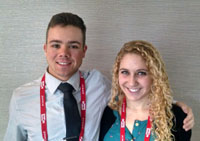 |
November 10, 2014:CHEPS students Elizabeth Olin and Peter Mayoros are featured in a blog post on the INFORMS 2014 Annual Meeting blog, “INFORMS: Perspectives – Peter Mayoros and Elizabeth Olin on Healthcare Scheduling.” The post focuses on their experience attending INFORMS as undergraduate students and their research on healthcare scheduling. Elizabeth will deliver a talk titled “Predicting Disposition for Pediatric Asthma Patients” on Wednesday, November 12th. Peter presented “Block Scheduling for a Pediatric Residency Program” on Monday, November 10th. |
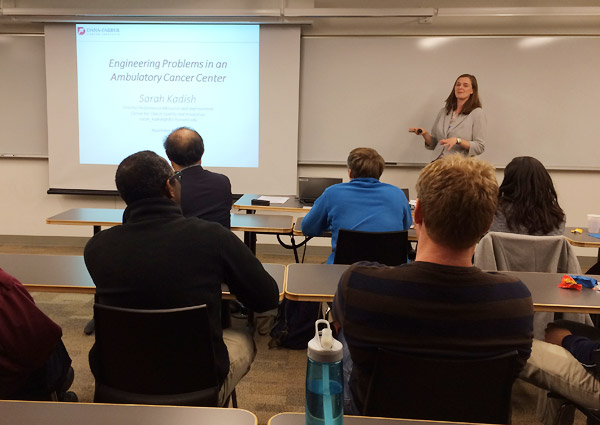 |
November 3, 2014:Sarah Kadish was the seventh featured speaker at the November 3rd seminar of the “Providing Better Healthcare through Systems Engineering” series presented by the Center for Healthcare Engineering and Patient Safety (CHEPS). Attendees came from the HEPS master’s program, the Department of Industrial Operations Engineering, the University of Michigan Health System, CHEPS, and the School of Public Health.
Ms. Kadish has a Masters of Industrial Engineering from Northwestern University and a Bachelors in Industrial and Operations Engineering from The University of Michigan. She launched the Industrial Engineering and Resource Planning Departments at JetBlue Airways in 2003. In 2008, she joined the Dana-Farber Cancer Institute, a Harvard affiliated academic medical center focusing on oncology. Sarah has led the Process Improvement team to support various efforts throughout the organization. She utilizes methods such as Lean, Six Sigma, computer simulations, time studies, and data analytics to drive process improvement. Her efforts have supported projects such as planning new facilities, improving patient flow, and the Epic implementation. Ms. Kadish’s seminar, titled “Engineering Problems in an Ambulatory Cancer Center,” focused on how industrial engineering techniques and methods can fully optimize the operations of ambulatory oncology care. She provided project examples of engineering improvement in ambulatory cancer care from the Dana-Farber Cancer Institute in Boston, Massachusetts including improving timeliness of breast cancer care, chemotherapy and radiation treatment, and patient flow utilizing real time locating systems (RTLS). Her seminar drove great discussion, particularly about the use of the RTLS and how patients and providers have adopted this tracking system. This tracking system has allowed patients to know where they are in the process of receiving cancer treatments. Additionally, healthcare providers are able to see how long a patient has been waiting or where a provider is located so he or she can be consulted. As technology becomes more advanced, health systems can utilize these devices to better care for patients. It is exciting to see the use of operations engineering in healthcare settings! CHEPS is going to INFORMS so there is no seminar next week. We will resume session on November 17. See our full Fall 2014 schedule here. |
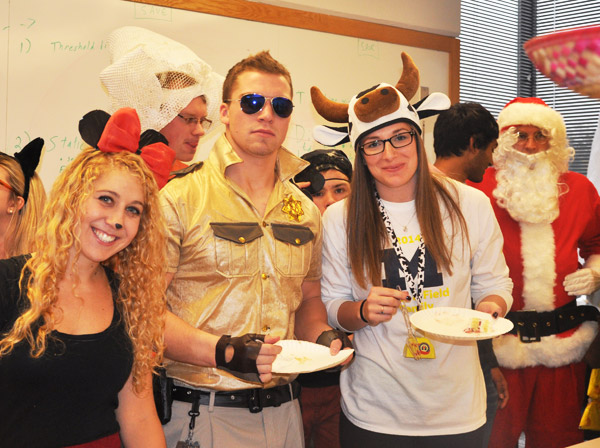 |
October 31, 2014:Boo! The first annual CHEPS Halloween Costume Party was Friday afternoon. Students and others were treated to a multitude of sweets including five different types of cakes, brownies and cookies, and of course tons of candy! Everybody dressed up whether they had costumes or unique handmade hats. Decorations and spooky music put everybody in the Halloween spirit.
The best part of the party was the costume catwalk competition when everybody walked down the hall showing off his or her costumes and was judged by Peter. Nate Janes, dressed as a police officer, won the best costume competition and was rewarded with a dozen donuts. We are looking forward to next year’s Halloween celebration! |
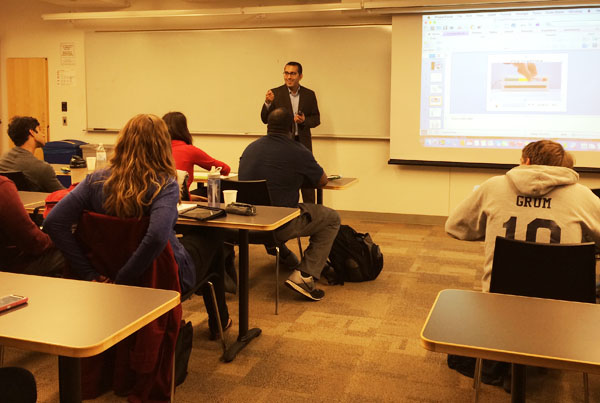 |
October 27, 2014:Dr. Vineet Chopra was the sixth featured speaker at the October 27th seminar of the “Providing Better Healthcare through Systems Engineering” series presented by the Center for Healthcare Engineering and Patient Safety (CHEPS). Attendees came from the HEPS master’s program, the Department of Industrial Operations Engineering, the University of Michigan Health System, CHEPS, and the School of Public Health.
Dr. Chopra is an Assistant Professor of Medicine and Research Scientist at the University of Michigan School of Medicine and the Ann Arbor VA Medical Center. A career hospitalist, Dr. Chopra’s research is dedicated to improving the safety of hospitalized patients through prevention of hospital-acquired complications. Recently, Dr. Chopra has focused on identification and prevention of complications associated with vascular catheters including infection and thrombosis, with a keen eye to develop risk prediction tools to avert such events. Dr. Chopra is funded by an AHRQ Career Development Award and has received grant support from the National Institute of Aging and the Blue Cross/Blue Shield Foundation of Michigan. He is the recipient of numerous awards including the 2014 McDevitt Award for Research Excellence and the 2014 Society of Hospital Medicine Young Investigator Award, given to a single investigator whose work stands to most impact the field of hospital medicine. Dr. Chopra’s seminar, titled “Why We Should Be Piccy: The Problem with Peripherally Inserted Central Catheters,” focused on the growth of peripherally inserted central catheter (PICC) use in hospitals and how PICCs can be dangerous to patients. Over the last decade, the use of PICCs have increased because it allows patients to administer their own medications in the comfort of their homes, nurses are able to be specially trained to insert the catheter which decreases physician and hospital costs, it allows incompatible drugs to be administered at the same time, and patients can have these catheters for extensive periods of time. However, having a PICC can increase a patient’s risk of infection and other complications. Dr. Chopra’s work led to a partnership with biomedical engineering and the development of novel technology to improve the use of PICCs in hospitalized patients. Collaborations between engineers and healthcare professionals lead to innovative technology that can be used to better care for patients. Dr. Chopra’s talk led to great discussion about the use of this technology and how it will impact not only the patient, but also the hospital system as a whole. We are looking forward to next week’s seminar and discussion! See our full Fall 2014 schedule here. |
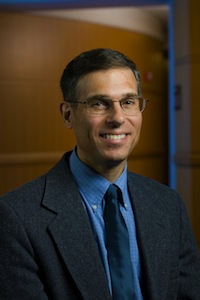 |
October 23, 2014:Professor Wallace Hopp, a CHEPS affiliate, discusses Ebola in a recent MconneX video. “This isn’t just a public health issue,” he says. “The same principles we use to design safe aircraft and nuclear reactors can be used to design safe healthcare delivery systems and we need those right now.”
Hopp is a professor of Industrial and Operations Engineering at the University of Michigan, the Herrick Professor of Business and a Professor of Technology and Operations in the U-M Ross School of Business, and Senior Associate Dean for Faculty and Research. His research focuses on the design, control and management of operations systems, with emphasis on manufacturing and supply chain systems, innovation processes, and health care systems. Watch the video to learn more about how engineering can help in high-risk health situations including the treatment of Ebola. |
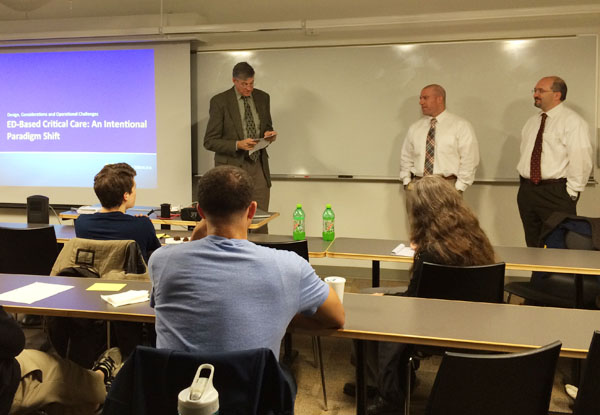 |
October 20, 2014:Dr. Benjamin Bassin and Dr. Cemal Sozener were the fourth featured speakers at the October 20th seminar of the “Providing Better Healthcare through Systems Engineering” series presented by the Center for Healthcare Engineering and Patient Safety (CHEPS). Attendees came from the HEPS master’s program, the Department of Industrial Operations Engineering, the University of Michigan Health System, CHEPS, and the School of Public Health.
Drs. Ben Bassin and Cemal Sozener are Assistant Professors and faculty members in the Department of Emergency Medicine at the University of Michigan Medical School. Dr. Bassin received his B.S. and M.D. degrees from the University of Michigan and completed residency training in Emergency Medicine at the University of Cincinnati. Dr. Sozener received his B.S., M.Eng. and M.D. degrees from the University of Michigan and completed training in Emergency Medicine at Michigan. Both served as chief residents at their respective training programs. Their work has focused on incorporating lean-based design to optimize patient flow and increase the efficiency and utilization of clinical space through process improvement. Dr. Bassin’s and Dr. Sozener’s seminar, titled “Emergency Department Based Critical Care – Design, Development and Operational Considerations,” focused on the complexities of patient care in the Emergency Department (ED) at the University of Michigan (UMHS). The number of critically ill patients being treated in the emergency department at UMHS has grown over the years as a result of advanced diseases and the aging population. Dr. Bassin and Dr. Sozener discussed challenges a hospital faces that impact patient care, including having limited resources (i.e. staff, equipment, beds, and physical space). After careful considerations of the limitations with the current state of critical care provision in the ED, as well as operational optimization of existing processes to mitigate impact, a decision was reached to build a dedicated critical care space in the adult ED. This is the first dedicated and specifically designed unit in the country for specialized Emergency Critical Care and is likely to establish the precedent on which all subsequent units within peer institutions across the country will be designed. Their talk motivated great discussion regarding the complexities of a health system. Many different factors and variables influence the flow of the hospital. If part of the system is experiencing difficulties, other areas may also be facing similar challenges. Multidisciplinary teams can work together to find optimal solutions that will ultimately provide the best care to patients. A big thank you to Mark Van Oyen for hosting the seminar today! We are looking forward to next week’s seminar and discussion! |
 |
October 10, 2014:CHEPS and other engineering students were treated to a Lunch and Learn with University of Michigan College of Engineering alumnus, Ross Miller. Ross discussed his experience since graduating, provided a brief description of BUMED, explained a few of his projects.
Ross Miller graduated in 2011 with a B.S.E. in IOE. After graduating, he worked at Tefen, a small consulting firm focused on process improvement projects in the Healthcare, Manufacturing, and Semiconductor industries. During his time there he worked on a project in the Cardiac Surgery department at a major teaching hospital in Boston, and project pertaining to bed utilization at a large hospital in Dallas, and a project at a Semiconductor fabrication facility in southern California. He has since transitioned to a new company, the Johns Hopkins University – Applied Physics Lab (JHUAPL), that performs process improvement projects in Navy medical facilities across the country. In his time at JHUAPL, he has worked on Main Operating Room (MOR) projects at a medical facilities in San Diego and Camp Pendleton, and is currently working on a project involving Family Practice clinics in Norfolk, VA. When asked about the challenges he faces working in healthcare, Ross discussed the communication with healthcare professionals, stating “that’s been the hardest thing for me – telling the story…” Showing the hospital different interventions the engineering team would like to implement may require convincing presentations and speaking in healthcare terms. It is about discussing suggestions they have to improve certain processes with the hospital and working as a team. Vanessa Morales, a HEPS master’s student who attended the Lunch and Learn said, “It was great seeing an old IOE student working in what I want to work in. So often students get disillusioned with their first jobs after graduation, but the line of work Ross shared with us excited me for future professional endeavors.” Follow this link to see slides from Ross’ talk. Thank you, Ross! |
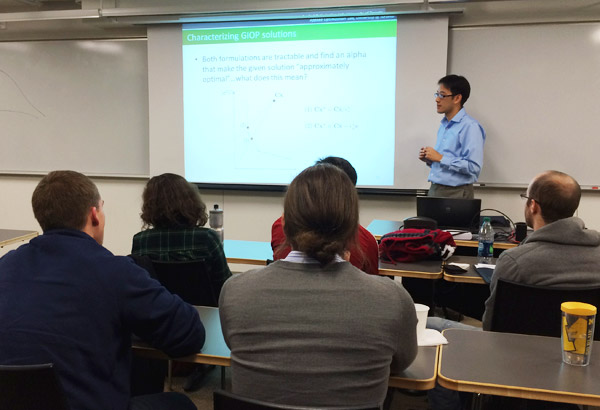 |
October 6, 2014:Dr. Timothy Chan was the fourth featured speaker in the “Providing Better Healthcare through Systems Engineering” series presented by the Center for Healthcare Engineering and Patient Safety (CHEPS). Attendees came from the HEPS master’s program, the Department of Industrial Operations Engineering, the University of Michigan Health System, CHEPS, and the School of Public Health.
Dr. Chan is an Associate Professor in the Department of Mechanical and Industrial Engineering at the University of Toronto and Director of the Centre for Research in Healthcare Engineering. He received his BSc in Applied Mathematics from the University of British Columbia (2002), and his PhD in Operations Research from the Massachusetts Institute of Technology (2007). Professor Chan was an Associate in the Chicago office of McKinsey and Company, a global management consulting firm (2007-2009). During that time, he advised leading companies in the fields of medical device technology, travel and hospitality, telecommunications, and energy on issues of strategy, organization, technology and operations. Dr. Chan’s seminar, titled “Inverse Optimization and Applications to Knowledge-based Radiation Therapy Treatment Planning,” included two parts: the first about inverse optimization broadly and the second about using inverse optimization to improve the planning process of radiation therapy treatment planning for cancer. His generalized inverse optimization model specializes to the standard model when the given solution is weakly efficient and retains the complexity of the underlying forward problem. Using a statistical model that predicts objective function weights from patient anatomy for prostate Intensity-modulated radiation therapy (IMRT) planning. Victor Wu, a PhD student who attended the seminar said, “Professor Chan gave an excellent seminar. He did a great job of explaining both the operations research and clinical perspectives of his research, which catered to the diverse audience in attendance. Furthermore, the clinical implications are really exciting: his work will both advance knowledge-based treatment planning and improve the quality of patient-personalized treatments. “ What a great seminar! Due to fall break, we will resume seminar sessions on October 20. Follow this link to a full list of this semester’s seminar speakers. |
 |
October 1, 2014:CHEPS Associate Director Amy Cohn is the recipient of a 2014 MICHR Distinguished Clinical and Translational Research Mentor Award. The awardees were recognized at the 2014 MICHR Symposium titled “Coloring Outside the Lines: Innovating and Collaborating in the Changing World of Health Research” on October 1, 2014.
The award honors the efforts and accomplishments of faculty who demonstrate consistent, high quality research and career mentoring in areas of clinical and translational and health research. It recognizes the important role mentoring plays in ensuring the personal and professional development of a mentee. “We wanted to nominate Amy as a way to express our gratitude for the tremendous opportunities she has made available to us. She has been a role model for so many of us that we felt obligated to recognize that and honor her for her tireless effort. When I read the qualifications for the award, it was clear to me that Amy exceeded the requirements in every way and so I am so glad that the award committee was able to see that as well. No one is more deserving!” said Billy Pozehl, one of the students behind the nomination. |
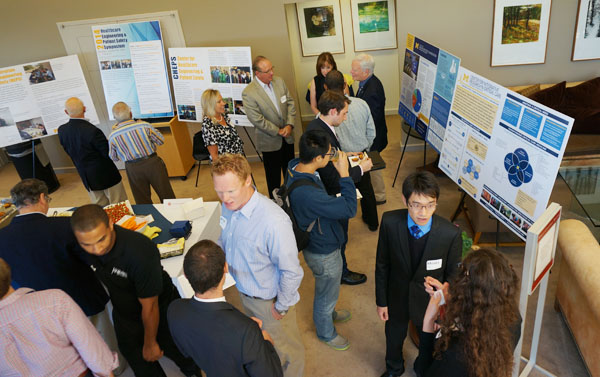 |
September 29, 2014:On September 29th, 2014 CHEPS hosted the Second Annual Symposium on Healthcare Engineering & Patient Safety. The approximately 150 attendees came from a variety of University of Michigan departments including Engineering, the School of Public Health, the Health System, the Medical School, the School of Nursing, and the Institute for Healthcare Policy and Innovation. Several attendees also came from outside the university.
Those in attendance had the opportunity to view six presentations on collaborative research in healthcare engineering and patient safety and view over 30 posters which highlighted research projects and various healthcare engineering related units throughout the university. “I was impressed with all of the work by the students and the interdisciplinary approach to solving our healthcare problems,” said Lucy Young, Director of Quality & Performance Excellence for the Henry Ford Health System. The student presentations were:
Several students who attended the event shared their thoughts on the experience. “I really enjoyed the posters and presentations by attendees outside of CHEPS. It was interesting to learn about other applications of industrial engineering in healthcare, share ideas, and identify methods that could be applied to our CHEPS projects. Specifically, I got to spend some time with Rob Mersereau from Dana Farber. Learning about Dana Farber’s operations and comparing them to the Cancer Center at UMHS provided me with new perspectives on cancer center operations and many ideas for improvement.” – Sarah Bach, Healthcare Engineering & Patient Safety Master’s Student “I thought that the Symposium was very well put together and attended. I thoroughly enjoyed seeing the wide variety of posters and presentations that were put together by my peers and work colleges. It was great seeing them present their work and for the community to be so supportive of and interested in it.” – Nathan Janes, Undergraduate Industrial & Operations Engineering Student “As an undergraduate who is just beginning my involvement in research, the Symposium was an enriching and inspiring experience that opened my eyes to the possibilities ahead. The dedication of the current students to their various projects was obvious through their comprehensive posters and passionate presentations. The Symposium is a magnificent opportunity for everyone to see the progress and success of CHEPS from the previous year, and to get a glimpse of the promises for the future.” – Brittany Lopez, Undergraduate Industrial & Operations Engineering Student “It was exciting to be part of the symposium! Presenting my research, being surrounded by a plethora of healthcare professionals and eager students from an array of disciplines was a truly unique experience.” – Vanessa Morales, Healthcare Engineering & Patient Safety Master’s Student “The Symposium was a terrific opportunity to reconnect with both old friends and people that have played an important role in mentoring me along the way to become a more effective engineer working in healthcare.” – William Pozehl, Healthcare Engineering & Patient Safety Master’s Student “I found the Symposium to be an incredible experience of people coming together to discuss how we can make healthcare better. The multidisciplinary aspect, as well as all the incredible research being done, was profoundly inspiring.” – Matthew Rouhana, Undergraduate Industrial & Operations Engineering Student “I was really impressed by all the cross-discipline networking that I saw, and I think that matches CHEPS mission perfectly.” – Zachary Verschure, Undergraduate Industrial & Operations Engineering Student “The CHEPS symposium was an informative and inspirational event. Learning about the different efforts engineers put into providing better healthcare is exciting. Moreover, it was very motivating to hear the success stories of recent HEPS graduates!” -Pamela Martinez Villarreal, Healthcare Engineering & Patient Safety Master’s Student Tweets from the event can be viewed at the #chepssymposium hashtag. |
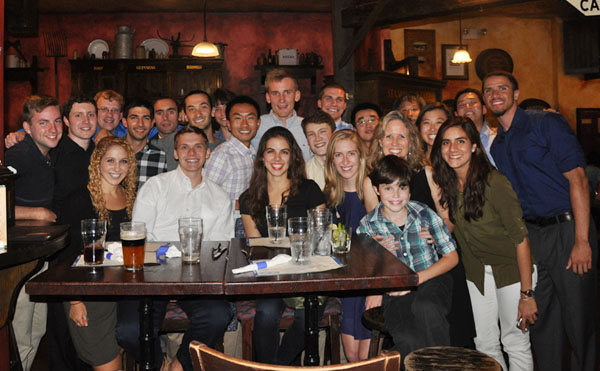 |
September 26, 2014:Members of the CHEPS community gathered at Conor O’Neill’s in downtown Ann Arbor on Friday, September 26th. The get-together was part of a series of events centered around the 2nd Annual Symposium on Healthcare Engineering & Patient Safety which took place the following Monday, September 29th. The group included CHEPS undergraduate and graduate students, faculty members, returning CHEPS alumni, and other CHEPS associates.
Merrill Bonder of the Bonder Foundation was in attendance and made brief remarks highlighting how happy she was to be attending the weekend events and how proud she was of what CHEPS has accomplished and of the CHEPS students The Bonder Foundation supports. It was a lively evening with lots of great conversations and catching up with recent CHEPS graduates who returned to town for the dinner and symposium. “It felt like a family,” said Stephanie See, a CHEPS alumnus who attended the event. Hassan Abbas, a nursing undergraduate who works with CHEPS said, “The CHEPS reunion was truly a great night. Being together in a room full of healthcare engineering professionals, former students, and professors was really a great opportunity to network and learn. Having the opportunity to speak to other students about their past projects, and comparing them to what the projects look like now was awesome! The food was wonderful and being dressed up with everyone in CHEPS made it a special night!” |
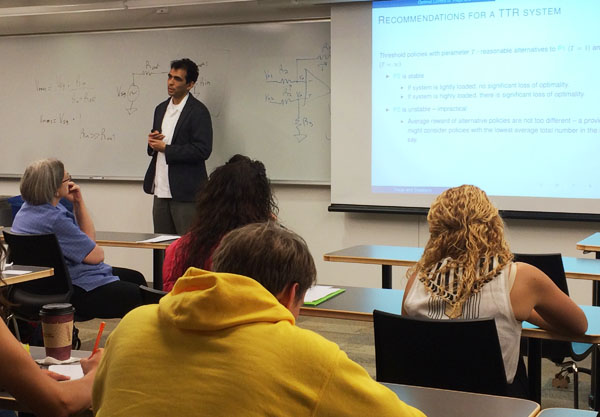 |
September 22, 2014:Dr. Gabriel Zayas-Caban was the third featured speaker at the September 22nd seminar of the “Providing Better Healthcare through Systems Engineering” series presented by the Center for Healthcare Engineering and Patient Safety (CHEPS). Attendees came from the HEPS master’s program, the Department of Industrial Operations Engineering, the University of Michigan Health System, CHEPS, and the School of Public Health.
Dr. Zayas-Caban is a post-doctorate at the Center for Healthcare Engineering and Patient Safety (CHEPS). He completed his PhD at Cornell University. He has been awarded the 2013 Zellman Warhaft Commitment to Diversity Graduate Student Award from Cornell’s Diversity Program in Engineering; Cornell/Sloan Fellowship, 2011-2014; and National Defense Science and Engineering Graduate Fellowship, 2008-2011. Recent research projects include “Emergency Medical Service Allocation in response to Large Scale Events” and “Optimal Control of an Emergency Room Triage and Treatment Process.” Dr. Zayas-Caban’s seminar, titled “Optimal Control of an Emergency Room Triage and Treatment Process,” focused on assessment and treatment of patients in the emergency department. His work considered the question of how to prioritize the work by the medical providers to balance initial delays for care with the need to discharge patients in a timely fashion. He looked at a multi-server two-stage tandem queueing model. With this model, we assume that patients receive the first phase of service (triage). Afterwards, patients go to the second service (treatment). However, patients may leave the system before receiving treatment. Dr. Zayas-Caban used a Markov decision process formulation and sample path arguments to determine the optimal dynamic policy for the medical service provider. His seminar led to great discussion about the prioritization of the two phases and patient rewards. Emergency departments face many complexities and variability in terms of patients and providers, making this a complicated problem to solve. Future directions include looking at other challenges relevant to healthcare and further optimize the process. Join us at the CHEPS annual symposium on Monday, September 29 from 5-7:30 at the Robert H. Lurie Engineering Center! We will resume seminar sessions on October 6. |
| September 18, 2014:On September 18th a CQI Brown Bag took place on the topic of “Securing Our Devices: Protecting Our Data.” For those who were unable to attend, the information presented is available at http://www.med.umich.edu/u/compliance/training.htm. | |
 |
September 15, 2014:Dr. Brian Denton was the second featured speaker at the September 15th seminar of the “Providing Better Healthcare through Systems Engineering” series presented by the Center for Healthcare Engineering and Patient Safety (CHEPS). Attendees came from the HEPS master’s program, the Department of Industrial Operations Engineering, the University of Michigan Health System, CHEPS, and the School of Public Health.
Dr. Denton is an Associate Professor in the Department of Industrial and Operations Engineering at University of Michigan, in Ann Arbor, MI. Previously, he has been an Associate Professor in the Department of Industrial & Systems Engineering at NC State University, a Senior Associate Consultant at Mayo Clinic, and a Senior Engineer at IBM. He is past president of the INFORMS Health Applications Section and he is currently serving as Secretary of INFORMS. His primary research interests are in optimization under uncertainty and applications to health care delivery and medical decision making. He completed his Ph.D. in Management Sciences at McMaster University, his M.Sc. in Physics at York University, and his B.Sc. in Chemistry and Physics at McMaster University in Hamilton, Ontario, Canada. Dr. Denton’s seminar, titled “Operations Research in Medicine: Past, Present, and Future,” focused on the history of operations research in healthcare. He described a number of healthcare engineering applications including cancer screening, diabetes treatment, glaucoma monitoring, organ transplants, and more. Operations research has had an impact in the past. For example, engineers looked at using discrete event simulation to optimize the number and quality of kidney transplants back in the 1980s. Because of these optimization models, paired kidney transplants are growing, saving lives around the country. Check out the video below for more information about kidney exchanges today and see the complexities of optimizing these transplants. Operations research is evolving. Future directions include personalized medicine, new biomarkers for early detection of diseases, and the development of artificial and regenerated organs. In conclusion, “Operations Research is improving medical decision making and vice versa.” We are looking forward to more great seminars and discussions! See our full schedule here. |
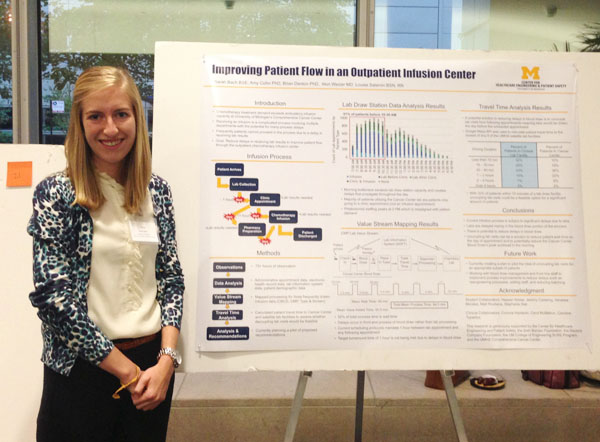 |
September 13, 2014:HEPS master’s student Sarah Bach presented “Improving Patient Flow in an Outpatient Infusion Center” at the Health Systems Optimization Workshop hosted by Northwestern University. The workshop, sponsored by the National Science Foundation (NSF), was intended to accelerate the exchange of research ideas in a cross-disciplinary setting. The focus was on policies, operations, and delivery of care.
“Attending and presenting at the Health Systems Optimization Workshop was a great experience which allowed me to learn about new and exciting applications of industrial engineering to healthcare, interact with professionals in the field, and present the work CHEPS has been collaborating on with the Cancer Center. I especially enjoyed the healthcare focus of the conference which allowed for discussion of the unique opportunities and challenges of working in this complex field. I hope conferences of this nature continue to grow in the future and that CHEPS students continue to attend!” Sarah said of the experience. |
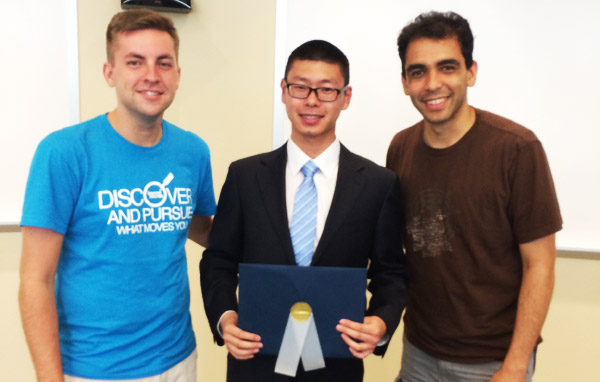 |
September 12, 2014:CHEPS student Ji Wang was recognized with an award from The Wang Chu Chien-Wen Summer Research Fund. The fund was established by Tony K. Wang (BSE ’73, MSE ’75) in memory of his mother, Wang Chu Chien-Wen, and is intended to encourage motivated undergraduates to conduct faculty-mentored research projects during the summer, to write a formal report on their findings, and to present their work to their faculty advisor and peers. Ji presented the results of his summer research on both the CHEPS Pediatric Residency Scheduling project as well as on an aviation project. Both projects were advised by CHEPS Associate Director, Professor Amy Cohn. |
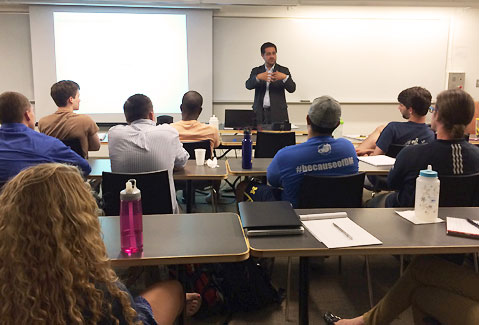 |
September 8, 2014:Dr. Ruben A. Proano was the first featured speaker at the September 8th seminar of the “Providing Better Healthcare through Systems Engineering” series presented by the Center for Healthcare Engineering and Patient Safety (CHEPS). Attendees came from the HEPS master’s program, the Department of Industrial and Operations Engineering, the University of Michigan Health System, CHEPS, and the School of Public Health.
Dr. Proano is an Assistant Professor in the Department of Industrial and Systems Engineering at the Rochester Institute of Technology. He received his M.S. and Ph.D degrees in Industrial Engineering from the University of Illinois at Urbana-Champaign. His research work has focused on the application of optimization models to the solution of problems affecting the supply of pediatric vaccines, and the implementation of isolation requirements for preventing HAIs. He is currently interested on data mining approaches for episode-of-care characterization and for early detection dementia. Dr. Proano’s seminar, titled “Mitigating the Impact of Applying Isolation Requirements in Hospital Bed Assignments,” focused on the challenges of transferring patients who are already admitted to different rooms in the hospital unit (i.e. internal movements). The limited number of beds, nursing time availability, and the need to implement isolation guidelines that prevent healthcare associated infections complicate these transfer decisions. Dr. Proano discussed the use of an optimization model integrated into a Monte Carlo simulation to evaluate how the hospital unit’s configuration affects the number of internal movements. The seminar led to great discussion from attendees. One student asked, “What was the hospital’s perception of the simulation results? Were they surprised; did they agree?” Dr. Proano discussed the importance of collaborating with the hospital, working with the nurses, physicians, and other members of the healthcare team. Maintaining an open line of communication allows for system changes, which in turn improves patient care. This is just the beginning of the series. We are looking forward to more great seminars and discussions this semester! See the entire series schedule here. |
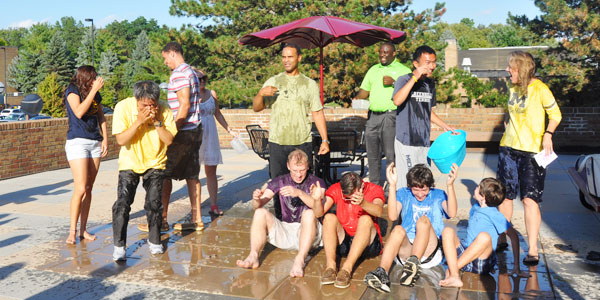 |
September 2, 2014:
Members of the CHEPS community accompanied by Associate Dean for Research and Graduate Education Alec D. Gallimore from the College of Engineering completed the ALS ice bucket challenge raising nearly $400. The purpose of the ice bucket challenge is to raise funds to fight amyotrophic lateral sclerosis (ALS), a progressive neurodegenerative disease that affects nerve cells in the brain and the spinal cord. Both CHEPS and Dean Gallimore were challenged by University of Michigan’s Department of Industrial and Operations Engineering. George Tam, the highest student bidder, got the honor of dousing CHEPS Associate Director Amy Cohn with ice water during the challenge. “I’m personally very excited to be here. My favorite aunt, Rita Burlingame, died from ALS. Her husband, Arthur Burlingame, took care of her to the very end so the idea of raising funds for research for ALS is very important to me and I’m grateful to all of our students who are here sharing in this moment,” said Professor Cohn at the start of the challenge. CHEPS challenged The Institute for Healthcare Policy and Innovation (IHPI), the attendings from U of M’s pediatric emergency department, and CHEPS collaborators at The University of Colorado Hospital. Those interested in donating to ALS research may do so here. |
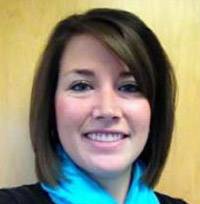 |
August 21, 2014:Congrats to CHEPS affiliate Valerie Chase for the recent publication of her work on “Using A3 thinking to improve the STAT medication process” in the Journal of Hospital Medicine. |
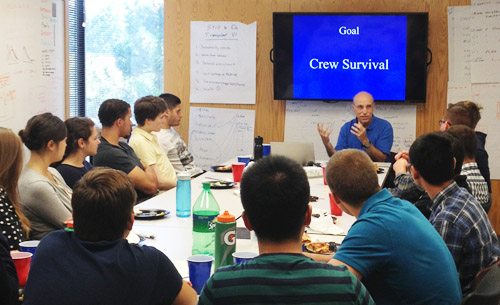 |
August 15, 2014:CHEPS students were treated to a Lunch and Learn courtesy of Dr. Jim Bagian. Dr. Bagian hosted a discussion titled “How Do You Eat An Elephant? – Taking Complex Initiatives From Concept to Reality.”
Dr. Bagian’s discussion centered around the themes of teamwork, how to effectively lead and communicate in team settings, how to break down complex problems into smaller ones, and how to use teamwork and everyone’s abilities to achieve set goals. Dr. Bagian created an interesting and lively discussion about these topics by incorporating stories from his time at NASA. As one student described it, “(Dr. Bagian) has great stories that apply directly to the topic he is discussing and emphasizes the point he is making.” Dr. Bagian’s talk centered around his experiences while he was the project lead for the space shuttle crew escape development program and his time developing crew survival equipment for NASA’s space shuttle missions. The students in attendance very much enjoyed and appreciated Dr. Bagian’s discussion at the Lunch and Learn. They would like to thank him for his time and invite him to host another one whenever he would like. As said by the students in attendance, “I thoroughly enjoyed the second Lunch and Learn with Dr. Bagian today. I find them incredibly insightful and extremely interesting!” and “We look forward to many more of these in the future, they are so much fun!” Thank you Dr. Bagian! For those intrigued by the subject, Dr. Bagian also tackled the “How do you eat an elephant?” question in his TEDxUofM talk which can be viewed below. |
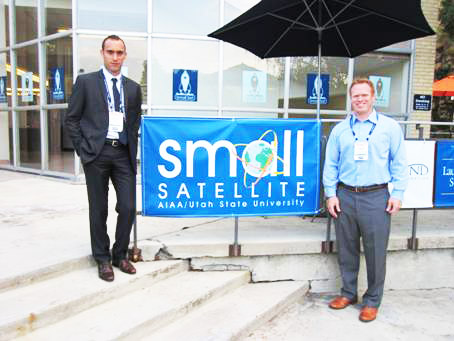 |
August 6, 2014:It’s not exactly brain surgery or rocket science but we think it’s equally amazing. Proving the value of cross-discipline collaboration, CHEPS students Jeremy Castaing and Brian Lemay were recognized for their work on a collaborative satellite scheduling project which was informed by their experience on a CHEPS resident scheduling project. For the project, Jeremy and Brian teamed up with Professor Amy Cohn, CHEPS’s Associate Director, and Professor Jamie Cutler from Michigan’s Aerospace Engineering Department.
The satellite project received honorable mention in the 22nd Annual Frank J. Redd Student Competition at the Small Satellite Conference which was held from August 2 -7, 2014 at Utah State University. Jeremy took the lead in sharing the work at the conference with a presentation titled “Optimal Download Scheduling for Satellite Missions” and paper titled “Scheduling Downloads for Multi-Satellite, Multi-Ground Station Missions.” |
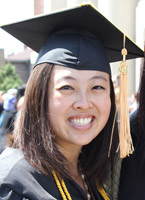 |
June 28, 2014:CHEPS research student Stephanie See is officially a registered nurse! The final hurdle of her nursing education was a four hour and 265 question exam which she has now passed. “It was the most stressful test I have ever taken, but with that completed, I am looking forward to caring for patients and their families,” says Stephanie. |
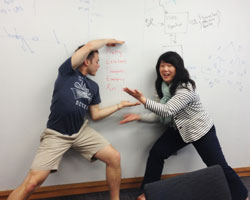 |
June 13, 2014:Today, CHEPS bid farewell to Dr. Jenny Zank, Chief Resident in Pediatrics. Dr. Zank spent the past year working closely with CHEPS to build monthly shift schedules for the Mott Pediatric Emergency Department. She also helped the team develop a new tool for block scheduling incoming pediatric residents. Dr. Zank will be starting Fellowship at the University of Pittsburg but will collaborate from afar with the team to complete and publish their work together. You’ll be missed at CHEPS, Jenny! |
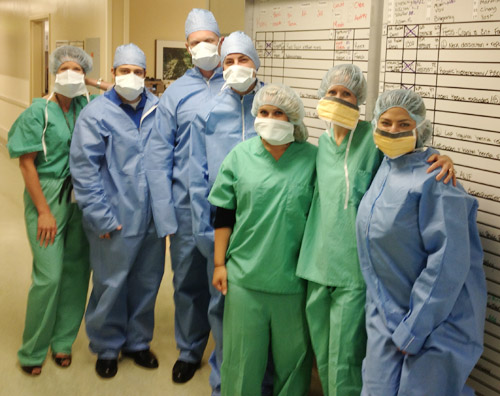 |
June 9, 2014:CHEPS students Hassan Abbas, Brian Lemay, Elizabeth Olin, and Billy Pozehl along with Professor Amy Cohn joined University of Colorado practitioners Emily Poritt (Project Management & Outcomes Reporting Manager) and Luciana Smith (Director of Innovation, Ambulatory Services) to tour the operating rooms at The University of Colorado Hospital. Poritt is a University of Michigan alumnus who graduated with an MHSA in Health Management and Policy in 2012. This visit was part of a new operating room and ambulatory clinic scheduling project. |
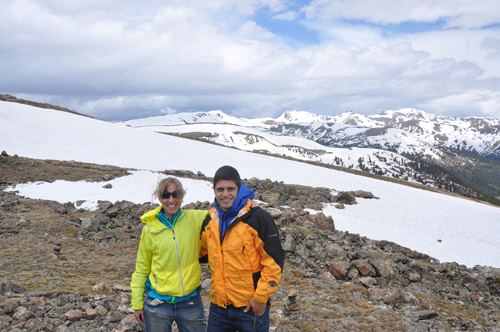 |
June 8, 2014:CHEPS Associate Director Amy Cohn and nursing student Hass Abbas took a few hours out from a research trip to the University of Colorado Hospital to enjoy the beauty of the Rocky Mountains. |
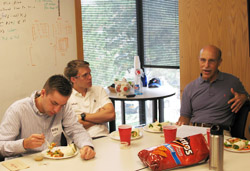 |
June 6, 2014:CHEPS students met with the Center’s director Dr. Jim Bagian for “Lunch and Learn.” The group discussed three articles:
“I thoroughly enjoyed the lunch and learn with Dr. Bagian on Friday. REALLY cool stuff. Experiences like that make me really glad to be working at CHEPS!” said IOE undergraduate Matt Rouhana. |
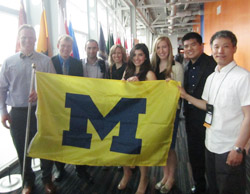 |
June 1, 2014:Several students from CHEPS traveled to Montreal for the Industrial and Systems Engineering Research Conference (ISERC), part of the IIE Annual Conference and Expo, presenting the following 6 talks:
They also enjoyed the French cuisine, the Botanical Gardens, and more during their time in Montreal. |
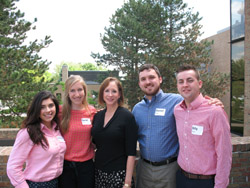 |
May 29, 2014:Merrill Bonder, head of The Seth Bonder Foundation, recently visited The Center for Healthcare Engineering and Patient Safety (CHEPS) and shared a lunch with some of the students who have received funding from The Seth Bonder Foundation.CHEPS students and students in the Department of Industrial and Operations Engineering (IOE) have benefited greatly from the support of The Seth Bonder Foundation. “I’m extremely grateful and honored to have received support from The Bonder Foundation. The fellowship made it possible for me to focus completely on my studies and research this past semester and it has truly been a blessing in this pursuit for higher education,” said Vanessa Morales, a recipient of the Bonder Master’s Program Fellowship in Healthcare Engineering and Patient Safety (HEPS).The Seth Bonder Foundation was founded in memory of the late Dr. Seth Bonder, a former IOE faculty member as well as the founder and former chairman/CEO of Vector Research, Inc. Much of his career was focused on improving the planning and operations of healthcare delivery enterprises. He was also an expert in national security and defense enterprises, with an international reputation for his work developing new procedures and directing analyses for planning and operations analysis of military forces. He was particularly passionate about supporting and mentoring students. |
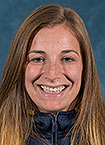 |
May 28, 2014:CHEPS research student Joanna Fleming was named to the 2014 Academic All-Big Ten Team for women’s track and field. To be eligible for Academic All-Big Ten selection, student-athletes must be letter-winners in at least their second academic year at their institution and carry a cumulative grade-point average of 3.0 or higher. Congratulations, Joanna! |
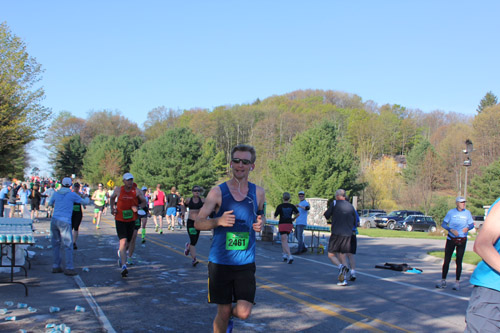 |
May 24, 2014:CHEPS research student Zachary Verschure ran the Traverse City Track Club Bayshore Marathon on May 24th, 2014. This was his first marathon and he trained for about 3 months to prepare. Zachary’s official time was 3:30:13 and he finished in 328th place overall and 24th within his age group (Male 20-24). |
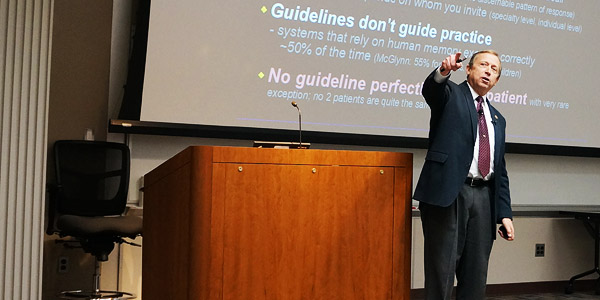 |
May 14, 2014:Dr. Brent C. James presented a lecture titled “The Learning Healthcare System: We Count Our Successes in Lives” as part of the Wilbert Steffy Distinguished Lecture Series. The event was hosted by The Department of Industrial and Operations Engineering and The Center for Healthcare Engineering and Patient Safety. You may view the full lecture below.
It is easy to demonstrate that today’s health care delivery, and peoples’ health, is the best the world has ever seen. Within that context, about 50 years ago some clinicians began to apply the rigorous measurement tools of clinical research to health care delivery performance. They found a series of areas where the healing profession falls far short of its theoretic potential. With time and experimentation, that led to proven methods for consistently producing far better clinical outcomes – a field now called clinical quality (or process) improvement. Usually better care was also much cheaper care, making state-of-the-art health services more widely available to those in need. Some care delivery groups have invested heavily in the data systems and professional management structures necessary to achieve such care delivery excellence. More recently those groups are using the resulting data systems to embed clinical research into routine care delivery operations, dramatically increasing the ability of clinical scientists to conduct and publish clinical investigations, and more fully realizing our shared professional mandate to “learn from every patient.” (video by MConnex) |
| March 24, 2014:“I like this Lunch and Learn. This is fantastic!” said Dr. Harriet B. Nembhard, after attendees at her “Lunch and Learn” event had listened to her brief presentation and then began to ask questions and offer up ideas about her research. Dr. Nembhard was the featured guest at the March 26th meeting of the Health Engineering and Patient Safety (HEPS) master’s program “Lunch and Learn” series which provides students and other interested parties with the chance to interact with and learn from healthcare professionals.Attendees for the March 26th meeting came to the event from the HEPS master’s program, the Center for Healthcare Engineering and Patient Safety, the Department of Industrial and Operations Engineering, the University of Michigan Health System, the College of Pharmacy, and the Institute for Healthcare Policy and Innovation.Dr. Nembhard is a professor in the Marcus Department of Industrial and Manufacturing Engineering at Penn State. She is also a University of Michigan alumnus who received her Ph.D. from the Department of Industrial and Operations Engineering in 1994. Her research employs methods of statistics, quality, and productivity to develop relevant approaches to improve healthcare delivery. Her recent work has included the visualization methods for communicating healthcare data, a patented manufacturing process for small-scale medical devices, statistical methods for the early detection of influenza outbreak, and modeling patient adherence to treatment. Dr. Nembhard is also a Certified Six Sigma Black Belt and a Fellow of the American Society for Quality.Her topic for “Lunch and Learn” was “A System Dynamics Approach to Support Implementation of Evidence-based Medicine Guidelines for Chronic Kidney Disease.” With the aging of the US population and the increase in obesity, hypertension and diabetes mellitus, the prevalence of chronic kidney disease (CKD) is increasing. The National Kidney Foundation has produced evidence-based medicine guidelines known as the Kidney Disease Outcomes Quality Initiative (KDOQI). These guidelines underscore the need for a strong primary care system to deliver high quality CKD care. However, multiple barriers exist that hamper the provision of optimal care for patients with CKD. Dr. Nembhard’s research investigates a system dynamics approach to care redesign for CKD for 13 practice sites affiliated with Penn State Hershey Medical Center.Dr. Nembhard discussed conceptual and quantitative models built upon system dynamics to enhance the ability to understand dynamic interactions among patients, care providers, process, and policy in the system, to highlight areas of improvement, and to anticipate evolvement of the system over time in response to proposed interventions. Her work is in collaboration with Hyojung Kang; William Curry, MD; Nasrollah Ghahramani, MD; and Wenke Hwang, PhD. | |
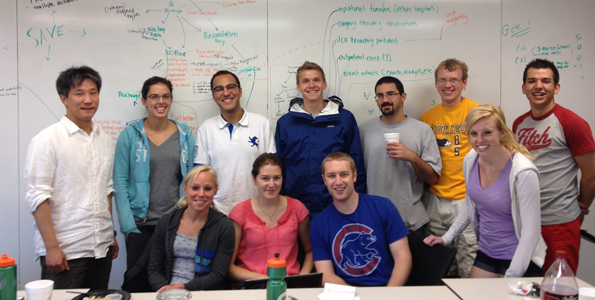 |
March 13, 2014:CHEPS is hiring students for summer 2014. Please select the link for your concentration area for more information: Computer Science, Pre-Med, Medical, Nursing, Public Health. |
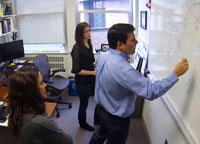 |
March 4, 2014:Brian Denton, CHEPS affiliate and co-advisor on the Chemotherapy Infusion Scheduling Project, is working with a multidisciplinary team to develop a quicker and less expensive way to evaluate biomarkers, using computational models, to aid in diagnosing prostate cancer. The research is supported by the National Science Foundation (NSF). The team’s work was recently highlighted an article and video titled “Engineering a more efficient way to diagnose prostate cancer”in the NSF’s Science Nation. |
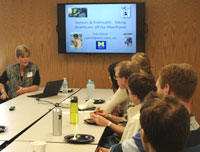 |
February 26, 2014:Healthcare Engineering and Patient Safety (HEPS) master’s students along with students from engineering, nursing, and public health, and members of the University of Michigan Health System (UMHS) community attended a discussion led by Dr. Patti Abbott on February 26. The talk was part of the HEPS master’s program “Lunch and Learn” series which provides students with the chance to interact with and learn from healthcare professionals.Dr. Abbott, an associate professor at the University of Michigan in the Division of Systems Leadership & Effectiveness Science in the School of Nursing, led a roundtable on “Sensor Technology and Telehealth: Taking Healthcare Off the Mainframe.”Dr. Abbott is a formally trained informatician with specific interest and research experience in eHealth and the use of information and communication technologies (ICT) in global health. In addition to her position at the University of Michigan, she is a member of the NIH Biomedical Computing and Health Informatics standing study section and was recently appointed by the World Health Organization (WHO) to serve as a Technical Advisor to a newly formed “eHealth Technical Advisory Group.”Prior to arriving at the University of Michigan, Dr. Abbott was an Associate Professor at the Johns Hopkins Schools of Nursing and Medicine. She completed a 2-year post-doctoral NIH funded research fellowship in the Department of Computer Science in the Human Computer Interaction Laboratory (HCIL) at the University of Maryland College Park where she focused on the design of usable and error-mitigating Health IT. Dr. Abbott extended her research background in knowledge discovery in large datasets (data analytics) at the HCIL by also focusing upon visualization (making sense of huge collections of healthcare data in a way that provides value), human computer interaction, and user-centered design. |
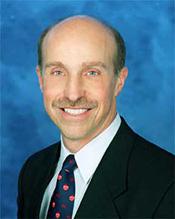 |
February 10, 2014:“Improving Clinical Learning Environments for Tomorrow’s Physicians,”an article co-authored by James Bagian, Director of the Center for Healthcare Engineering and Patient Safety (CHEPS), is featured in The New England Journal of Medicine.The New England Journal of Medicine publishes peer-reviewed research and clinical content for physicians, educators and the global medical community. It is one of the most prestigious medical journals and is considered a go-to resource for keeping practicing physicians aware of developments of importance to their patients and for training medical students and residents.In addition to his position at CHEPS, Bagian is a Clinical Professor of Engineering, Research Professor of Anesthesiology, and Chief Patient Safety and Systems Innovation Officer at the Medical School. |
 |
January 31, 2014:CHEPS Research Student, Joanna Fleming, in the “Wolverine Athlete Spotlight” on mgoblue.com. Read the article here. |
|
December 19, 2013: On November 18, 2013 friends of the Center for Healthcare Engineering and Patient Safety (CHEPS) gathered for the first Healthcare Engineering and Patient Safety Symposium. Attendees came from a variety of University of Michigan departments including Engineering, the School of Public Health, the Health System, the Medical School, the School of Nursing, and the Institute for Healthcare Policy and Innovation. |
|
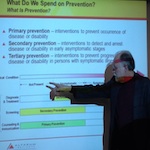 |
December 9, 2013:George Miller, an Institute Fellow at Altarum Institute and a member of Altarum’s Center for Sustainable Health Spending (CSHS), spoke about “Investments in Prevention: Countering Myths and Resolving Paradoxes” at the final CHEPS seminar of the semester, December 9th. Dr. Miller spoke about the belief that the US health care system needs to transition from a culture of treatment of disease to one of disease prevention. Although it is commonly argued that US under-invests in prevention because only 3% of US healthcare spending is on prevention vs. treatment, the reality is that spending on prevention is closer to 9% and that spending may be better utilized by focusing on different types of prevention. Dr. Miller then discussed a high-level framework into the impacts of primary prevention intervention, including discussing the health care costs, health and health disparities and other non-health impacts. |
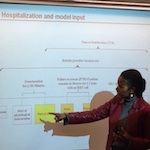 |
December 2, 2013:Dr. Julie Ivy, an Associate Professor in the Edward P. Fitts Department of Industrial and Systems Engineering and Fitts Faculty Fellow in Health Systems Engineering at North Carolina State University, spoke to students, faculty, and the Ann Arbor community at the CHEPS seminar series on Monday, December 2nd. Dr. Ivy spoke about “Individualizing and optimizing the use of early warning score systems in the acute medical care setting”. She began by defining acute physiological deterioration (APD), which is the primary cause of preventable deaths reported in leading hospitals in the US, as a continuous disturbance in physiological measures. Dr. Ivy then went on to explain her research of integrating electronic medical records, clinical expertise, and Markovian modeling to develop personalized rules for the use of early warning scoring (EWS) systems to decrease these preventable deaths. |
 |
November 25, 2013:Susan Hawkins and Julia Swanson visited today from the Henry Ford Health System and presented at the IOE813 seminar series. Both Susan and Julia are IOE alums themselves, and they gave a lively and interesting talk on “Strategic Changes to Drive Performance Excellence.” This was an excellent opportunity for our IOE students to see an up-close example of a career path for IEs in healthcare. |
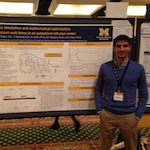 |
November 15, 2013:Congratulations to CHEPS Affiliate Spyros Potiris for being recognized in the Engineering Graduate Symposium. His research project titled, “Computer simulation and mathematical optimization to reduce patient wait times in an out patient infusion center” received first place in Operations Research. |
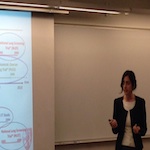 |
November 11, 2013:Dr. Ayca Erdogan, a postdoctoral research fellow at Stanford University School of Medicine, spoke about “Estimating the Long Term Benefits and Harms of CT Screening for Lung Cancer” to 30 students and faculty members at the CHEPS seminar series on Monday, November 11th. Working with the Cancer Intervention Surveillance Modeling Network (CISNET), Dr. Erdogan used a lung cancer micro-simulation model and a simulation-based optimization approach to simulate mortality reduction due to CT screening, confirming expected results. Dr. Erdogan also detailed her analysis of the cost-effectiveness of CT screening. |
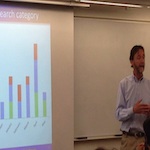 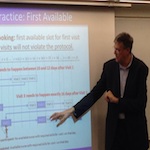 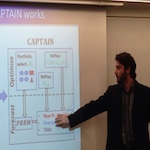 |
November 4, 2013:Dr. Blake Roessler, Professor Mark Van Oyen, and PhD Candidate Jivan Deglise-Hawkinson spoke about “Novel Operational Planning and Scheduling Methods for Improved Access with Service Pathways” on Monday, November 4th, as part of the CHEPS seminar series. Dr. Roessler first set up the problem, establishing the protocol, phases, places, and people required for clinical research. Utilizing an analogy to a manufacturing process, the team maximizes the manufacturing of units of new knowledge created while performing human subjects research within a tight margin. Professor Van Oyen then discussed conceptualizing the operations research and systems engineering approach. Finally Deglise-Hawkinson walked the class through their Capacity Planning Tool and INformatics (CAPTAIN) to enhance utilization and decrease waiting time for the clinical trials. |
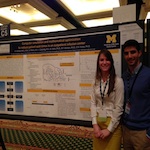 |
November 1, 2013:CHEPS Affiliates Spyros Potiris from the HEPS masters program and Autumn Heiney from the School of Nursing presented a poster on their research at the ASCO Quality Care Symposium in San Diego. The poster was entitled “Computer simulation and mathematical optimization to reduce patient wait times in an outpatient infusion center”. |
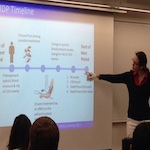 |
October 28, 2013:Dr. Mariel Lavieri, an Assistant Professor in the Department of Industrial and Operations Engineering at the University of Michigan and Dr. Wyndy Wiitala, a Research Health Science Specialist at the US Department of Veteran Affairs spoke about “Data-driven Medical Decision Making of Chronic Disease Patients” on Monday, October 28th to the CHEPS seminar series students and members of the healthcare community. The team of researchers use Markov decision processes and state transition probabilities to model the treatments of a patient with coronary heart disease over time and then use data from the VA to test these theories. |
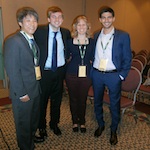 |
October 9, 2013:Students Young-Chae Hong, Bill Pozehl, and Spyros Potiris celebrate with CHEPS Associate Director Amy Cohn at the end of their successful presentations at the annual INFORMS meeting today. |
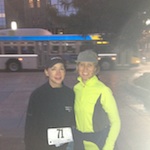  |
October 8, 2013:Amy Cohn, Associate Director of CHEPS, and Merrill Bonder of the Bonder Foundation enjoyed an early morning together at the INFORMS annual meeting in Minneapolis, running together in a 5k Fun Run in honor of Saul Gass. Here, they are pictures before (still dark), after (sun is finally up!), and celebrating at breakfast. |
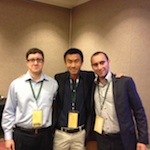 |
October 7, 2013:CHEPS masters student Jason Card, seen here with classmates George Tam and Jeremy Castaing, presented his research on improving the delivery of care to pediatric asthma patients at the 2013 INFORMS annual meeting. Among those present in the audience were Mrs. Merrill Bonder of the Bonder Foundation, which has generously supported Jason’s research (and the research of many others in the program). |
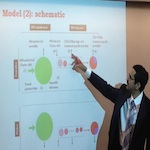 |
September 30, 2013:Dr. Salal Humair, a Research Scientist at the Department of Global Health and Poulation at the Harvard School of Public Health, spoke about “Better use of resources in global HIV programs: Informing policy through evidence-based modeling” on Monday, September 30th at the CHEPS IOE813 Fall Seminar Series. Dr. Humair and his partners designed a schematic model with transition states, representing circumcised and uncircumcised males and ART treated and non-treated people, reproducing the epidemic trajectory for South Africa in the last decade. |
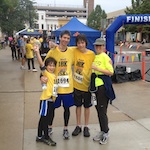 |
September 29, 2013:CHEPS Affiliate Valerie Chase completed her first 5k today, in the Leaders and Best fund raiser. Also running were CHEPS Associate Director Amy Cohn and her family. They were fund raising in honor of Amy’s favorite aunt, Rita Burlingame, who passed away from ALS two years ago this week. Significant research advances are being made at UM to fight this dreadful disease. |
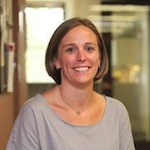 |
September 23, 2013:CHEPS Affiliate Michelle Macy was published today in The Detroit News, with an editorial on child seat safety. Dr. Macy works in the Pediatric Emergency Department at C.S. Mott Children’s Hospital where she treats children for a wide range of illnesses and injuries. Her experiences taking care of children after car crashes have motivated her to find ways to increase child safety seat use. Michigan Child Passenger Safety Law is one opportunity for improvement. She is a mother of two booster seat users and a car seat user. |
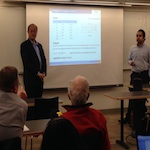 |
September 23, 2013:Dr. Kai Yang, the Director of the Healthcare System Engineering Group of Wayne State University as well as a Professor of Industrial and Systems Engineering, spoke about “An Analytical Framework to Reducing Hospital Readmission: Descriptive, Predictive, and Prescriptive Analytics” on Monday, September 23rd. Dr. Yang and his graduate student, Isaac Shams, highlighted the ability to develop a customized readmission intervention approach for high risk disease types and patients groups as well as a risk prediction model to capture the timing of readmission based on a Continuous-Time Markov Process. |
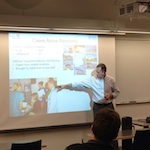 |
September 16, 2013:Dr. Craig Froehle, an Associate Professor of Operations and Business Analytics at the Carl H. Lindner College of Business at the University of Cincinnati, discussed “Improving Care and Efficiency through Analytics: Automating Patient Triage in Radiology” with students, faculty, and others from the Ann Arbor community this past Monday, 9/16, as part of the Center for Healthcare Engineering and Patient Safety (CHEPS) seminar series. |
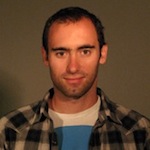 |
September 9, 2013:Jeremy Castaing, a CHEPS research student involved in the infusion center scheduling project, has won the 2013 Bonder Fellowship. This funding will support additional research including this scheduling project for the University of Michigan Comprehensive Cancer Center. |
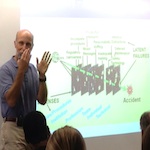 |
September 9, 2013:Dr. James Bagian, Director of the Center for Healthcare Engineering and Patient Safety, professor in the Department of Anesthesiology in the Medical School, and professor in the Department of Industrial and Operations Engineering in the College of Engineering, spoke today about “Addressing Challenges in Patient Safety – Implementing Systems Based Approaches” to an audience of roughly 30 people affiliated with the U of M Health System, School of Public Health, and College of Engineering. |
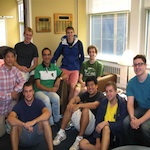 |
August 7, 2013:The IOE Department held an end-of-summer celebration for the undergraduate researchers in the department. Some of the CHEPS summer researchers pose for a group photo after enjoying the drinks and desserts while visiting with staff. Thanks to all involved for putting the event together! |
| June 24-26, 2013:CHEPS Associate Director Amy Cohn and a group of CHEPS summer research students attended the INFORMS Healthcare conference in Chicago. The group had a tremendous time presenting their own work, attending other presentation sessions, networking with representatives of other universities, and exploring the city. It was an exciting and educational week for all! | |
 |
June 24-26, 2013:IOE Department representing at INFORMS Healthcare Engineering Conference 2013. |
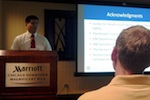 |
June 24-26, 2013:Ryan Chen presented on “Scheduling Residents to Achieve Adequate Training on Procedures with Random Occurrences” to an audience of engineers, students and healthcare professionals. |
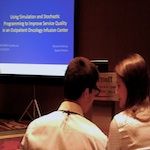 |
June 24-26, 2013:Spyros Potiris and Autumn Heiney connecting before their first presentation at a conference. They presented on “Using Simulation and Stochastic Programming to Improve Service Quality in an Outpatient Oncology Infusion Center” and did amazing! |
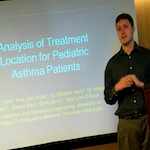 |
June 24-26, 2013:Jason Card presented on the “Analysis of Treatment Location for Pediatric Asthma Patients,” engaging his audience and delivering a compelling talk. |
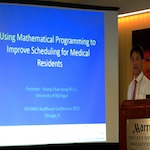 |
June 24-26, 2013:Young-Chae Hong gave an excellent talk on “Using Mathematical Programming to Improve Scheduling for Medical Residents.” His presentation generated a lot of discussion amongst the audience! |
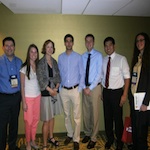 |
June 24-26, 2013:IOE students and faculty were treated to a wonderful breakfast with Merrill Bonder on the first day of the conference. |
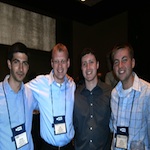 |
June 24-26, 2013:The four students in the Healthcare Engineering and Patient Safety concentration of the IOE Master’s program (Spyros Potiris, Joe East, Jason Card, and Billy Pozehl from left to right) enjoyed themselves at a networking event sponsored by CHEPS during the conference. |
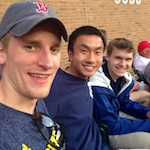 |
June 20, 2013:Zak VerShure, George Tam, and Mark Grum are among the group of CHEPS summer research students who went to Tiger Stadium tonight to cheer on the Boston Red Sox. |
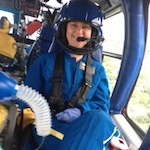 |
June 18, 2013:Alison Cator, a fellow in pediatric Emergency Medicine, transported a patient via helicopter with our Survival Flight team to the University of Michigan Emergency Department. |
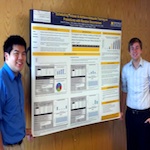 |
June 4, 2013:Ryan Chen and Billy Pozehl standing next to their poster on “Scheduling Fellows to Achieve Adequate Training on Procedures with Random Occurrences.” Ryan, Billy and several other summer researchers presented the poster at Medical Education Day and garnered interest in the Transplant project from several attendees. |
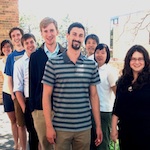 |
June 4, 2013:The summer Pediatric Residency Scheduling research students. The entire team worked tirelessly before Medical Education Day to ensure that the posters were flawless! A huge thank you to all for your hard work on the project! |
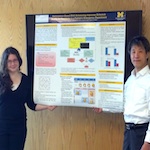 |
June 4, 2013:Young-Chae Hong and Elizabeth Perelstein presented the recent efforts of the Pediatric Residency Scheduling team at the 2013 University of Michigan Medical Education Day. The poster was well-received, including compliments and gratitude expressed by some of the high-level officers at the University of Michigan Health System. |
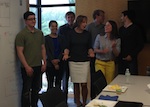 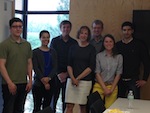 |
May 28, 2013:Mrs. Merrill Bonder of the Bonder Foundation, support of many CHEPS activities, joined us for lunch today. Celebrating with her are summer research students Jason Card, Mary Smiley, Billy Pozehl, Joe East, Autumn Heiney, and Spyros Potiris. |
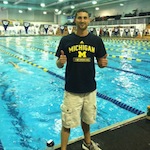 |
May 9th-11th, 2013:Daniel Madwed, CHEPS Affiliate and a member of Michigan’s Club Wolverine Swim Team, placed 3rd in the 200 meter butterfly and 5th in the 100 meter butterfly while competing at the 2013 Arena Grand Prix in Charlotte, North Carolina. When not swimming, Daniel is a summer research assistant working on projects in scheduling medical residents and improving the operations of the outpatient infusion center. |
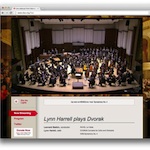 |
May 10, 2013:As recently discovered, Dr. Christopher Friese, Assistant Professor at the School of Nursing, is a man of many talents. In addition to his ground breaking work in oncology nursing and partnership with CHEPS, Dr. Friese is a member of the UMS Choral Union. Performing alongside the Detroit Symphony Orchestra (DSO), Dr. Friese will help celebrate the return of Spring at Carnegie Hall, New York, NY. Under the direction of Leonard Slatkin, UMS Choral Union and DSO will enchant spectators with Ives’ Symphony No. 4. Save the date for May 10th 2013. Break a leg Dr. Friese! |
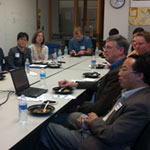 |
April 22, 2013:IOE Professor and HEPS Advisory Board member Mark Van Oyen, hosted a dinner and discussion led by invited speakers James Jinshuai Guo, MS (IOE), and Mike Harvey, PhD candidate (SPH), who discussed their experiences on creating a stochastic mathematical model to simulate patient flow dynamics in our health system. |
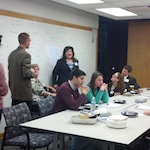 |
February 18, 2013:Katherine Pearce and Diane Mansoor from Beaumont Hospitals discussed their experiences in EMR (electronic medical record) implementation, focusing on a tool developed to facilitate work flow standardizations and best practices. The dinner meeting, held in the CHEPS offices, was also attended by CHEPS Associate Director Amy Cohn, our HEPS concentration candidates, CHEPS affiliates, and students in IOE, SPH and the medical community. |
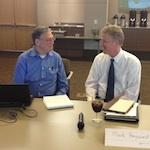 |
February 8, 2013:CHEPS Affiliate and IOE professor Mark Van Oyen chats with Mark Hayward of the Mayo Clinic Center for the Science of Health Care Delivery at a workshop on improving the value of healthcare delivery. The meeting, held in Phoenix AZ, was also attended by CHEPS Associate Director Amy Cohn. |
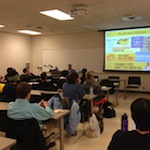 |
February 4, 2013:Lonny Hurwitz and Ann Nguyen from Southwest Airlines spoke with CHEPS Associate Director Amy Cohn’s research group and others today. Among those in attendance were a number of CHEPS affiliates interested in how innovations in the aviation industry could be applied in healthcare delivery. |
   |
January 26, 2013:Professor Mariel Lavieri and UM engineering students Amanda Bayagich, Emily Burns, Jason Card, Valerie Chase, Joseph East, Spyros Potiris, and Greggory Schell led teams of fourth through sixth grade local girls in an “Emergency Room Simulation” exercise designed to help young women gain interest in math and science. This was the second year that Professor Lavieri led this program as part of the FEMMES 2013 event. |
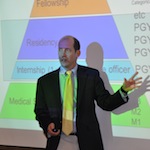 |
December 3, 2012:Bringing together the true theme of collaboration between engineering and medicine, both practice and education, this week’s seminar was entitled: “Evaluating and Resolving Conflicts Between Deterministic Call Schedules and Stochastic Arrival Rates when Training Heart and Lung Transplant Surgeons.” This presentation included Dr. Rishi Reddy, Dr. Andrea Obi, Professor Jacob Seagull, and IOE student Ryan Chen. Professors Mark Daskin and Amy Cohn and medical student Jennifer Chung have also participated in this project. |
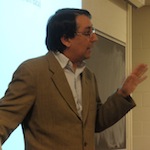 |
December 10, 2012:Professors Larry An, John Piette, and Satinder Baveja closed out this semester’s IOE691 seminar series with a perfect example of multi-disciplinary work bringing together engineering and medicine. They presented their joint research on “Adaptive Health Communication to Improve Hypertension Medication Adherence.” We look forward to another lively and informative seminar series next year! |
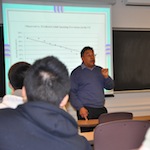 |
November 26, 2012:Professor David Mendez from the School of Public Health was today’s IOE691 seminar speaker. He presented his research on “The Impact of Declining Smoking on Radon Related Lung Cancer in the U.S.” |
 |
November 12, 2012:Professor Brian Denton, who recently joined the IOE Department from NC State, presented his research on “Optimal Design of Prostate Cancer Screening Policies” at today’s IOE691 seminar. |
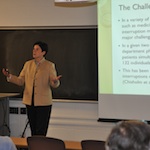 |
November 5, 2012:The topic of today’s IOE691 seminar was “Supporting Attention and Interruption Management in Healthcare.” Our speaker was Professor Nadine Sarter from the IOE department. |
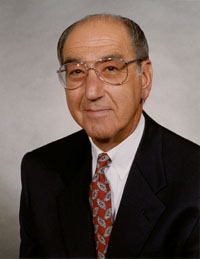 |
October 30, 2012:Thanks to a very generous gift of $100,000 from The Seth Bonder Foundation, students in the IOE Concentration in Healthcare Engineering and Patient Safety will be eligible to apply for a fellowship to help support their studies. Fellowships will be offered on a competitive basis to help cover tuition costs during this three-semester masters program. The Seth Bonder Foundation was founded in memory of the late Dr. Seth Bonder, a former IOE faculty member as well as the founder and former chairman/CEO of Vector Research, Incorporated. Much of his career was focused on improving the planning and operations of healthcare delivery enterprises. He was also an expert in national security and defense enterprises, with an international reputation for his work developing new procedures and directing analyses for planning and operations analysis of military forces. He was particularly passionate about supporting and mentoring students. |
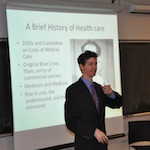 |
October 29, 2012:Mr. Jonathan Cohn, journalist for The New Republic and author of “Sick: The Untold Story of America’s Health Care Crisis—and the People Who Pay the Price,” spoke at this month’s informal gathering for the IOE masters concentration in Healthcare Engineering and Patient Safety (HEPS). |
 |
October 29, 2012:Professor Richard Hughes at the IOE691 seminar series, presenting “Quality Improvement in Hip and Knee Arthroplasty: Development of a Patient Registry in Michigan.” |
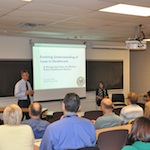 |
October 22, 2012:This week’s IOE691 seminar, “Evolving Understanding of Lean in Healthcare: A Perspective from the VA Ann Arbor Hospital System,” was presented today by Mr. Tom Kerr and Ms. Valerie Chase. Both speakers are affiliates of CHEPS, and Valerie is an alum of the IOE department and former research assistant to Professors Amy Cohn and Mariel Lavieri. |
 |
October 11, 2012:CHEPS Associate Director Amy Cohn interviewed in Institute for Healthcare Policy and Innovation newsletter. Read more here… |
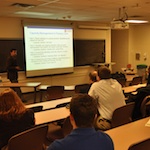 |
October 8, 2012:Professor Hari Balasubramanian from the University of Massachusetts was our visitor today for the IOE691 seminar series. He spoke about “Balancing Timely Access and Patient Physician Continuity in Primary Care.” |
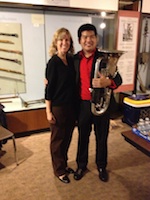 |
October 7, 2012:CHEPS research assistant and undergrad double major (IOE and music) Ryan Chen (pictured here with his advisor, CHEPS Associate Director Amy Cohn) gave an extraordinary senior recital today on the euphonium in the School of Music. |
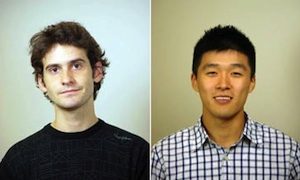 |
October 5, 2012:Please join us in congratulating Jivan Deglise-Hawkinson and Elliot Lee on their selection as 2012 Bonder Fellows!The one year Seth Bonder Fellowship is awarded on a competitive basis to a superior IOE graduate student who wishes to study and do research in the field of applied operations research. |
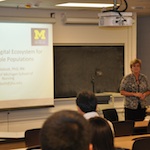 |
October 1, 2012:Professor Patti Abbott, UM School of Nursing, presented her research on “Building a Digital Ecosystem for Vulnerable Populations” at the IOE691 seminar series today. |
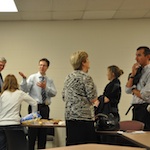 |
October 1, 2012:Attendees of today’s seminar in IOE691 chat before the start of the seminar. |
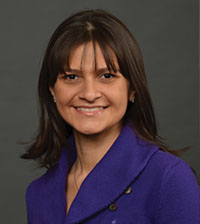 |
September 24, 2012:Professor Diana Prieto, of Western Michigan University, spoke today in the IOE691 seminar series. Her talk was entitled: “Operational Modeling of Emerging Viral Infectious Diseases.” |
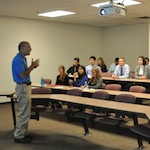 |
September 17, 2012:Please join us in congratulating Dr. Jim Bagian, Director of the Center for Healthcare Engineering and Patient Safety, presented the first seminar of the Fall 2012 IOE691 series today, entitled “Patient Safety: Putting Medical Team Training Into Action.” |
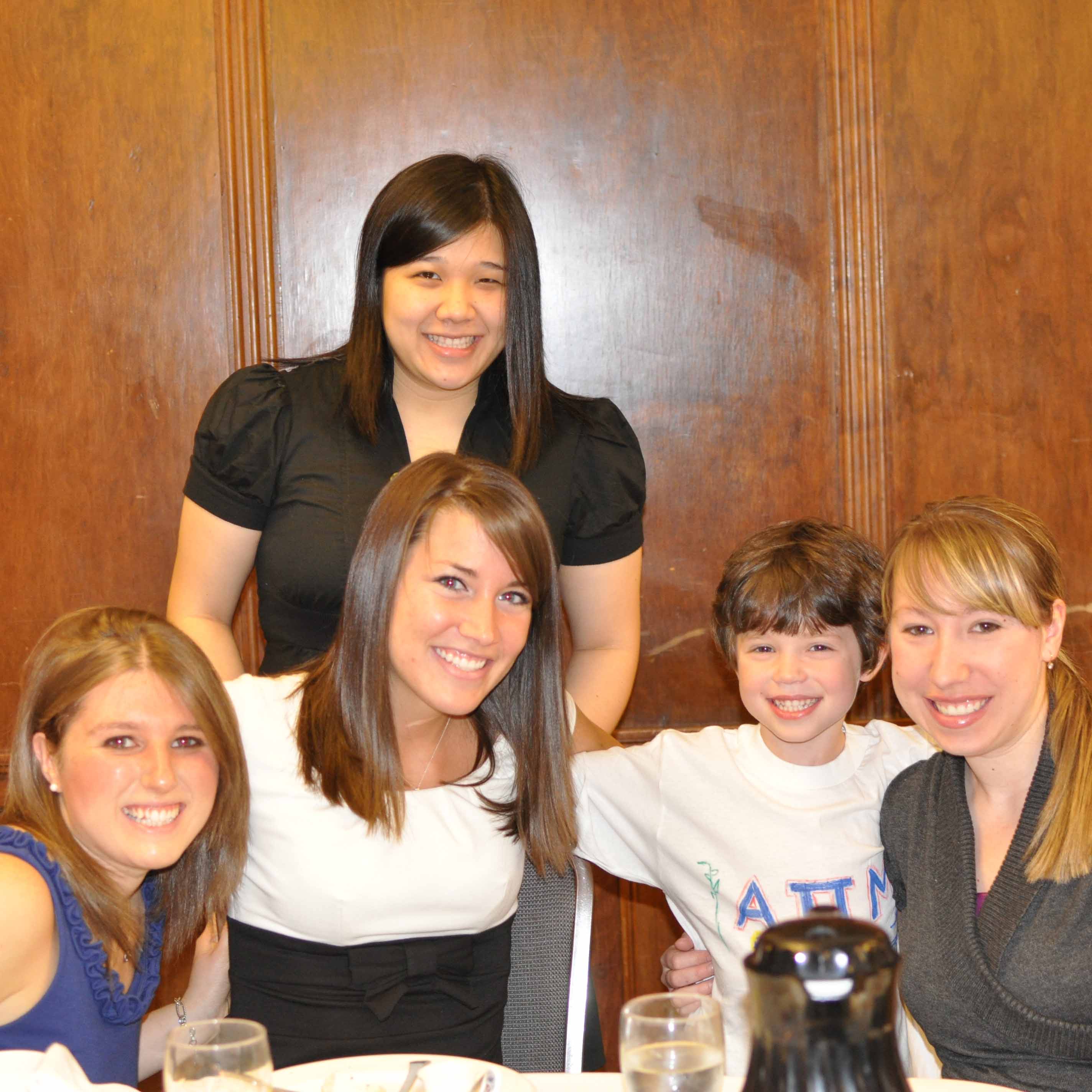 |
July 17, 2012:Valerie Chase (pictured seated, second from left), a recent graduate of IOE, co-authored an article which was recently published in the Journal of the Society for Academic Emergency Medicine for a research project she participated in at the University of Michigan Hospital. Co-authors Mariel Lavieri, PhD and Amy Cohn, PhD and Dr. Tim Peterson are CHEPS affiliates. |
 |
July 13, 2012:Students Tara Lynn O’Gara, Mindy Alberty, and Young-Chae Hong work with Dr. Micah Long, Chief Resident, to build the September schedule for residents at the Pediatric Emergency Department at Motts Children’s Hospital. |
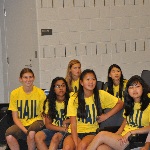 |
June 20, 2012:High school students from the WISE (Women in Science and Engineering) Summer Camp participated in an activity simulating and improving the performance of an emergency department to learn about how industrial engineers work in the field of healthcare. Professor Mariel Lavieri led this activity, along with Professor Amy Cohn and several IOE students. |
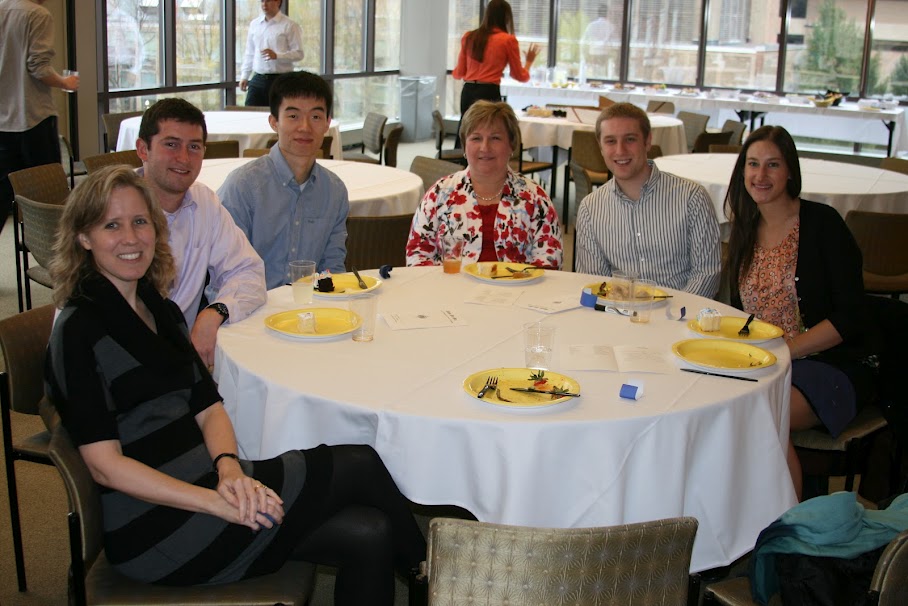 |
June 19, 2012:Amy Cohn, Thurnau Professor and Associate Director of CHEPS, was honored as the Alpha Pi Mu Professor of the Year. Among those joining her at the annual APM banquet was Matthew Friedman (second from right), one of the 2012 CHEPS summer research students. |
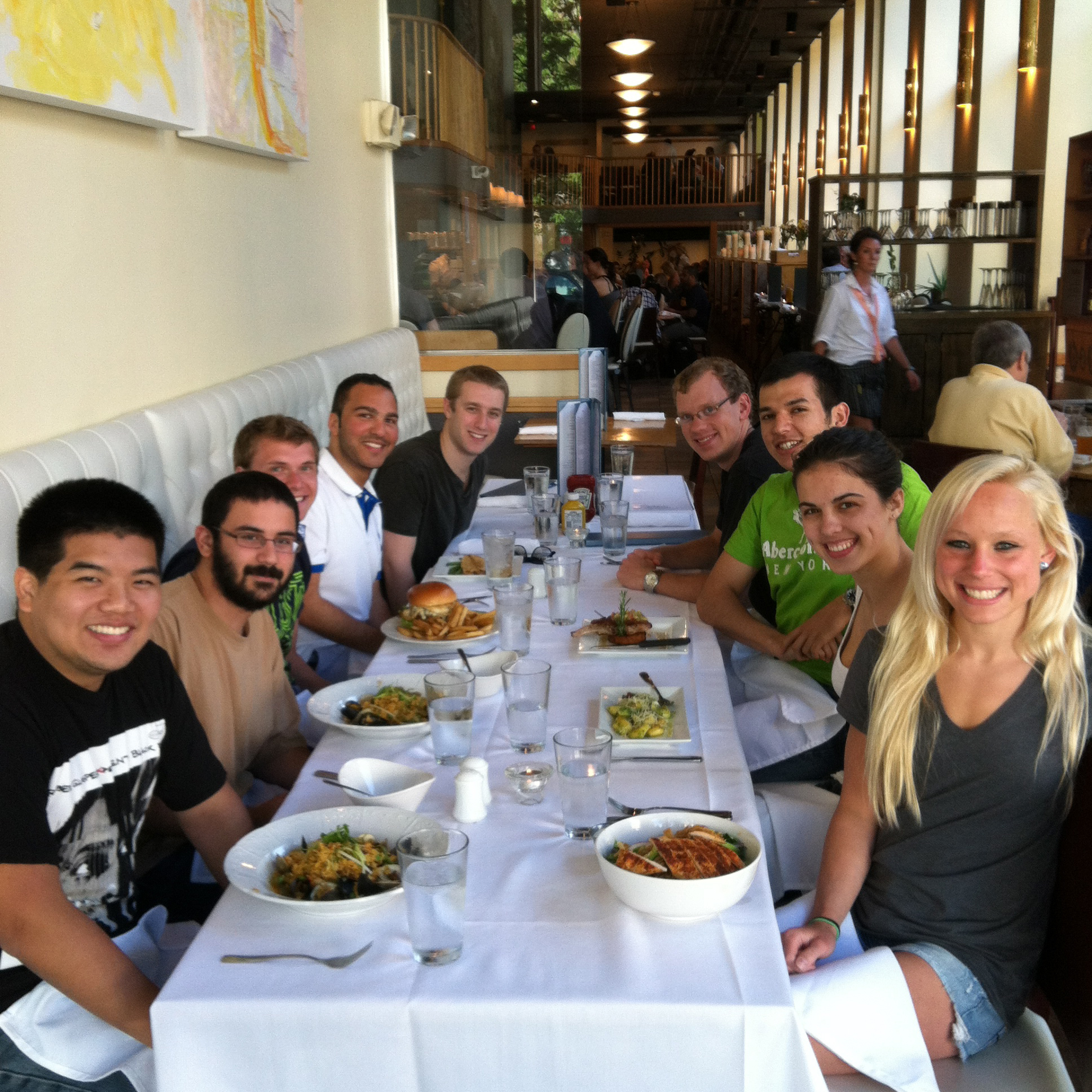 |
June 12, 2012:The Summer 2012 CHEPS students taking a well deserved break from work to check out one of the things Ann Arbor does best…EAT! Sava’s was the restaurant of choice, as it was a participant in Ann Arbors annual Restaurant Week and known for it’s delicious food and hip atmosphere. Starting in the front left of the table and moving clockwise: Ryan Chen, Ishan Mukherjee, Mark Grum, Ali Jardaly, Matthew Friedman, Joe East, Antonio Menendez, Emily Burns, and Linnea Johnson. |
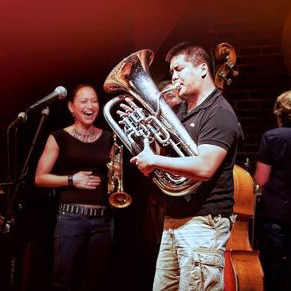 |
June 10, 2012:CHEPS undergraduate summer student Ryan Chen had a rare opportunity to let his creative side shine during a jazz performance. In his words: “I’m gonna tell you, it’s pretty cool. I got to jam with the trumpet player from Beyoncé’s band, Kiku Collins. The lady with her back turned is Ginger Turner, trumpet player in the US Coast Guard Concert Band… The bassist (obscured) is Tom Knific, jazz bass professor at WMU, and the pianist (not pictured) is his son. Overall, awesome (or, in jazz lingo, killin’) experience and a cool shot captured by Mark Cox, low brass professor at Central Michigan.” |
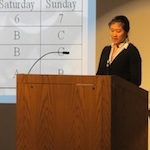 |
April 19, 2012:Jennifer Chung, a fourth-year medical student at the University of Michigan, presented her research today at the Moses Gunn Annual Conference. This is joint work with Drs. Rishindra Reddy and Andrea Obi, Professors Mark Daskin and Amy Cohn, and students Siyuan Sun and Wandi Lin. |


